DeMOLITION HUB
DEMOLITION MENTAL HEALTH
We put our weight into a new charity fundraiser supporting mental health in demolition

DEMOLITION DISCUSSION with Alfie Burke, Burke Demolition
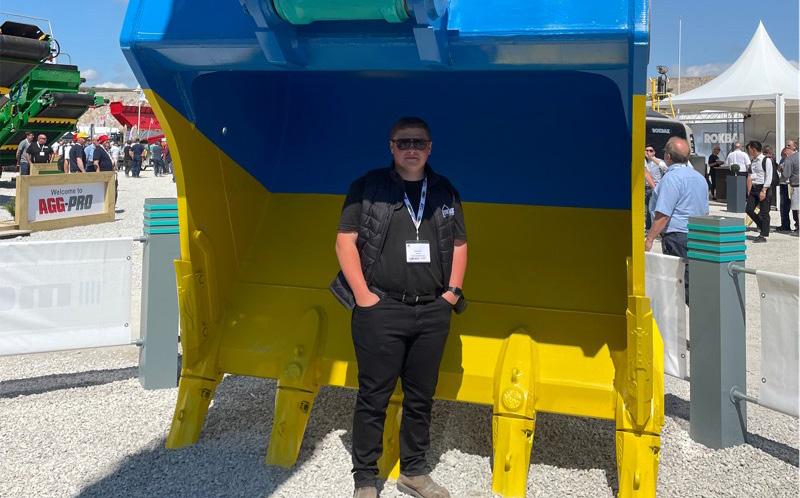
UK, European & worldwide demolition matters

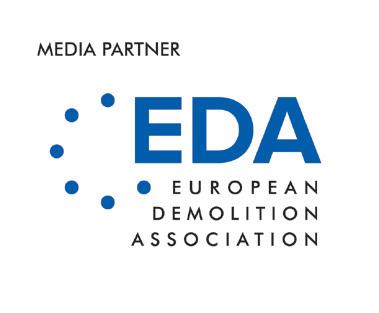
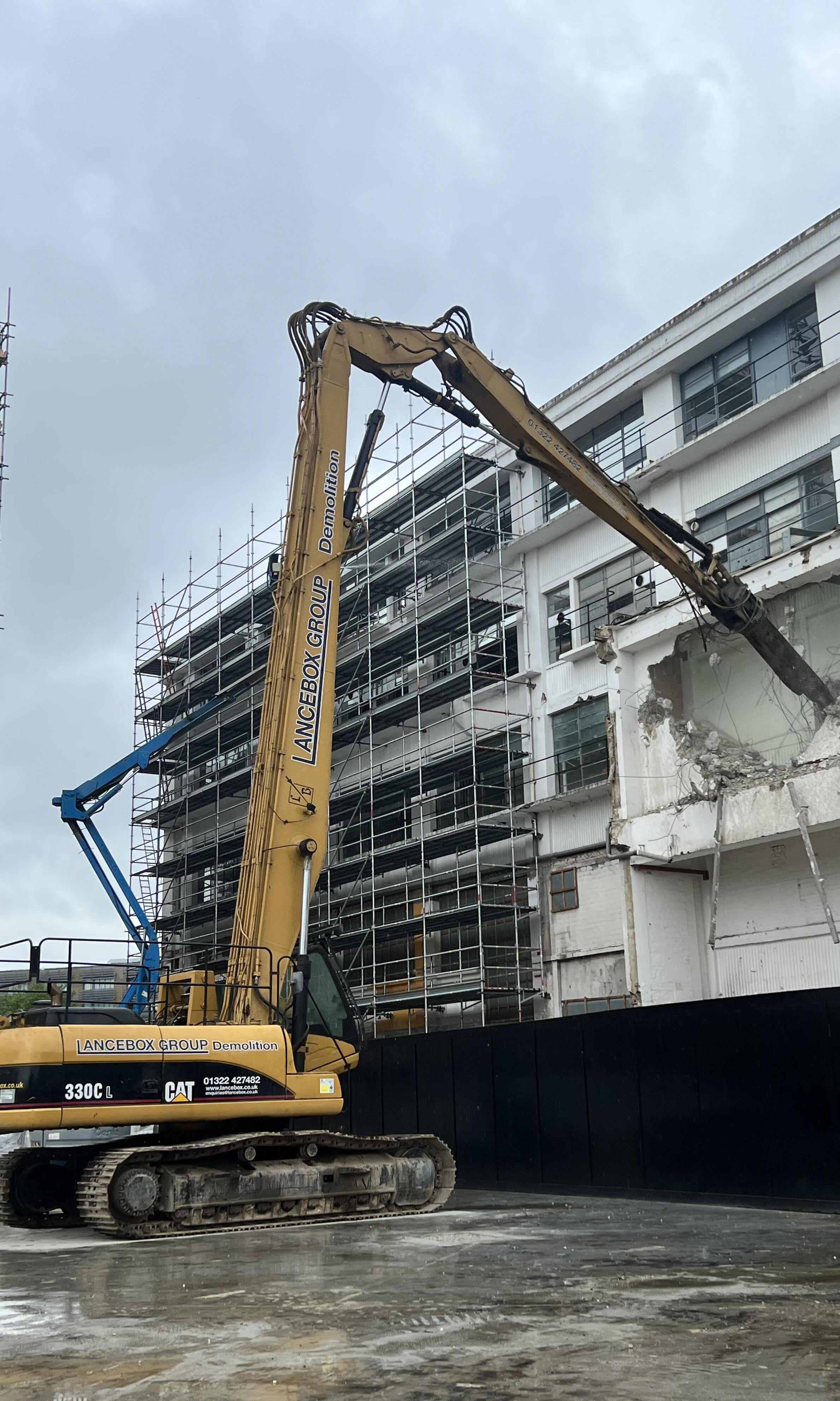
DEMOLITION HUB ONSITE
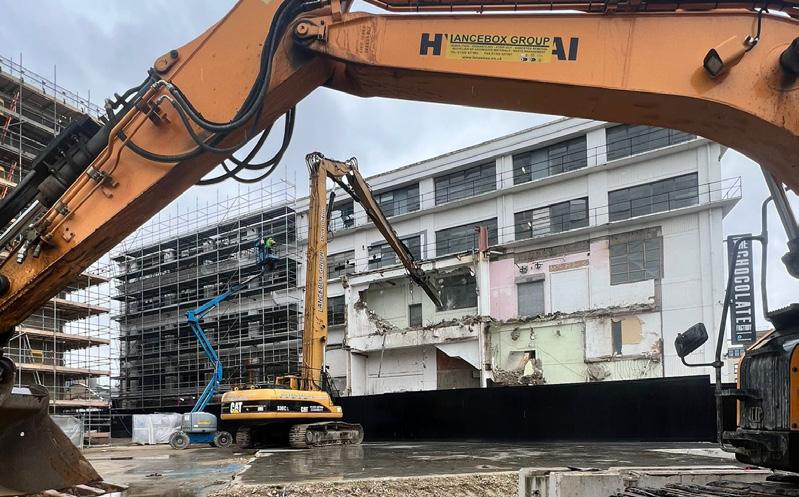
Even more site visits in a new regular on-site feature


June /July 2023 | Issue #17
NEWLOOK
#championingdemolition
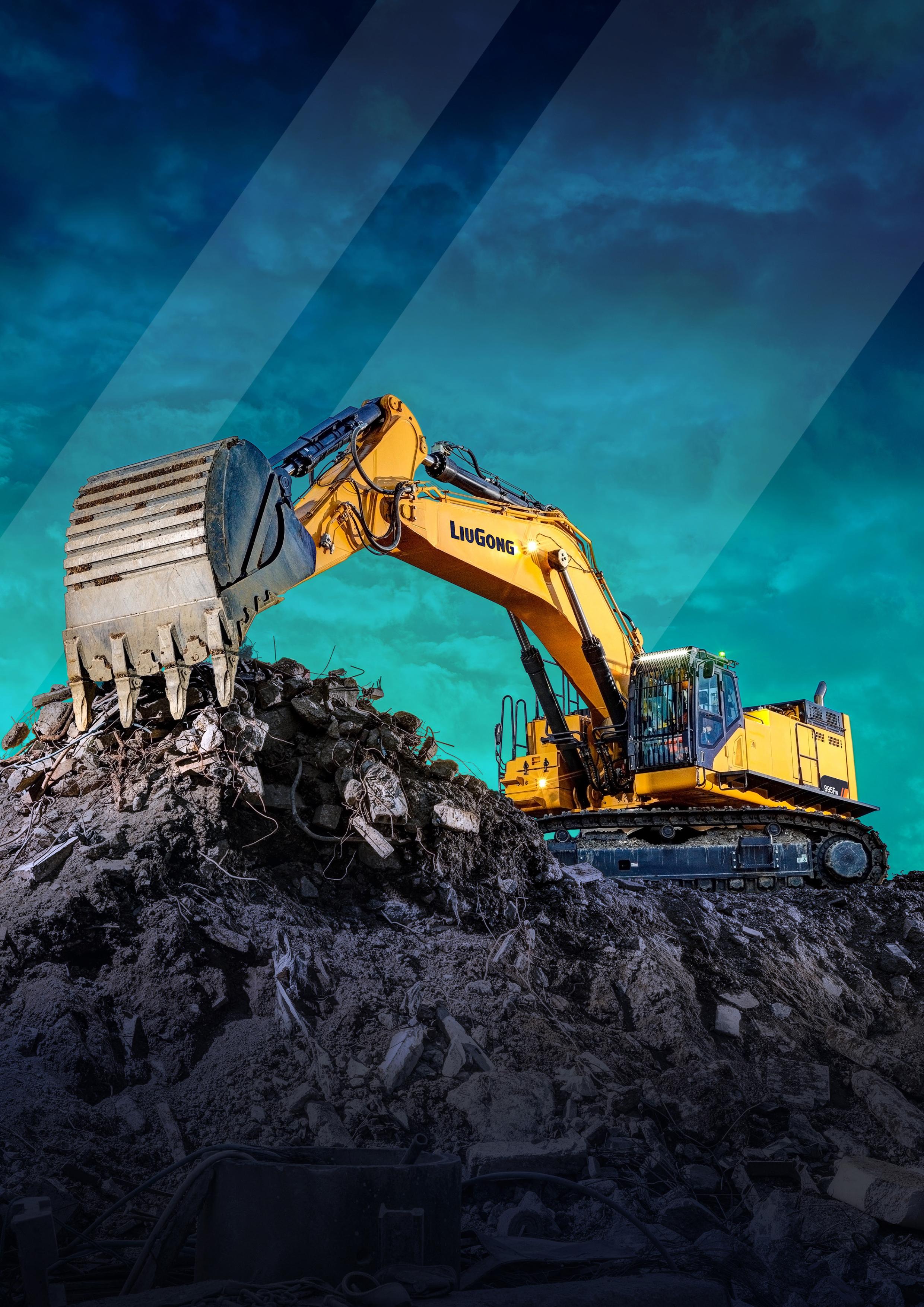

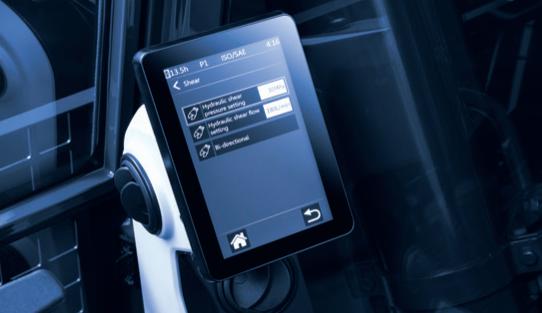
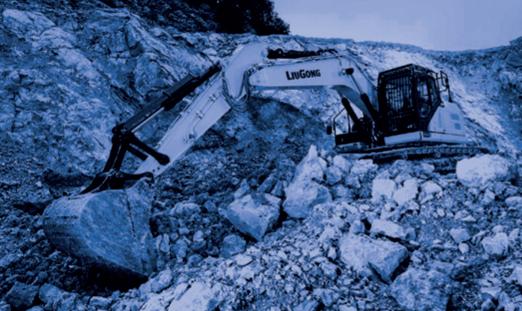

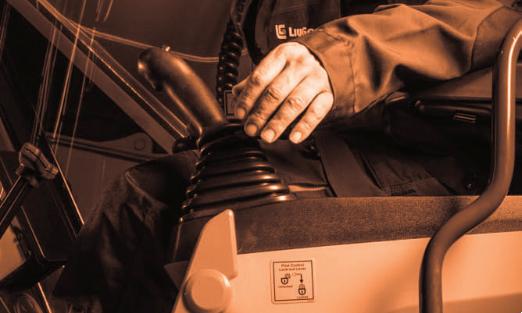

info@liugong.co.uk 02392123392 www.liugong.co.uk FROM1.8TO95TONNESTHEALLNEWF-SERIESBREAKSTHEMOULD. SCANTHE QRCODETO DISCOVERTHE DIFFERENCE GROUND BREAKING DESIGN TOUGHNESS CONTRÔL INTELLIGENCE
Mental Health Awareness Week fell between issues of Demolition Hub and we used that week to launch our new mental health charity fundraiser DEMOLISTEN
DEMOLISTEN is the only mental health charity fundraiser specifically aimed at the UK demolition industry, supported and administered by construction mental health champions Mates in Mind, who we have worked with since the inaugural British Demolition Awards in 2018.
After almost 10 years working on the media side of the demolition industry and three years of Demolition Hub, I wanted to give something back and within 24 hours we got our first 12-month contractor supporter. Thanks go to Metro Deconstruction Services Ltd for supporting us and the industry. You can find out more about this on pages 8-9. The accompanying website, DemoListen.info will be going live imminently. If you want to get involved please do let me know.
Luke Chaplin and I have been on three site visits in a new feature we call Demolition Hub On Site. We visited Burke Demolition in Worthing, Strip-Out Solutions in Brighton and Lancebox on a strip-out and high reach job in north London. This will be an ongoing feature so if you want us on your site in the next couple of months, do let me know.
The new Demolition Hub website went live between issues and I invite you to take a look: DemolitionHub.com. After three years of the old site, it was time for an update to continue to offer you the best possible experience.


Also in this issue we are delighted to welcome Alfie Burke of Burke Demolition for our DEMOLITION DISCUSSION on pages 18 as well as Jack Rumbol of HAVIO for our SUPPLIER TALK on pages 52.
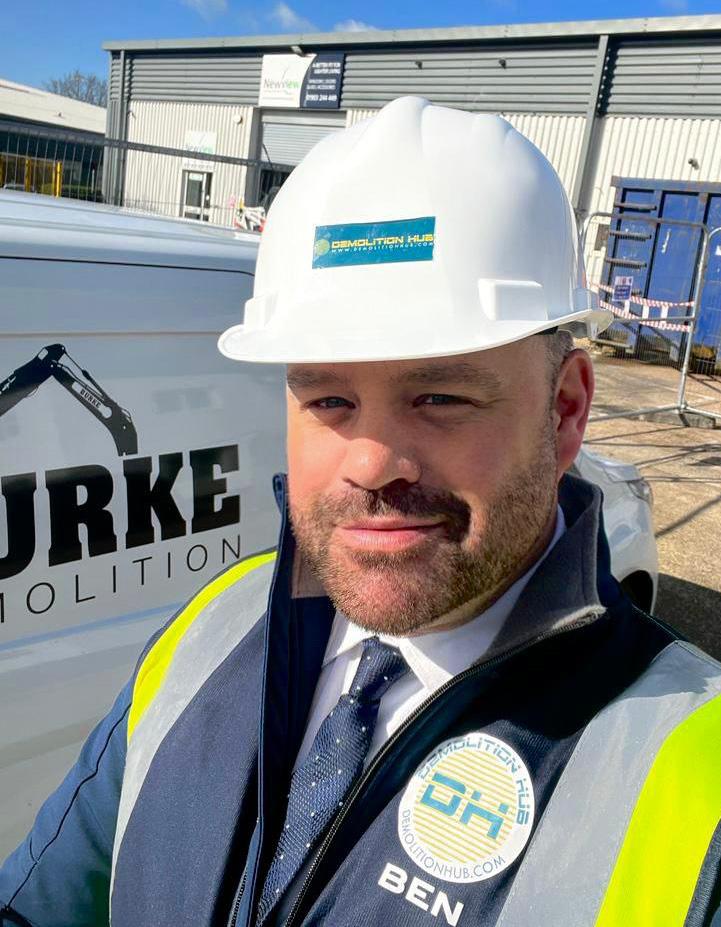
We have a busy June, kicking off with another visit to our friends Kocurek Excavators and whilst in Ipswich I’ll be visiting Guy Nicholls CEO of TRU7. I am then flying over to Brussels for the second Asbestonomy, back for Plantworx, then straight from the East of England Arena to Amsterdam for my third industry association AGM of the year with the EDA. All just in time for a VIP open day with Molson and their many fantastic brands.
I really hope you enjoy our 17th issue and as ever I welcome your comments and feedback to ben@globalnews.media.
PUBLISHER
Ben Chambers ben@globalnews.media
01903 952 648
EDITOR
Toby Wilsdon toby@globalnews.media
01903 952 645
DEMOLITION EDITOR
Paul Argent paul@globalnews.media
07813 064 590
COLUMNISTS
Richard Dolman Jaqueline O’Donovan
Terry Lloyd
SALES
Luke Chaplin luke@globalnews.media 01903 952 643
DESIGN


Nicki Chambers nic@globalnews.media
Joe Bers joe@globalnews.media
Alex Jarrett
PRODUCED & PUBLISHED BY Global News Media Ltd
Suites 5 & 6, Chapel House, 1-6 Chapel Road, Worthing, West Sussex BN11 1EX ben@chambers.media
01903 952 640
Demolition Hub is a proud supporter of the National Demolition Association Demolition Hub is the media partner for the European Demolition Association and the Indian Demolition Association


Demolition Hub is published six times a year. The subscription rate is £60 per year. Subscription records are maintained at Global News Media Ltd, Suites 5 & 6, Chapel House, 1-6 Chapel Road, Worthing, West Sussex BN11 1EX.
Ben Chambers Publisher, Demolition Hub ben@chambers.media
Articles and information contained in this publication are the copyright of Global News Media Ltd and may not be reproduced in any form without the written permission of the publishers. The publishers cannot accept responsibility for loss of, or damage to, uncommissioned photographs or manuscripts.
DemolitionHUB Magazine | 3
demolitionhub.com
18
10
EUROPEAN DEMOLITION ASSOCIATION NEWS
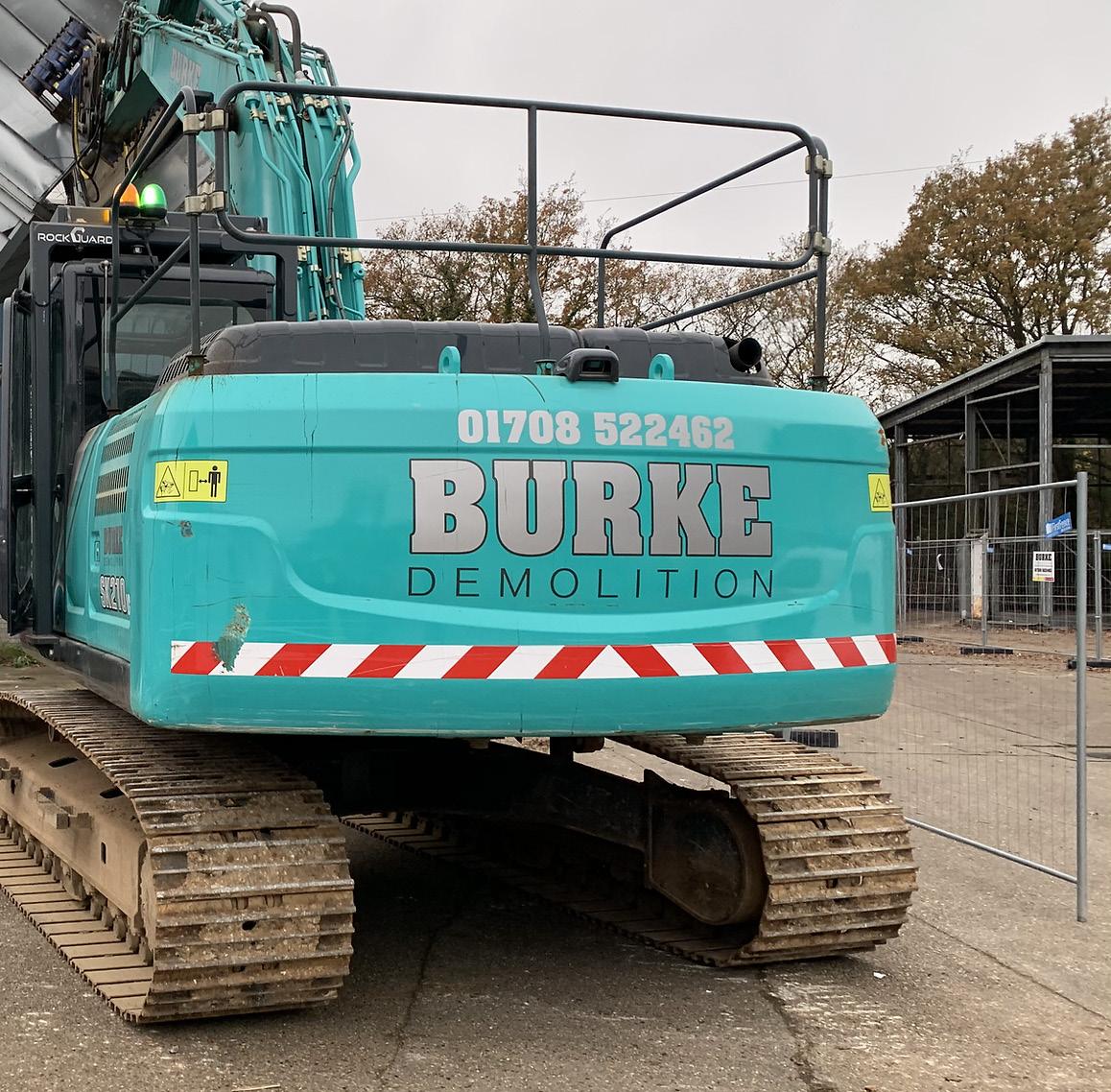
EDA welcomes KEMROC to the fold
Be a part of the European Circular Economy Awards 2024
HERCAL goes one step further in its commitment for circular economy
Be a part of the European Commission’s survey about End of Waste
EDA takes step towards recycling sector with new projects
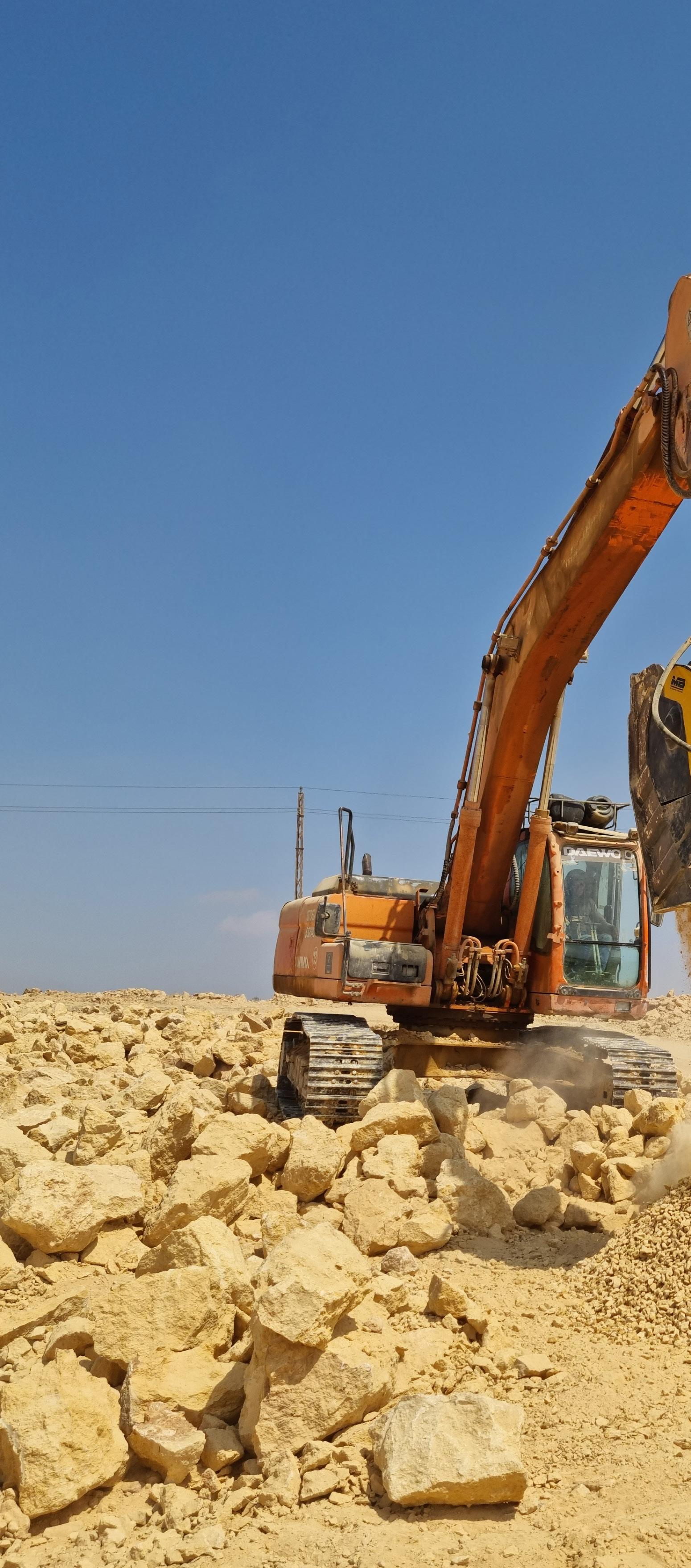
SEDDRe’s Annual Convention in Tours
14
NATIONAL DEMOLITION ASSOCIATION NEWS
Hiring the right demolition contractor
18
DEMOLITION DISCUSSION

With Alfie Burke of Burke Demolition
22 PROFILE
Kocurek: 40 years and never out of reach
26 CASE STUDY
Brownfield site, by Paul Argent
30 TRAINING FEATURE PERSES
Prime Safety
Simon Barlow of Rye Demolition argues the future of demolition depends on apprenticeships Go straight to the top with NDTG
Phil Eves of BAM Construction on creating a new generation of construction workers
6
NEWS
DECONTA Group joins EDI
Worsley Plant breaks ground with biggest ever Plantworx
Hilti at ICRA 2023 – envisioning the future of robotic autonomy at the construction site
8 DEMOLISTEN
Demolition Hub launches charity fundraiser targeted at mental health problems in the UK demolition industry
40 CASE STUDY
AW Demolition celebrates 10 years in business, by Paul Argent
44
DEMOLITION HUB ON SITE
Getting on site with the best of Britain’s contractors
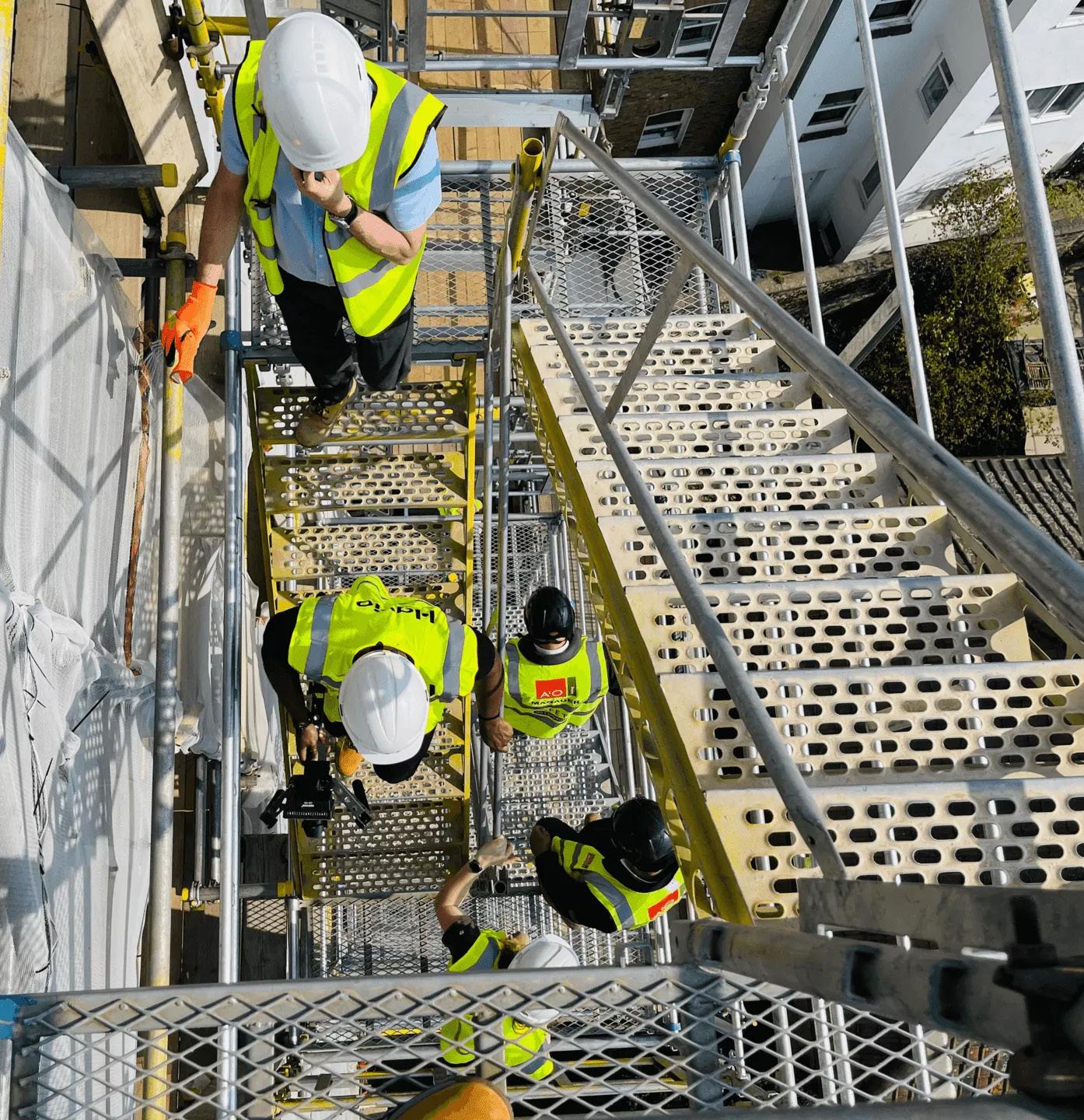
52 SUPPLIER TALK
With Jack Rumbol of Havio
demolitionhub.com
CONTENTS
4 | DemolitionHUB Magazine
54
60 RECYCLING FEATURE
Are you prepared for changes to the rules governing waste wood?
Busy times ahead for metal recyclers
The British Plastics Federation
Interview with A1 Group
HWM Group celebrating 13 years’ supporting the construction industry
Interview with Hazardous Waste Management
Interview with Inmalo
Interview with The Metal Recycling Group Collard Group raises the recycling bar
£3m JCB investment fuels EMR’s greener future
Interview with Sims Metal
Interview with Ward
Interview with Powerday PLC
Powerday sets ambitious sustainability targets
Interview with TotalWM
96 CASE STUDY
98
RECRUITMENT FEATURE
Featuring:
• City Site Solutions – Jack Burrows


• The Labour Desk Ltd
• Spencer Riley
104 INDUSTRY
Construction start levels continue to fall
Clean energy for demolition and construction sites, by John Campbell
The Big Help Out: Cawarden answers the King’s call
CASE European Roadshow
DEVELON fleet helps clear site of former Innocenti factory
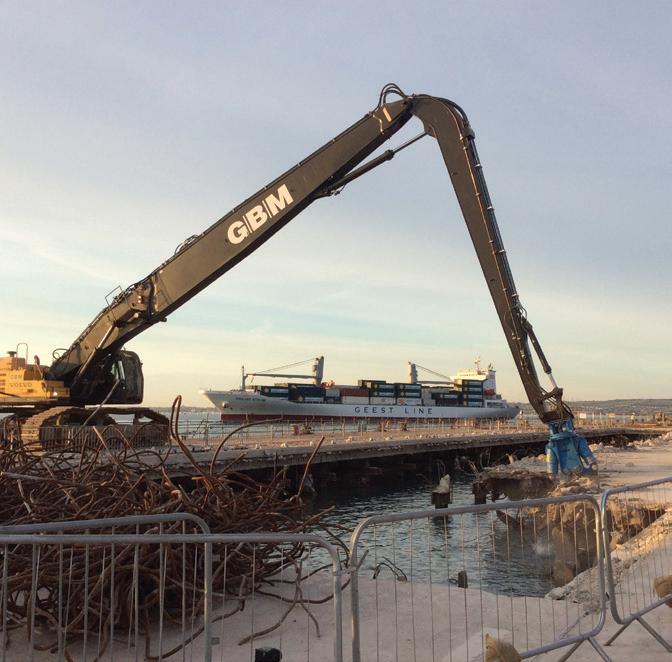
Keestrack plug-in electric crushing and screening used to build house out of 75% recycled concrete and demolition waste
118
OPINION
Working to net zero, by Richard Dolman

Working the overlap – piling and demolition synergies, by John Chick
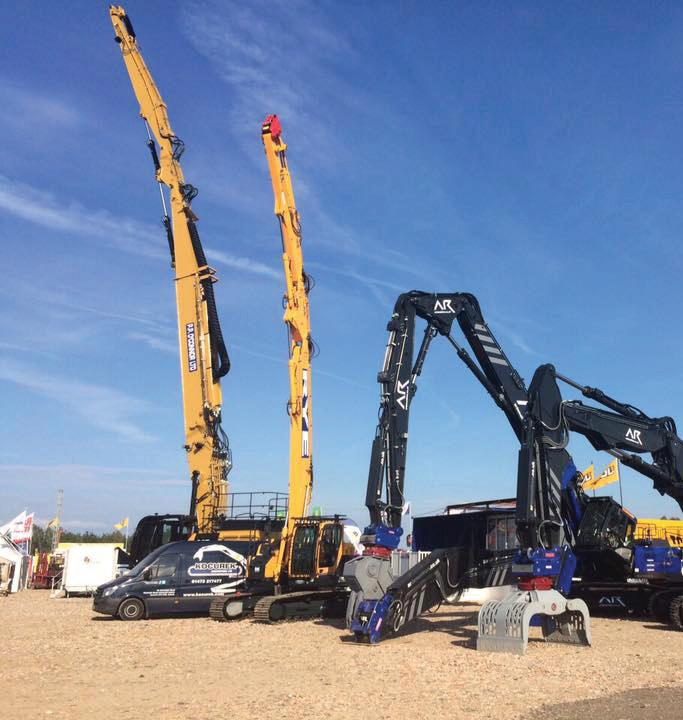
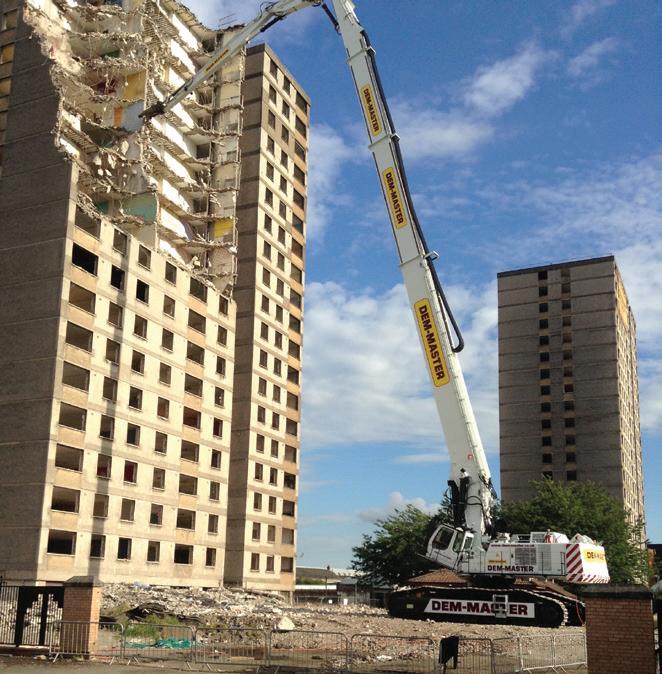
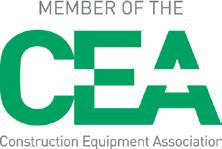
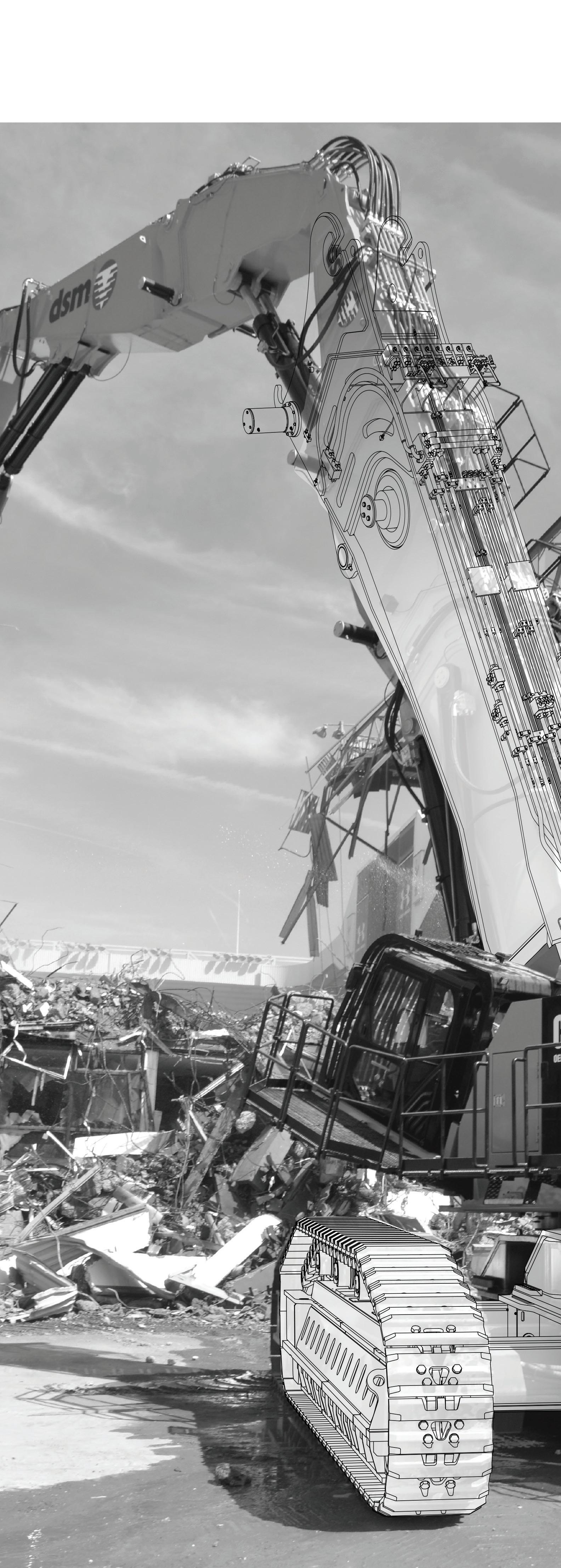
Looking up, by Terry Lloyd
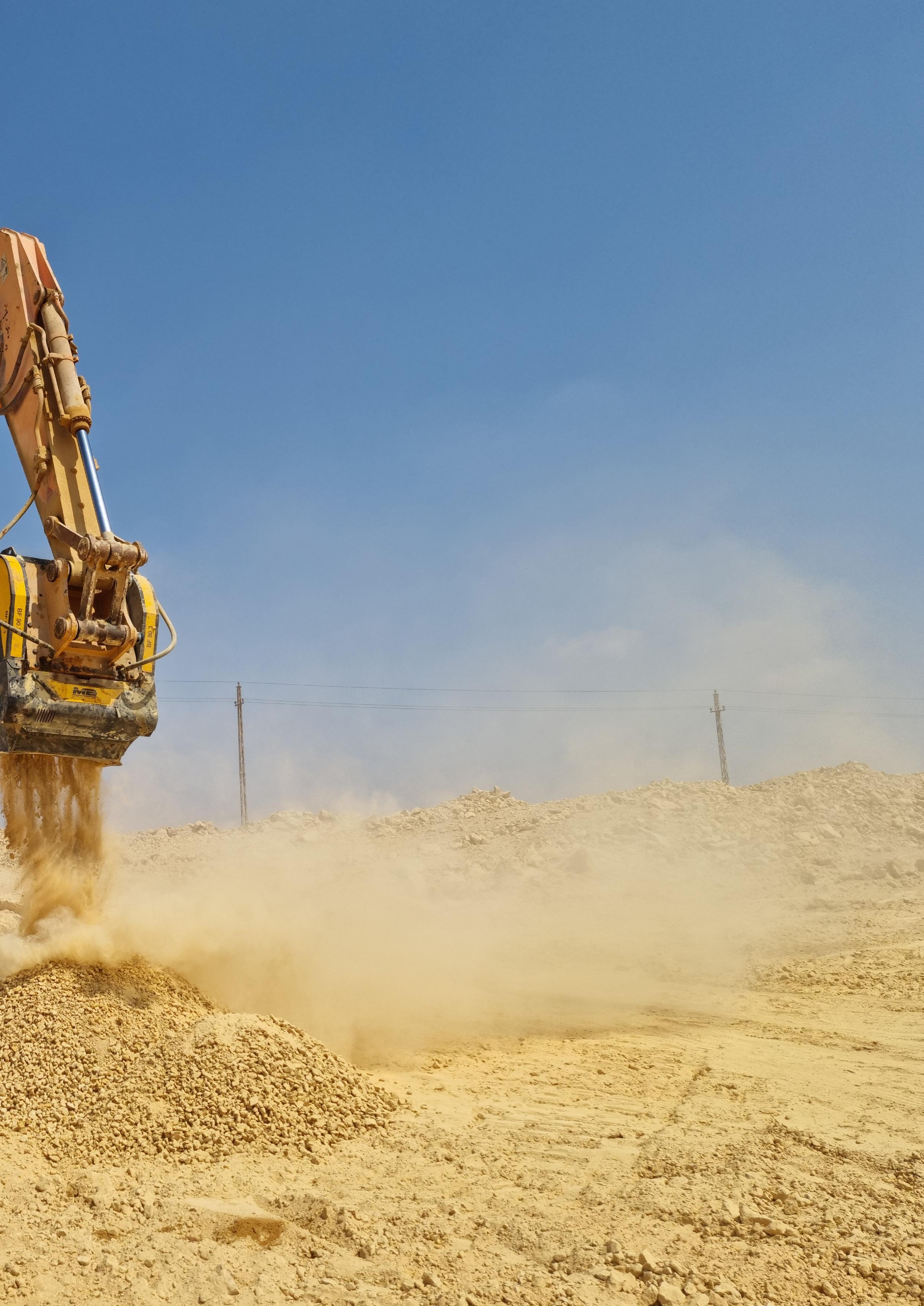
demolitionhub.com Industry leaders in design and manufacture of bespoke excavator equipment and modifications Kocurek Excavators Ltd. 24 Arkwright Road Hadleigh Road Ind Est, Ipswich, Suffolk IP2 0UB t: +44 (0) 1473 217477 e: sales@kocurek.co.uk www.kocurek.com ALWAYS IN REACH
Wrekin ball, by Paul Argent
DECONTA Group joins EDI

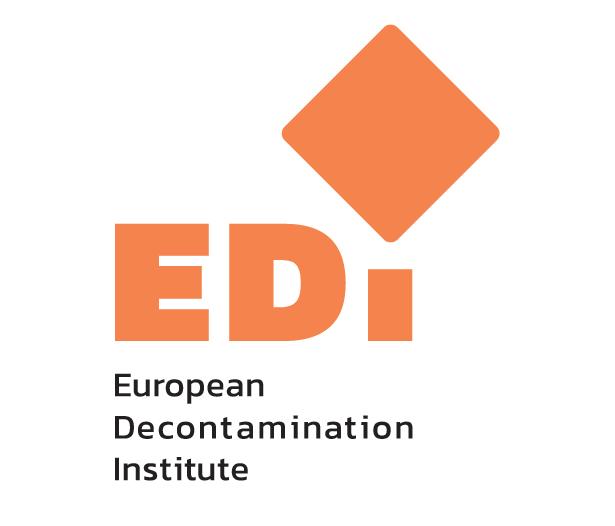

DECONTA group, based in Isselburg, Germany, has joined the European Decontamination Institute. A medium sized machine manufacturer with over 20 years’ experience, it has operations in Spain, Australia, France, Switzerland and Italy.

Worsley Plant breaks ground with biggest ever Plantworx
The company develops devices, systems and customised products for decontamination, the handling of dust and mobile techniques for civil protection, disaster control and the medical sector.
DECONTA provides a variety of services such as project planning, repair and maintenance work. Its product catalogue includes negative pressure units, water management, air purifiers and dust protection.
DECONTA defines its values as reliability, quality, innovation and collaboration with its clients and is active in international events and publications.
Worsley Plant will be showcasing its biggest ever range of hydraulic attachments including crushing and screening buckets from REMU and MB, as well as demolition attachments from ROTAR and magnets from DYNASET. It will also be showing the Fully Automatic Quickcoupler System from LEHNHOFF and OILQUICK. The focus this year will be on breakers from MONTABERT, as the company has launched its biggest ever competition to win a Montabert SD08 Breaker worth over £3,000.

To be in with a chance of winning this powerful and versatile piece of kit is simple.
Tickets will be on sale for £25 in the lead up to and during the show.
On the last day of Plantworx, numbered balls will be spinning round in a screening bucket. Managing Director, Sean Heron will then invite a member of the audience to choose the winning ball. You can then have a brand new breaker delivered to your company the following week. Find

out more about the competition at www.worsleyplant.co.uk
visit
D-JB8 at the show.
or
Stand
demolitionhub.com 6 | DemolitionHUB Magazine news NEWS
Hilti at ICRA 2023 – envisioning the future of robotic autonomy at the construction site
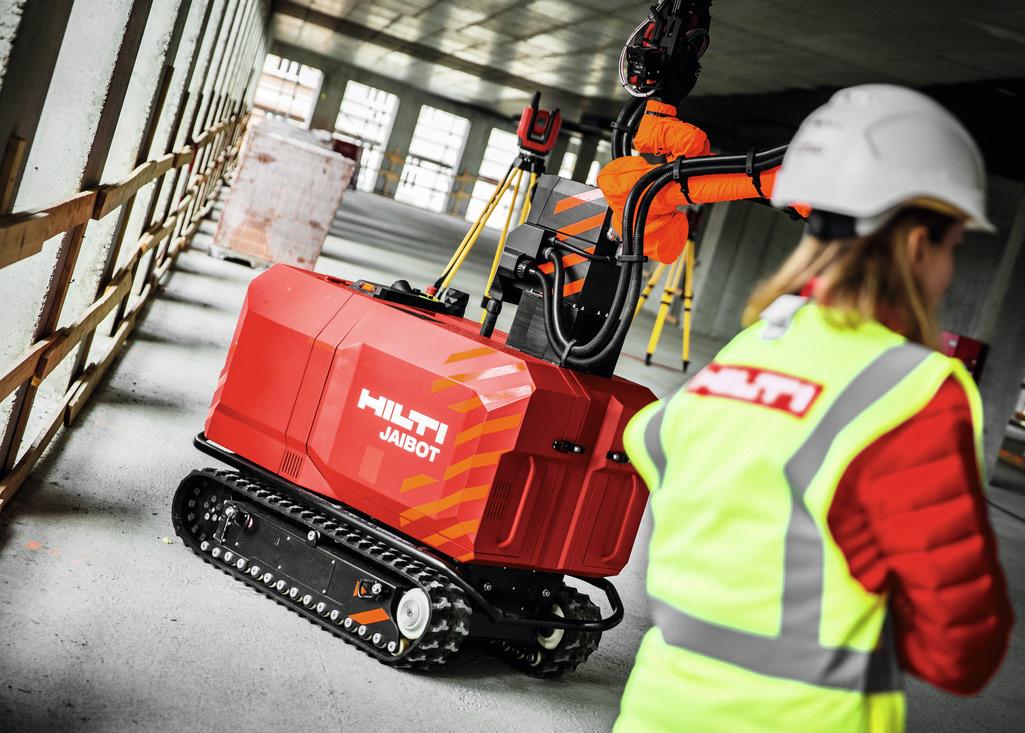
Hilti Group demonstrated its commitment to being a trailblazer in advanced technologies research with an increased presence at the world’s leading robotics research conference, the IEEE International Conference on Robotics and Automation (ICRA), in London from 29 May to 2 June. Hilti joined an impressive roster of sponsors including Apple, Boston Dynamics AI Institute, Sony and Dyson.
Hilti’s own innovations were on show at stand H-16, with visitors able to learn more about the company’s Jaibot, the world’s first semi-autonomous ceiling drilling robot. Designed to help lessen pressure on workers tasked with overhead jobs, the Hilti Jaibot is a semi-autonomous drilling machine capable of eight hours of drilling between charges. Users can upload data to the Hilti cloud, including the layout of a space and number of holes required, and the construction robot then drills thousands of holes autonomously according to the digital drilling plan. This results in increased drilling accuracy but also reduces the amount of manual labour required, helping workers stay healthier and more productive.
Hilti’s appearance at the event follows the announcement of a strategic partnership with San Francisco-based Canvas, a construction robotics company founded in 2017 by veterans of Boston Dynamics, MIT and Stanford that has developed a robotic drywalling solution aiming to empower people to build in bold new ways. The partnership marks the beginning of a significant new step in robotics innovation after the launch of the Hilti Jaibot. As a further commitment to leading the
field Hilti as a group now invests 6-7% of its net global revenue to research and development in innovation.
Members of Hilti’s Corporate Research and Technology (CR&T) Division were in attendance to showcase the Hilti Jaibot and scout for both technology and talent. The CR&T department is Hilti’s own technology-disruption innovation engine which pushes the bounds of what is scientifically possible to deploy at a construction site – to not only boost human productivity and make tools more intelligent and intuitive to use, but also to help define what the future of construction will look like in the years to come.
In an independent talk at the conference, CR&T’s Lavinia Pedrollo shared her perspective on how Hilti drives inclusion and diversity at the workplace. The team also co-organised a workshop on the Future of Construction, which hosted a wide range of speakers
across academia and industry, research presentations.

The winners of the Hilti SLAM Challenge 2023 were announced at the workshop, although this had not yet occurred at the time of writing. The HILTI SLAM Challenge 2023 is a competition that allows for benchmarking of the most suitable software algorithms for positioning and mapping. This in turn enables the next generation of high speed and high accuracy measurement-based applications in construction – for both robots and humans.
Together with the University of Zürich, Hilti has created a benchmark that focuses on the SLAM (Simultaneous Localisation and Mapping) problem in real construction site environments with challenging features. This year, Hilti introduced multi-session SLAM as a new theme in addition to single-session SLAM, spanning both handheld, as well as robotmounted sensor suites.
demolitionhub.com DemolitionHUB Magazine | 7 news
Demolition Hub launches mental health charity fundraiser targeted at UK demolition industry
How you can help
Initially we want to offer three recognised tiers for those wanting to support DEMOLISTEN on an ongoing basis.



GOLD – £2,000 per year
SILVER – £1,000 per year
BRONZE – £500 per year
Coinciding with last month’s Mental Health Awareness week, I was delighted to announce Demolition Hub’s project to support the UK demolition industry and its workforce.
In conjunction with construction industry mental health charity Mates in Mind, Demolition Hub has created the demolition-specific mental health fund, DEMOLISTEN.
As the publisher of Demolition Hub magazine, I have got to know a lot of people in the industry, many of whom have been featured over the seventeen issues. Many of you are now friends.
I enjoy conducting site visits with ever more contractors, learning about and publicising their work, all the while building and maintaining relationships.
We have been well supported and as we approach our third anniversary with our reach ever growing it is time for us to put something back, in line with our #championingdemoliton mantra.
In light of the prevalence of mental health issues, including suicide, in the industry, the

objective of DEMOLISTEN is to support those working in demolition. We are not here to rip up the rule book and do things differently. We think Mates in Mind has got it spot on. Our role is to help them in targeting demolition.
All monies raised under the DEMOLISTEN banner will go directly to Mates in Mind. We want to use our demolition reach to get behind the only mental health charity specifically for the UK construction industry and to listen to those otherwise suffering in silence. Ultimately, this means saving lives.
So, I ask readers, contractors, OEMs, ISPs, associations and individuals to help make this a huge success for this industry. The dedicated website is in development, but keep checking in (www.demolisten.info) and for now please register your interest with me by email (ben@globalnews.media) as we work around how you can support DEMOLISTEN.
Mates in Mind will receive 100% of your donation. The DEMOLISTEN banner allows us
all to be able to see what the UK demolition industry has raised. Those choosing to donate on an annual basis will receive branding for email signatures, signage for vehicles and hoardings as well as being listed on the DEMOLISTEN website. There are a few more things to sort out but it was important that we got this out during Mental Health Awareness Week. This leaves me to thank Managing Director of Mates in Mind, Sarah Meek for sharing Demolition Hub’s vision of a dedicated fund for the demolition industry.
Sarah had a few kind words for us: “We are very pleased to be working in partnership with DEMOLISTEN founded by Demolition Hub to support the mental health needs of the demolition industry.
“Our long-established relationship with the sector has culminated in this new venture launching today, which will see a range of fundraising activities supporting our charity in an exciting new collaboration while recognising the mental health needs of those working in the industry through proactive and preventative steps.”

demolitionhub.com 8 | DemolitionHUB Magazine
Mental health support for the demolition industry brought to you by:


To find out more visit www.demolisten.info


Demolition Hub will be with the EDA and its members in June for the AGM



EDA welcomes KEMROC to the fold
KEMROC, based in Thuringia, Germany, has more than 20 years of experience in developing and manufacturing cutter attachments for excavators and backhoe loaders.

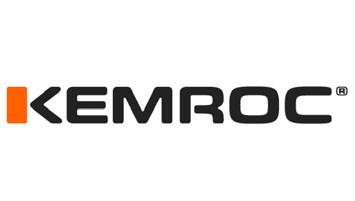
The company’s catalogue offers a wide range of special milling attachments, such as rotary drum cutters, cutter wheels and chain trenchers. These products have a variety of applications, including trenching, demolition, renovation, tunnelling and
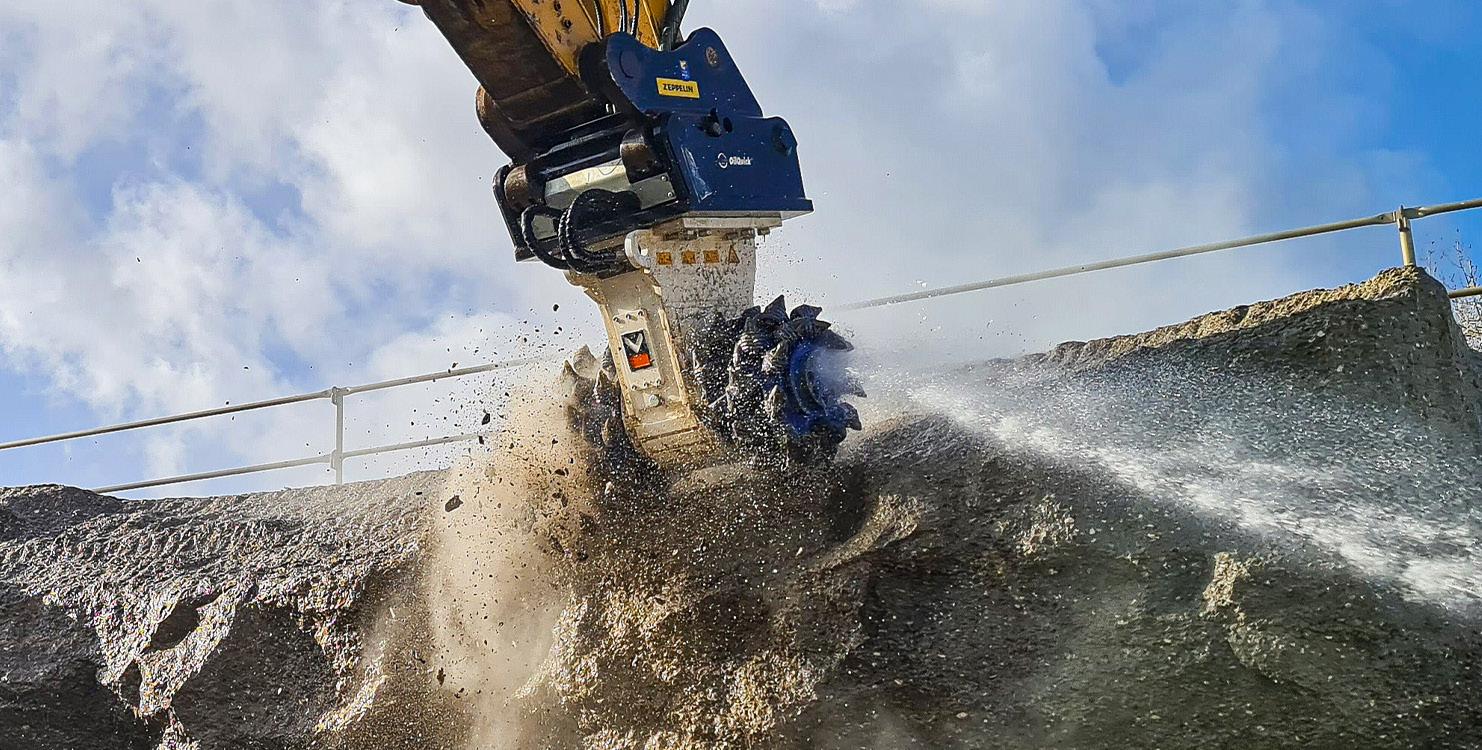
mining and quarrying, among others.
KEMROC applies its years of experience in the field to better the development of the technology used in its products. The safe removal of any material, including steel, concrete, rock or wood is one of the most important features of its products.
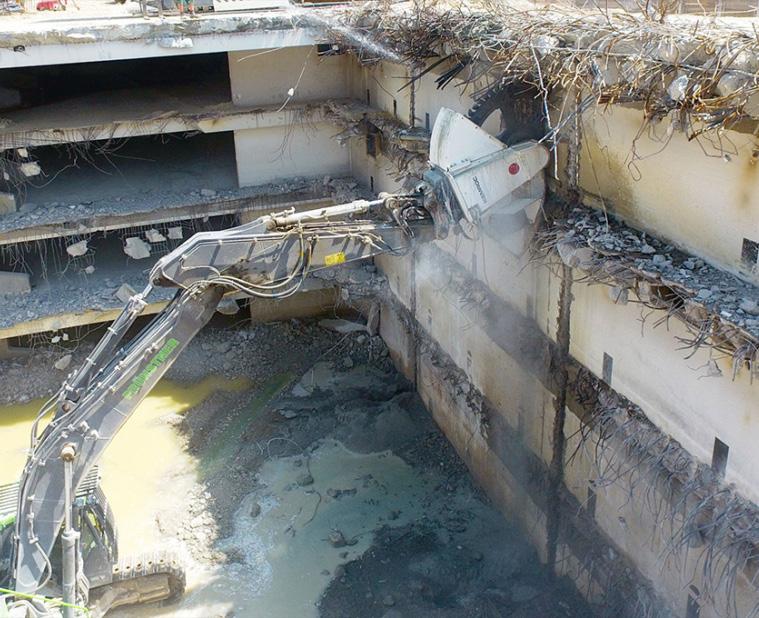
The defining qualities of KEMROC’s works and products are reliability, efficiency and durability.
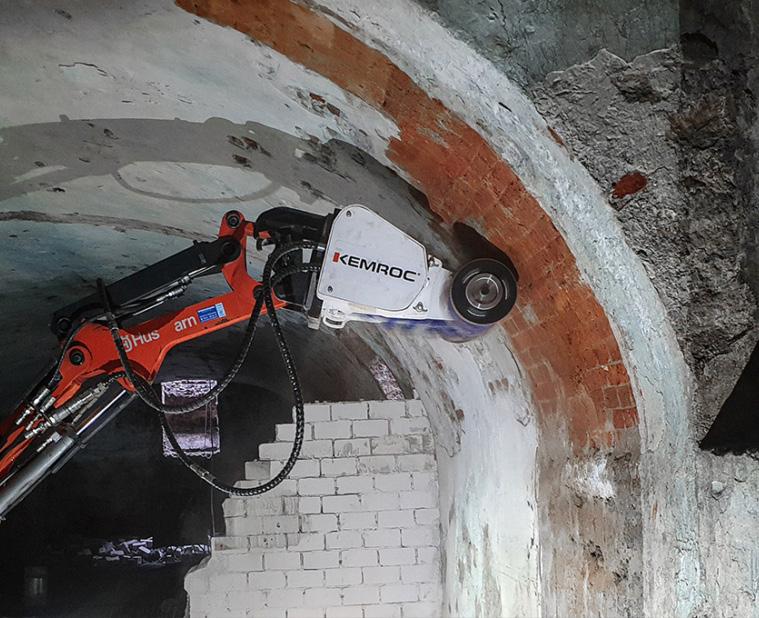
demolitionhub.com 10 | DemolitionHUB Magazine
Demolition Hub is the media partner for the European Demolition Association
WORLD’S BEST SELLING
QUICK COUPLER
OQC – FULLY AUTOMATIC QUICK COUPLER SYSTEMS FOR MATERIAL HANDLING MACHINES.
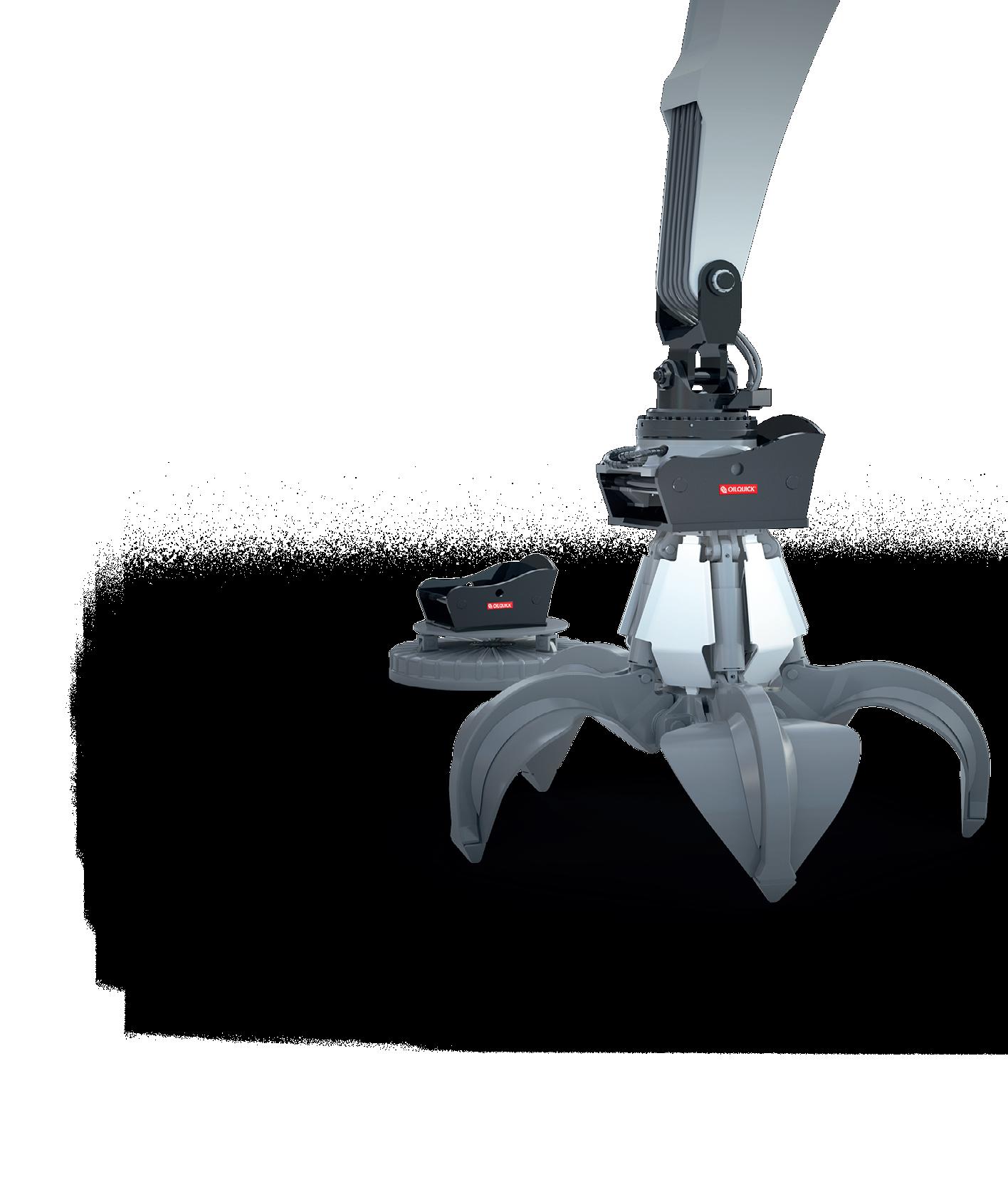
We offer the world‘s best-selling quick coupler system. We have decades of experience and testing behind us. Our solutions work and you get an outstanding combination of quality, performance and safety.
•
• Lightning fast change of hydraulic, electrical and mechanical attachments from inside the cab.
• Always the right attachment for the job.
• No staff around the machine during tool changes.
• Improved safety.
• Meets and exceeds safety standards globally.


• Reduce the number of machines on the site.


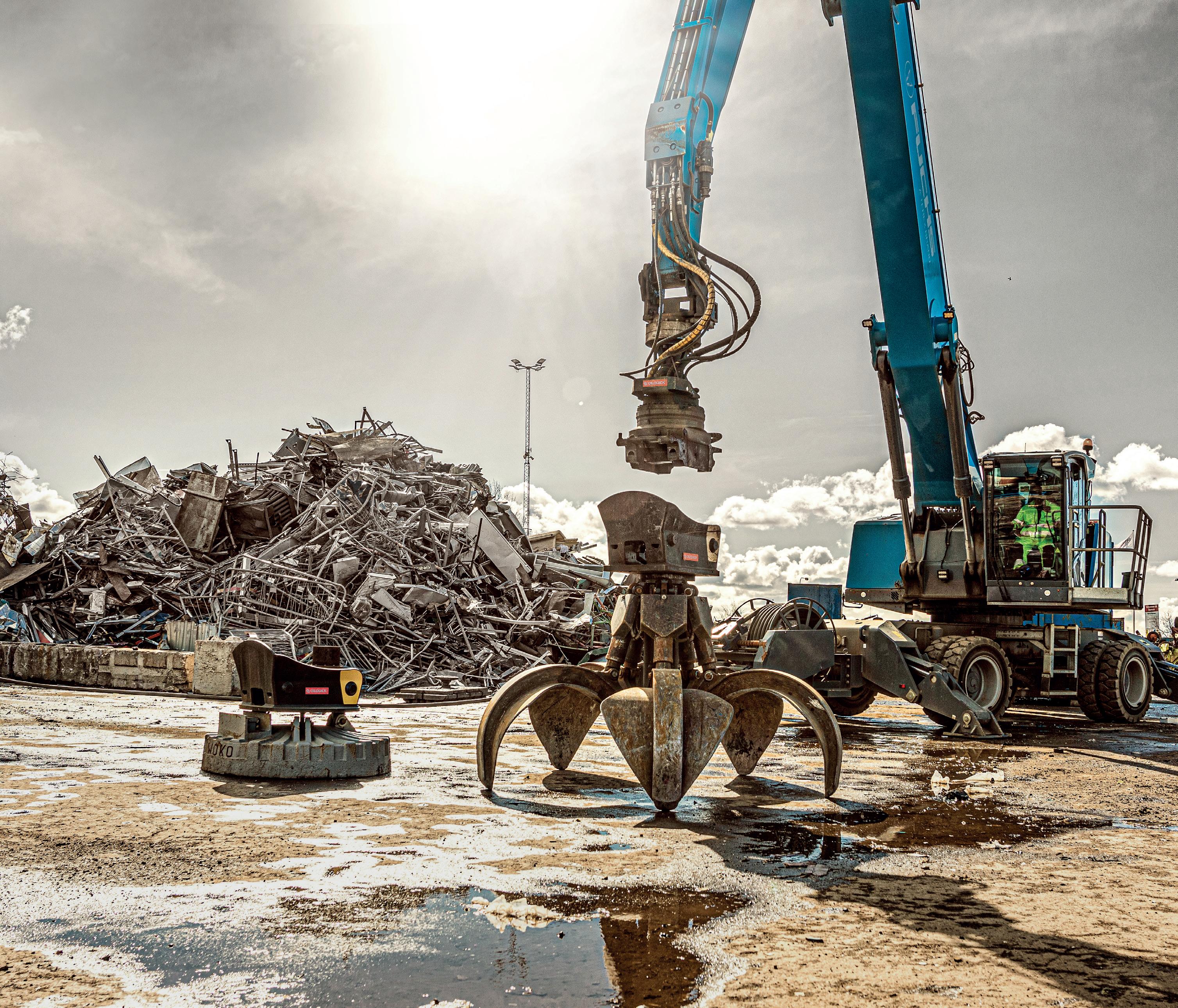
•
•
•
•
OILQUICK – SNABBT, ENKELT, EFFEKTIVT OCH SÄKERT oilquick.com Follow us Steve Parker: +44 (0)7375 644359 BPH Attachments: Stand B-FA3b. Blue Machinery: Stand B-EC3 Worsley Plant: Stand D-JB8 & D-JC2 SEE OUR PRODUCTS AT PLANT WORX IN PETERBOROUGH:
Be a part of the European Circular Economy Awards 2024
The European Demolition Association, EDA, began May with a new initiative: the European Circular Economy in Construction Awards.
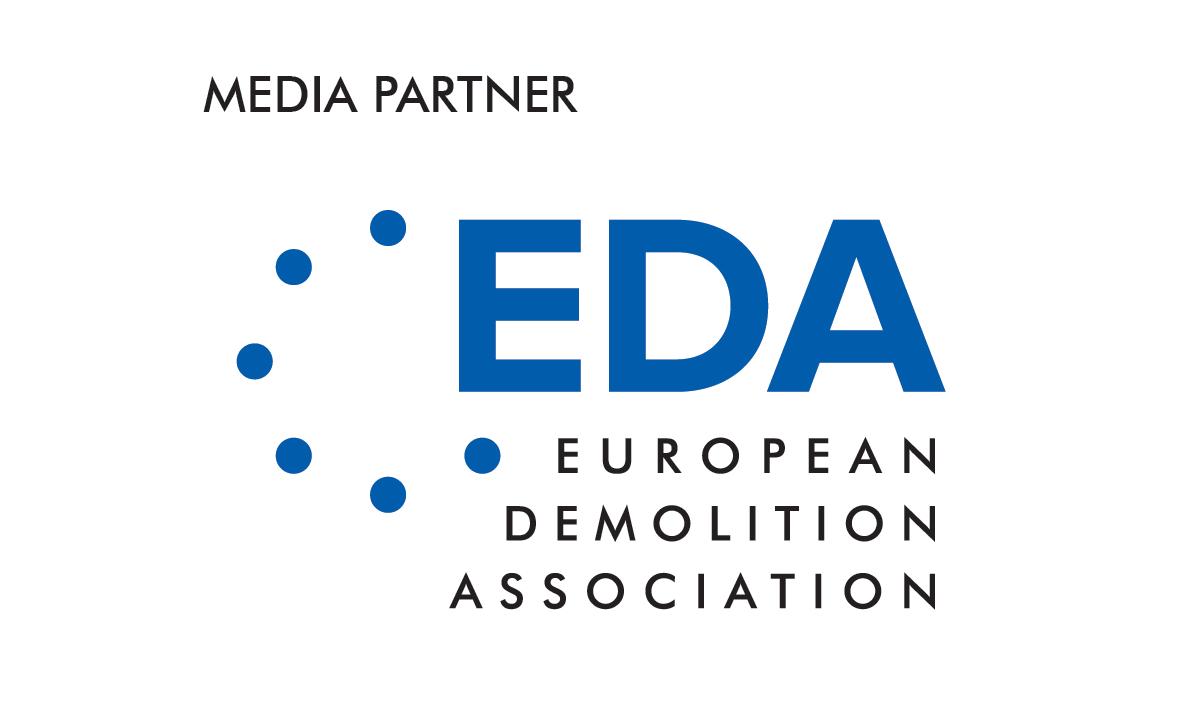

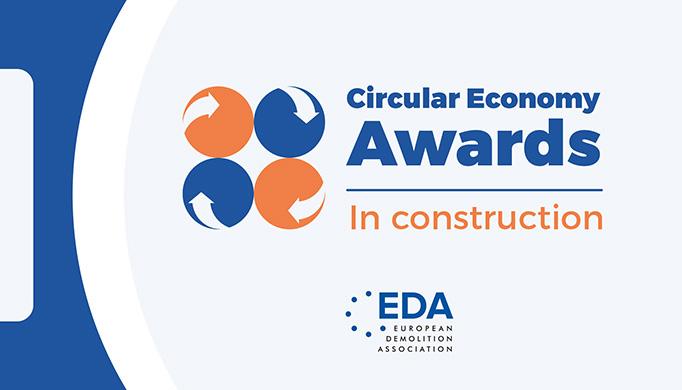
The awards, which will start in 2024, aim to bring visibility to projects developed in Europe by students related to Demolition, Decontamination and Recycling (DDR) activities. Its goals also include sharing knowledge and idea, as well as attracting new talents to the DDR sector.
Any student enrolled in a Bachelor, Master or PhD programme, or any other course offered by an educational institution, can submit their projects, as long as they are related to demolition, decontamination or the recycling industry.
The first phase of the competition is just beginning.
To participate in the European Circular Economy Awards, every National Association must first organise a competition at a domestic level, setting requirements they see fit. Once it’s done, they will select the three best projects, which will be submitted to the awards on a European level. The National Association must submit the selected entries before 31 December, 2023.

Every participant of the chosen works will be granted a free ticket to the EDA Annual Convention 2024, where the awards ceremony will take place.
HERCAL goes one step further in its commitment for circular economy
HERCAL DIGGERS, a company specialising in the circular demolition of buildings, warehouses and large industrial facilities, has started up the H-ZERO Plant in Terrassa (Barcelona). It’s the first valorisation plant in Spain that transforms
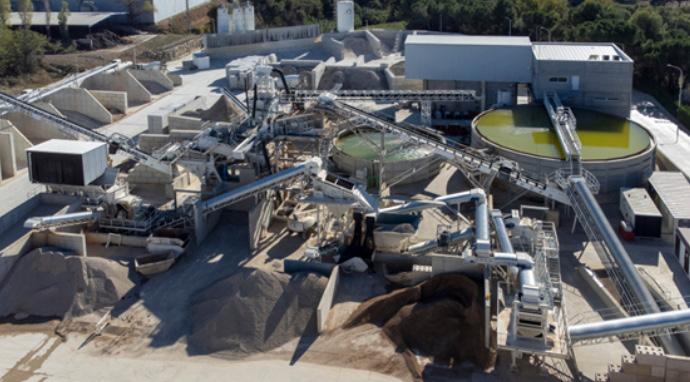
SEDDRe holds annual convention in Tours
Face-to-face events have returned in full swing, and in May, it was SEDDRe’s time to shine.
From 31 May to 1 June, the French Demolition, Decontamination and Recycling Association’s Annual event, Rencontre des Métiers, took place in Tours.
The event started with a visit to a selective deconstruction site. The Annual Convention offered conferences about a variety of topics, with some centred around the decontamination industry, such as a meeting about the evolution of asbestos regulations.
Recycling was another big topic of the year, with conferences about the transition to an efficient Extended Producer Responsibility (EPR). Lastly, came the presentation of the Innovation Awards.
www.seddre.fr

the use of quarries for the manufacture of sustainable concrete, reserving the use of natural aggregates for those applications that require it.
stone waste from demolition works into treated recycled aggregates suitable for use in the manufacture of sustainable concrete.
With this facility, HERCAL DIGGERS aims to reduce the need for landfill (controlled and uncontrolled) while rationalising
Demolition Hub is the media partner for the European Demolition Association
demolitionhub.com 12 | DemolitionHUB Magazine
The European Demolition Association has been an active participant in various European Commission projects. One of them is the upcoming Circular Economy Action Plan, as well as the updating of the Waste Framework Directive.

As a part of that initiative, the European Commission has put together a survey regarding the Construction and Demolition Waste (CDW) streams. The questionnaire aims to collect data and opinions of the companies, public administrations and national associations regarding this topic.
EDA members represent a unique first-hand source of information for this study, as their experience in the demolition and recycling fields is extremely valuable. Thus, EDA encourages all of its associates to participate
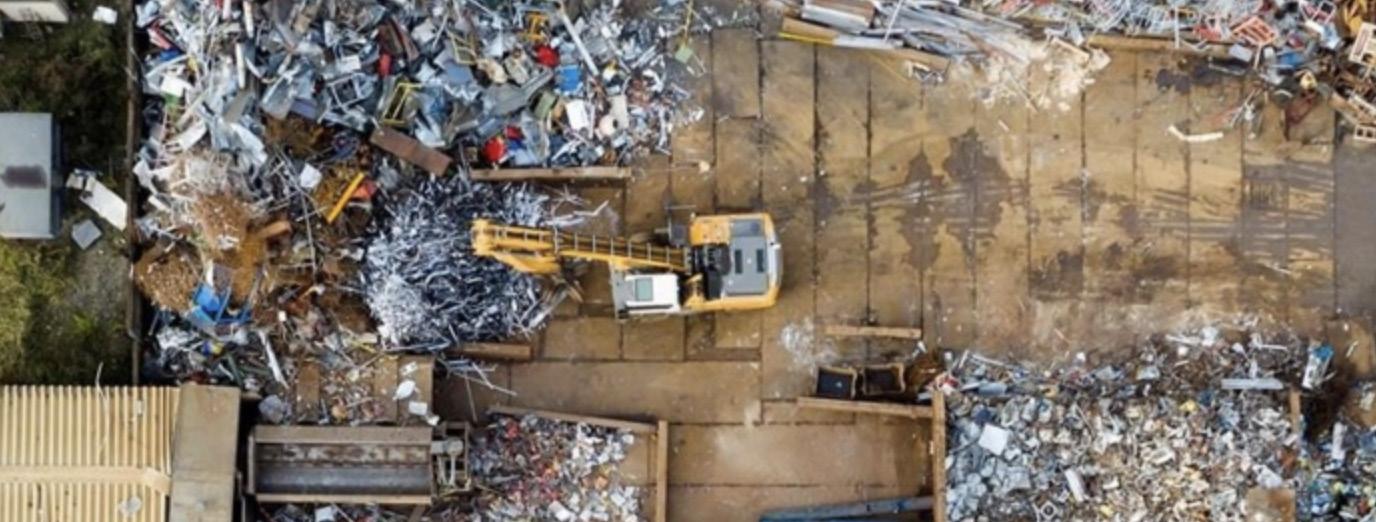
in the survey. It is available in several languages, including English, Spanish, Polish, French and German and only takes a few minutes to complete. The survey remains open until 31 August, 2023.
EDA takes step towards recycling sector with new projects
The European Demolition Association, EDA, was created in 1978 to connect industry professionals and help them share their knowledge and experience. However, in the 45 years since its creation, both the demolition sector and EDA have evolved significantly. One of the most important changes was the focus put on sustainability, green energy and recycling within the industry. As the public awareness of those questions grew, so did the effort put in by the demolition professionals to achieve waste reduction in construction.
In particular, in 2023 the
EDA has put in motion two projects related to recycling in demolition. The first is the Guide about Recycling Equipment for Construction and Demolition. This publication aims to support the circular economy in the industry by showcasing the use of the right equipment and machinery on construction sites.
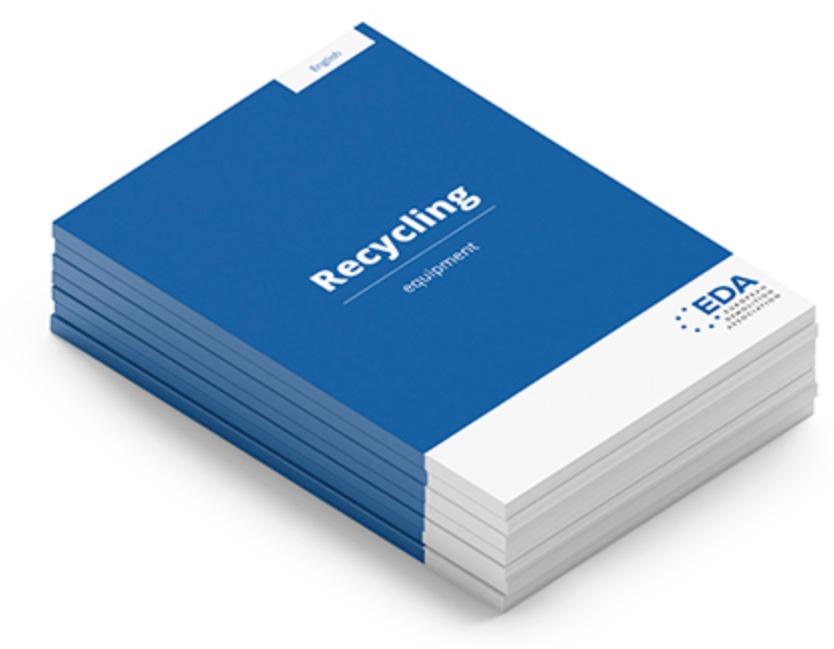
The EDA has expanded its working groups by creating a Working Group on Recycled Products. It will begin its course in September of this year. The publication related to it, the Guide About Recycled Products, will be
available to the public in early 2024.
With those projects, EDA contributes its experience, knowledge and resources to the betterment of the demolition industry.
www.europeandemolition.org/ library
Survey: https://survey123.arcgis.com/share/8448392683f34816835a945e31903408 demolitionhub.com DemolitionHUB Magazine | 13
Be a part of the European Commission’s survey about End of Waste
Hiring the right demolition contractor

Some of you may remember the collapse and subsequent deaths and injuries at the Salvation Army Store in Philadelphia. In another example, a demolition contractor subcontracted the demolition work at a power plant, hiring a “good” bridge blaster to bring down the boiler using explosives. Unfortunately, that bridge blaster did not know that boilers react differently. In addition to the Occupational Safety and Health Administration (OSHA) citations to the contractor after a fatality of an employee, a state public utility commission fined the utility owner
$5.5m for lack of oversight and poor vetting. This was one of numerous fatalities and injuries at the same site, magnifying the problem.
Are you willing to risk your company or lives by not doing a thorough check of the contractor you are going to hire? You can minimize the risk by learning what those risks might be by properly vetting your potential contractors. Sometimes using a lesser qualified contractor that is less expensive may be worth the risk. That is your decision to make. However, you must be aware of the potential risks at hand.
Introduction

Virtually every structure built by man has a finite life span and will need to be demolished or deconstructed at some point in time, usually to be replaced by a new structure. Making the decision to conduct demolition activities can be a difficult one, as demolition can come with a hefty implementation cost, the loss of jobs or, worse, the loss of the business. The manner in which the demolition or deconstruction is done has an impact on worker and public safety, the environment and the community.
To those outside of the demolition industry, demolition


demolitionhub.com 14 | DemolitionHUB Magazine
is often viewed as “reverse construction” and is typically visualised by a wrecking ball or other large pieces of equipment. However, demolition takes many forms and is so much more than that simple definition. From removing an internal, non load-bearing partition wall to a complete demolition, the rehabilitation of a redundant mining site or the implosion of an inner city high rise, the forms of demolition are extensive.
Regardless of the scope and complexity of a project, all existing structures must be demolished safely and properly. Although many contractors may be capable of performing simple projects safely, such as removing a shed or a carport, a qualified demolition company can do any project that is more complex. The question for the owner of the project is, therefore, “How do I identify the right demolition contractor for this job?”
Demolition expertise
The true strength of a good demolition company lies in the skills of its personnel. A good demolition contractor has trained, experienced workers, with appropriate licenses and certifications in place as needed. The workers know how to help plan a job, follow the plan, and do the work safely and productively.
Upfront planning and preparation for both small and large demolition jobs involves intensive analysis and in-depth examination of the structure and the surrounding area. This effort often means reverseengineering structural assessments derived from the initial investigation to best assess the primary characteristics and stability of such structures and derive from this the best methodology to be used during any demolition operation. The information generated during the assessment and planning phase is then used to verify whether the
Article: https://rb.gy/942vw
anticipated methods are appropriate and to anticipate the structure’s response during dismantling operations. This process is critical, as fully detailed as-built information is often not available. A good demolition contractor has a team that has extensive knowledge of demolition techniques and is very good at creating a comprehensive demolition plan that will get the job done on time and without injury or incident.
Safety
If you are familiar with demolition, then you may know that the vast majority of demolition work is not simply blowing things up. Instead, it is a series of complex operations to bring down a structure in a safe manner. This work comes with high risk and is fundamentally dangerous. However, risk can be minimised by hiring a good, qualified demolition contractor.
The good demolition contractor considers safety of the workers and the surrounding public in every step of the demolition process. All federal, state and municipal regulations that have a bearing on safety are carefully followed, at a minimum, to ensure there are no unintended consequences. A job hazard analysis is conducted and a site safety plan is developed and put in place. All employees are informed about not only the demolition plan, but also the site safety plan that accompanies it. A good demolition contractor finds injury to any worker or member of the public unacceptable and does everything within its power to ensure none occur.
Some companies may find the cost of a truly safe job to be too high. The good, responsible demolition contractor, however, knows that the costs of accidents, injuries and death are much higher. First, no responsible contractor wants any member of their team hurt, nor any
member of the public, simply from a humanitarian view. Next, not only are there the immediate monetary costs associated with a death or injury, the economic impact can also include a significant delay in the completion of the project and years of litigation whose costs dwarf any expenditures on safety measures.
Environmental impact
There are several environmental and health hazards present on demolition sites. Demolition activities can create hazards such as respirable dust. Within the structures themselves, asbestos, polychlorinated biphenyls, lead paint, Freon, mercury, silica, gasoline range organics/diesel range organics and radiological contaminants are commonly encountered.

However, it is not enough to demand that a demolition contractor ensure compliance with basic rules and regulations. The project owner must also think in terms of minimising long-term risk by safeguarding themselves, their local ecosystem and their overall property.
Professional demolition crews are experienced and knowledgeable on all aspects of handling hazardous materials, as they routinely encounter them. For instance, most qualified demolition service companies are equipped and experienced for performing asbestos remediation and/or environmental clean-up on their own, or they partner with a firm focusing primarily on the safe handling, removal, transportation and disposal of these materials and whom they know to be trustworthy and reliable.
Compliance
The demolition industry is well regulated; however, the demolition and construction regulations are incredibly complicated. For instance, there is a U.S. Environmental Protection Agency (EPA) notification
Demolition Hub is a proud supporter of the National Demolition Association and credit for this article goes to the NDA. Thank you for working with us.
demolitionhub.com DemolitionHUB Magazine | 15
required on almost all structural demolition projects within a very specific time frame, but state and local rules can and do in many cases become even more stringent. The demolition professional must know the laws and regulations that are required on any demolition project.
Reputable demolition service companies have experience and properly licensed and trained employees to ensure the project is in compliance with the relevant local and federal regulations. Regulatory compliance is essential, especially when the demolition project involves hazardous materials or regulated wildlife/plant life habitats. Regulatory compliance is also important with regards to runoff water and erosion control
that can impact the environment. When an owner employs a quality professional demolition contractor, they are protected against potential fines and can rest assured that all documentation requirements are well organised and very much in order.
Cutting edge or effective techniques
A quality demolition company is always looking for ways to conduct work in safer, more productive way. They keep track of industry innovations that can be helpful in one or both ways and add them to their equipment arsenal. For example, there have been many developments where a worker can operate a piece of robotic equipment via a Bluetooth connection in a hazardous location while remaining outside the hazard area. At the other end of this spectrum are massive machines that can reach incredibly high in the air to demolish tall structures from a distance. A project owner will want to know whether the contractor under consideration is current with the latest technology and using it to their advantage.
Expertise comes with a price, but so does lack of experience
The low bidder usually gets the

job.
However, the long-term price tag may greatly exceed the price of the proposal. For example, consider the Salvation Army Building collapse in Philadelphia. The owner wanted to do the job as cheaply as possible, so it went to the lowest bidder.
As a result, six people died, four others were injured, the case was litigated in court for years, individuals were jailed, OSHA violations were assessed, major insurance claims were made, etc. While this was an extreme case, imagine having to
be the person to inform families that their loved ones were killed or injured when the accident was preventable.
A project owner needs to consider upfront costs and the possible long-term costs should a disaster occur. While nothing is certain in this world, there is definitely a better chance for a successful completion of a demolition job when a good, qualified demolition contractor is hired to do the work.
Conclusion
Project owners should take the following steps to protect themselves when considering how to have a structure demolished:
1. Pre-qualify a company by looking at its safety record, its financial abilities, its insurance and its level of experience and training. Make sure you know what you are purchasing when you reach out to find the best company for your project. NDA has developed a checklist to help you through the qualification process.
2. Do not always use the low bidder. Use the best-qualified bidder and consider using a selection matrix in your decisionmaking process to ensure your chosen contractor meets all your necessary requirements.
3. Consider asking for performance and payment bonds, but remember the protection afforded by these is limited.

4. Become more knowledgeable about demolition. One way to do this is by taking training offered by NDA, the leading demolition contractor association in the United States.

demolitionhub.com 16 | DemolitionHUB Magazine
“Expertise comes with a price, but so does lack of experience”
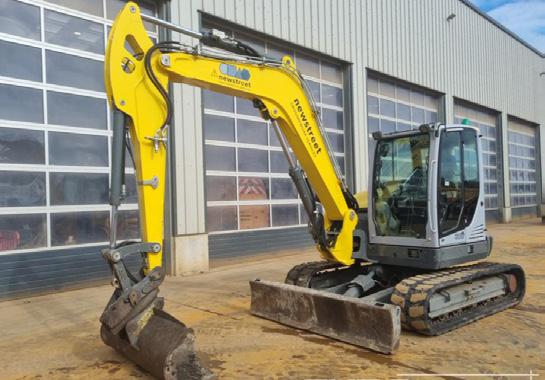
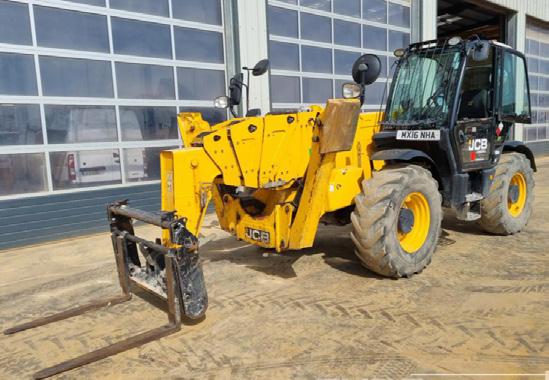
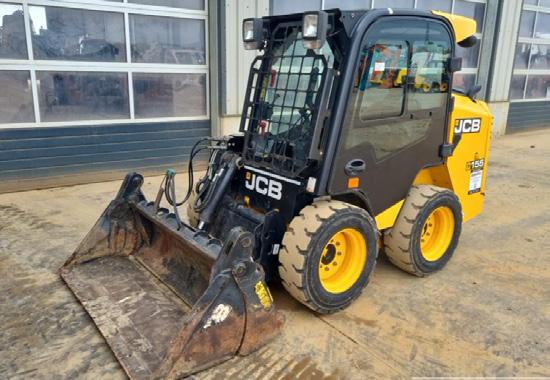
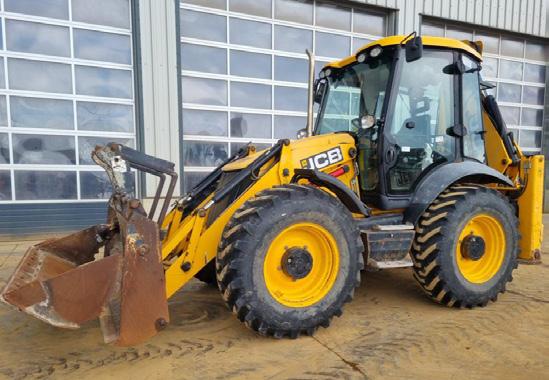
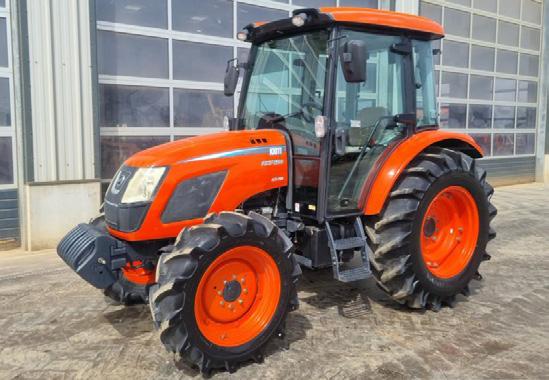
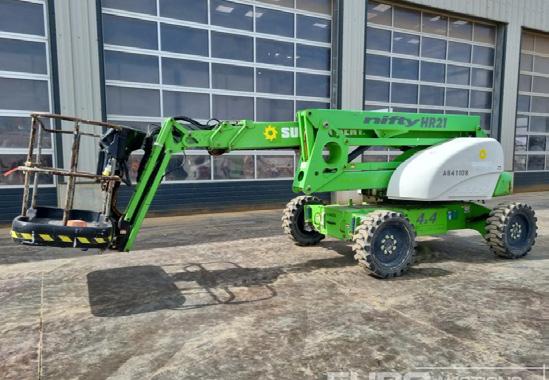
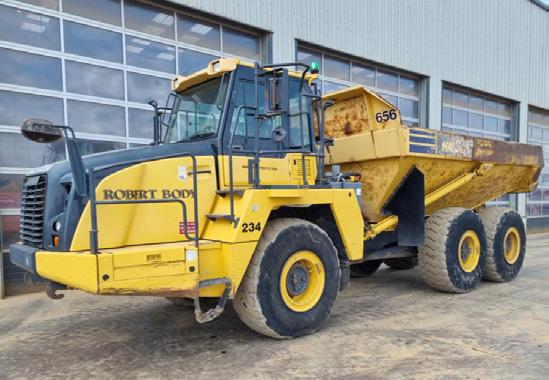
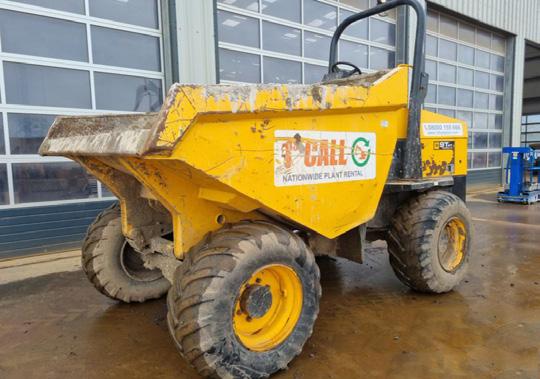
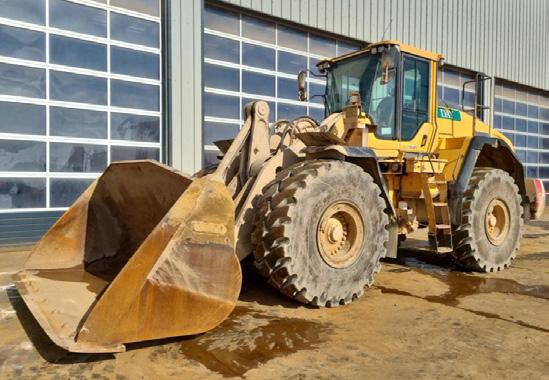
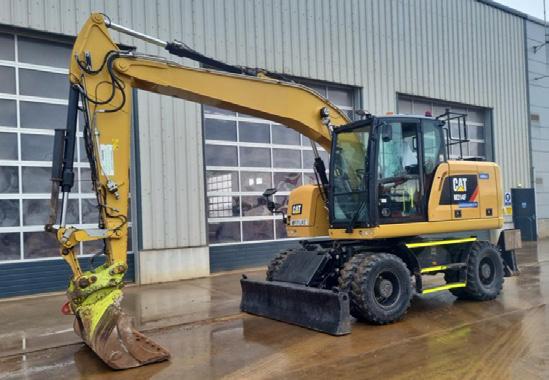
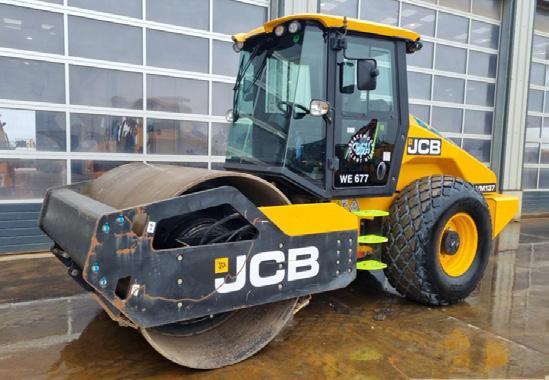
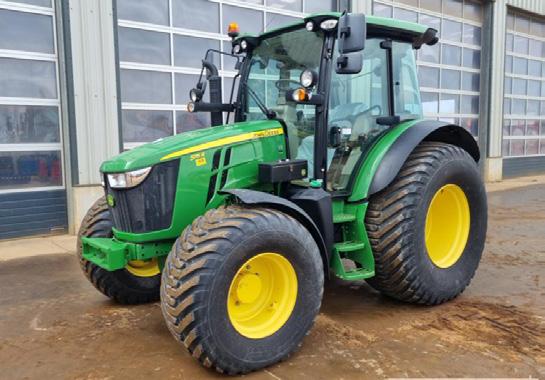
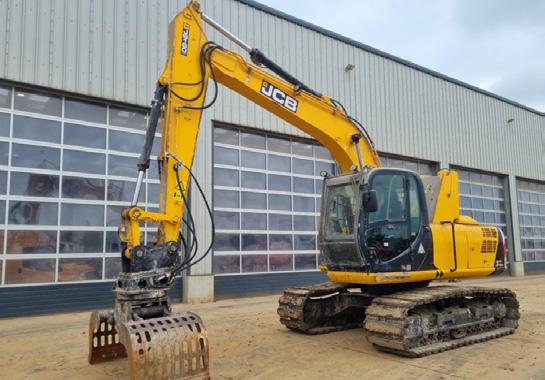
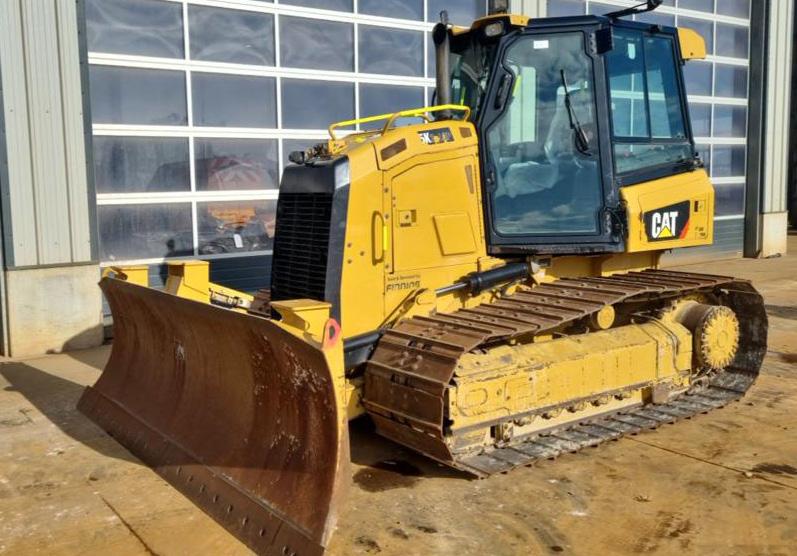
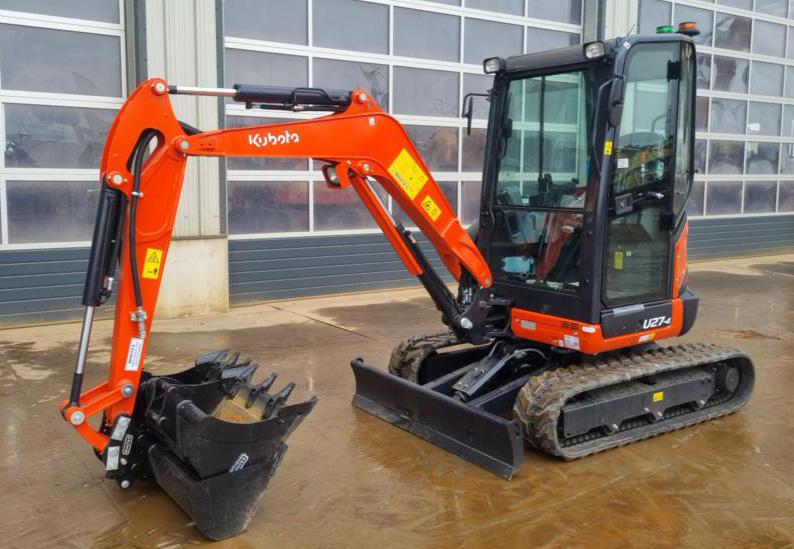
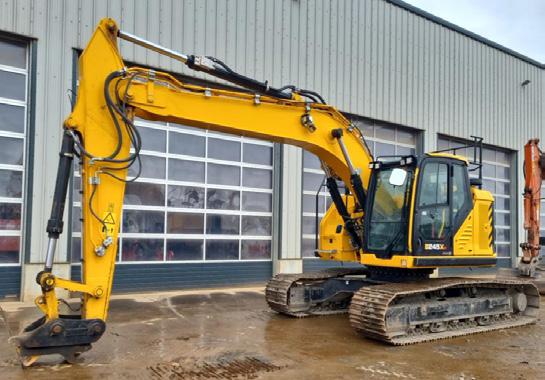
UPCOMING LEEDS, GB AUCTION 14 th - 17 th June 2023 @ 8.00am Roall Lane, Kellington, Nr Goole, Leeds, DN14 0NY | T: +44 1977 662 255 2017 Wacker Neuson EZ80 2016 JCB 540-200 20-21 JCB SSL155 - choice 2013 JCB 4CX P21 Unused Kioti RX7620 - choice 2014 Niftylift HR21D 2015 Komatsu HM300-3 15-17 JCB 9TFT - choice 2015 Volvo L180H 2016 CAT M314F 2018 JCB VM137 2018 John Deere 5115R David Betts +44 7834 600 040 Chris Osborne +44 7769 204 732 Chris Rankin +44 7739 641 518 Rikki Edwards +44 7442 755 785 Dermot O’Connor +44 7741 906 132 Jim Malia +44 7738 457 496 www.euroauctions.com WE CAN HELP, TALK TO US TODAY! THINKING ABOUT SELLING? www.euroauctions.com 2018 JCB JS160LC 16-17 CAT D5K2 LGP - choice Unused 2023 Kubota U27-4 2022 JCB 245XR SV
DEMOLITION DISCUSSION
Interviewee: Alfie Burke
Role: Director
Company: Burke Demolition
Alfie is 24 years old and has an eight-month-old daughter. He enjoys a good crime documentry and loves nothing more than a good steak dinner. He has a cold shower every morning to set himself up for the day, even though he’s been told off a few times for forgetting to put it back to warm as “the Mrs gets the fright of her life”.
QHow did you start out in the industry, what attracted you to it?
Our family has been in the demolition industry for three generations running their own companies. It was a natural progression for me and my brother Jack to come into the industry.
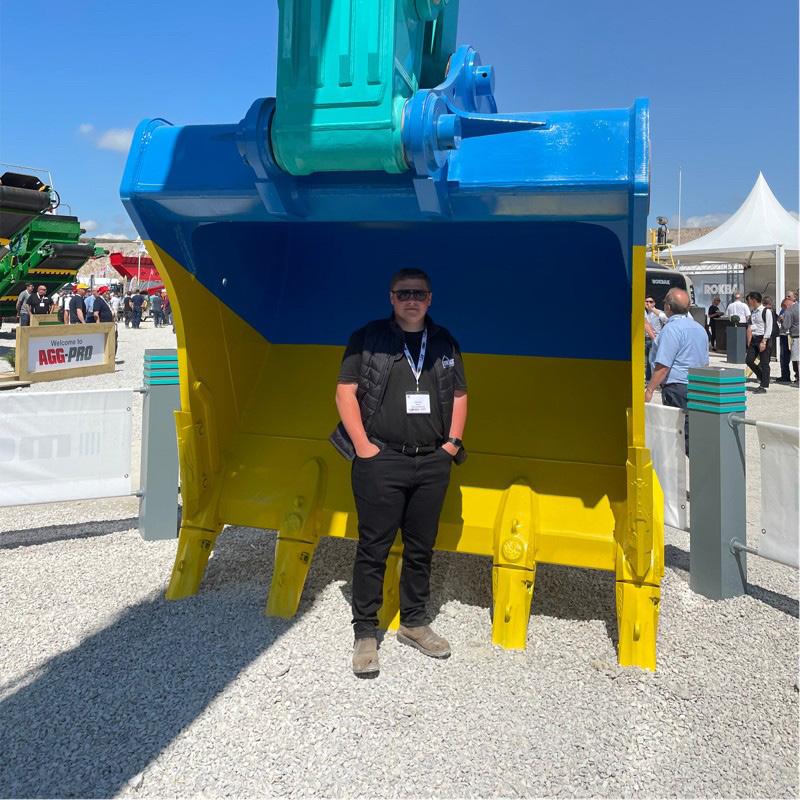
QHow has your career developed to where you are now? Were there any particular milestones?
My career has progressed at a rapid rate, I am still very hands on within the company alongside running the
day-to-day business side of things. The most memorable milestone would be taking delivery of our first machine. That was just a year after we started; seeing our name on a machine was a big achievement at such a young age.
QHow did Burke Demolition start? How has it evolved and what is its focus?
Since our inception in 2019 we have grown at a steady pace, growing our team and our fleet of equipment when and where it was needed. Our focus was and still is to build a solid
foundation for our company to grow and give each and everyone of our valued clients the service they need.

QTell us about your team and working culture. Is there a fundamental company philosophy or ethic?
Our company philosophy is simple –look after the people that look after you. Without our dedicated teams out on site we wouldn’t be able to carry out the work to the standard that we do. Almost all our employees from the company’s inception are still with us today.
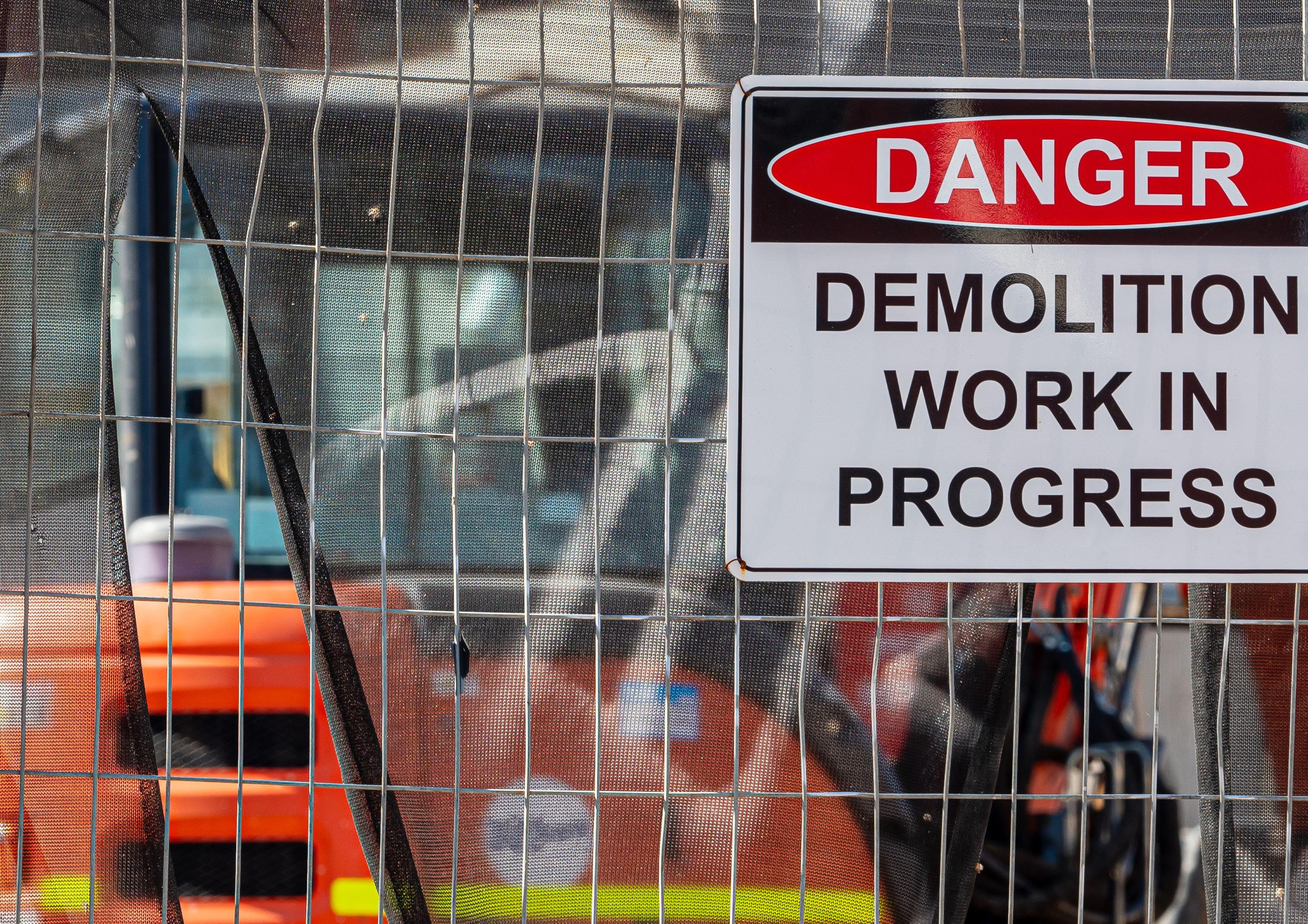
demolitionhub.com 18 | DemolitionHUB Magazine interview
QWhat kind of projects do you work on most frequently, and/or how broad is the range? How has this developed and are there future plans to develop it further?
We carry out a lot of works in industrial and commercial fields with residential works for many bespoke housing developers. We have set the company up so that we can take on the vast majority of demolition and associated work, we do not focus on any one sector. Profitable growth over a sustained period of time is our aim.
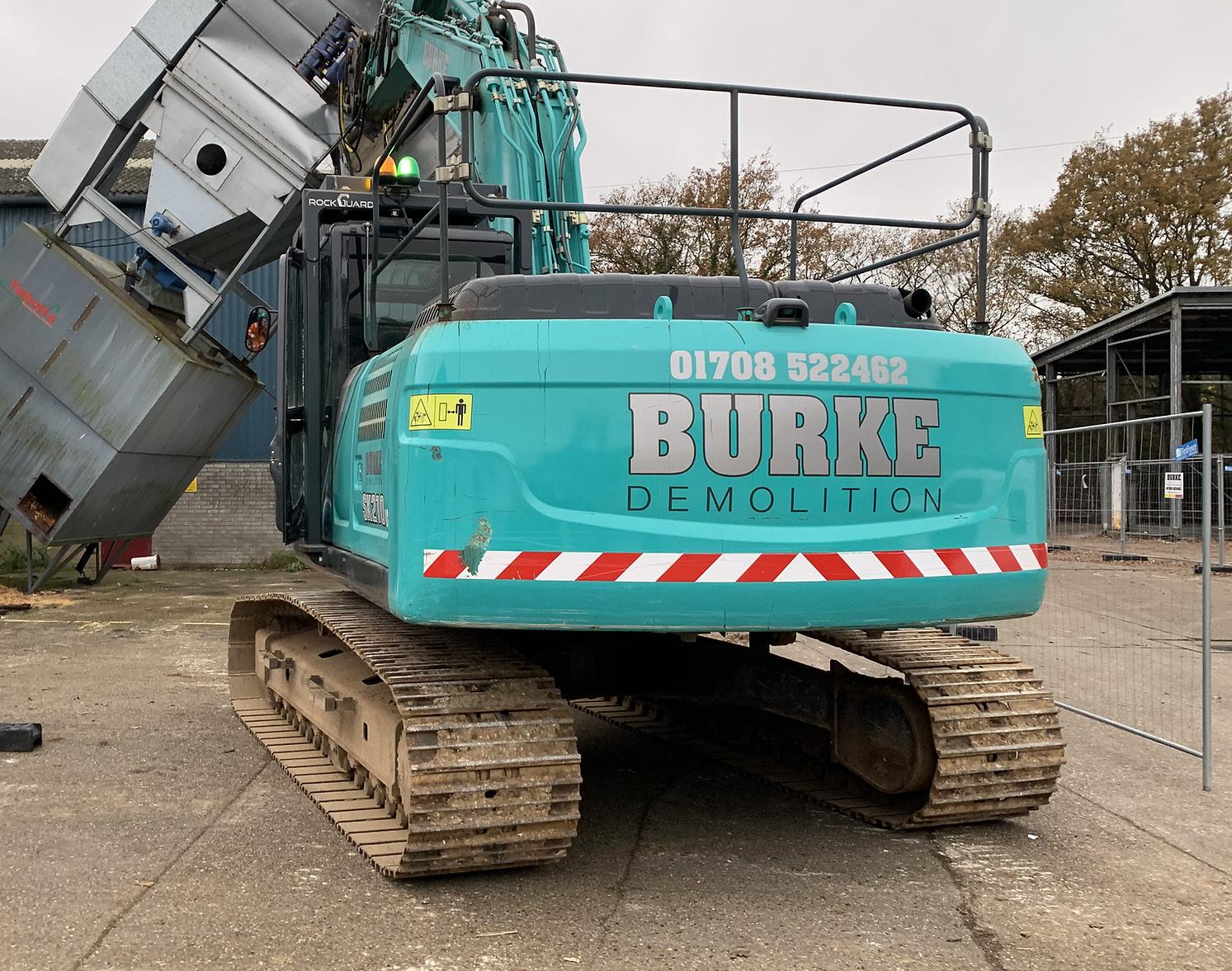
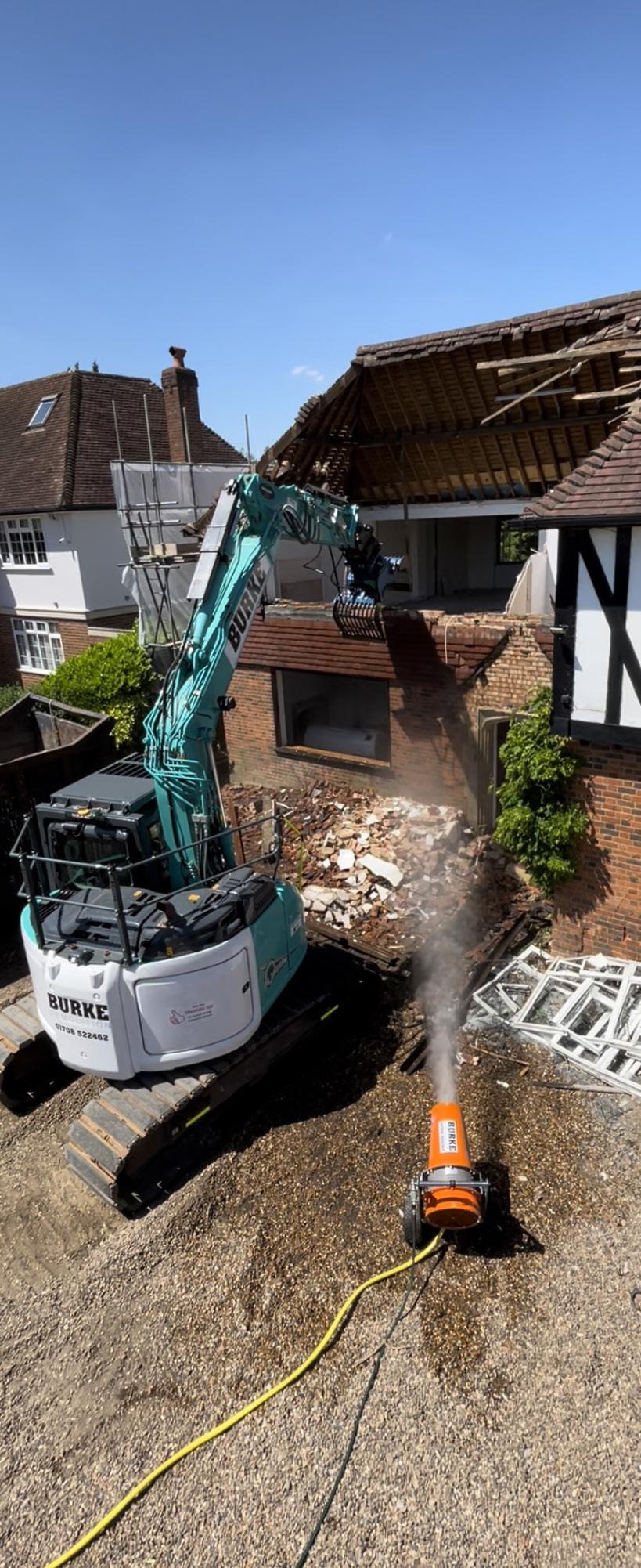
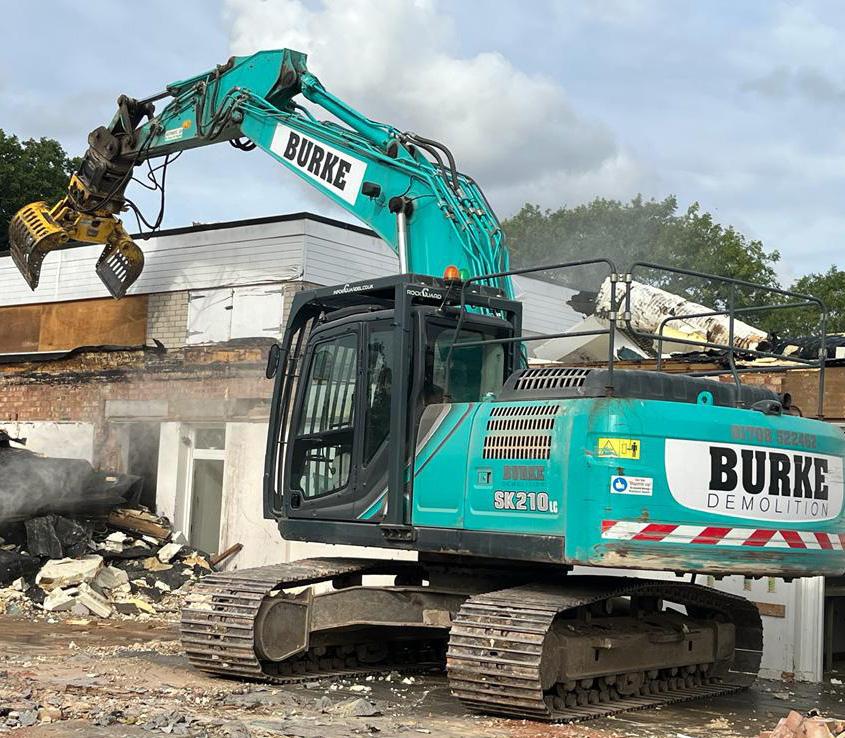
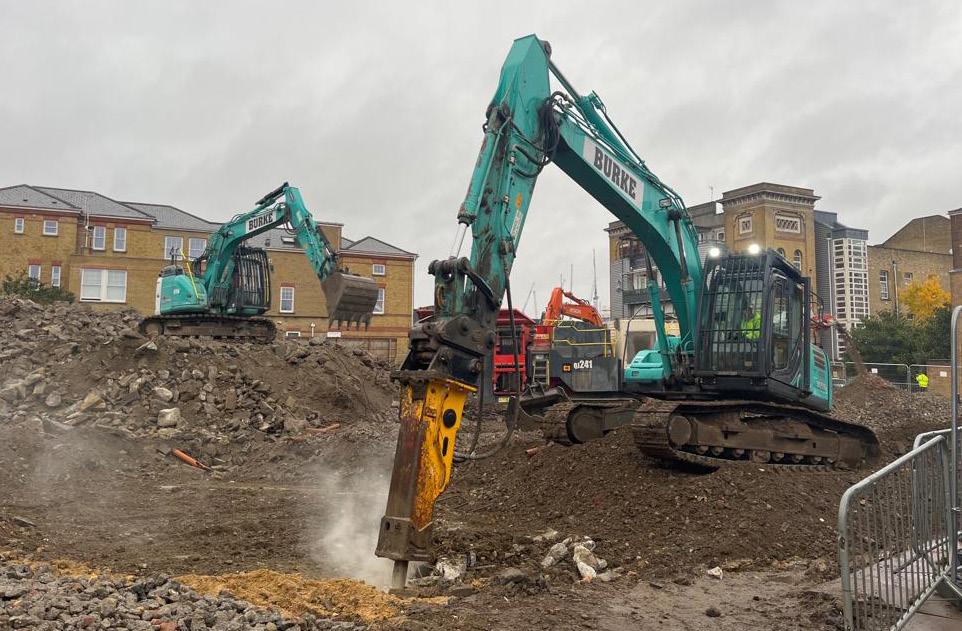
QWhat are the standout projects from your company’s history?
The project that springs to mind would be our first ever job. This was the strip out of a former BHS store, which was over four floors and in a landlocked location in a live shopping centre, meaning everything had to go down the lift shaft out of the basement into the busy shared loading docks of the shopping centre. The challenge was carrying out the works while still building our suppliers and employees, but as Del Boy says: “He who dares wins.”
QWhy work with your company?
All directors are on a fully hands on basis, from marketing, business development, contract management and surveying, meaning you get
100% of Burke Demolition’s founding team.
QHow do you gain business and spread the word about your services?
A lot of our work is from repeat clients, I would say that 90% of our clients from when we started out are still using us today. My younger brother Frankee and I oversee business development, we find that LinkedIn is a good way of spreading the word about the company.
QTell us about any memberships or accreditations you or the company have
We have all of the usual accreditations, but this year we are looking to join the NFDC.
QHow do you find the availability of labour experienced and inexperienced? What can we do to attract young people into the industry? Still being young myself I think the demolition industry is a great career choice, it gives you the chance to climb the ladder. I would class demolition as a trade even though public opinion is that you just turn up and smash things to bits.
The availability of skilled labour is very low. We are lucky that our employees are 100% CCDO Carded, alongside a vast range of other training for the tasks they undertake.
demolitionhub.com DemolitionHUB Magazine | 19 interview
QDo you undertake any ongoing training or Continuous Professional Development?

All of our operatives are fully trained and carded and we are committed to progressing them through the CCDO Card system when it is deemed that they are ready for the next step. I am enrolling on several management courses alongside keeping all of my site specific cards in date.
QTell us about any engagement your company has in the community?
We have sponsored many amateur boxing shows and a handful of newly turned pro boxers as well as grassroots football teams.
Q
What measures is your company taking in regard to the climate crisis and sustainability?
In my opinion our industry is the best at segregating waste and recycling it, so I would say we are at the forefront of showing the world how to reuse and recycle. We are pushing our clients to crush hard materials on site instead of reimporting the materials, ultimately reducing emissions and our carbon footprint.
QWhat are the biggest technological developments you have seen in the industry? The advances in high-tech machines, equipment and attachments will only increase in the years to come. However, I still believe there are many tasks that an operative will never be beaten on.
AND FINALLY...
What gets you out of bed in the morning?
Providing for the family and building the company my brother and I started.
When and where are you happiest?
When I see my daughter’s face light up when I walk in the door at night.
What’s your ideal weekend?
Q
Do you have any notable projects in planning? There are many prestigious projects in the pipeline are for blue chip clients.
QHow do you envisage Burke Demolition in five to ten years?
We envisage Burke Demolition being one of the top 10 demolition contractors in the country.
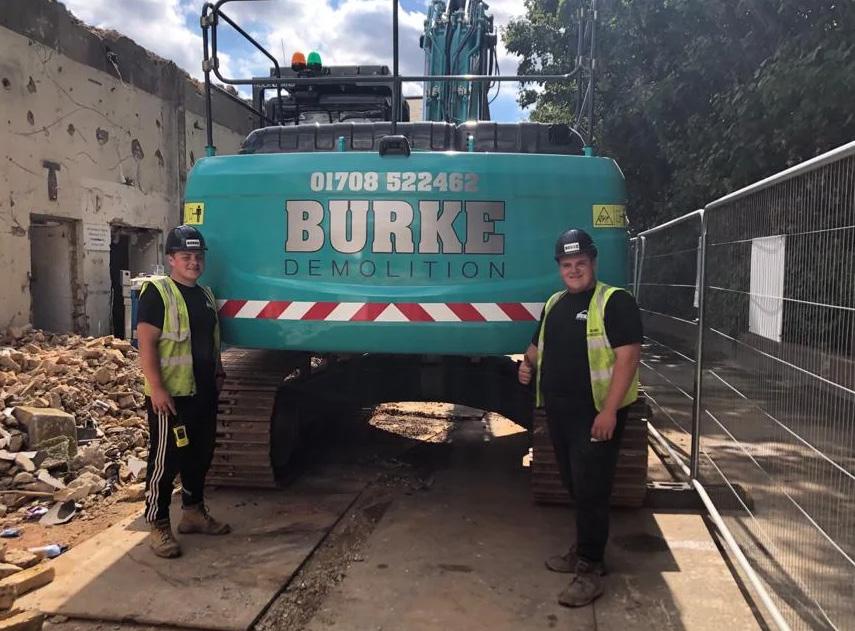

Q
And what about you in a few years?
In a few years I see myself still being involved in the company day in, day out, still pushing for profitable growth.
My ideal weekend would be spending time with my daughter and family and maybe popping to the office.
Be or do? Which represents you best? Do
demolitionhub.com 20 | DemolitionHUB Magazine interview
“We envisage Burke Demolition being one of the top 10 demolition contractors in the country”
PURPOSE BUILT 50-TONNER

The EC530E and EC550E Volvo Excavators, optimise fleet use by up to 20%. These 50-tonne excavators are the perfect partner to 30-40t class Volvo articulated haulers, reducing the number of required passes – dramatically improving cycle times. Built by Volvo, supported by SMT GB. Trust in the full support and back-up from SMT GB, for the lifetime of your machine.
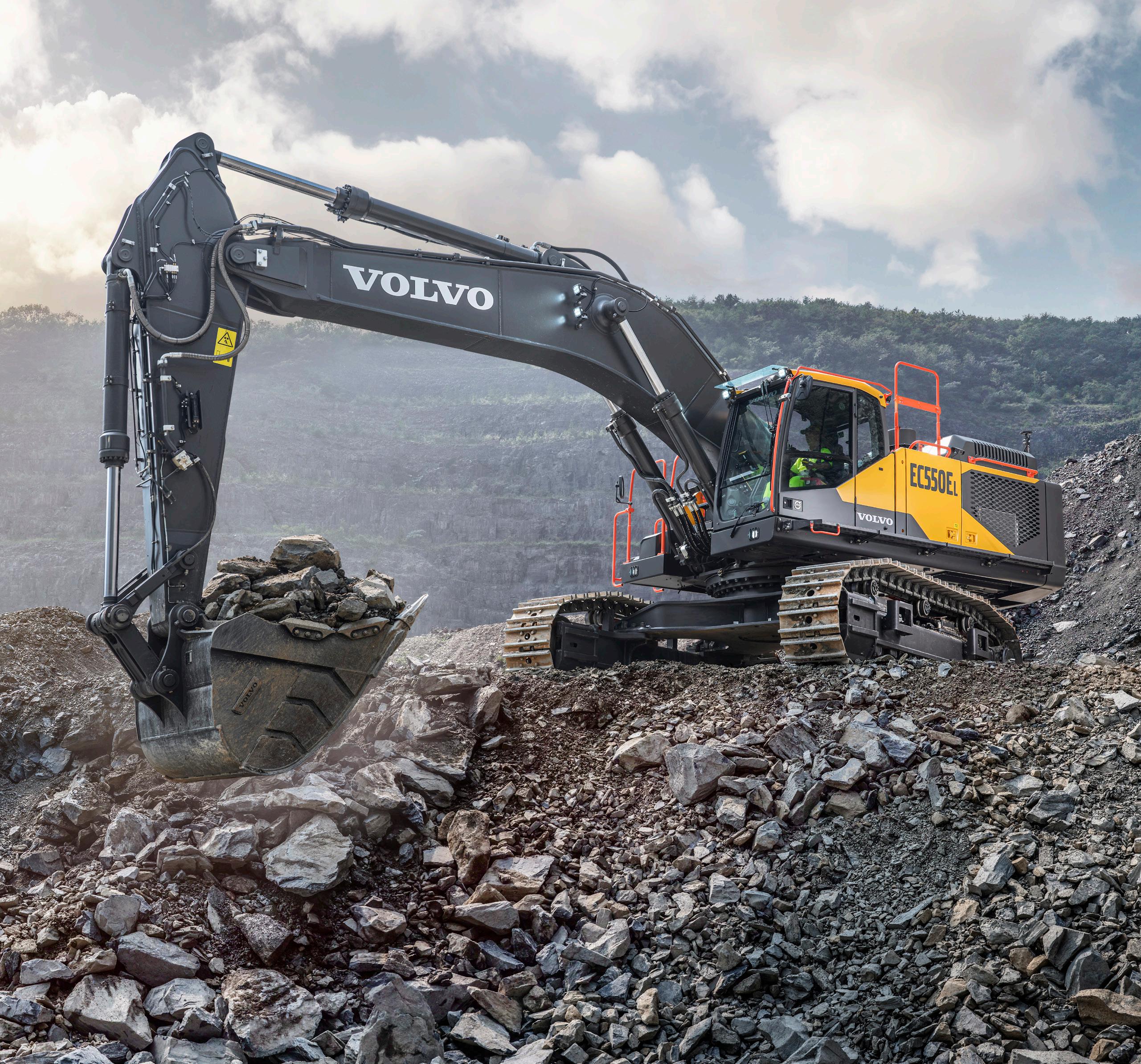
SMT GB Duxford, Cambridge CB22 4QX Telephone: 0330 175 5586
www.smt.network/gb
40 years and never out of reach
by Rebecca Kelly, CFO

I won’t lie, it does make me slightly happy knowing that the company is older than me, but with plenty of years of working life left ahead, it cements a feeling of determination to continue to excel at what we do best.
After 40 years I guess it would be easy to start writing a book about the evolution and development that has taken place at Kocurek but I was given a word count so I thought it would actually be more interesting to look at the incredible changes we have seen of our industry as company in that period of time.
Originally our speciality was long reach equipment. Working out of a small farm premises on the outskirts of Ipswich, standard machines were modified to suit speciality jobs and joined the company’s hire fleet. The process still holds true today but with the hire fleet no more, all machines go straight to their new owners, wherever in the world that may be. It is thanks to one phone call with a long-standing customer that the company headed into a sector that was at the time in its infancy –specialised demolition plant.
Kocurek was right at the very start of the huge shift in demolition practices in the UK and it is a blessing to have experienced, witnessed and helped shape that change. Using a ball and chain along
with manual labour to demolish structures was at that moment in time becoming inappropriate and without doubt now seems archaic. The development of demolition equipment that enabled the safe and controlled bringing down of buildings helped revolutionise the industry. The jury is probably out on who built the very first version of the three-piece demolition equipment, but this configuration has stood the test of time for demolition operators in the UK and Europe.
In the early days of manufacture Kocurek had very little competition, at that time manufacturing equipment directly for OEMs. It makes simple business sense that it is now worth them developing and manufacturing their own demolition products.

You might assume that this move by OEMS would see a small UK manufacturer decline, but it merely
proved the benefit of Kocurek being bespoke.
The first Kocurek telescopic high reach demolition equipment was delivered to a UK customer in 2001, 40 m max working pin height on a Hitachi EX800. That machine now resides on the other side of the Atlantic and is still working. Slowly the requests came for higher reach and we went to 45 m, then 50 m. “Can you do 60?” Well, I guess we can. “How about 70 metres?” Sure, the sky’s the limit. Currently 76 m is our highest maximum working pin height. This was achieved using a Liebherr R9150/200 base machine, which by the end of the extensive modification process weighs in at over 300 t. When the company first started out on its demolition journey 40 t was considered a large machine. The company has been providing the solution for the ever-higher reach trend but in more recent years a
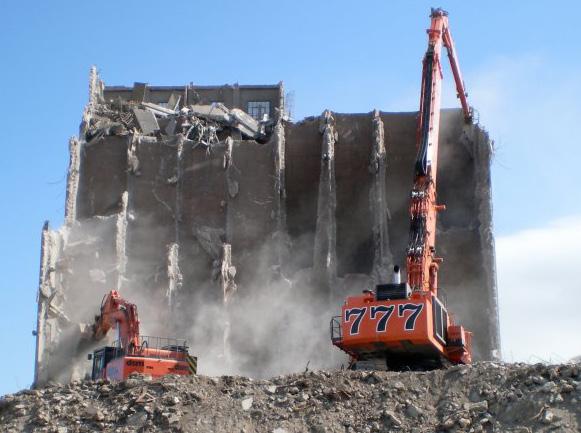
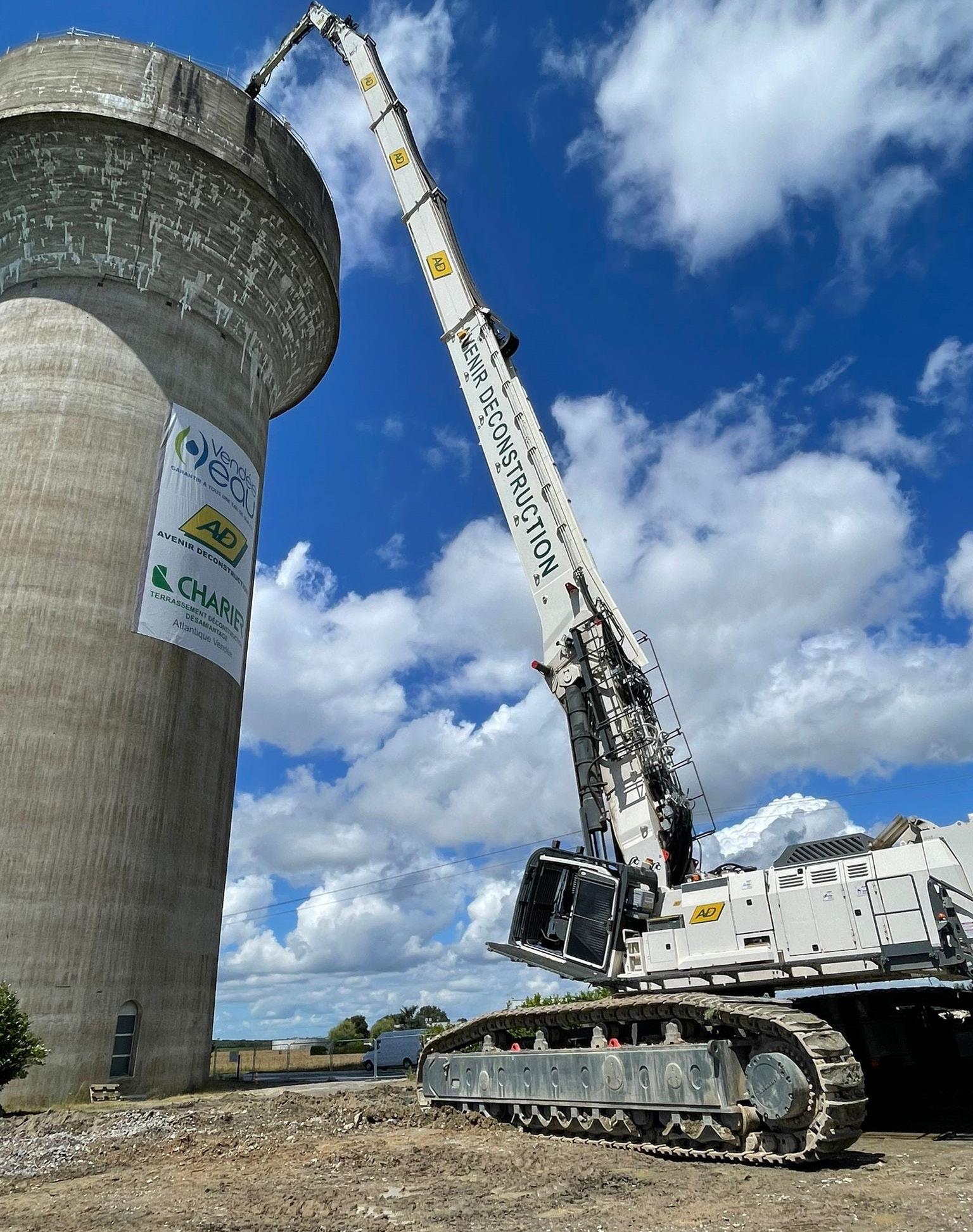
demolitionhub.com 22 | DemolitionHUB Magazine profile
Kocurek Excavators Ltd
new trend has emerged which is that of heavier tool weights with a lower working pin height and of course we are more than happy to oblige in getting that result.
necessitated improvement, a 5-t overhead crane doesn’t cut it any more. And in true Kocurek fashion, clever engineering and thinking outside of the box has seen a few weird and wonderful solutions to the problems.
reason Kocurek machines have a long lifespan is careful and skilled operators.
We relocated the factory in 1994 and since then it has been expanded numerous times. The idea of reinvesting money back into the machinery and equipment used is not new and has always been the case but now older machines are being replaced with modern equivalents. The increasing size of equipment and base machines has
Kocurek fully understands that the machine we provide only makes up 50% of the equation for a successful demolition job, the operator makes up the remaining 50%. As the progression of high reach machines has been relatively steady it has enabled drivers to hone and perfect their skills before moving up to the next class. Liken it to a very expensive wood chisel. In the hands of a skilled carpenter beautiful furniture is crafted. An amateur may be lucky to create anything at all. With the cost of larger machines now falling into the millions, it is imperative to select operators carefully. More often than not the
While the manufacture of these bespoke machines is something to behold, we cannot ignore the simple changes that have occurred behind the scenes within the industry. Back at the start a Kocurek quotation would be a single page document, a handshake to close the deal in many instances, decisions made quickly and confidently. Today, a Kocurek quotation is closer to 10 pages long due to the precise detail included. The timescale from enquiry to deal closing can be up to two years for a large Kocurek conversion. Such machines are not purchased speculatively; there are serious sums of money to be considered and with a build time of a minimum of 12 months, careful planning is required to ensure a company can deliver on its contracts.

demolitionhub.com DemolitionHUB Magazine | 23 profile
“In the hands of a skilled carpenter beautiful furniture is crafted”
Over the years the Kocurek customer list has continued to grow and expand across the globe. There is now only one continent where there isn’t a Kocurek machine –Antarctica. What is rather special is the fact that customers with whom we dealt in the early days continue to return for repeat business, testament to all for standing the test of time and surviving significantly testing times for businesses.

In 40 years a company will see many faces come and go, that is part and parcel of running a business. Anyone who has been in business long enough knows that managing staff is a whole new ball game now and while there are improvements, some processes do leave a lot to be desired. Admittedly David Kocurek is the only person to have served the full 40 years but there are those staff who are hitting the 30-year anniversary. Their knowledge and expertise of the Kocurek product is second to none and what is most rewarding is still seeing that they have a true passion for the job.
The beauty of bespoke is the variety it offers to our staff, something a lot will cite as a reason they enjoy their job so much. Everyone plays a part in getting these machines from a concept through to completion. Nothing beats that sense of pride when you see the machines being tested in the yard. Passion for the job, enthusiasm when faced with challenges, changes and the drive to continually improve is what we’re after. Passing on that knowledge is now our focus, the next generation of family are already at their stations and clocking up their long-term service, pushing the boundaries hopefully for another 40 years.
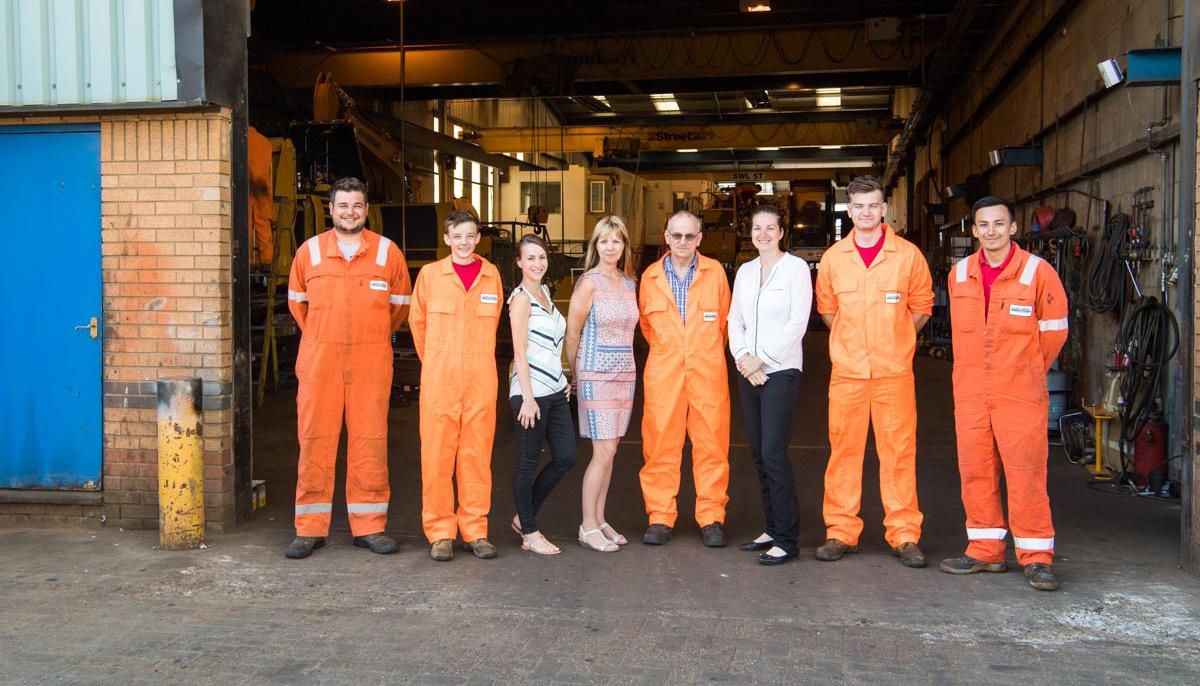
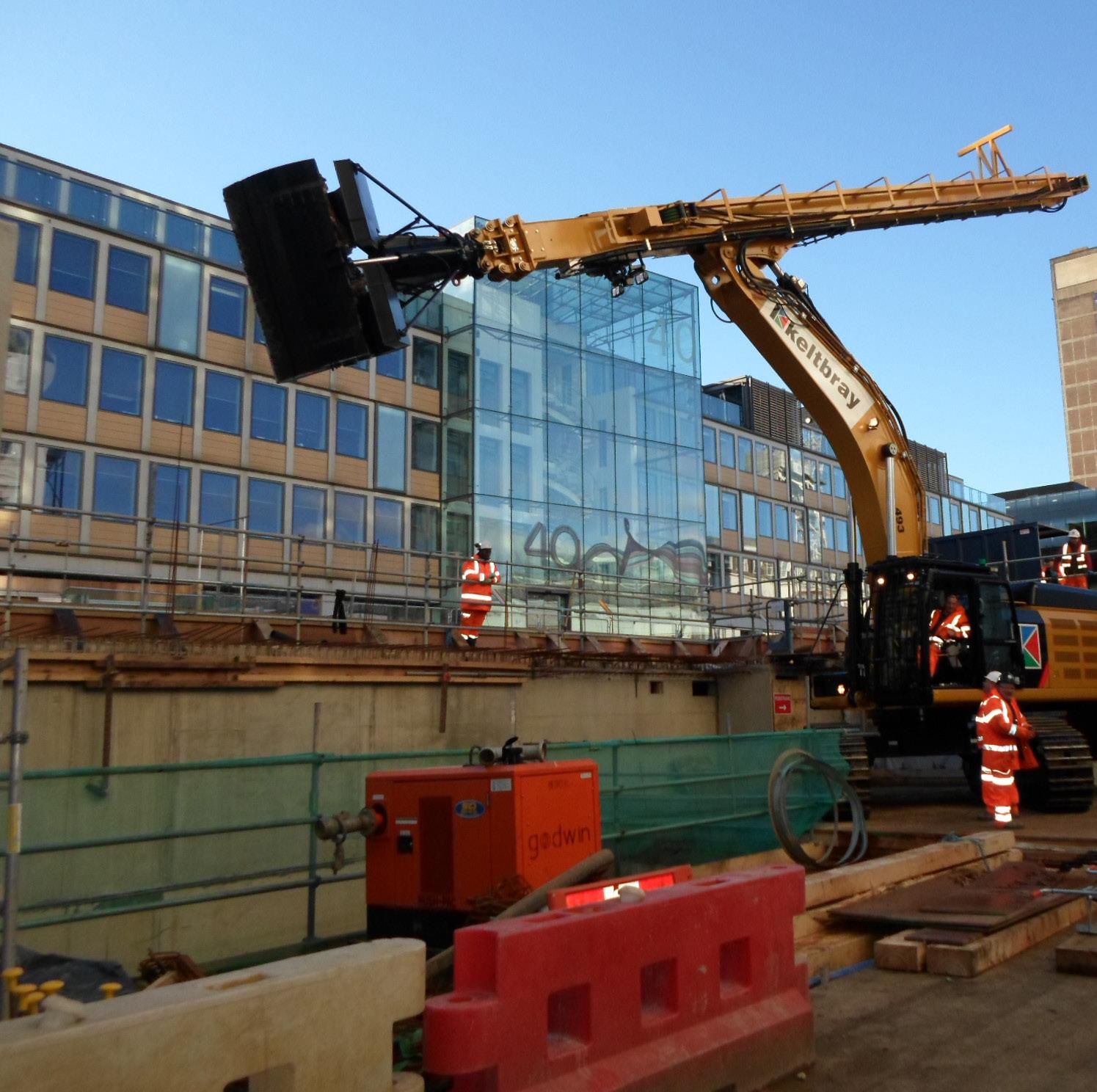
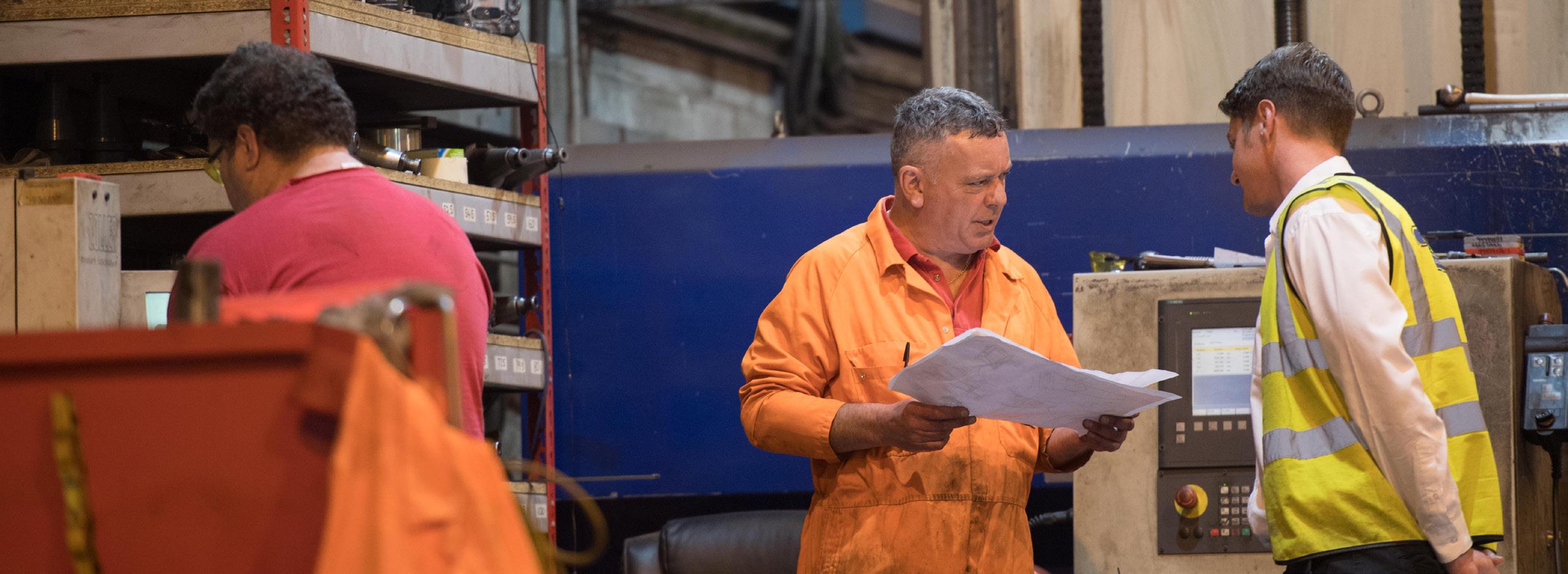
demolitionhub.com 24 | DemolitionHUB Magazine profile











Brownfield site
by Paul Argent
Contractor: Brown and Mason
Client: EDF Energy

Structure demolished: Former coal fired power station
Techniques: Explosive and mechanical demolition
Completion: 2027
As the UK moves towards power generation from carbon free material, the skies over the country, once dominated by cooling towers and large coal fired power stations are steadily becoming clearer.
While the UK still imports massive amounts of coal, mainly used in industry, our power requirements are now catered for by more renewable sources.
With only a small number of coal fired power stations being kept as backup sources of power, the country’s once prolific plants are being cleared, with Kent based Brown and Mason taking the lead on many.
With over 60 years’ experience of dealing with heavy industrial demolition works, Brown and Mason has already removed over 60 coal fired power plants from the UK and in mainland Europe. Formed in 1959 when the present Managing Director’s grandfather started out with just £400, the company has established itself as one of the world’s leading heavy industrial demolition contractors and employs over 300 people working on projects across the UK and Europe.
We joined the team at one of their recent awards, Cottam in Nottinghamshire, where the company was 18 months into the five-year programme to remove the former 2,000 MW station. Constructed in the mid 1960s and decommissioned in 2019 with Brown and Mason starting work on site in 2021, the power station consisted of four huge 500 MW steam turbines which sat suspended in the massive 65-m high turbine house. Wherever you look on the site, the buildings and structures are huge. Eight cooling towers, each with a base diameter of almost 95 m stand in at 114 m in height while the main flue chimney stands even higher at 198 m. The site itself extends to over 620 acres, much of which was used as the former coal stockyard.
Projects of this magnitude usually consist of huge amounts of strip out works to remove asbestos and other dangerous materials prior to the structural works taking place and with the initial decontamination works completed, certain areas are still ongoing, the structural demolition works could commence. Dealing with buildings so tall, Brown
and Mason’s method of demolition is to work from the floor wherever possible. Assistant Site Manager Raymond Naisbett said: “While we do have to do some working at height in cherry pickers, we try and bring everything down to a level where work can be completed off the ground. We are not putting anyone at risk this way and it allows us to use our large excavators to undertake the work safely and quickly.”
The power station is buzzing with work being undertaken across the site. “Once we start demolition, we need to be producing material constantly,” Ray said.
One of the first areas to be worked on are the four large precipitators. These were used to remove fine particles such as dust and smoke from the exhaust gasses leaving the boilers, using the force of an electrostatic charge and they were a very efficient way of removing particles.
Prior to using explosive and linear charges to safely collapse each precipitator, various parts of the structure were removed from the bottom of each structure before
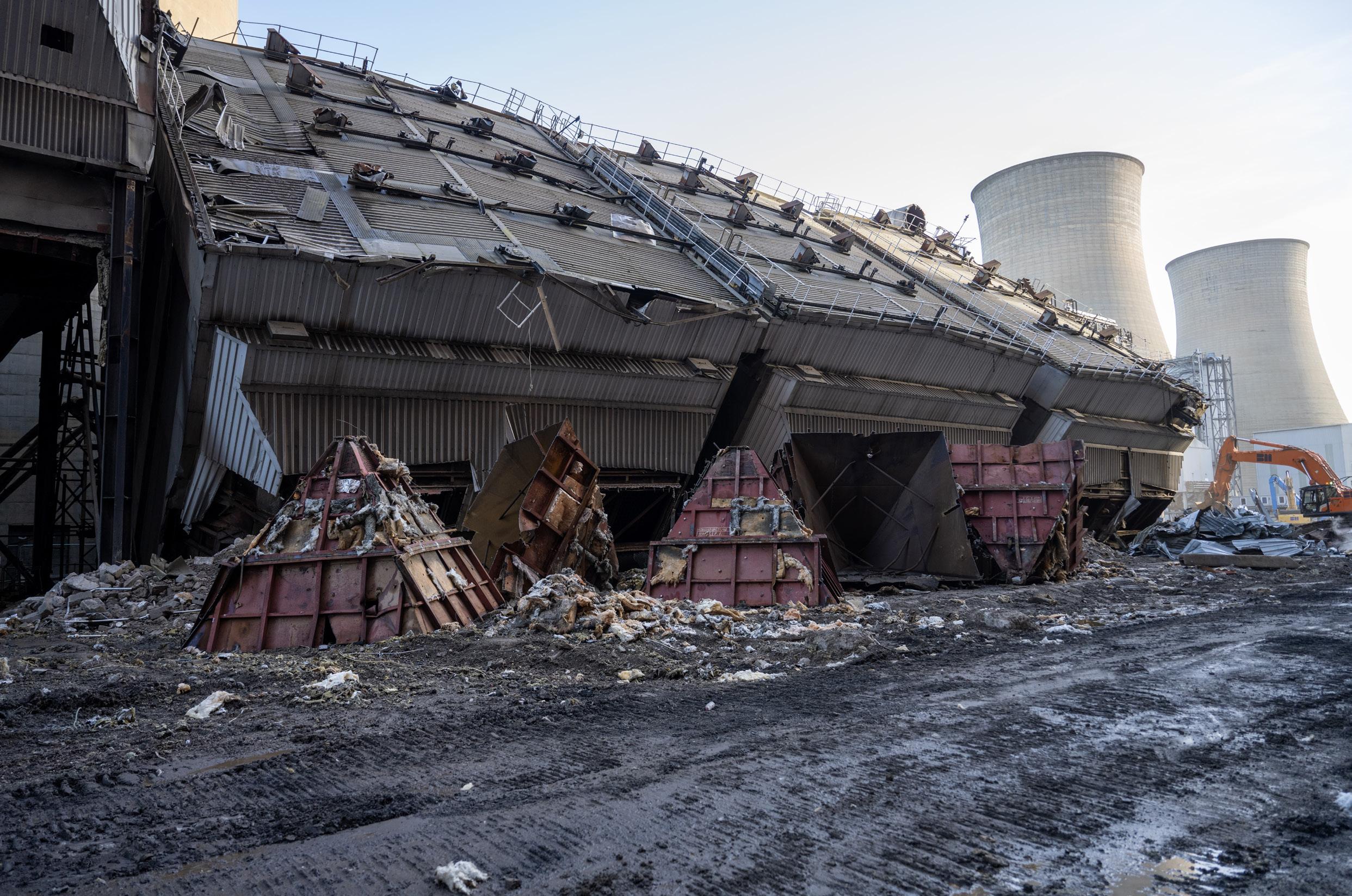
demolitionhub.com 26 | DemolitionHUB Magazine case study
the legs were pre-weakened to structural engineer’s calculations. Having the structures cleared allows the precipitators to drop cleanly to the ground and brings them even lower allowing even the tallest parts to be reached. Precipitators one and two were the first to be dropped and once on the ground, a pair of 90-t-class excavators from Liugong and Hitachi were deployed, one with a large shear, the other with a mechanical muncher.
Ray said: “There are certain parts of the structures that need cutting apart while other bits need to be torn away from the inside of each unit. The pair work hand in hand to demolish the building with a pair of 50-t machines cutting and processing the material ready for dispatch.”
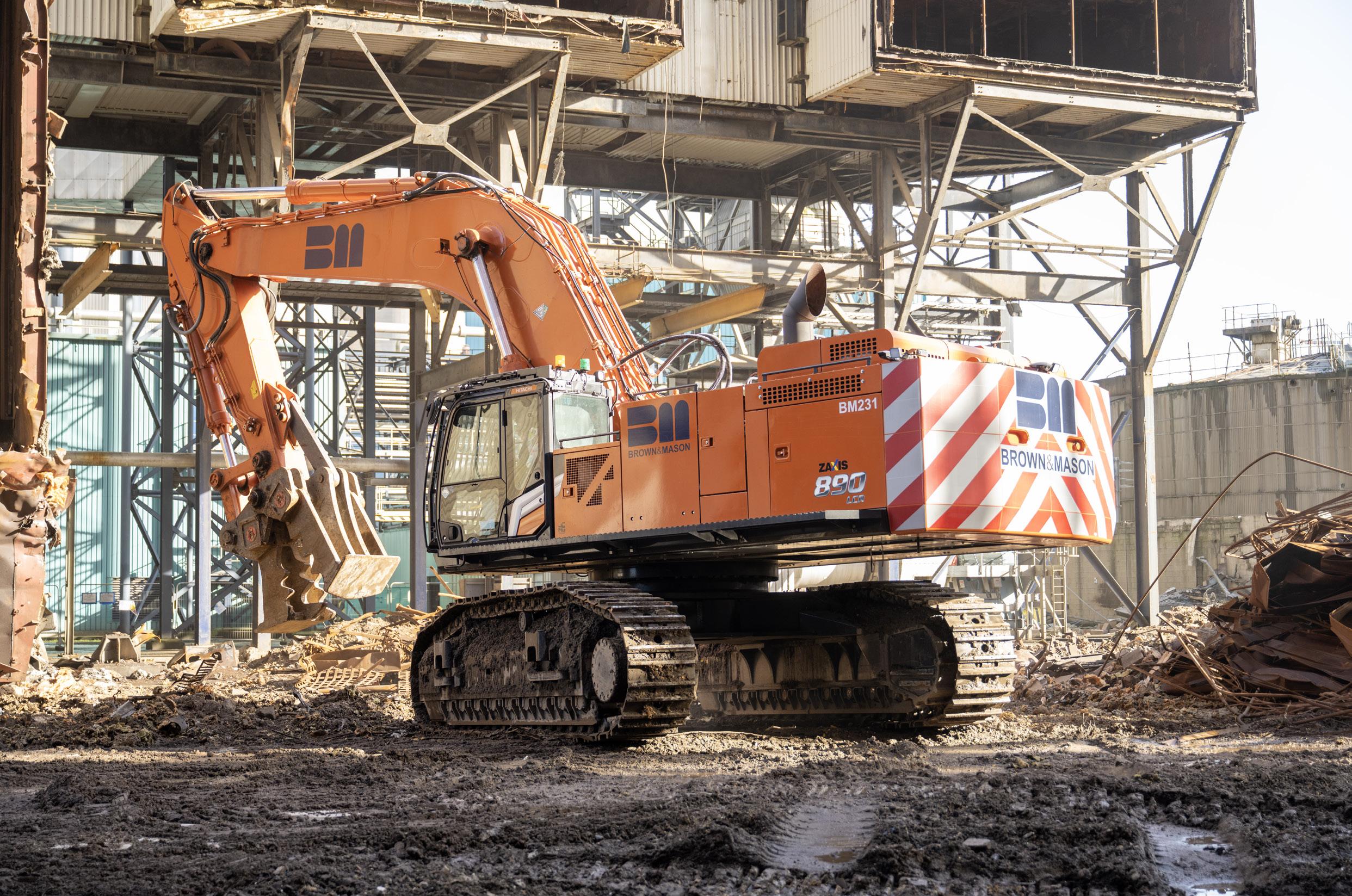
While this work carries on at one end of the 100-m structure, the next pair at the opposite end are prepped ready for another blowdown. This ensures there is a constant flow of materials to process and get out of the gate. With the external work carrying on at a safe and steady pace, work inside the turbine hall was also progressing.
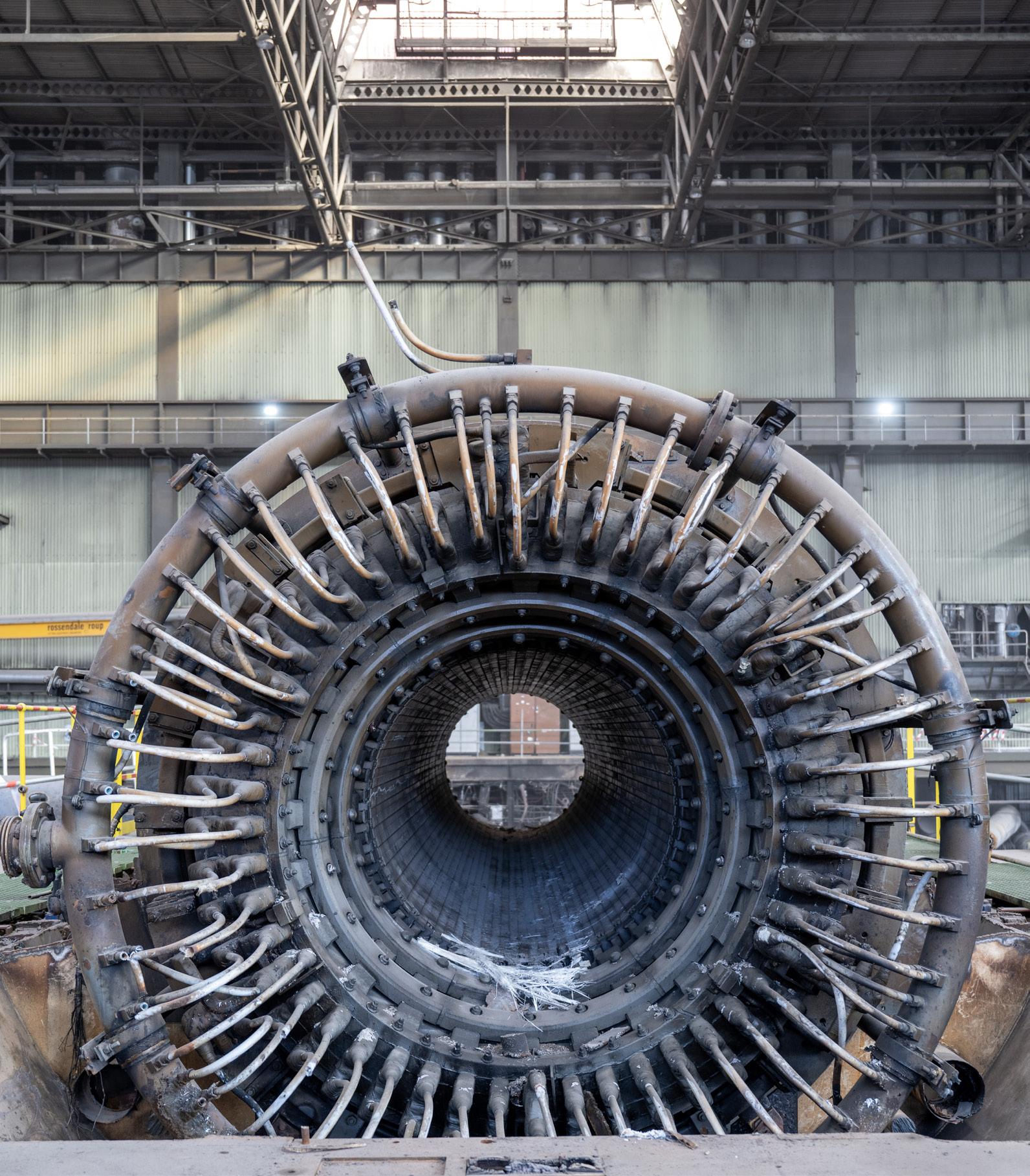
demolitionhub.com DemolitionHUB Magazine | 27
case study
case study

At the time of our visit the team had removed two of the large generators and was part way through removing the third unit. Using the station’s existing overhead cranes, which were tested and certified prior to being re-energised, the dismantling team was headed by a team of experienced burners. Ray said: “With the existing platforms surrounding the machinery, it is easier for us to cut the heavy casings off each unit before lifting them to the floor to remove the non-ferrous materials from the inside and complete their cutting up.”
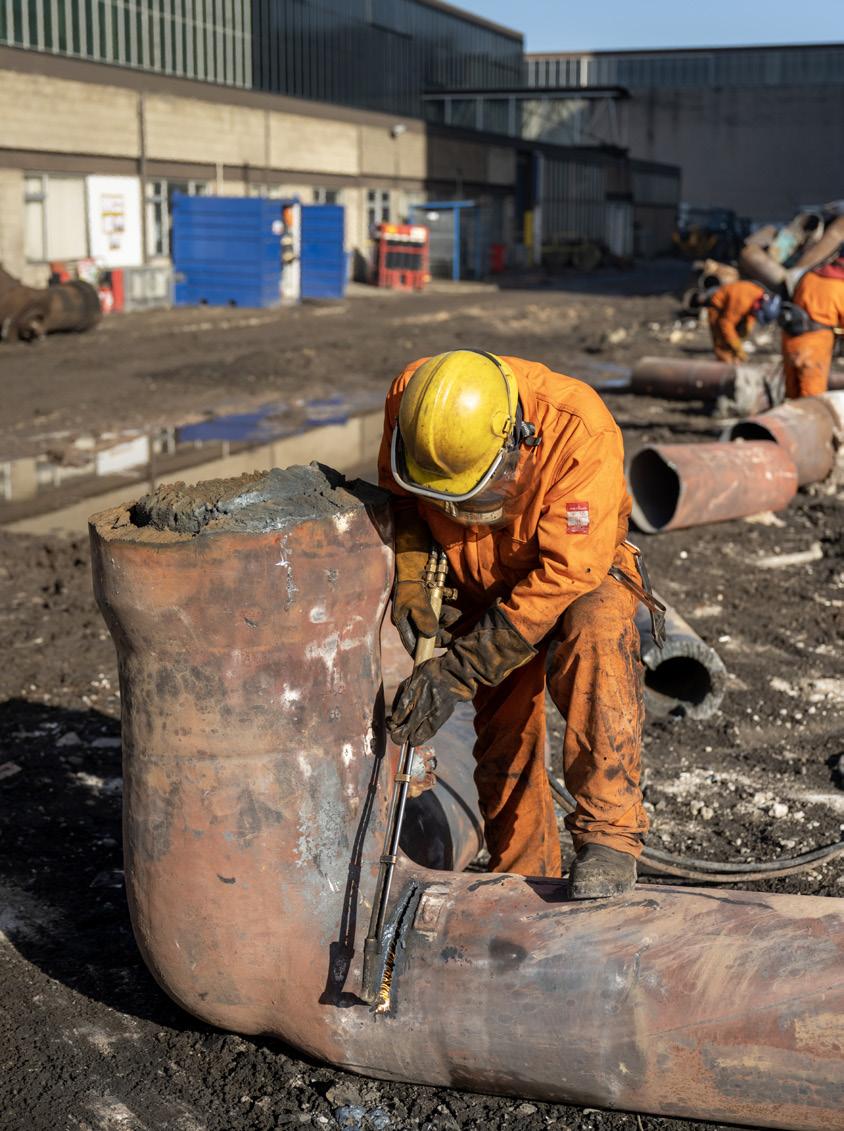
Standing next to the generators reveals the size of these huge items of plant and gives an insight into the difficulties the Brown and Mason teams must deal with on a daily basis. The heavy offcuts of steel removed from each structure must be dropped into a safe zone below to keep the working area clear, the constant threat of fire must be dealt with by using a permanent flow of water over the area being torched and all of this while kitted out in heavy, flame-retardant clothing, mask and respirator. Standing on the platform surrounding the generator the heavy pipework being removed from the lower parts of the building are dragged outside by a 50-t Liugong excavator. More common on large muckshifting projects, the 952E looks tiny compared to its surroundings as does the second machine working close by to remove any raised concrete plinths littering the shed floor.
The material removed from the turbine hall that cannot be sheared
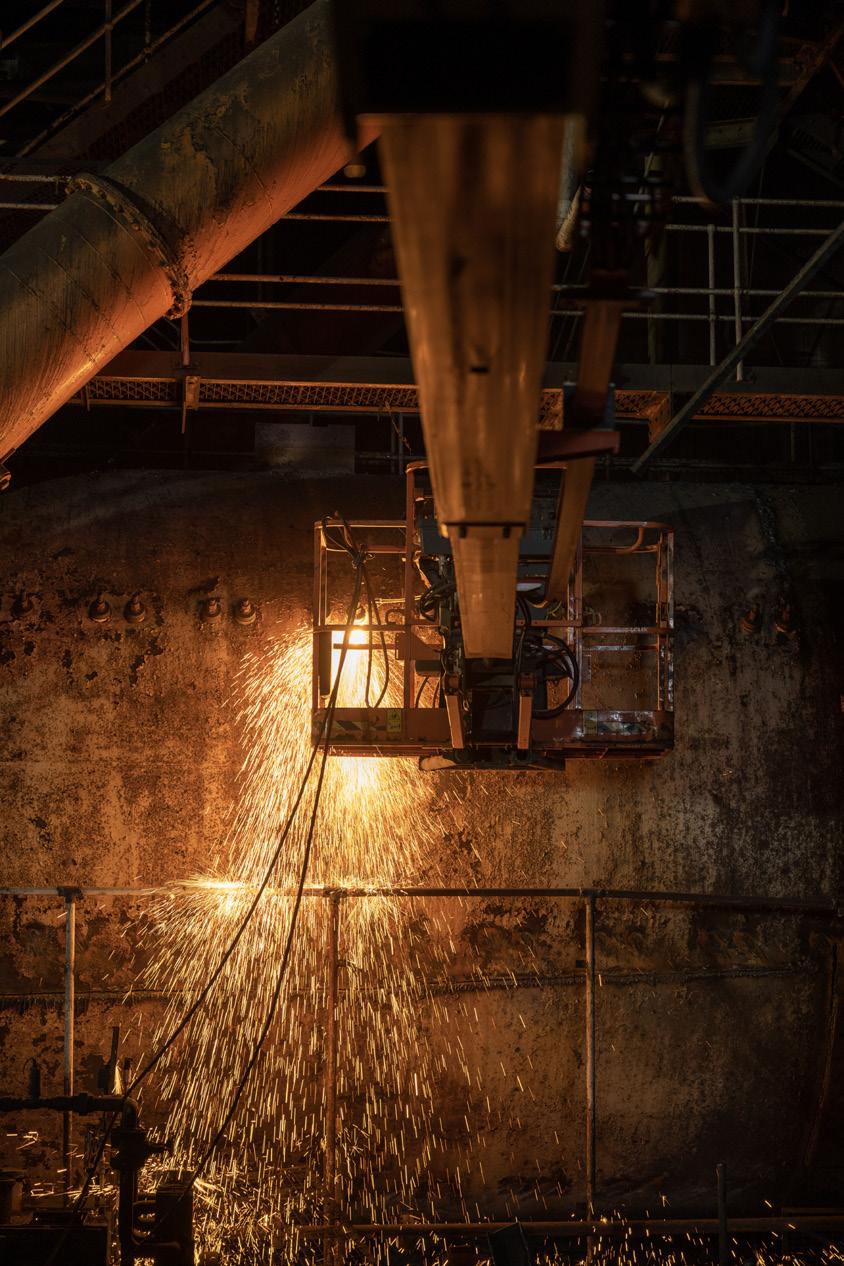
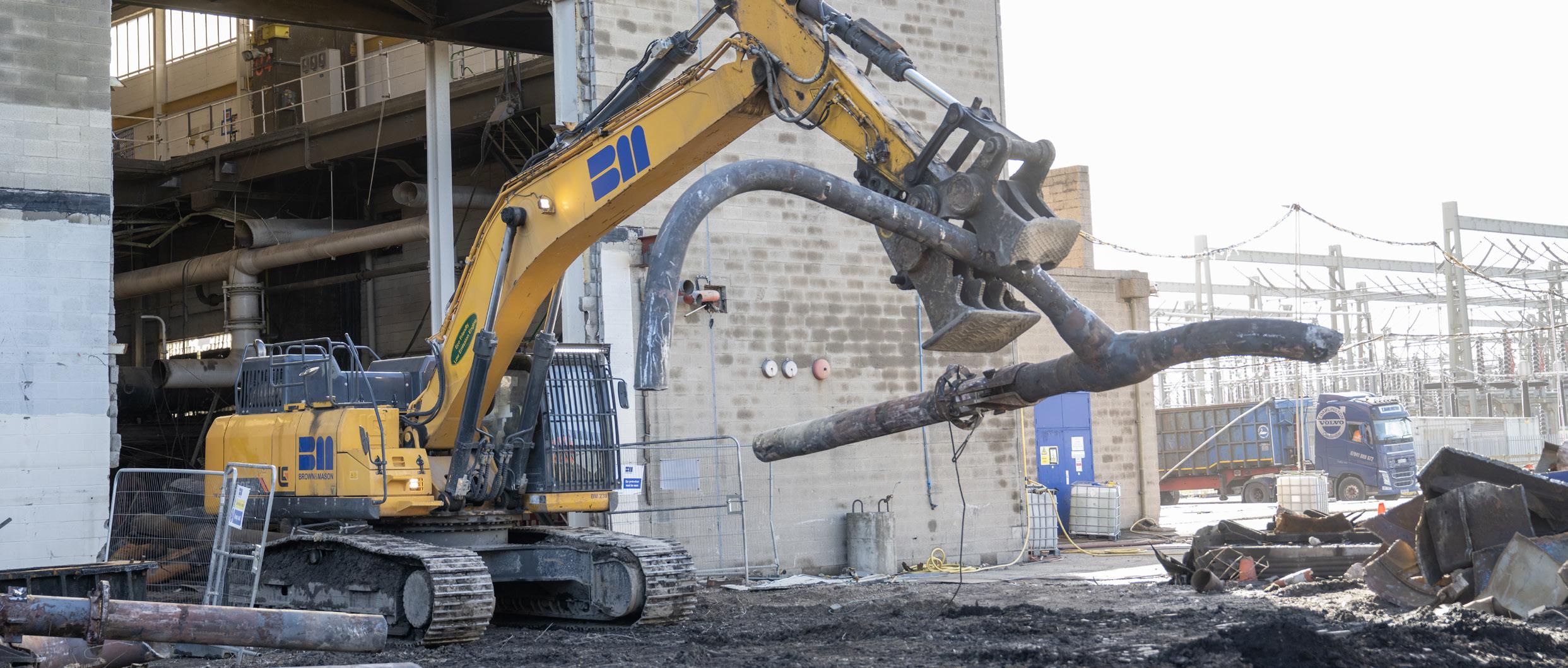
to size because of its thickness is placed in an area where a team of experienced burners steadily slice the material into smaller, more manageable pieces. At the time of our visit, we noticed pipes with wall thicknesses close to 150 mm being cut with each burner carefully manipulating their pieces to allow them to safely reduce the size of each piece.
Brown and Mason has already pencilled in several blowdowns for the forthcoming year with precipitators and the turbine hall being earmarked to disappear from the skyline very quickly. The eight huge cooling towers will be the final landmarks of Cottam to disappear. Ray said: “Our main aim at the moment is to get the structures down and recycled. Once these are completed our blasting team can turn their attention to preparing each chimney for blasting. We need to ensure there is sufficient room around the chimneys to drop them safely and work on processing the material as soon as they hit the ground.”
With Cottam at a relatively early stage in its demolition, just 3.5 miles away sits the West Burton coal fired power station. This was constructed in a similar fashion and with an identical output to Cottam in the mid ‘60s and has recently been closed for decommissioning, with Brown and Mason awarded this project too. The next few years will see West Burton’s imposing structures disappear thanks to Brown and Mason’s vast experience in delivering such projects.
demolitionhub.com 28 | DemolitionHUB Magazine
Call us on: 02071646095
Email us: info@thelabourdesk.com
Visit our website: www.thelabourdesk.com
Follow us on:
Labour Solutions
The Labour Desk provides the demolition industry with labour solutions, from a labourer for a day to a whole project team, we can get it covered.
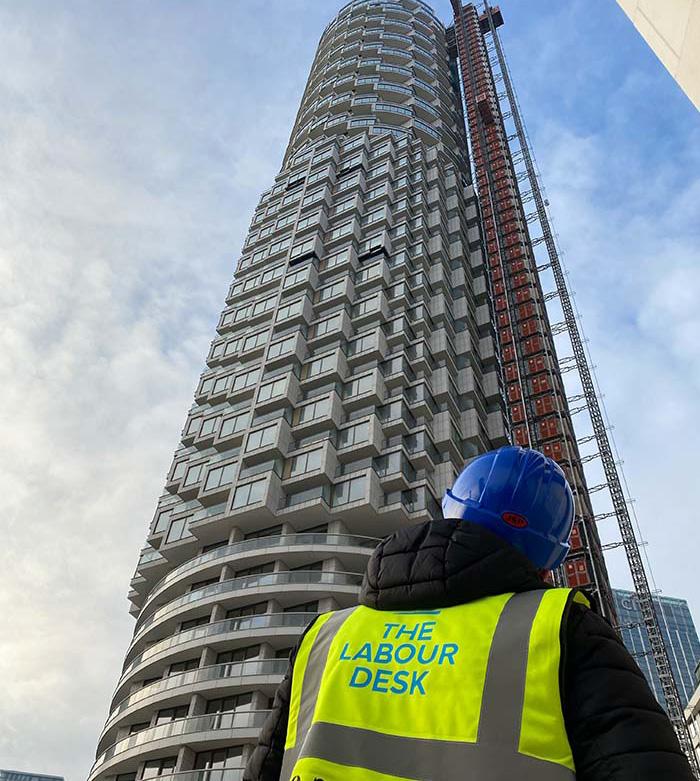
Attending the British Demolition Awards
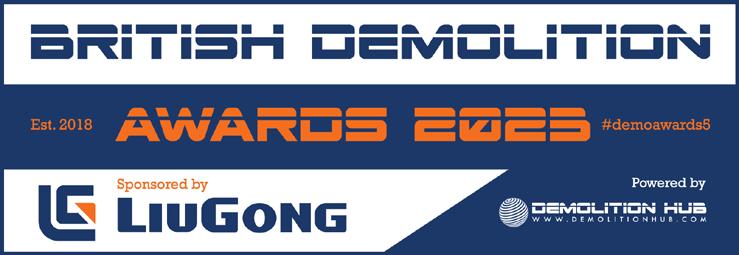
For the past 6 years The Labour Desk have been supplying demolition clients with:


• CSCS Labourers

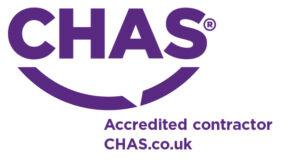
• CCDO Labourers
• CAT B asbestos operatives
• Machine Operatives
• CCDO Gold carded Supervisors
• CCDO Black carded Managers
We have an extensive network of qualified operatives nationwide please call if you have any requirements big or small we will be happy to assist.

TRAINING FEATURE
SANY
CPD certified courses currently delivered directly by PERSES are:

• CDM 2015 Awareness
• Client’s Demolition Awareness
• Behavioural Safety
• Conflict Communication
• Environmental Awareness
• Influencing Behaviour
• Temporary Works Supervisor
• Oxy/Fuel Cutting (introduction to burning)
• Oxy/Fuel Cutting (advanced cutting)
• Demolition Operatives Safety Awareness (DOSA)
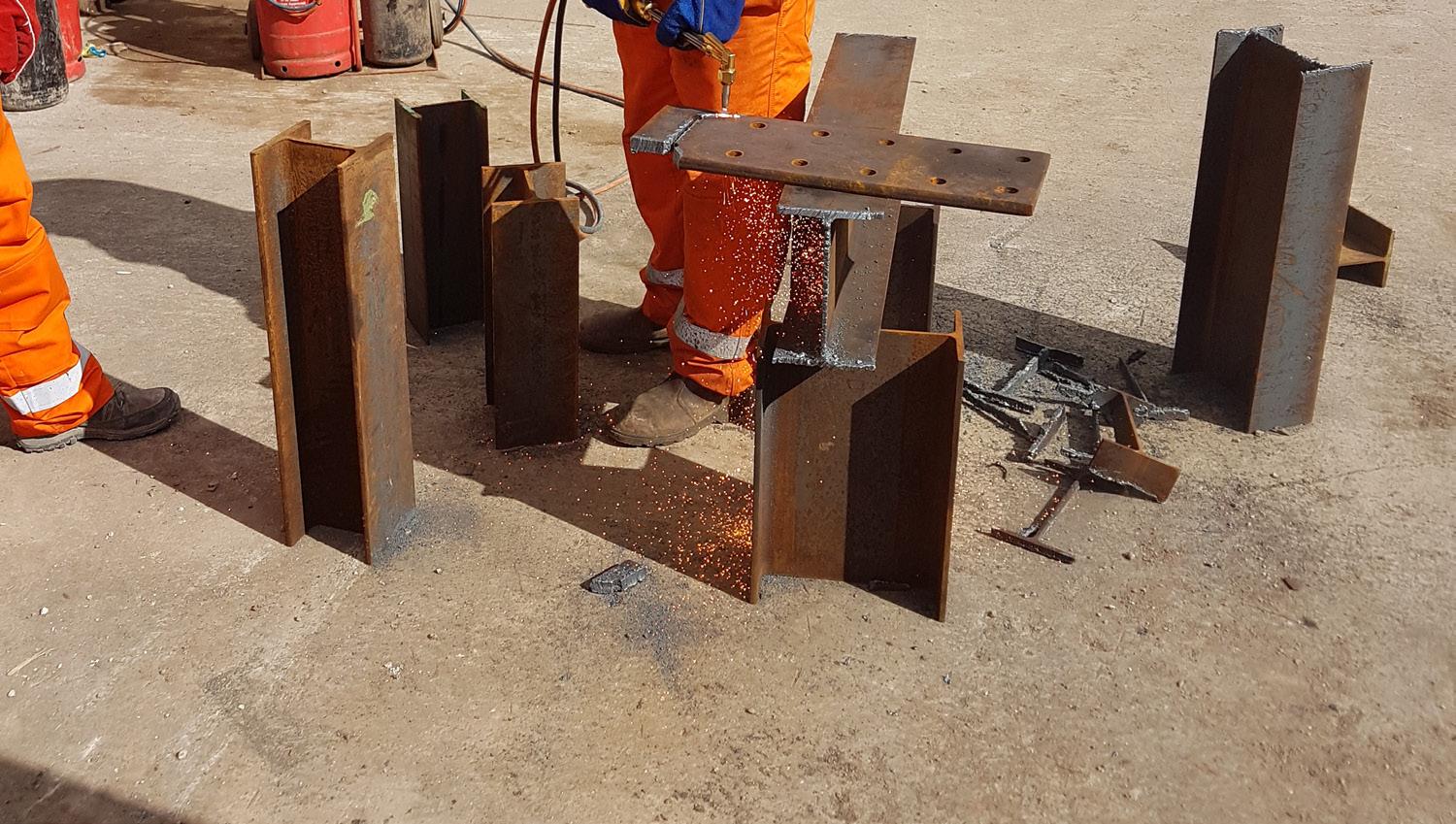
• Vehicle Marshall
• Abrasive Wheels
• Manual Handling
PERSES Training is the premier demolition training company in the UK, boasting the highest concentration of demolition specialist trainers internationally. Our courses will help your organisation stay compliant and upskill your team members.

Our specialist demolition trainers deliver the widest range of courses available in the UK, ranging from CCDO Demolition Labourer to specialist lectures for the Master’s Degree in Demolition
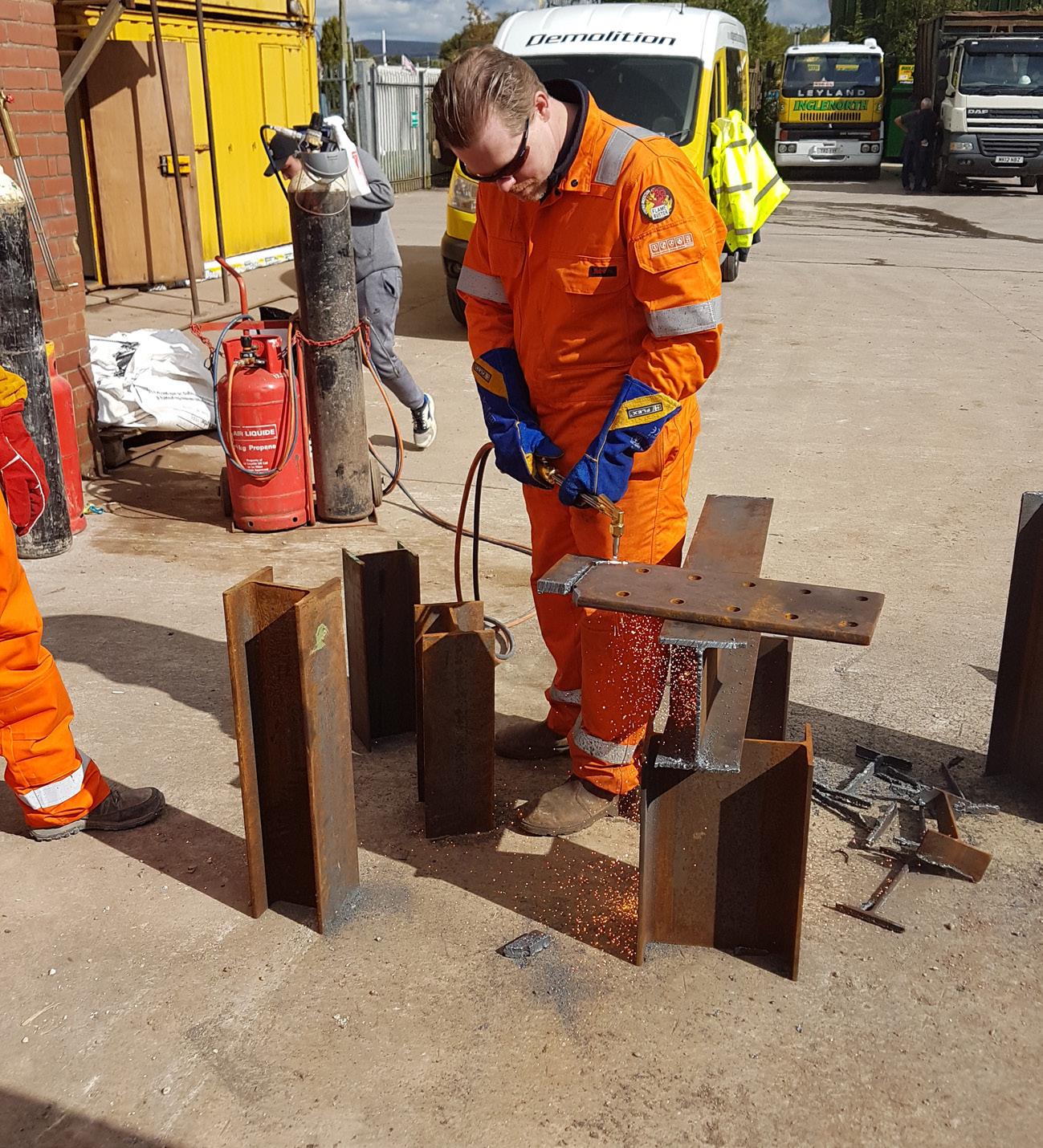
demolitionhub.com 30 | DemolitionHUB Magazine TRAINING
FEATURE
Management with the IDE and the University of Wolverhampton.
At PERSES we believe that training can only be delivered by instructors skilled in the field, which is why our courses are developed and delivered by experienced and qualified demolition engineers.
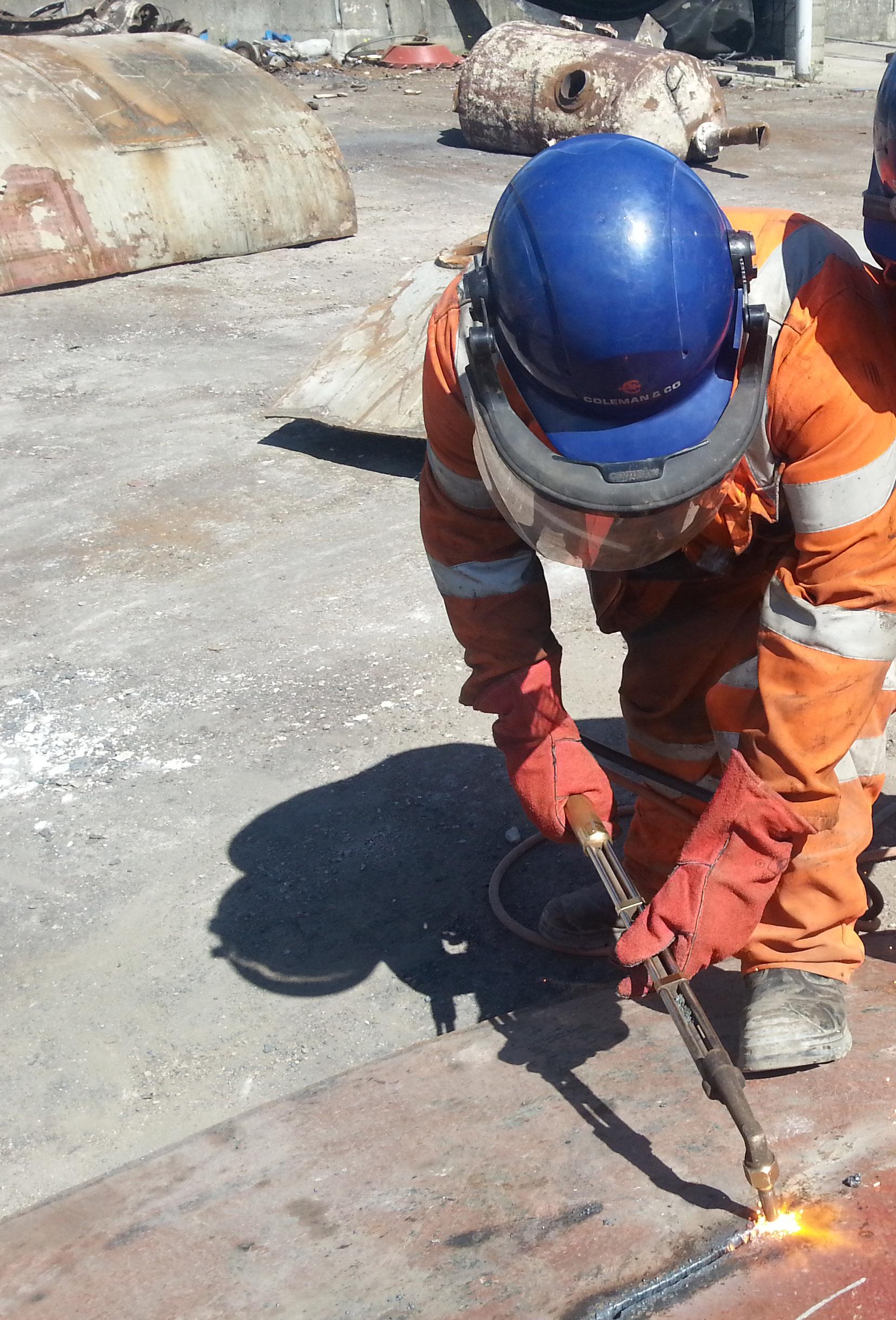
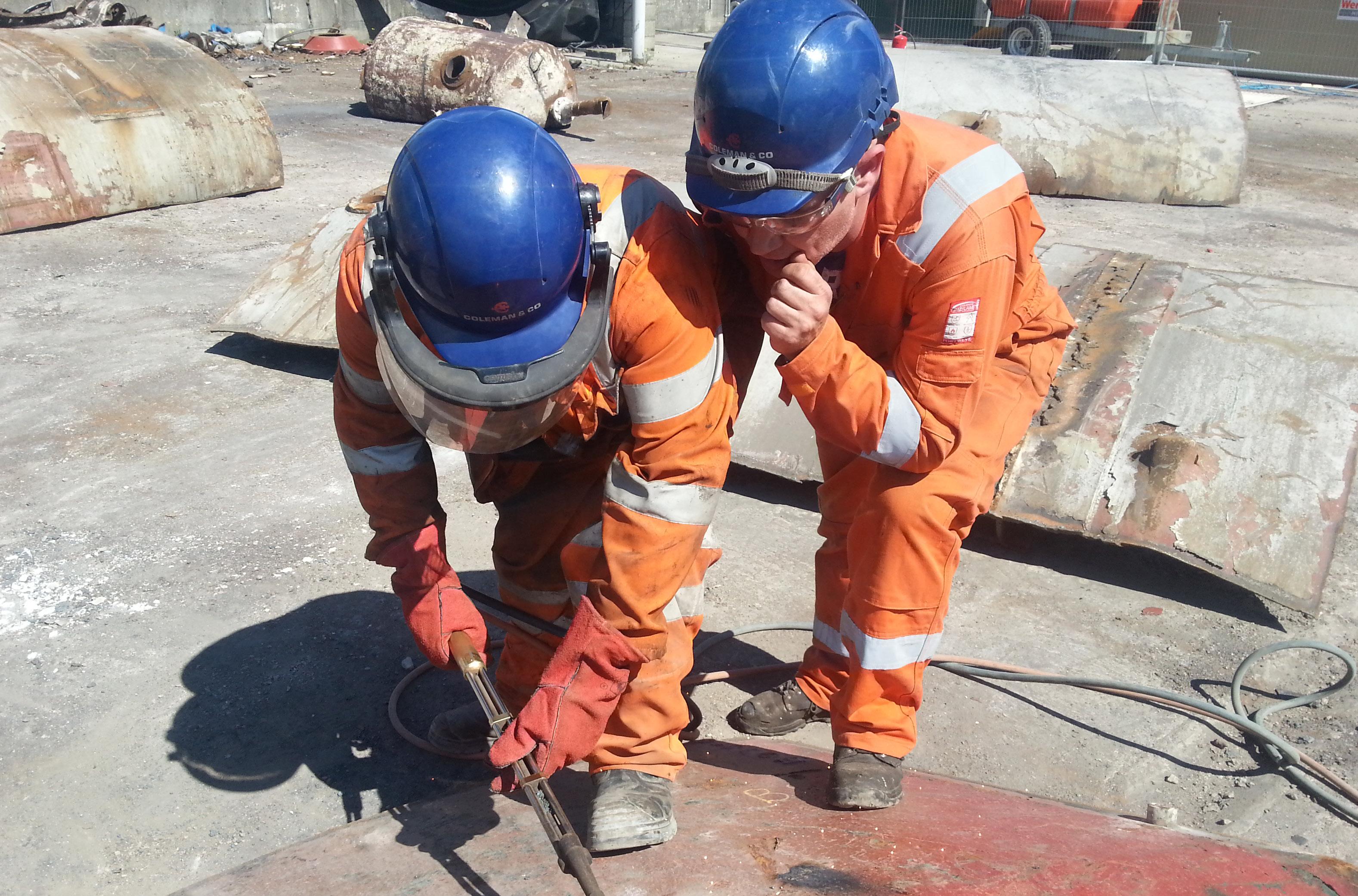
At PERSES, we don’t put theory into practice; we put practice into theory.
Our custom-built online training courses in demolition are available on
TRAINING FEATURE
LearnWorlds, a platform where courses are uploaded and made available worldwide.
All our international courses will be launched on our PERSES Academy page developed on LearnWorlds.
PERSES can provide the courses listed below as well as designing and developing bespoke courses that meet you and/or your company’s needs, which are then submitted to CPD for independent evaluation and accreditation.
NDTG-certified courses currently delivered directly by PERSES are:

• Demolition Visitor
• Demolition Labourer
• Demolition Operative
• Demolition Advance Demolition
Operative
• Demolition Chargehand
• Demolition Supervisor
• Demolition Manager
• Demolition Supervisor/Manager
Refresher
UKATA certified courses currently delivered directly by PERSES are:
• Asbestos Category-A (awareness)
• Asbestos Category-B (non-licensed removal)

demolitionhub.com DemolitionHUB Magazine | 31
TRAINING FEATURE
Prime Safety has been established in the demolition and asbestos industry for over 20 years and offers a wide range of accredited and bespoke training as well as health and safety consultancy services. Based in Maidstone, we work with clients nationally across the UK and are retained health and safety advisors to over 100 companies.


Ensuring that your employees have the correct training is important. Many companies will send staff on courses to simply tick boxes, which is time consuming, costly and rarely improves the business. Here at Prime, we work with our clients to produce meaningful employee development plans, based on employee training needs and appraisals.

As well as training, should you require consultancy, Prime Safety provide H&S advice, guidance, policies and documentation, incident investigations, site audits, management system implementation (9001, 14001 and 45001) and assistance with SSIP. Our compliance services are designed to help businesses with all their health and safety needs no matter their budget and timescales. With our diverse range of services, we are confident we have the skills, knowledge, and experience to assist you.
A selection of our most popular courses:
• CCDO Demolition Labourer, Demolition Refurbishment Operative and Advanced Demolition Operative

• IOSH Managing Safely and Working Safely
• CITB SMSTS, SSSTS and HSA
• UKATA Asbestos Awareness, Non-Licensed Operative and training for Licensed Operatives
• NPORS training in a range of categories
• In-house safety awareness courses in topics such as Working at Height, Fire Safety, Manual Handling and Abrasive Wheels
• First Aid
• Cat & Genny
• CDM Awareness
• Oxy/Propane Hot Cutting
• NVQ assessments in plant, demolition, asbestos and construction from Level 2 to Level 7
For all your H&S training and consultancy needs, please call 01622 768 400 or email info@primesafety.com. www.primesafety.com

demolitionhub.com 32 | DemolitionHUB Magazine
Doosan Construction Equipment is now
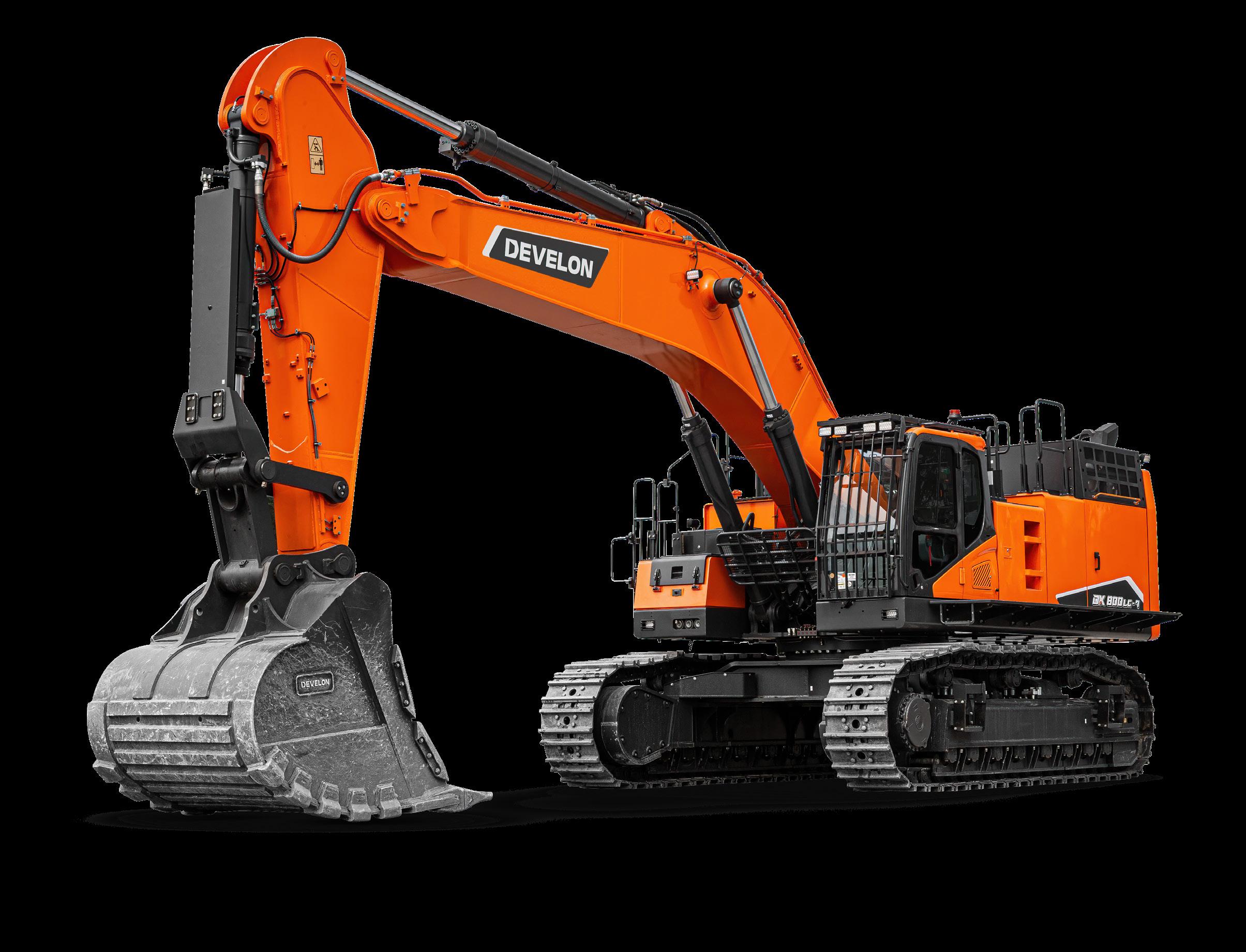
Same quality products maximum productivity outstanding value continuous innovation
Find out more: eu.develon-ce.com
by Simon Barlow, Managing Director Rye Demolition

Apprenticeships just make sense
It should not come as a shock to anyone that the UK’s competitiveness is being severely curtailed because the economy is stalling and as many as four in five businesses are struggling to fill essential vacancies according to figures from the ManpowerGroup. The built environment is no exception and it has been estimated by the CITB that an extra 225,000 workers will be required across the UK from 2023-2027. This figure presents a significant challenge that all companies and non-commercial organisations must surmount, whether a small contractor or a large industry leader.
With a huge degree of uncertainty around the government’s position on immigration and working visas for different job types, industry needs to look for alternative solutions.

Apprenticeships are one part of the answer. They have the ability to create a thriving demolition industry by introducing fresh talent, who need to build a career in a challenging world and have the hunger and ideas to do so. Many people don’t realise that apprenticeships are available to anyone over the age of 16 and not in full-time education. Therefore,
they present the opportunity to not only develop young talent, but also support the growth of existing professionals from other sectors or already within the industry.
An uplift of apprenticeship placements would help ensure companies have the competencies they need to flourish in spite of the UK’s challenging economic conditions. It is imperative that companies across the demolition industry do what they can to utilise, support, and promote apprenticeships. The benefits are numerous and can pay real dividends.

For example, apprenticeships enable strong and immediately usable on-the-job training, as apprentices work directly with managers and supervisors to develop the specific skills a business needs to grow. At the same time, they fully integrate individuals into a company’s operations and culture.

Extensive funding is available for the costs of apprenticeship training – typically employers need to pay 5% of the costs, though for levy paying companies it can be zero. Details will depend on the precise apprenticeship and the company’s situation.
Fundamentally, costs are low and the end result is reduced training costs, faster integration and loyal employees who want to build a career with the employer that has supported their development.
Furthermore, unlike the 16week courses that skills bootcamps provide, apprenticeships last between one and five years, meaning participants are much more likely to retain the skills they’ve learned.
For the trainees themselves, it’s an easy sell. A paid job with an accompanying skills development programme that ensures they gain valuable experience they can actually put into practice at work, while studying on and off the job.
It’s time to breach the boundaries
As mentioned, apprenticeships, though typically marketed towards young people, are designed to be accessible by all. In fact according to parliamentary research, of the apprenticeships started in 2021/22 only 20% were taken up by those aged under 19. The majority (47%) were by people aged 25 and over and those aged between 19 and 24 accounted for 30%. This
TRAINING FEATURE
demolitionhub.com 34 | DemolitionHUB Magazine
The future of the demolition industry depends on apprenticeships
indicates that there is a wealth of experienced talent out there that the demolition industry could secure for itself, in addition to utilising school leavers to plug its empty vacancies.
In order to do so, we have put more effort into prioritising recruitment and “selling” demolition apprenticeships. That means continuing to engage with schools, colleges and universities, but also talent pools that have been unfairly stigmatised, overlooked, or have little or no experience of the built environment. For example, the unemployed, armed forces, exoffenders and even those who have been made redundant in other industries, such as retail and technology.
Future opportunities and social impact
For those interested, we must demonstrate that apprenticeships offer the opportunity to start an exciting new career in the demolition industry in an accessible manner, giving individuals the time and experience they need to learn a new trade and develop as professionals, with the advantage of being paid in the process.
Once their apprenticeship is complete, an individual can take their career as far as they want. For example, an apprentice may start as a machine operator but then progress into environmental management, surveying, project management, SHE specialisms or even setting-up their own company.
It is also important to showcase that demolition generates a large number of transferable skills. This is important given the findings of a 2021 survey by recruiting experts,
Hays, which found that employees are eager to fulfil their own need and career goals by strengthening their people management and interpersonal skills, as well critical thinking, negotiation and decisionmaking skills. Demolition ticks all of these boxes and in doing so prepares an individual for wherever their career will take them.
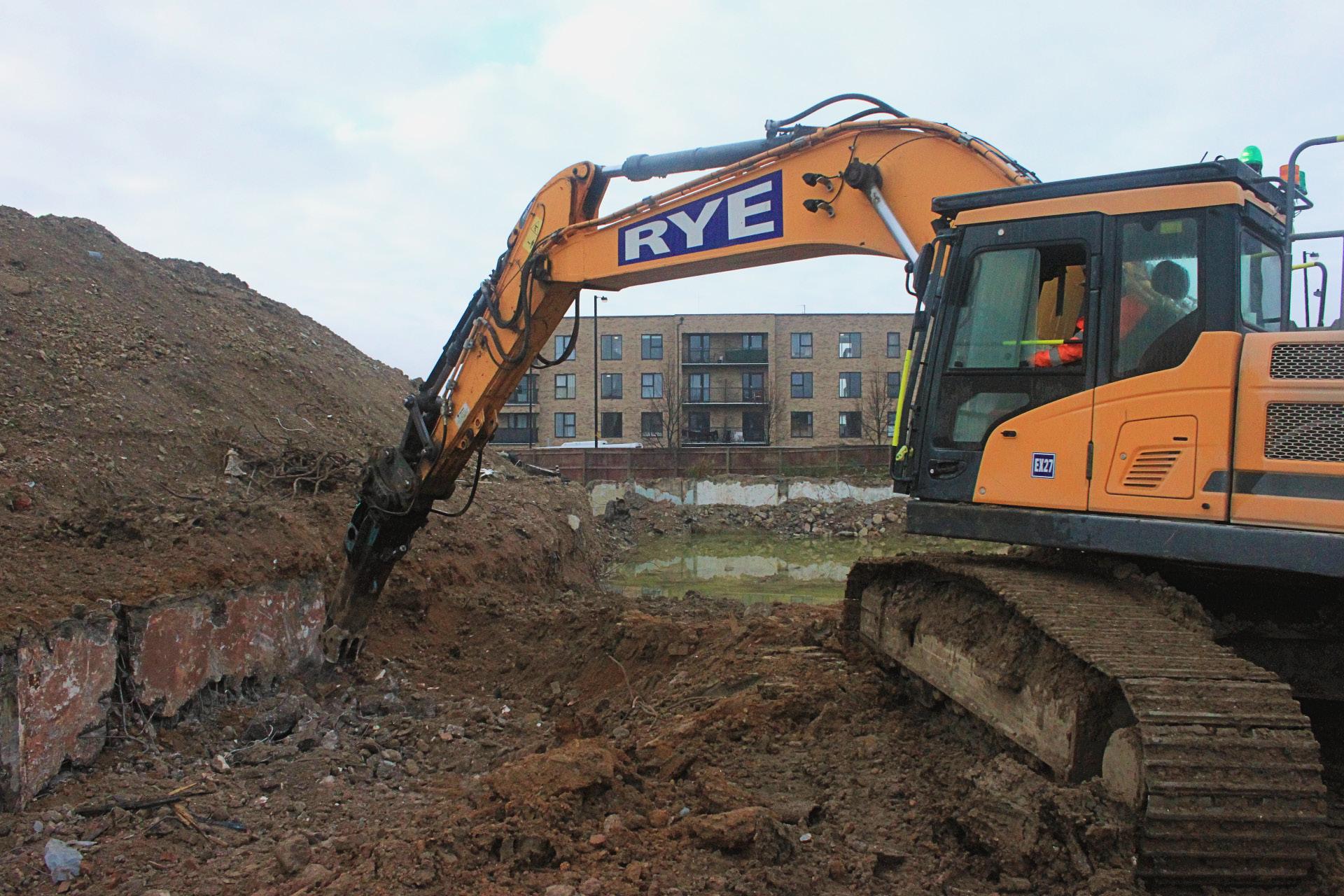

Today’s employees, especially those labelled Gen Z, place a greater value on how companies position themselves on issues outside of the workplace. Professional services firm PWC found that Environmental, Social and Governance (ESG) issues are foremost on their minds. This translates as 86% of employees preferring to support or work for companies that care about the same issues they do. That means that we need to demonstrate how we benefit the communities we work within, our efforts as an industry to become carbon neutral, to tackle discrimination in the workplace and to address other important issues.
Next steps
For any demolition companies that have yet to hire an apprentice and are interested in doing so, the National Demolition Training Group (NDTG) and its “Trailblazer” apprenticeship programme is an excellent place to start, generating highly qualified demolition operatives via on-site and classroom training over a twoyear period.
The demolition industry has a lot to offer job seekers but needs to do a far better job of communicating this if it is to remain resilient in the future. Outdated perceptions of demolition continue to pervade, meaning that the industry loses out on a lot of excellent talent.
By making the case for the professionalism of demolition, its benefits and efforts to combat climate change and other societal issues, we have every opportunity to lay the foundations for a strong and viable labour pipeline in the future.
TRAINING FEATURE
demolitionhub.com DemolitionHUB Magazine | 35
Go straight to the top with NDTG
Having been at the heart of the industry for 45 years, you can see why NDTG is considered the home of demolition training.
NDTG trains more CCDO cardholders than any other organisation in the UK, giving contractors certainty that every NDTG-trained operative on their demolition site has been trained to the highest standards.
In a highly specialised and skilled industry like demolition, quality training is absolutely paramount, and NDTG provides training from CCDO Labourer level right up to Manager, with the same NDTG guarantee of quality at every level.
Forty-five years could be enough to make some businesses rusty, but in recent years NDTG has been enhancing its course offering based on industry feedback. NVQs, mental health and wellbeing, CLOCS Traffic Marshal, and Temporary Works courses are all on the agenda for
NDTG – as well as bespoke training programmes tailored to your specific needs.

Following the pandemic NDTG began offering more online remote courses, widening its reach beyond its Hemel Hempstead training headquarters, all delivered seamlessly and to the same exacting standards as its face-toface training.
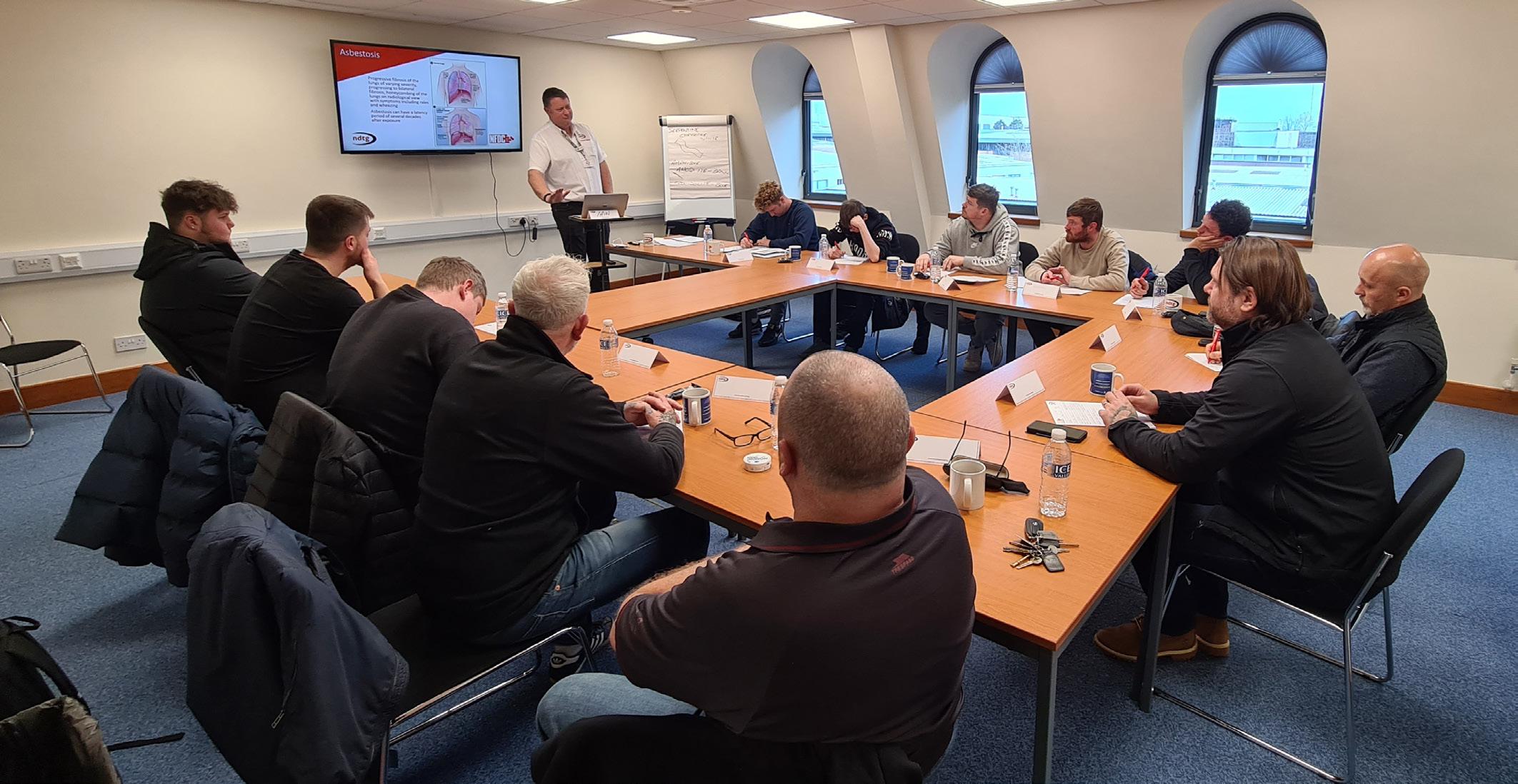
With close ties to the CITB, the team at NDTG know exactly how to
Go to NDTG for:
• CCDO Cards of all levels,
help make the most of CITB skills and training funds – something which is often overlooked or forgotten about but could be worth thousands of pounds to CITBregistered contractors.
You’d be hard-pressed to find someone in demolition who hasn’t heard of The National Demolition Training Group. Next time you need training, it’s definitely worth heading straight to the home of demolition training.
• Trailblazer Demolition Apprenticeships,
• Asbestos Awareness & Non-licensed Asbestos Removal courses,

• Demolition-specific CPCS categories,
• Accredited NVQs – Levels 2, 3, 4, and 6,
• CITB skills and training fund claims advice,
• Bespoke training programmes,
• Temporary works and CLOCS traffic marshal training.
TRAINING
FEATURE
demolitionhub.com 36 | DemolitionHUB Magazine
MEET BROKK 900

THE WORLD’S MOST POWERFUL DEMOLITION ROBOT
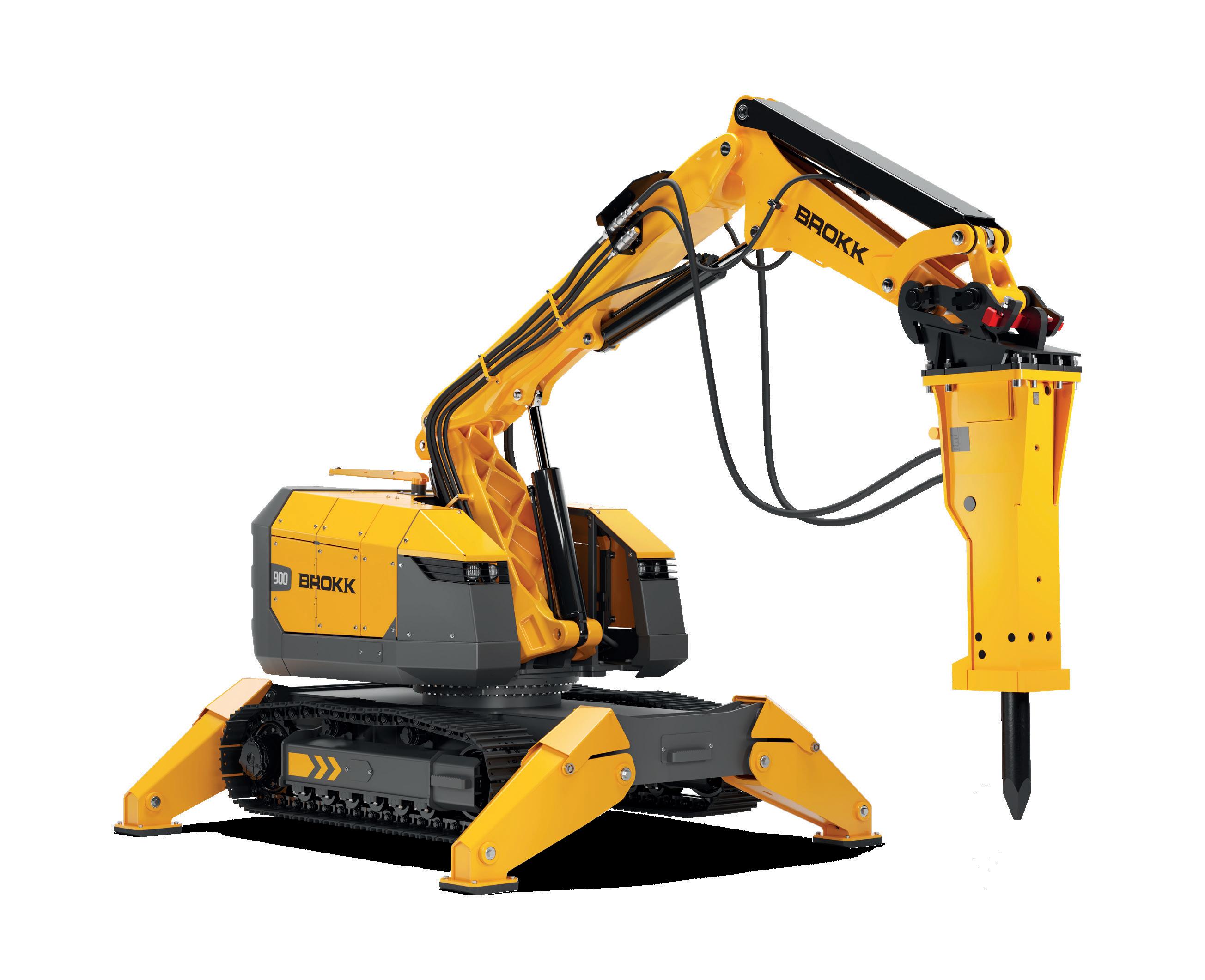
Brokk
|
UK
www.brokk.com/uk
Packed with demolition power, equipped with the heaviest Brokk hydraulic breaker and built to withstand demanding jobs, meet Brokk 900. All of this combined with reliable SmartPower™ makes the Brokk 900 the perfect solution for heavy demolition!
Technical education: Creating a new generation of construction workers by
The country’s infrastructure relies on the construction industry working at its best and key to this is good talent – employees that are passionate and equipped with the right skills to perform their role to a high standard. This has been an ongoing challenge for the UK’s construction industry, with many SMEs within the sector ranking recruitment among their top three concerns for this year, according to the Department for Education’s recent Skills Horizon Barometer.
However, positively, the data from the report also shows employers are very optimistic about this year. Despite the difficult landscape they are working in, nearly half (45%) plan to invest in upskilling their staff. At BAM Construction, we are firm believers in investing time in technical education when it comes to recruitment and upskilling, to both help plug skills gaps and empower the employees of tomorrow.
Empowering people through skills
For a long time, skill gaps have been an issue for both employers and individuals trying to enter the

industry. Employers often struggle to find applicants who have the right experience and skills that align with the roles they need to fill. On the other side of the process, applicants often find lack of experience a barrier to securing a job within the industry, particularly at entry level.
By tapping into technical education opportunities, employers can form connections with bright young talent. They can shape what is learned by their apprentices or T Level students, enabling them to ensure they are gaining skills that are useful and relevant for the business. For those taking a technical qualification, they gain valuable experience and connections that will set them up with a good understanding about the practical day to day of a business in construction.
Technical education in action –BAM’s initiatives

BAM Construction is a proud investor in technical education. Here across the Midlands Region alone, we currently have six technical apprentices and ten T Level students on industry placement with us, three of

these students have just secured apprenticeships with BAM.
T Level placements and apprenticeships are naturally complimentarily routes, with the opportunity available for T Level students to progress from their placement with us to doing a degree apprenticeship as an employee. As they will have done with their T Level, they’ll split their degree apprenticeship between study and working, only now they’ll be able to do so with a salary. This allows students to build on their existing T Level study with more hours of experience and granular knowledge about the business that they may not have been exposed to before.
It’s worth noting that apprenticeships are not just for young people and school leavers. Anyone above the age of 16 can do an apprenticeship, meaning it can be offered as a way for existing employees to upskill too, for example if they want to move across the business into another department or progress in their current role.

TRAINING
FEATURE
demolitionhub.com 38 | DemolitionHUB Magazine
Phil Eves, Education Coordinator at BAM Construction
A snapshot of the future Construction will always be an important industry, so it’s vital that businesses in the sector see it as a responsibility to do their part in investing in upcoming talent, to secure a steady pipeline of bricklayers, architects, quality surveyors and so forth, coming into the business. The industry is rich with opportunity – through embracing technical education we’re able to show this to eager talent and later harness their passion into useful skills which will open doors for them too.
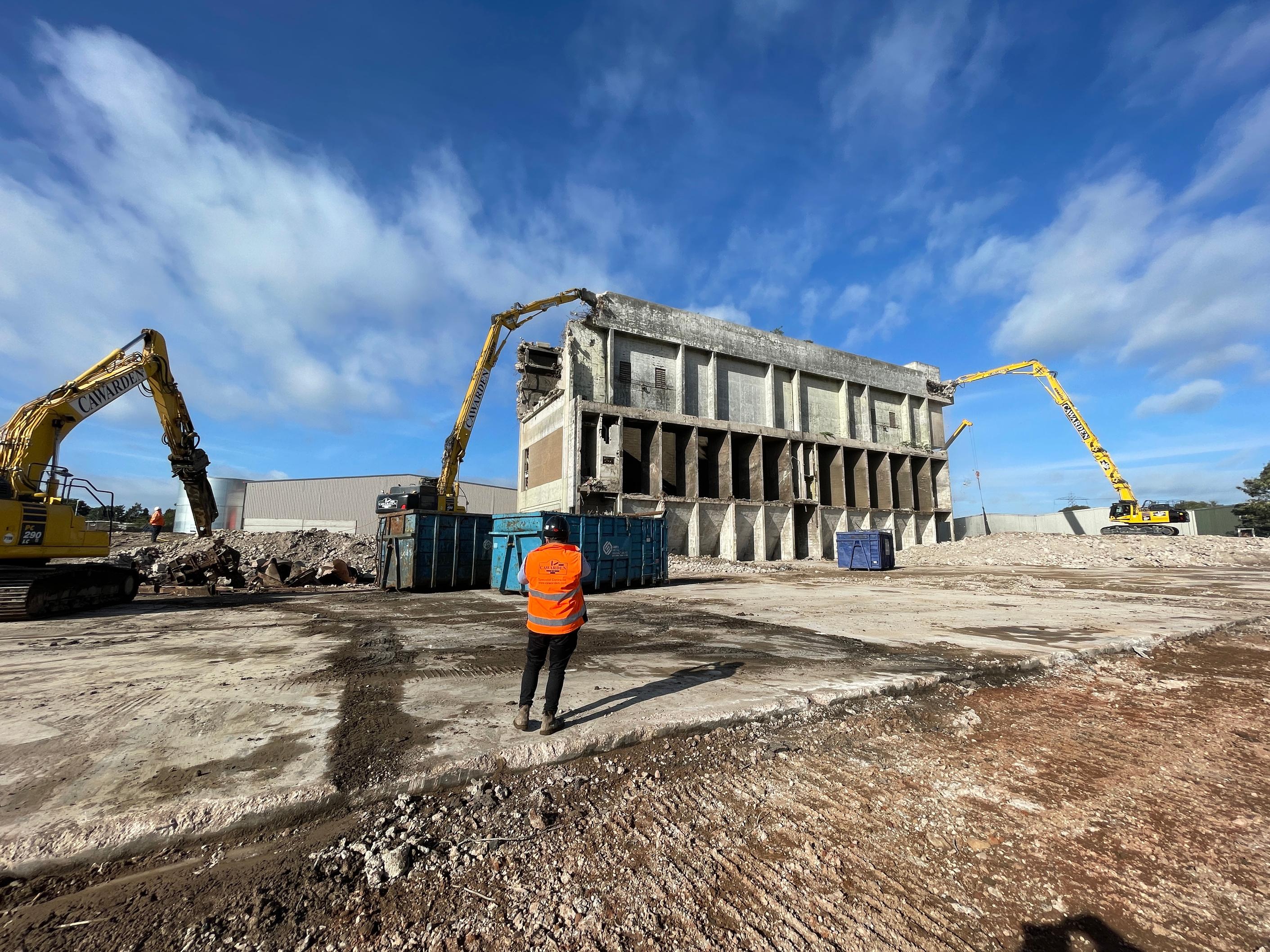
To find out more, visit https:// find-employer-schemes.education. gov.uk.



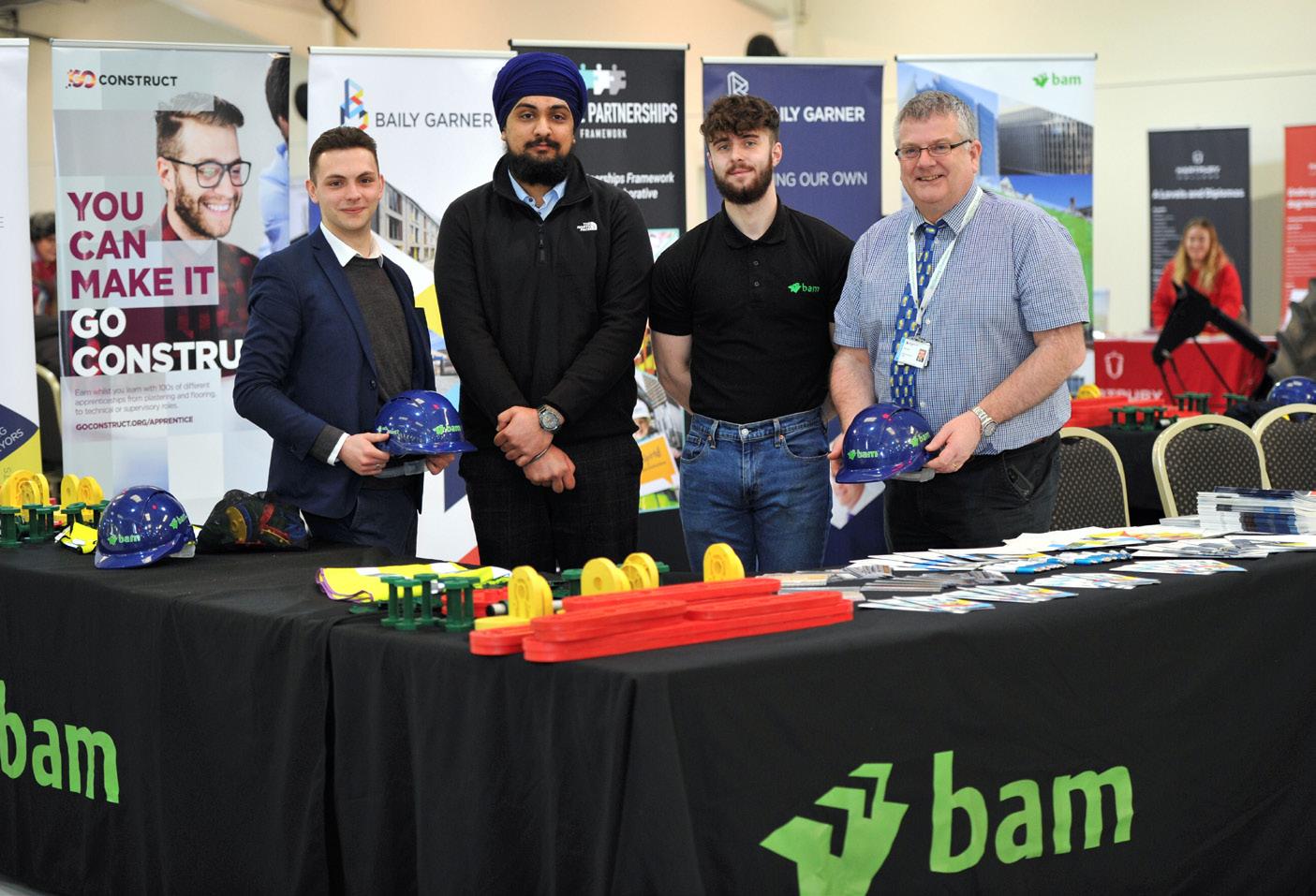


n g o i n g b u s i n e s s g r o w t h a n d s u c c e s s , w e ' r e o n t h e l o o k o u t f o r e x p e r i e n c e d p e o p l e t o j o i n t h e C a w a r d e n f a m i l y
F o r f u r t h e r i n f o r m a t i o n o r t o a p p l y , c o n t a c t

C o n t r a c t s D i r e c t o r , S a m u e l C r o o k s
r e c r u i t m e n t @ c a w a r d e n c o m
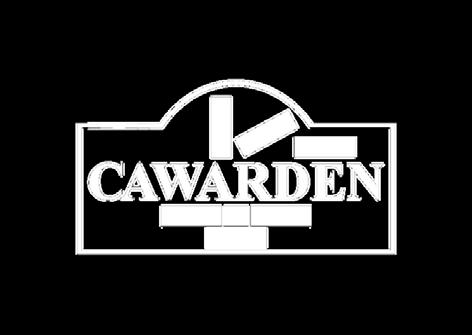
TRAINING FEATURE
N O
G c a w a r d e n c o m G o l d & B l a c k C a r d C C D O S i t e M a n a g e r s C C D O A d v a n c e d D e m o l i t i o n O p e r a t i v e s C C D O O p e r a t i v e s R e a c h n e w h e i g h t s i n y o u r d e m o l i t i o n c a r e e r b y j o i n i n g o n e o f t h e U K ' s l e a d i n g s p e c i a l i s t c o n t r a c t o r s . D u e t o o
W H I R I N
0 1 3 3 2 8 2 0 4 8 8
AW Demolition celebrates 10 years in business
By Paul Argent
Contractor: AW Demolition
Structure demolished: Former retail and residential accommodation over four storeys
Techniques: Kiesel KMC350 machine with TAB boom and selector grab
Future use of site: Residential
Completion: June 2023
Headed by Austin Wilkinson, the company has seen some ups and downs in the first decade of trading as most startup companies do. Not deterred by any of this, Austin has grown the business into the success it is today.

In 2013 Austin left his operator’s job at nearby PP O’Connor and set up on his own with a used Komatsu PC290, one of the best machines he says he has owned and operated. Initially undertaking on subcontract work for some of the larger demolition companies in the UK, Austin’s reputation for delivering a quality and cost-effective project eventually led him to start pricing and winning his own contracts. This
exposure to the wider demolition world was bolstered by his love of telling his story over social media, something he and his team still do today. With contracts increasing in both number and size, Austin was quick to add machines to the fleet to service as much of the work in-house. Sticking to his philosophy that a good used machine is worth investing in, but spending money on attachments, Austin has built up a fleet of heavy-hitting demolition machines that many longer established companies would be jealous of.
The latest machines arriving on the fleet are a pair of Kiesel KMC350LC demolition specification
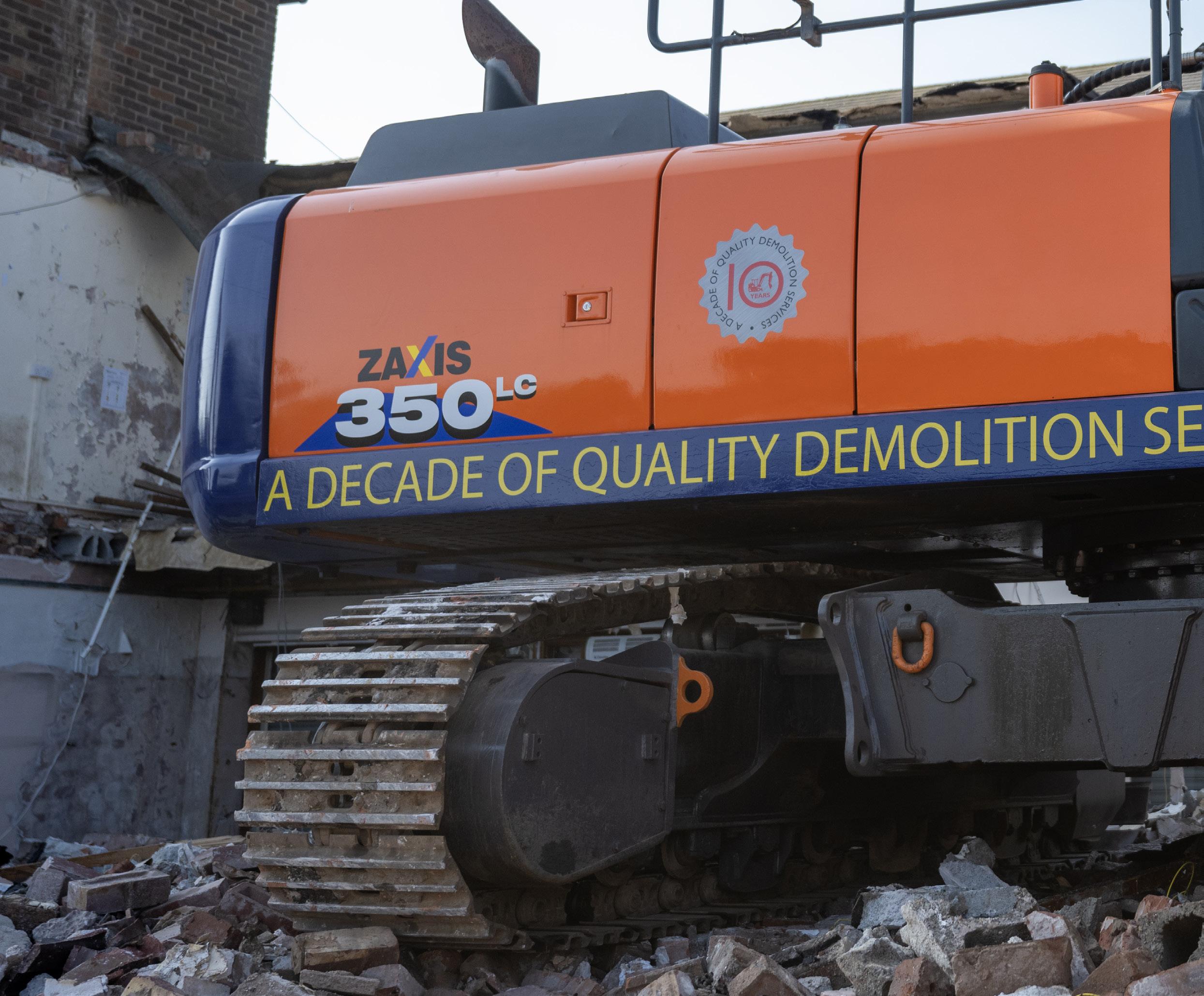
machines complete with TAB booms and a 22-m high reach arm shared between the two. The Kiesels join several 13, 22 and 40-t machines and also a 70-t Volvo high reach.
Purchased from Midlands based AR Demolition, the Kiesel machines feature a base Zaxis 350LC from Hitachi heavily modified by Kiesel in Germany, who add an extending undercarriage, additional lift cylinder and a rake of demolition guarding, tilting cabin, additional counterweight and a huge OilQuick coupler between the boom foot and the additional boom systems.
The two KMC machines were well looked-after during their time on the AR fleet and have been replaced following several years of successful service. With their arrival at AWD, the two excavators have both been subjected to a fresh coat of paint prior to entering service with
demolitionhub.com 40 | DemolitionHUB Magazine case study
Austin and include his corporate blue paintwork flashes. Both machines have also been sent into the Middlewich yard of attachment specialists Worsley Plant to have Lehnhoff Lehmatic hitches fitted, allowing Austin’s existing fleet of attachments to be utilised.
The introduction of OilQuick technology into the fleet has been smoothed out somewhat with Worsley Plant now being able to supply and service the Swedish coupler alongside its established Lehnhoff brand.
Demolition Hub caught up with one of the Kiesel machines on a project in the Manchester suburb of Sale, where the AWD team had been tasked with the demolition and reduced level dig for a new housing development.
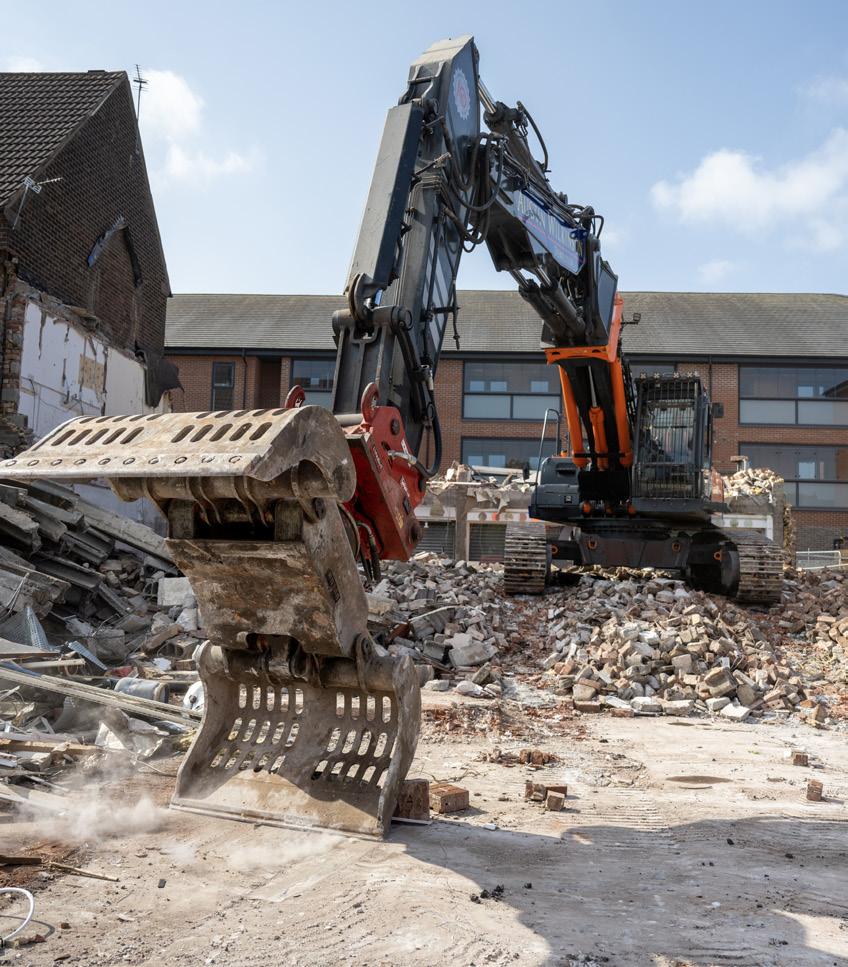
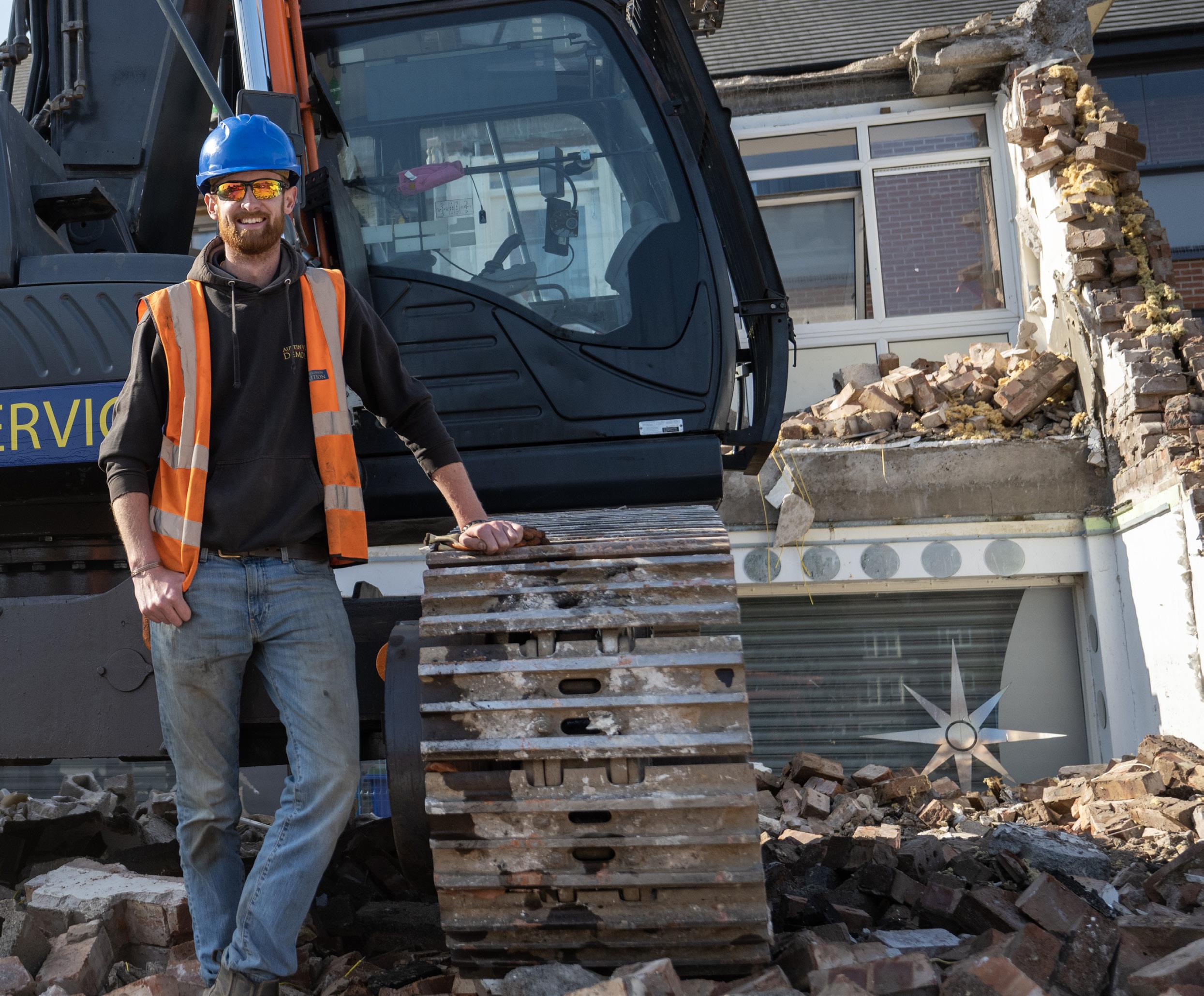
The long, thin site had been partly developed with a low-rise
case study
block of apartments standing almost complete. Sitting within four metres of this building stood a row of former shops complete with three storey living accommodation sitting on top. Constructed in the 1960s the buildings consisted of a brick outer skin, timber and tile pitched roof and bison beam floors. A cast in situ concrete overhang above the former shop fronts gave the apartments above a balcony but also tied the entire frontage together.
With the asbestos removal and soft strip works supposed to have been completed prior to AWD’s arrival on site, it was just the structural demolition that required completing. This changed, as once the security grilles covering many of the windows were removed, the existing timber and UPVC windows and doors were found to be still in place. There was also a small
With contracts increasing in both number and size, Austin was quick to add machines to the fleet to service as much of the work in-house
demolitionhub.com DemolitionHUB Magazine | 41
case study

quantity of timber found in the building as it was demolished with experienced operator Elliott Eaton deftly using the Rotar selector grab to pick it out and put it to one side for recycling.
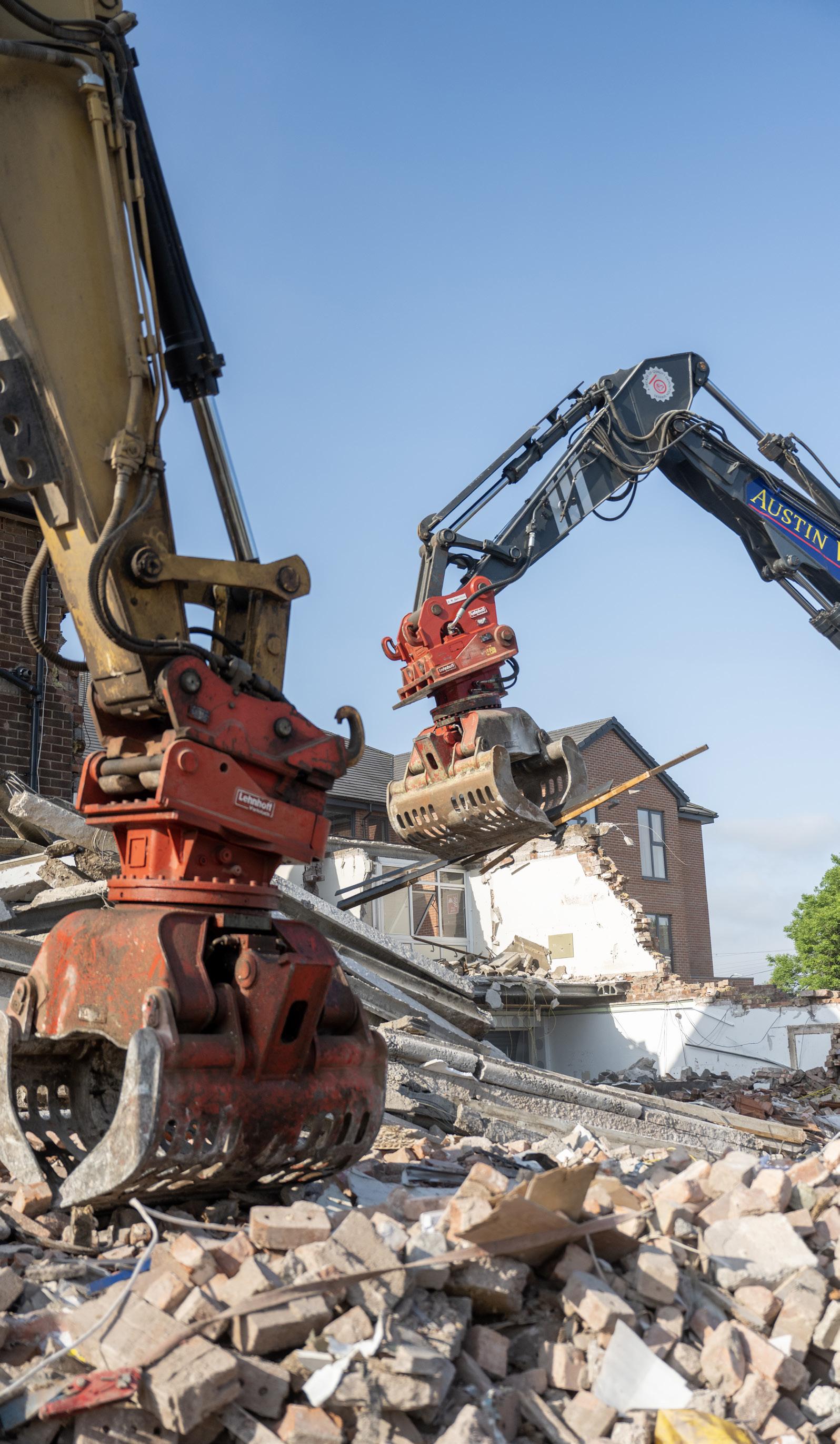
The widespread use of heavyduty selector grabs on a modernday demolition project hints at both their sheer versatility and the need for the demolition contractor to cost effectively segregate materials. Pulling out plastic windows, timber, cable and pipework and building a pile of each material for further recycling goes to show the lengths a contractor will go to not only for a healthy return when it comes to ferrous and non-ferrous material, but also to reduce the onward cost for a recycling firm to segregate materials at their premises.
Climbing the pile of brick to allow him to bring in the wall and concrete overhang on the shops, Elliott quickly widens the tracks on the Kiesel. Simply removing two pins and lifting the track free of the ground allows him to push the track gauge to the maximum and increase the machine’s stability. With this completed the remainder of the wall was dropped and the huge concrete beam pulled to the floor and moved to one side for processing.
Moving on to the next part of the building, the huge forward reach of the TAB boom allowed Elliott to safely remove the roof tiles and timbers with ease before segregating the material. Working under a constant spray of water from the former military fire engine acquired by Austin to provide dust suppression duties, the building gradually disappeared section by section.
The addition of the two Kiesel machines allows Austin and his team more flexibility when it comes to undertaking projects. “We can now send a machine with a greater reach and capacity to do a job where we once had to put in either a larger standard machine or one of our high reach machines,” Austin said. “Having the ability to retract the tracks and
still weigh less than 50 tonnes is a great benefit for us as we are able to transport it around the country on our own truck too.”
Austin jokes that the machines
were added to the fleet as a birthday present to himself, but in reality, he is actually looking to the future and the added versatility he hopes they will bring him on forthcoming contracts.
demolitionhub.com 42 | DemolitionHUB Magazine

Demolition Hub te
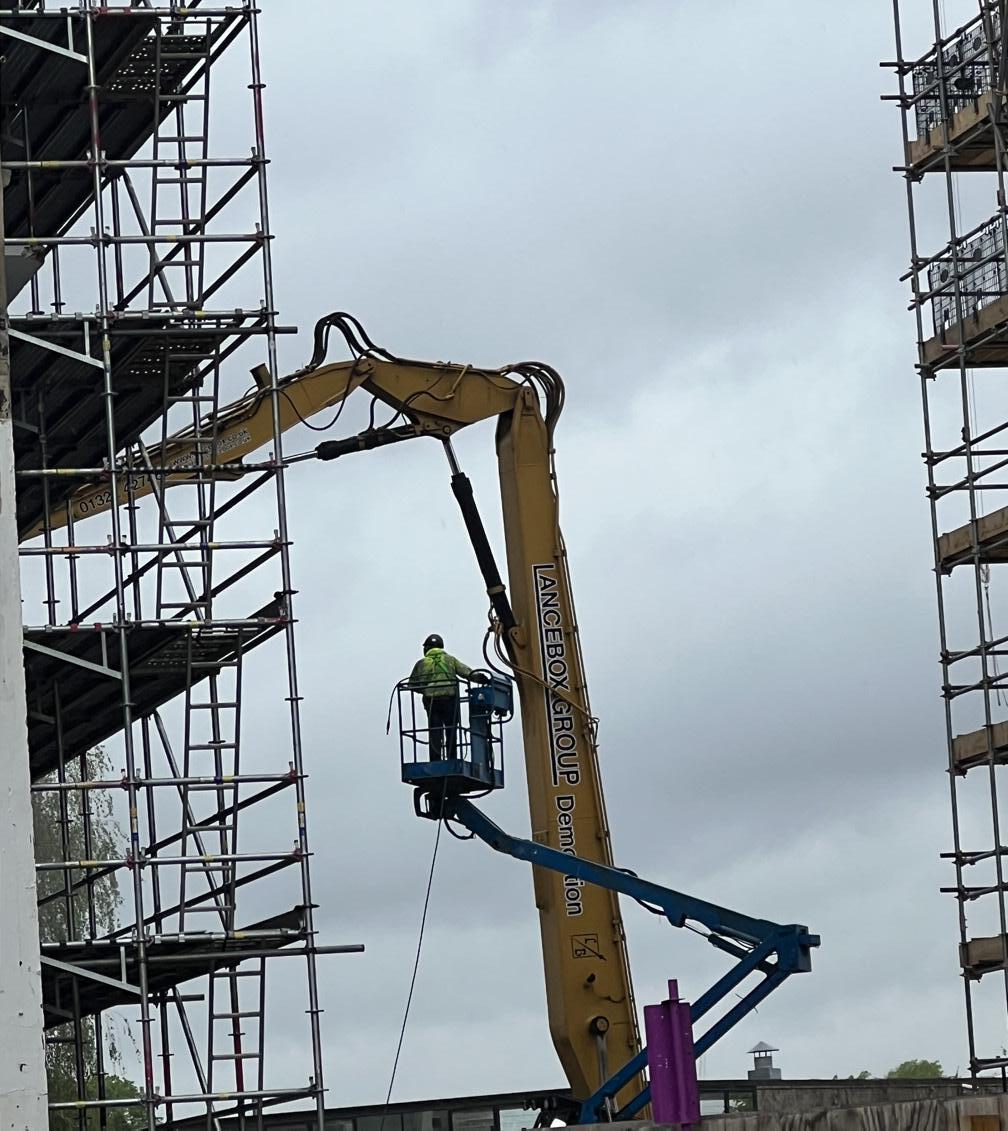
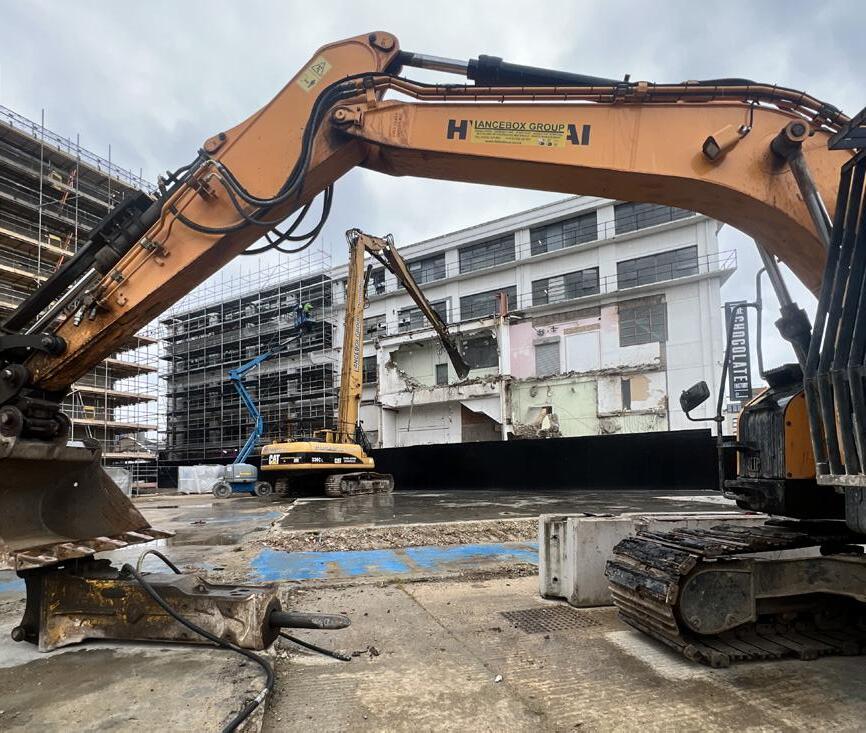
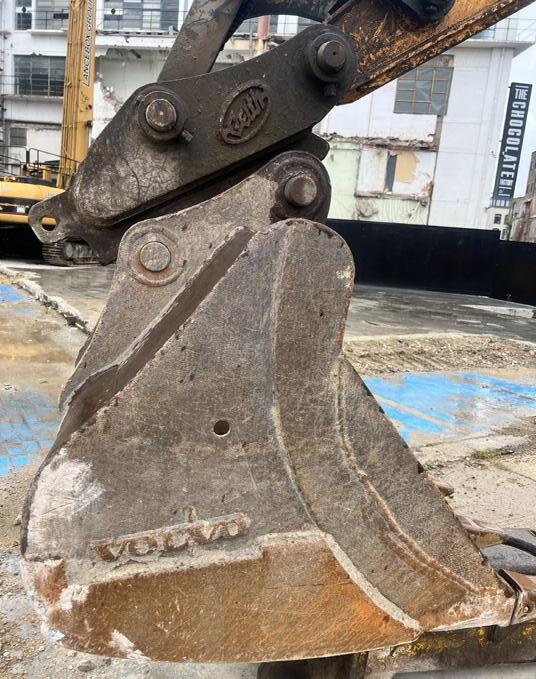
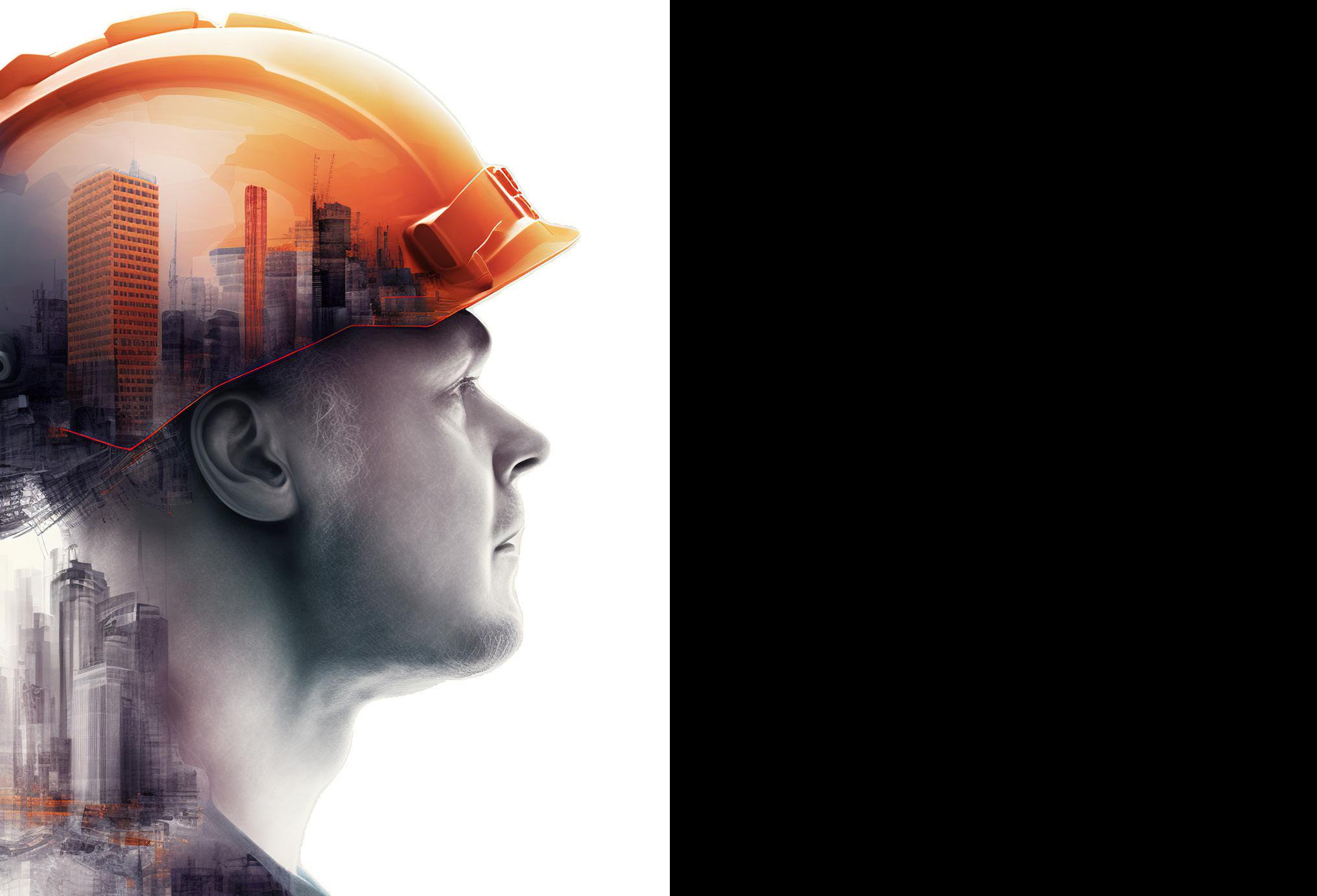
since the last issue, with Burke Demolition, Demo SOS (Strip out Solutions) and Lancebox.
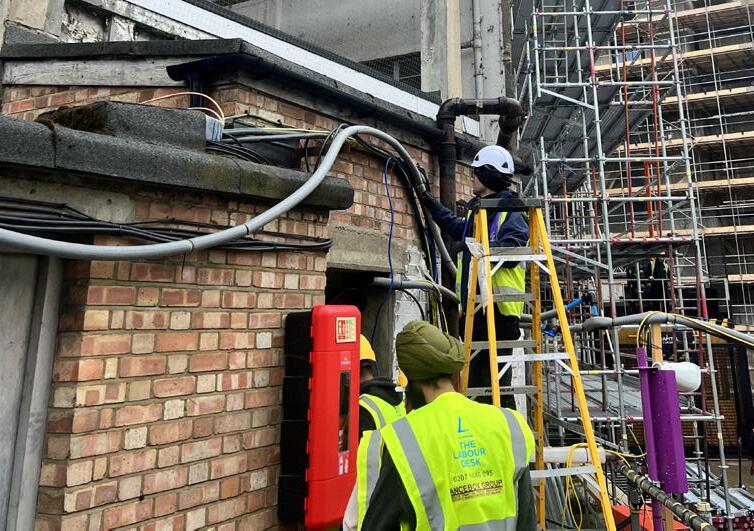
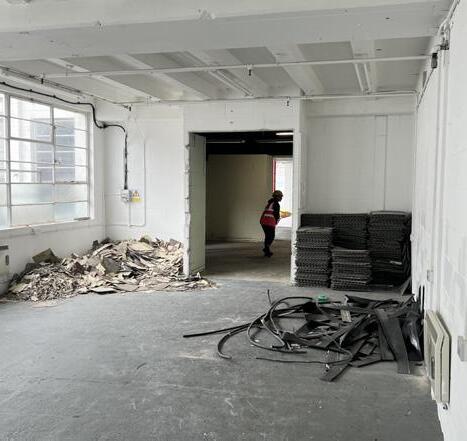
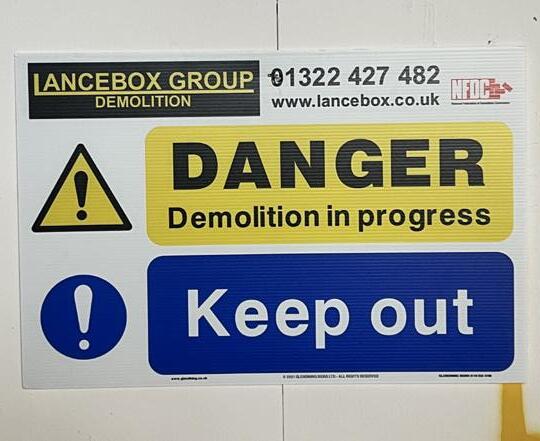
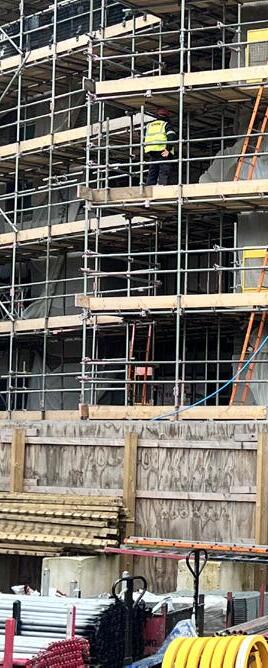
Having been on site with some brilliant contractors, this collage shows you just how immersed in this industry we are and how much we are prepared to do to meet with those involved in it, beyond the profusion of industry events we attend.
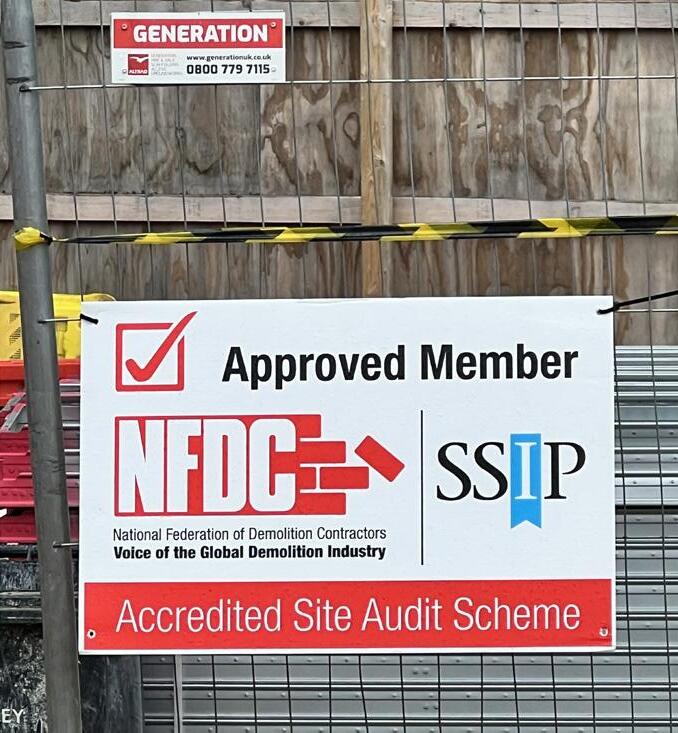
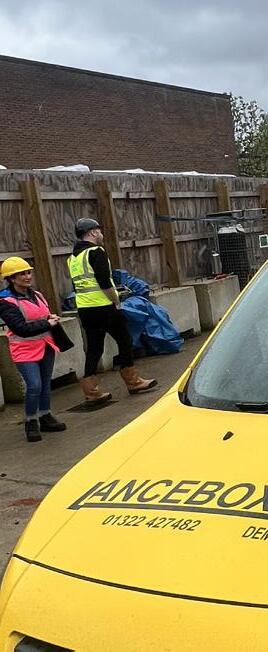
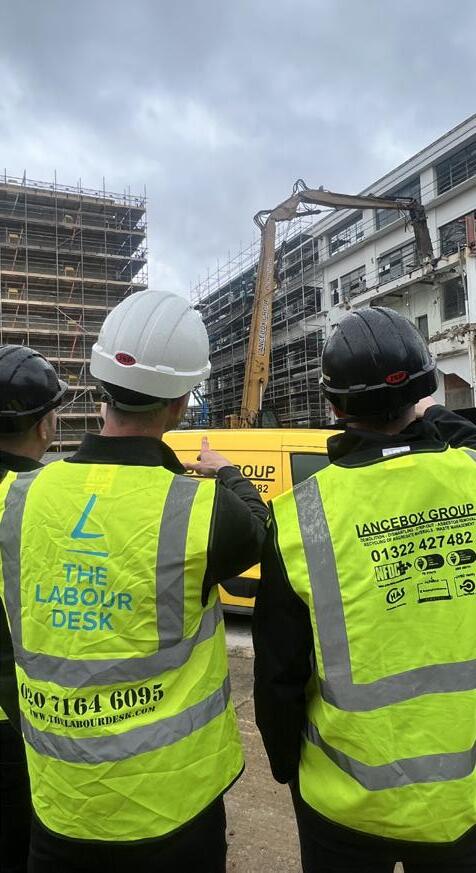
With this now a regular feature, we would like to invite you to invite

demolitionhub.com 44 | DemolitionHUB Magazine
Job name: The Chocolate Factory
Location: Wood Green, London N22 6XJ
Expected duration: 16 – 18 weeks

Equipment used: CAT 330 High reach, Hyundai 130, Bobcat E11, Makita recips, handbreakers, cordless drills

Operatives involved: Supervisor, Dave Andrews; High Reach, Micky Wake; Plant Operative, Tony Pearce; 10 x Labour Desk CCDO ops
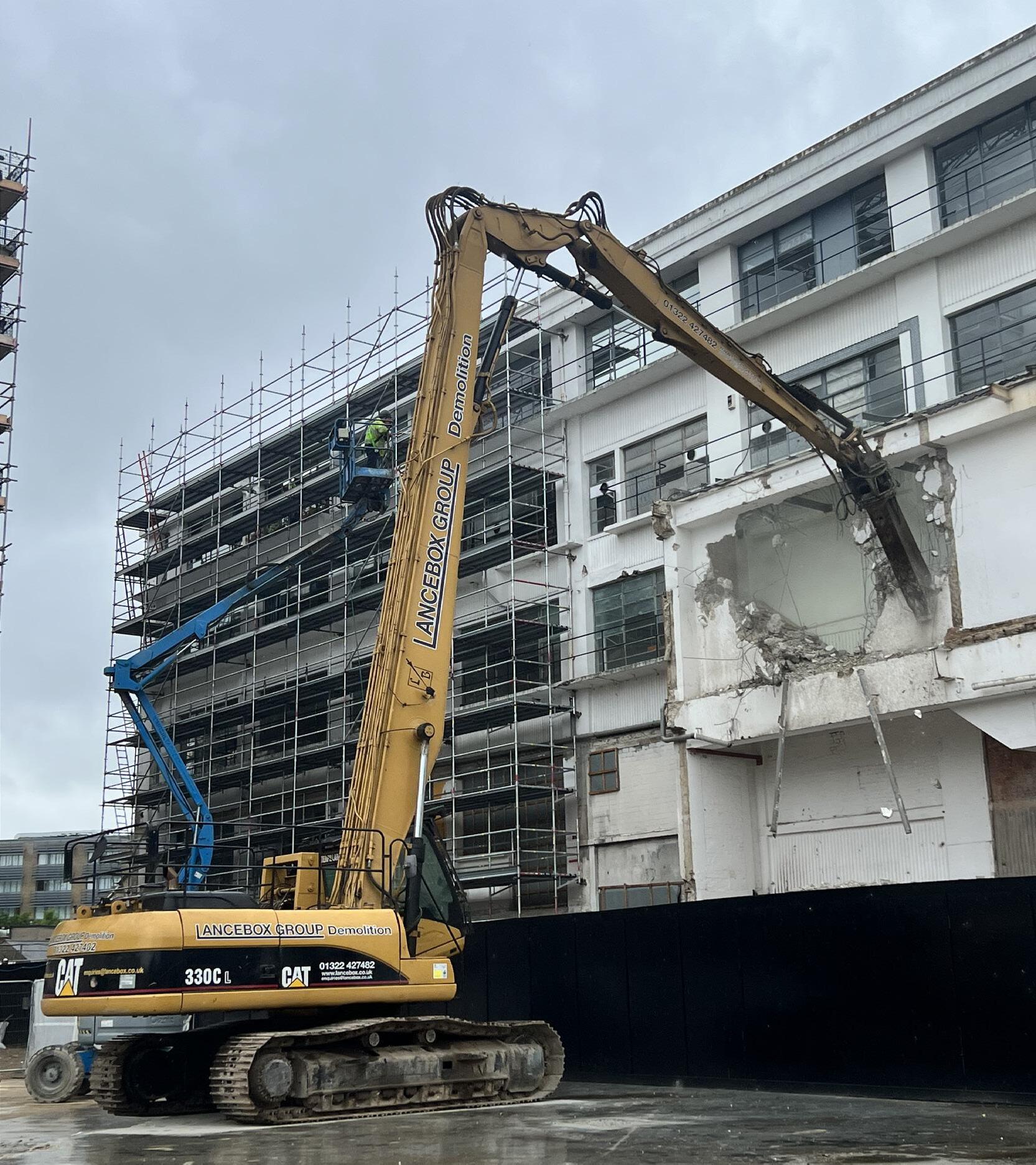

Health and safety: Well run site with strict weekly inspections. Audited monthly by Prime Safety


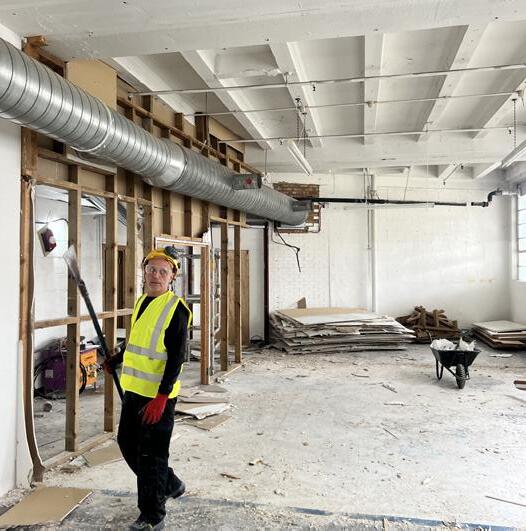
Client: Blenheim House
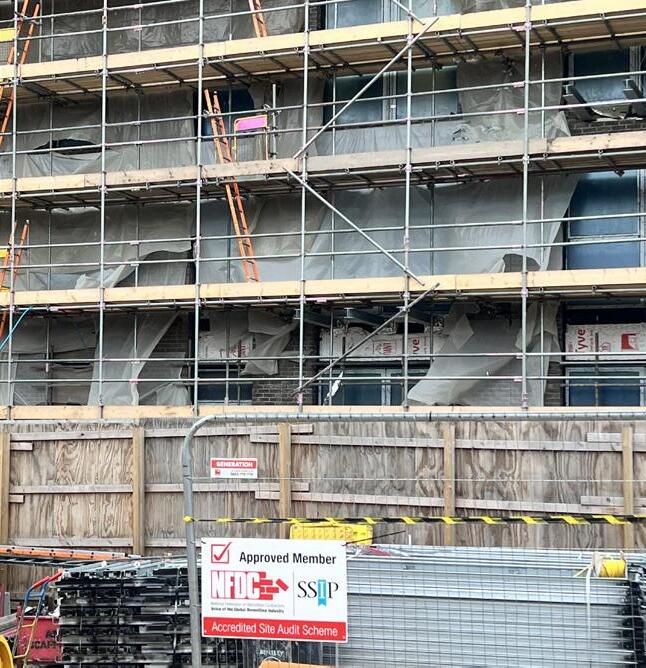
demolitionhub.com DemolitionHUB Magazine | 45
Demolition Hub on site

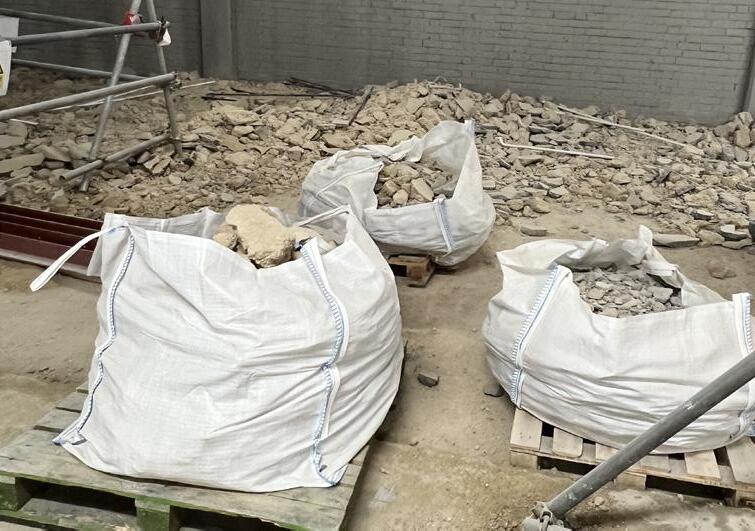
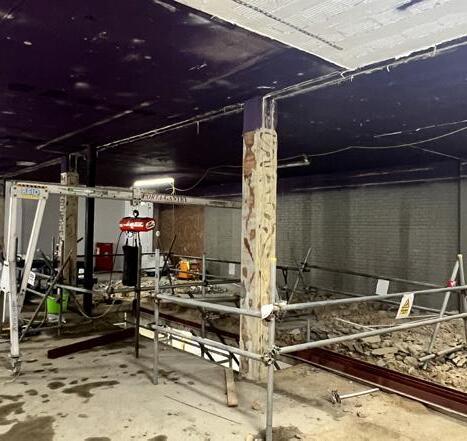

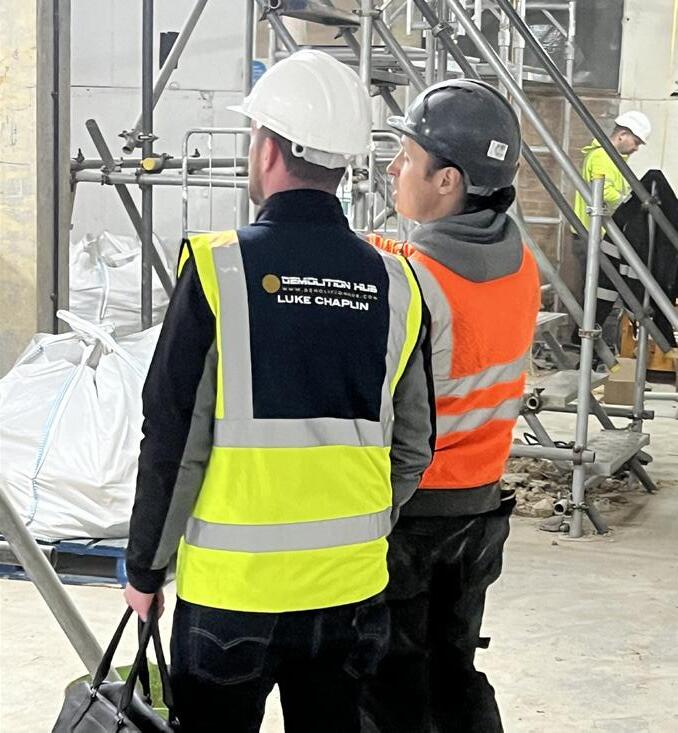

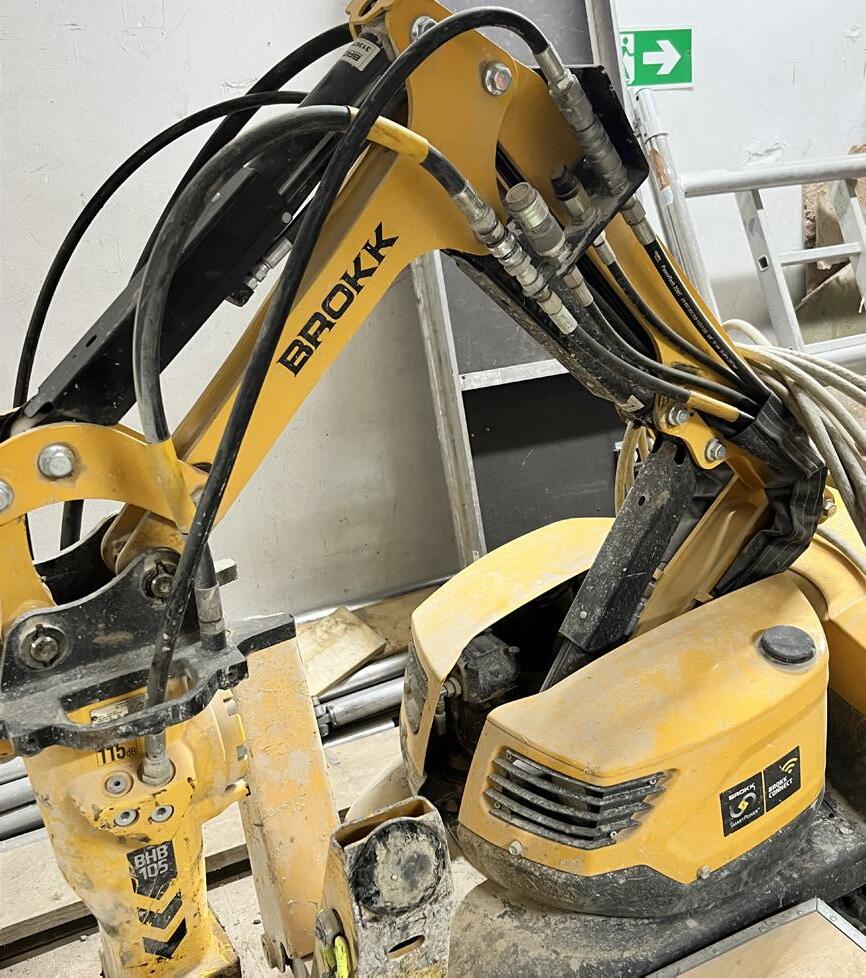
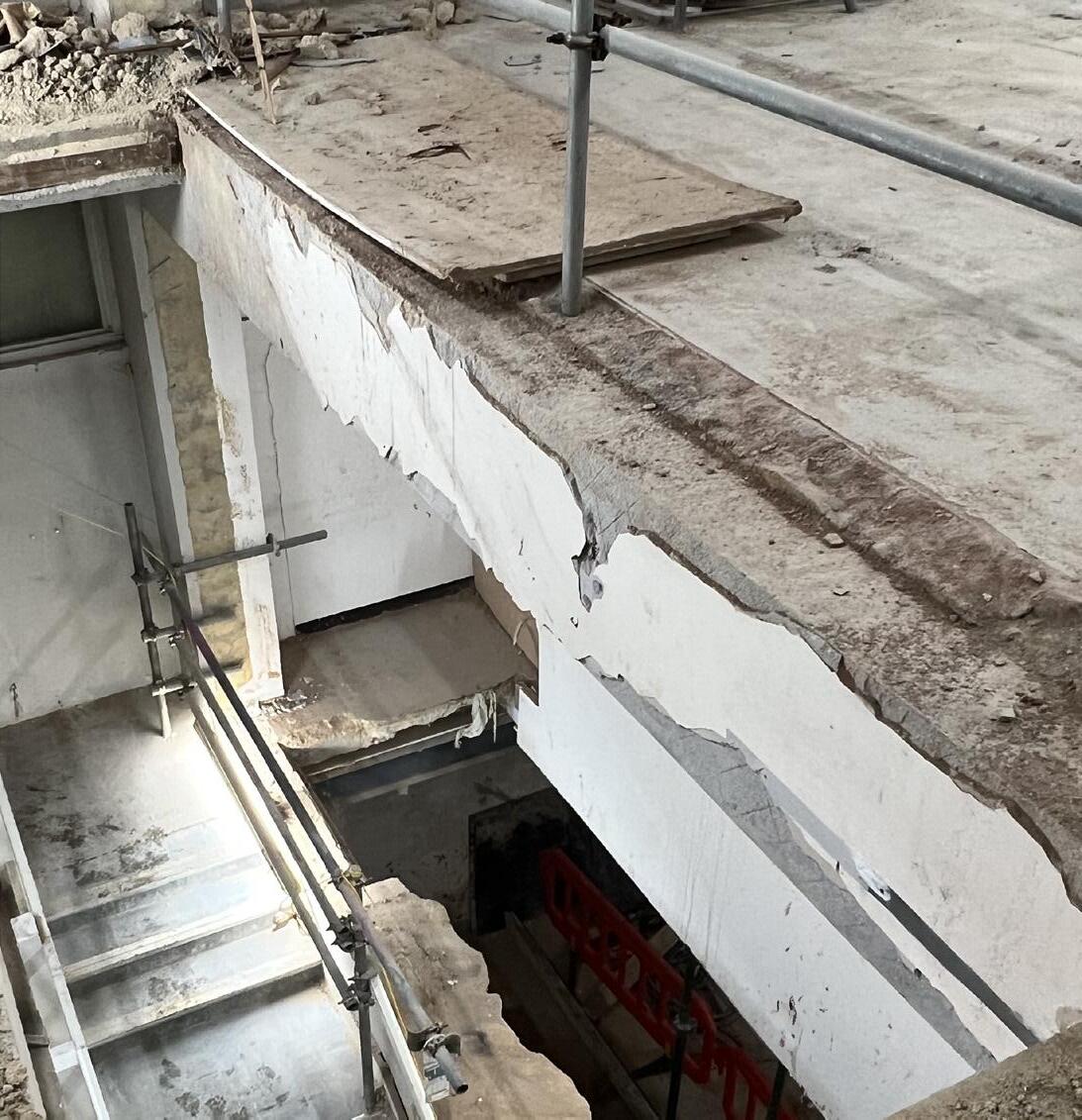


demolitionhub.com 46 | DemolitionHUB Magazine
Job name: Units 37 and 38, Churchill Square Shopping Centre
Location: Brighton and Hove
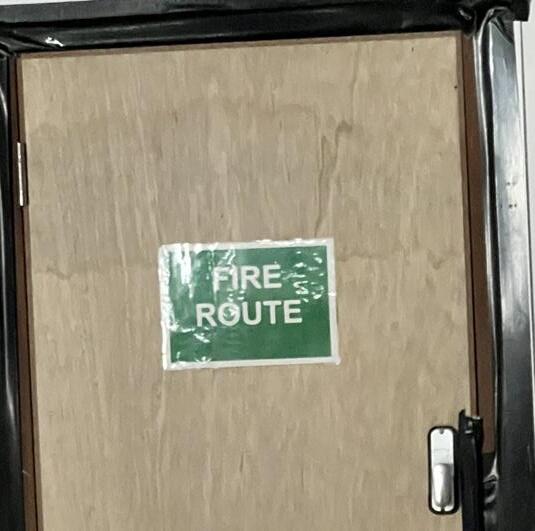
Expected duration: Five weeks

Equipment used: Brokk, armorgard rubble truck, recip saws, impacts and breakers

Operatives involved: Seven operatives, one supervisor and one Brokk operator
Health and safety: Two-weekly H&S adviser’s site inspections


Client: Sloane Curtis
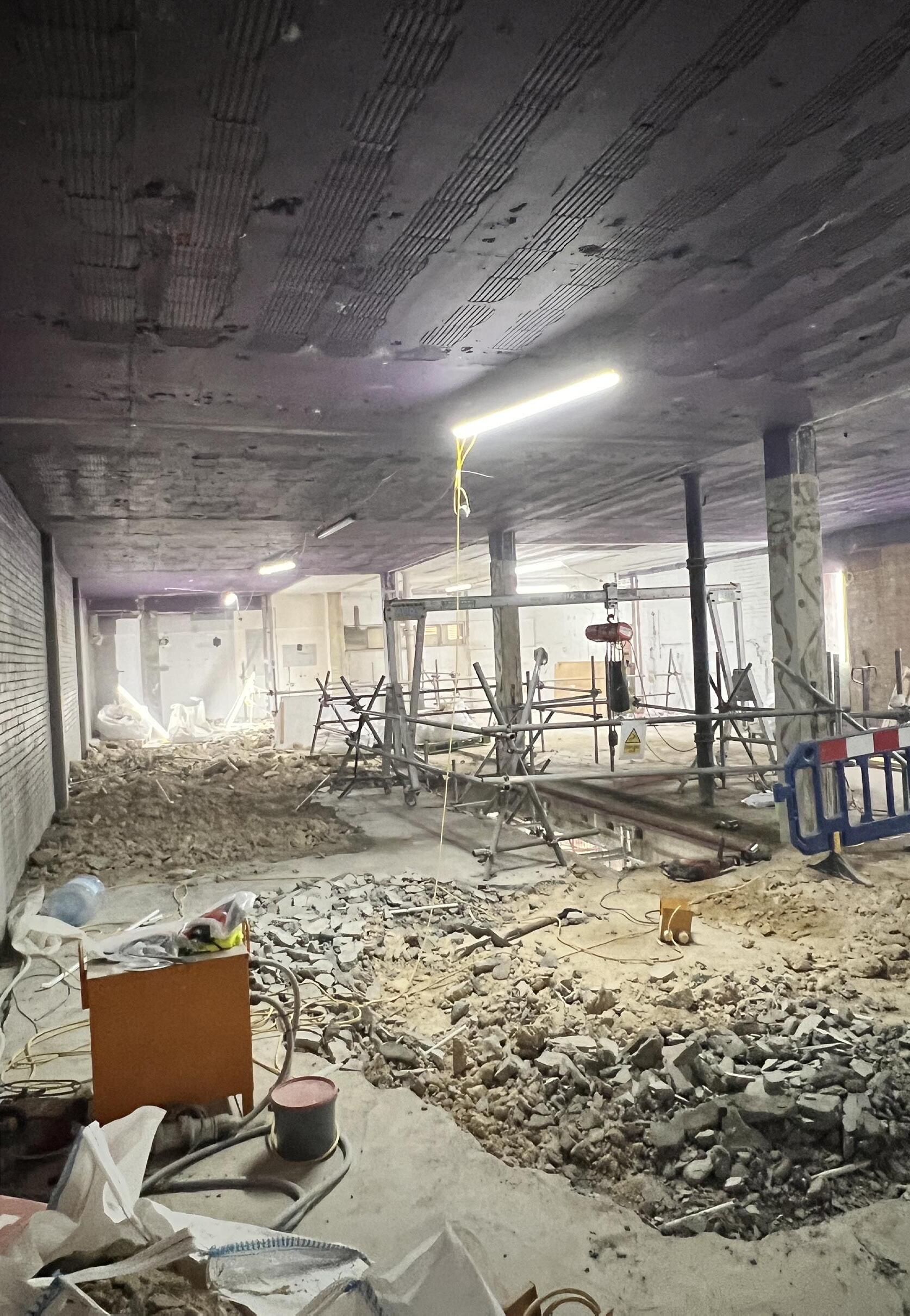
demolitionhub.com DemolitionHUB Magazine | 47
Demolition Hub on site


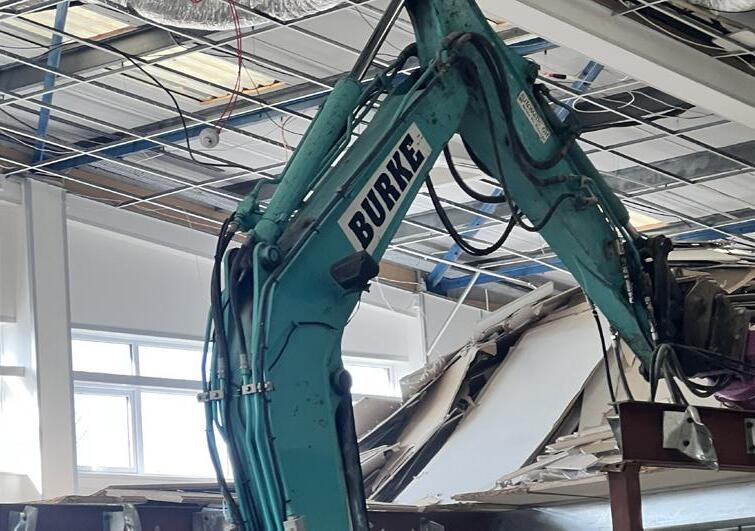
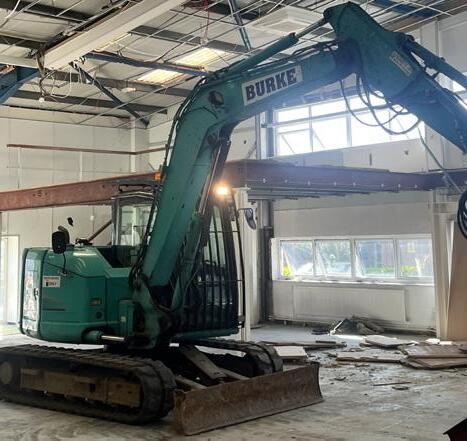
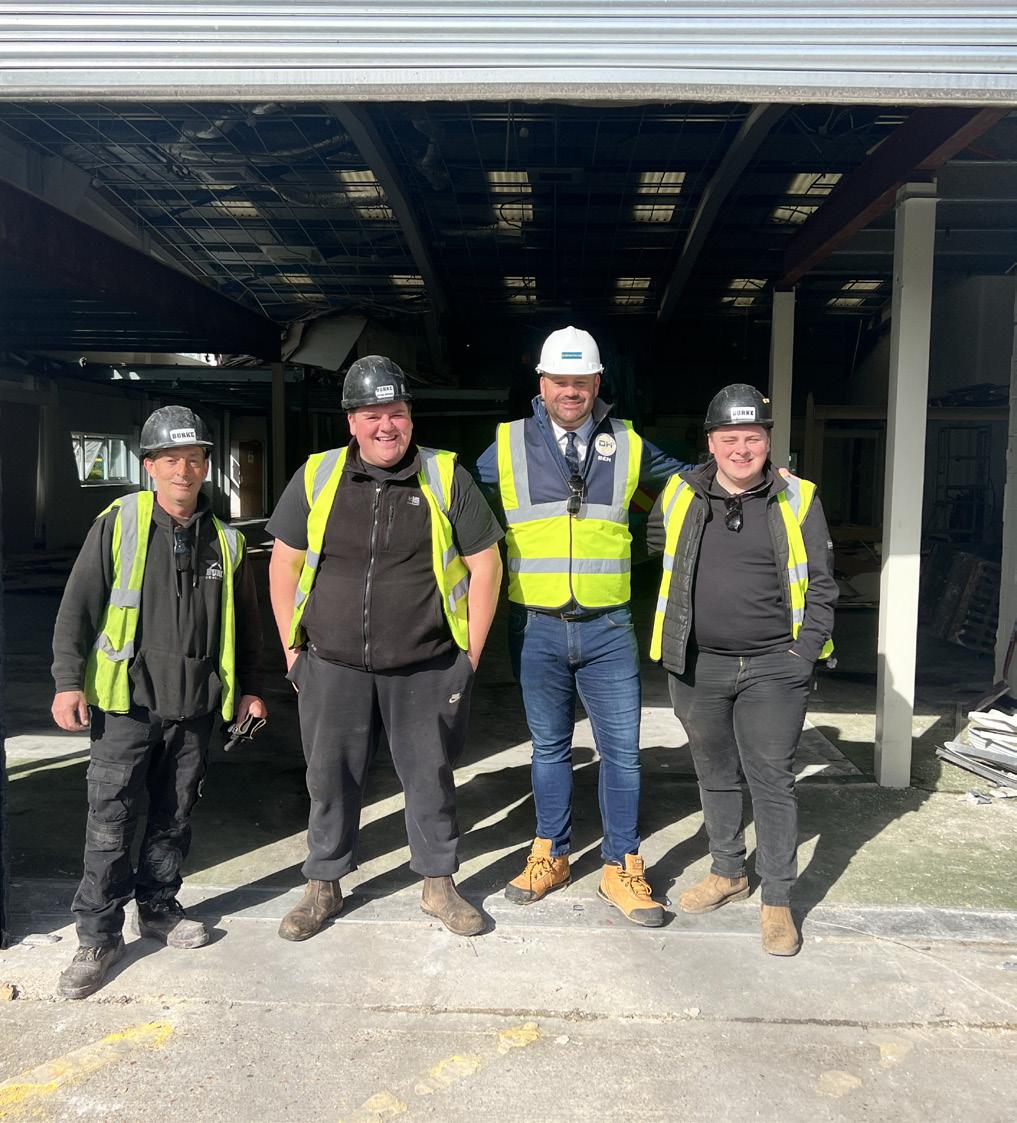
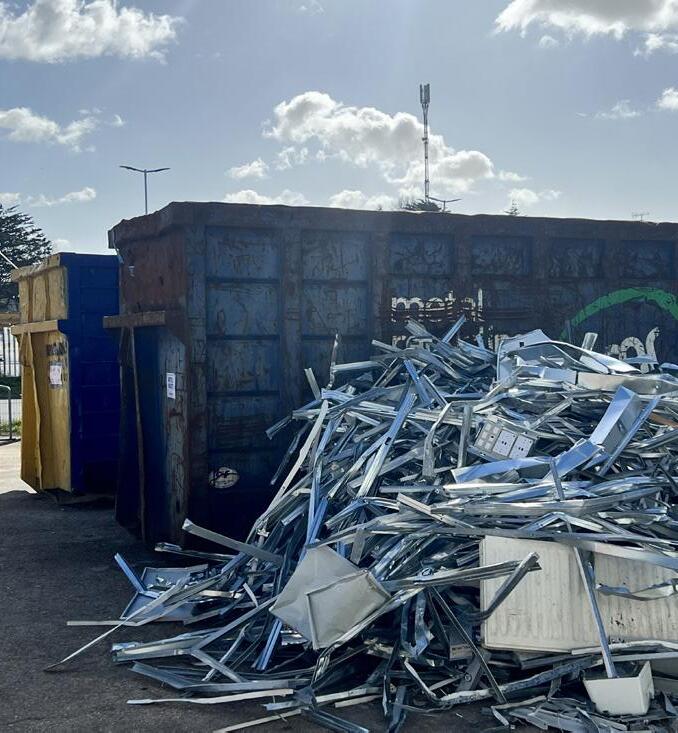

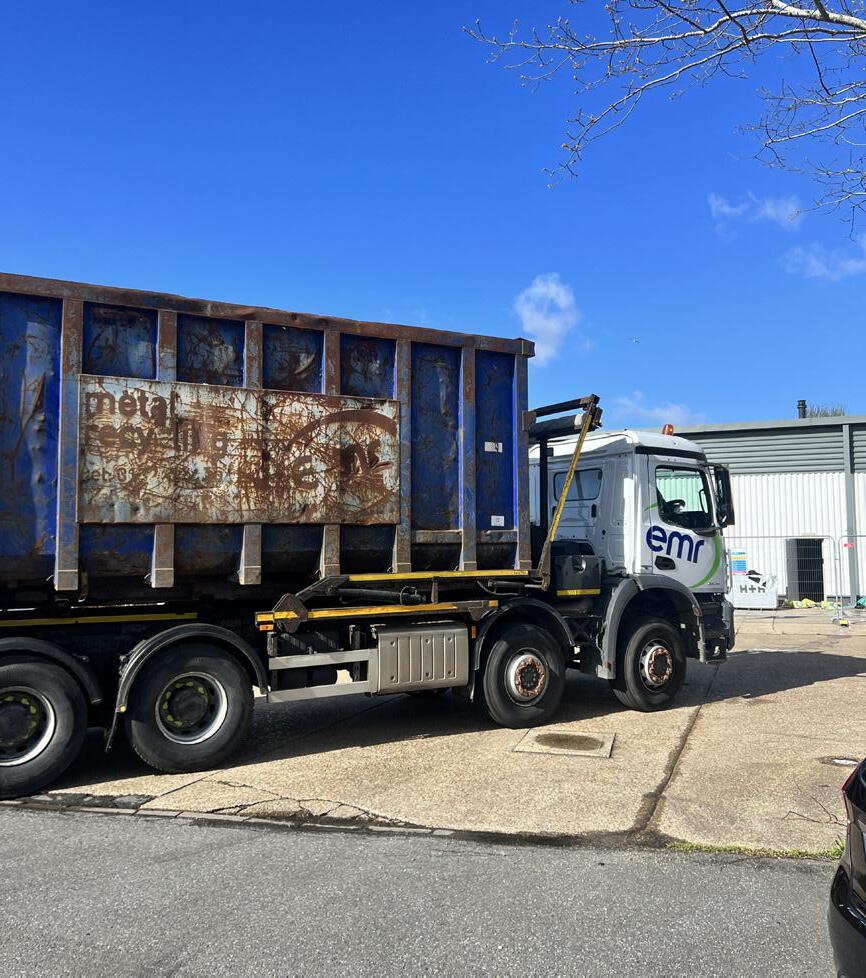
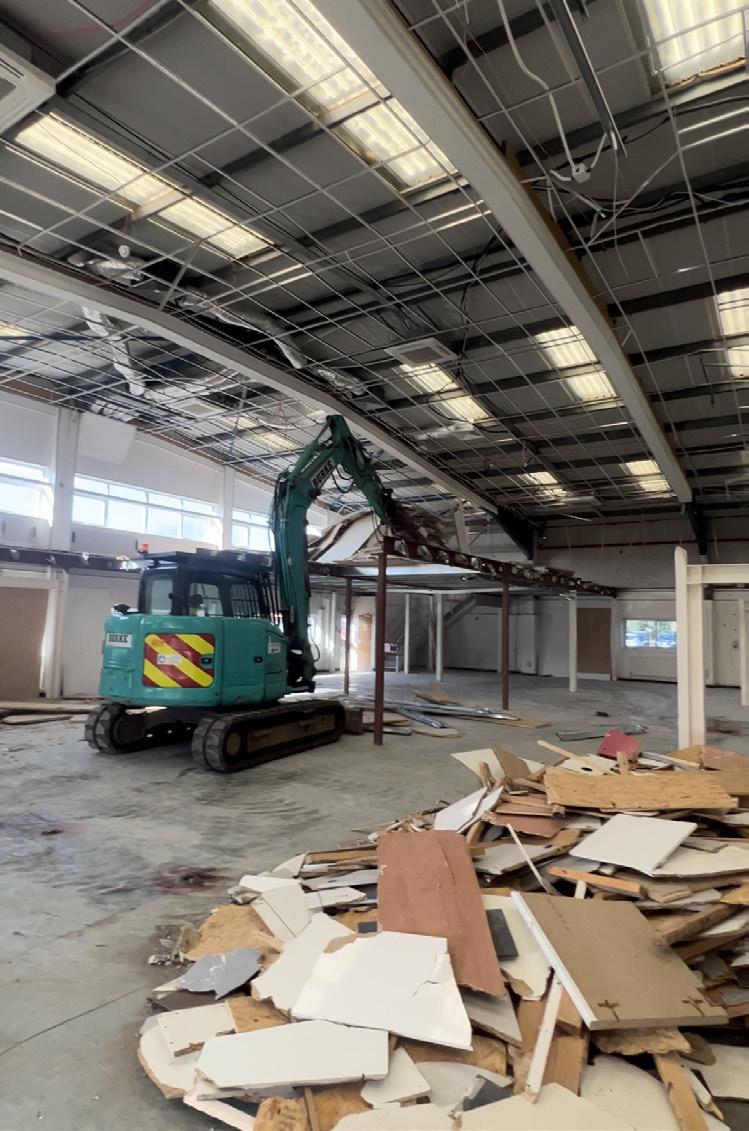
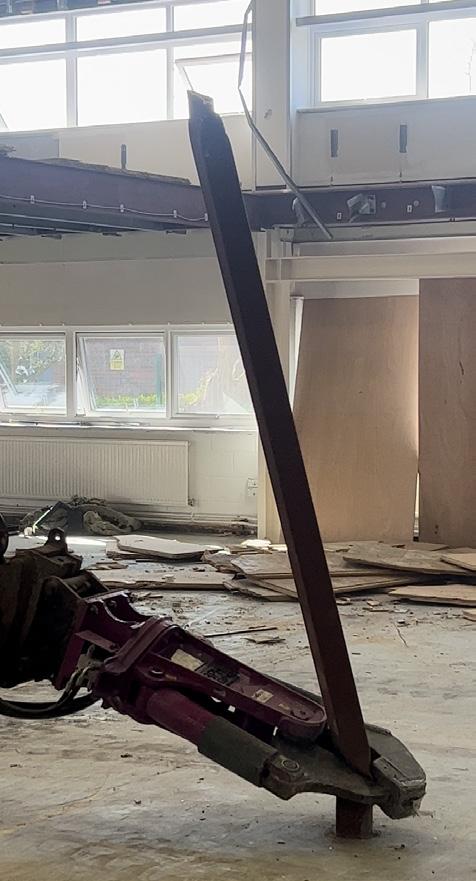

demolitionhub.com 48 | DemolitionHUB Magazine
Job Name: Unit 1-3 Cignet Trading Estate


Location: West Sussex
Expected duration: Six weeks, completed in three

Equipment used: Burke-owned Kobelco SK85-MSR coupled with Epiroc MG500 supplied by CES and Promove CP300 shear supplied by BPH Attachments. Burke-owned Bobcat s450 coupled with Bobcat grapple bucket.
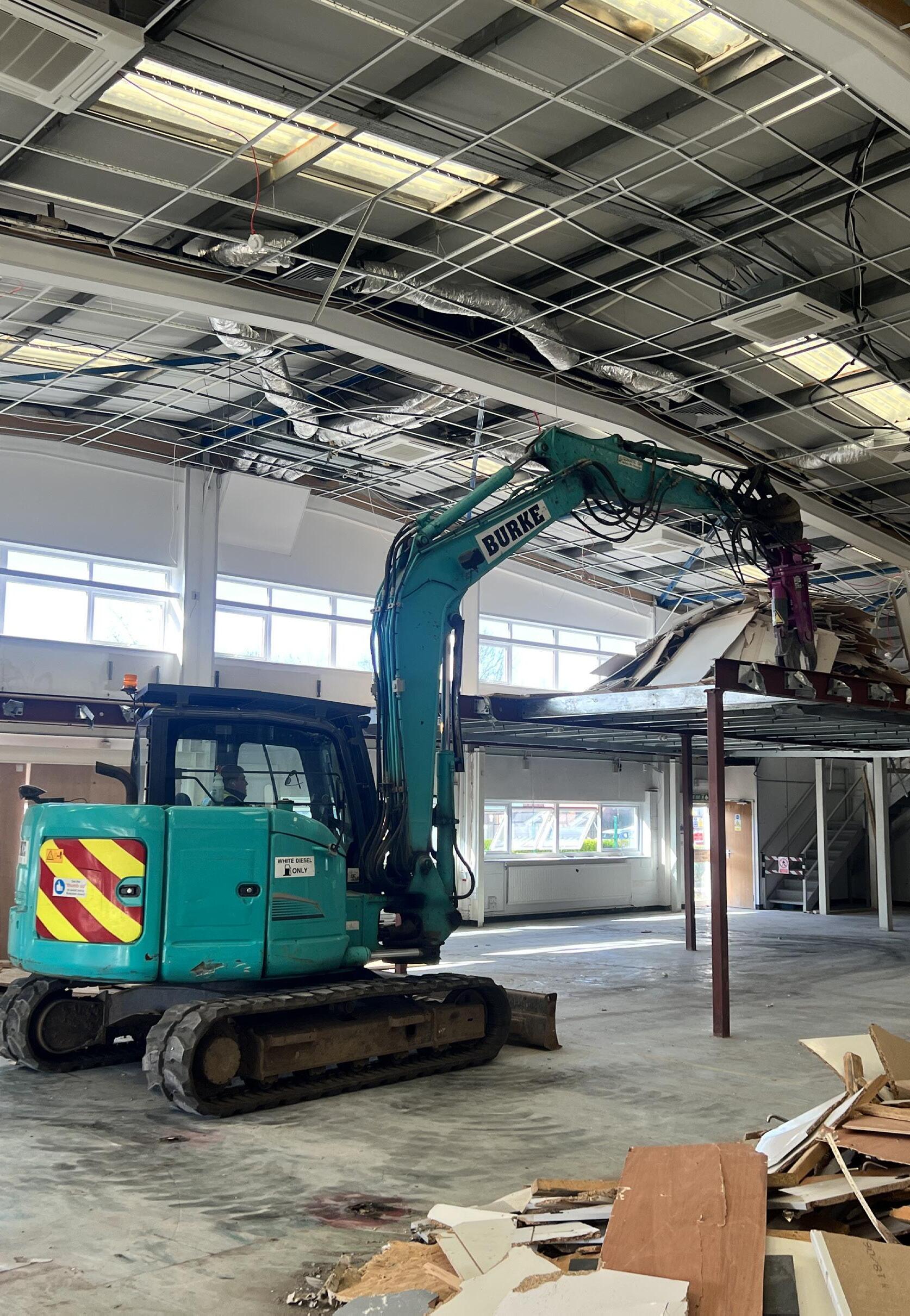
Operatives involved: Site Manager, Mark O’Sullivan Machine Operator, Jack Burke
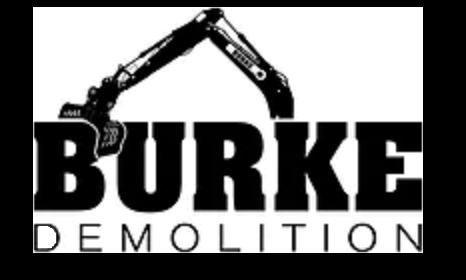
Client: Confidential
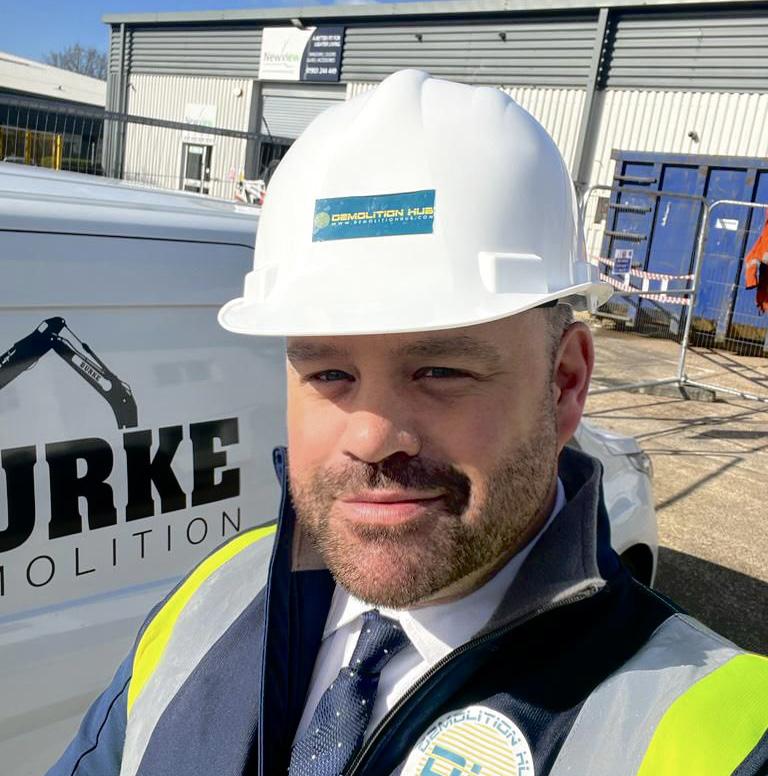
demolitionhub.com DemolitionHUB Magazine | 49
OUT & ABOUT

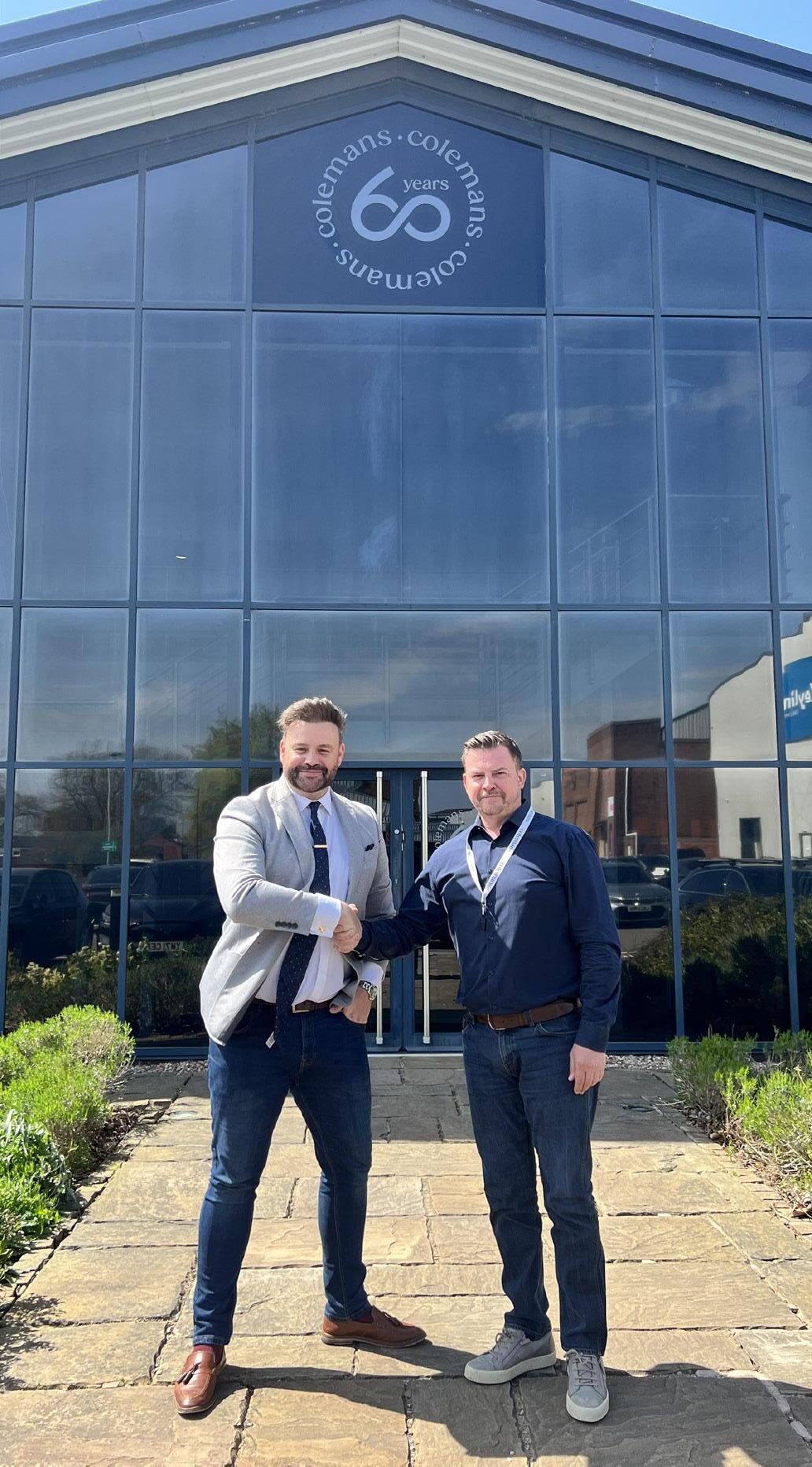

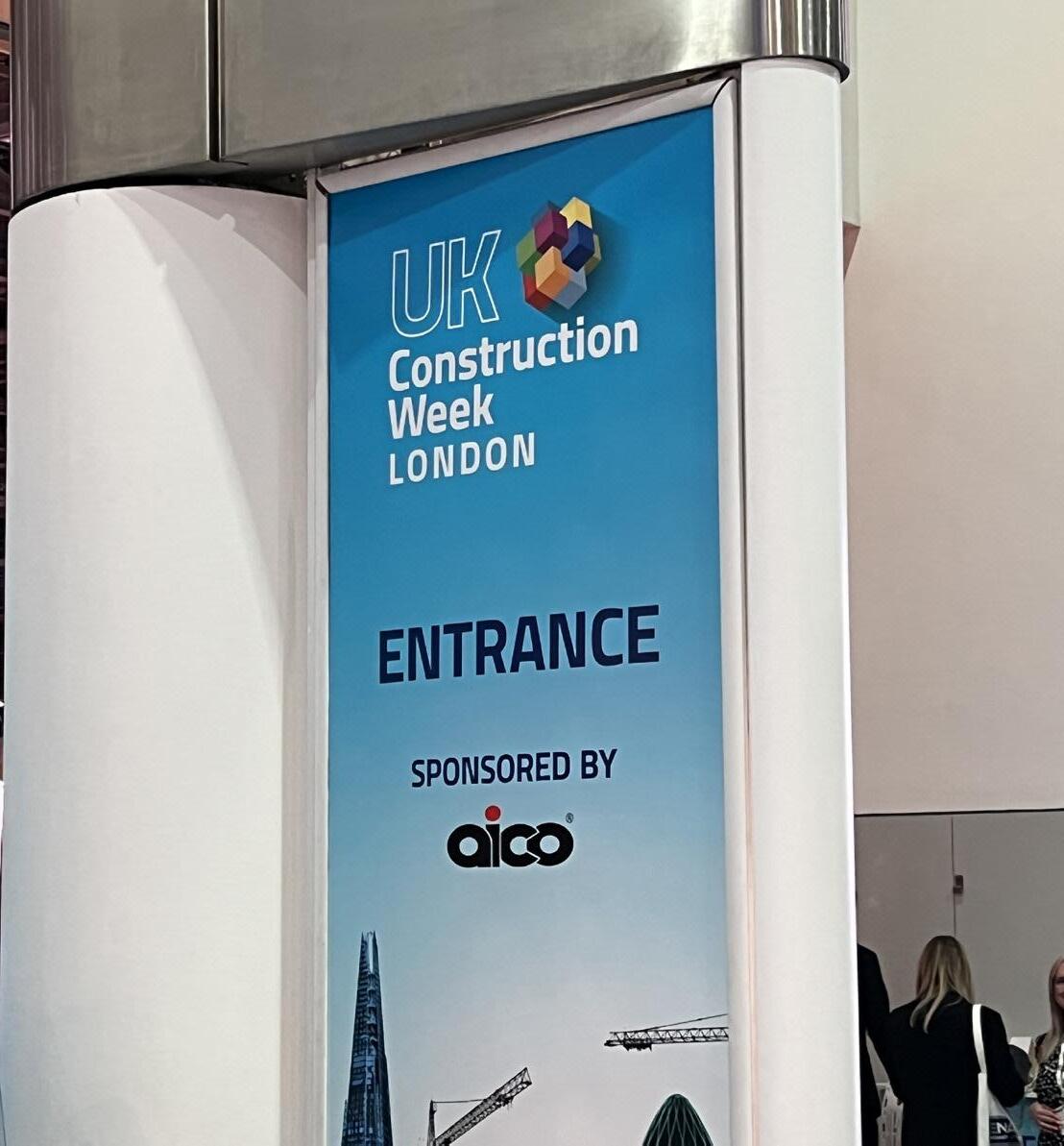




demolitionhub.com 50 | DemolitionHUB Magazine


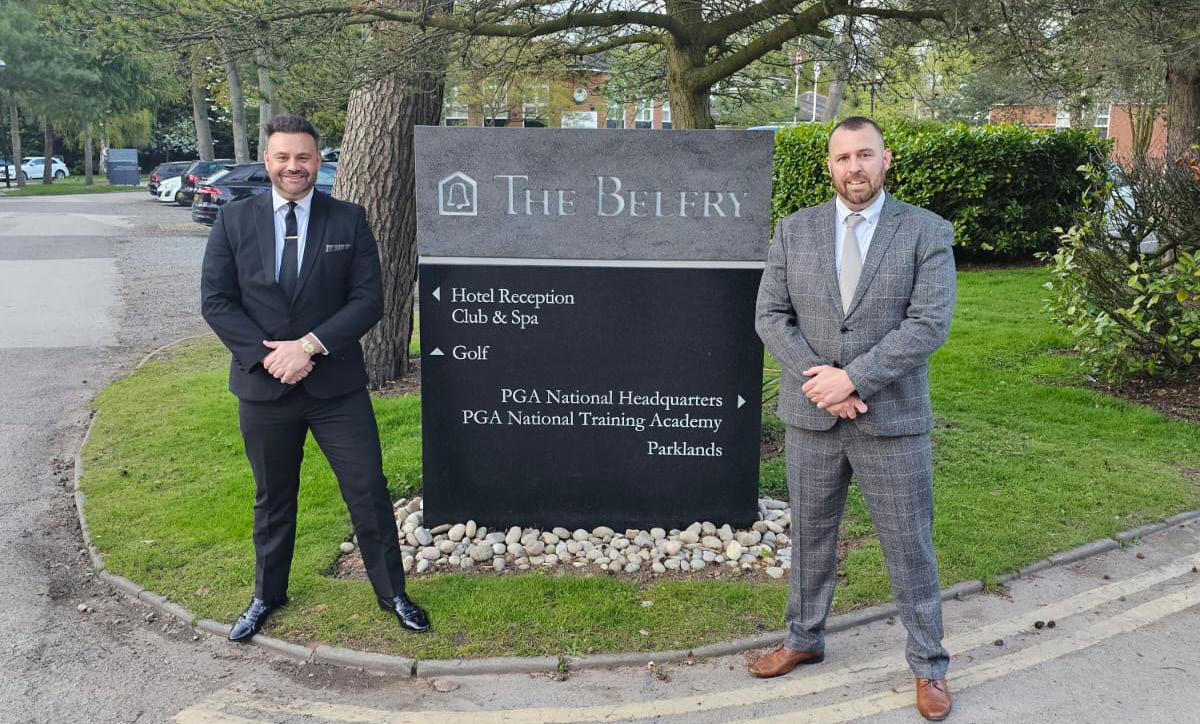
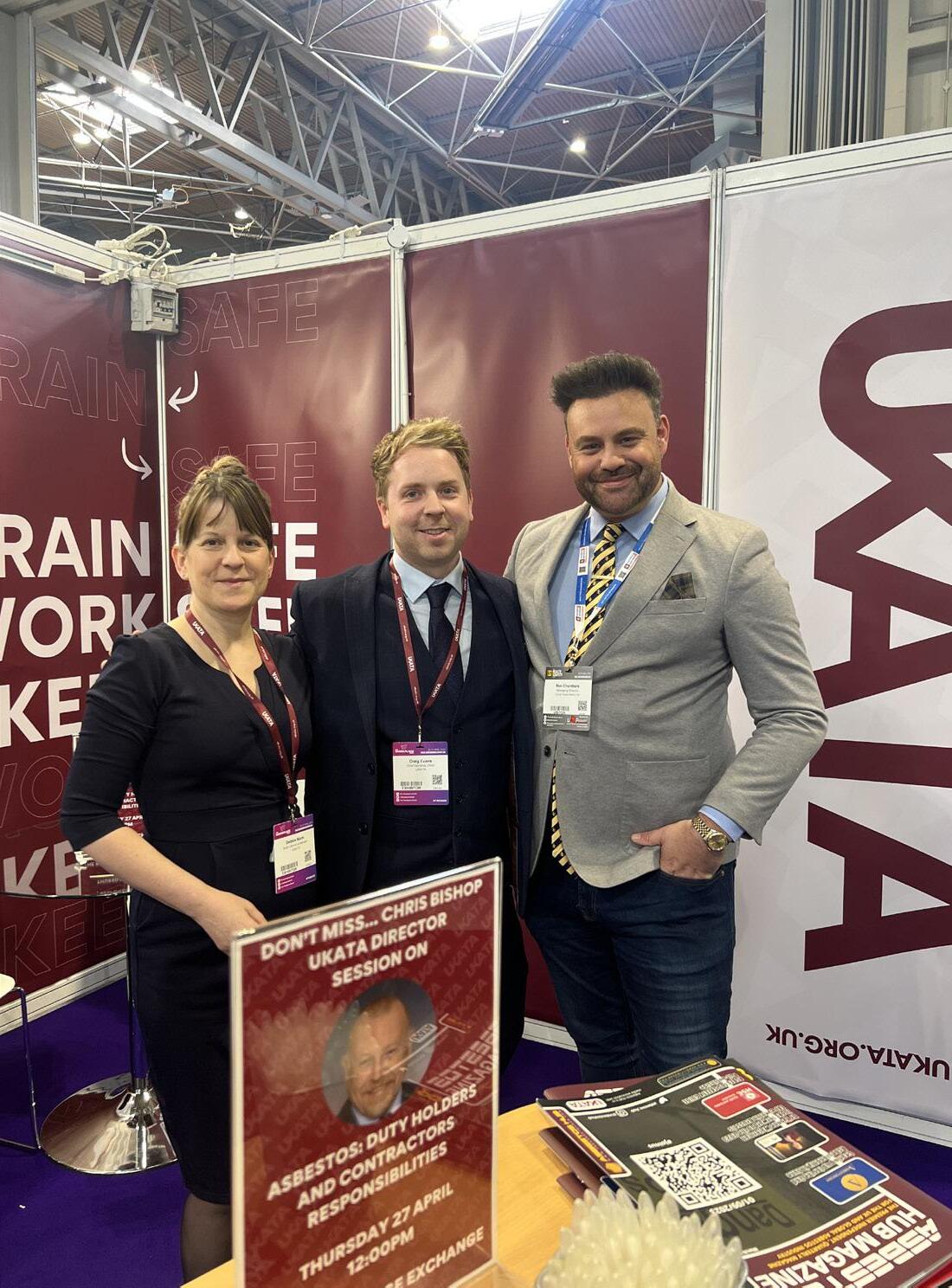
demolitionhub.com Magazine | 51
SUPPLIER TALK
in safeguarding their wellbeing and business.
Interviewee: Jack Rumbol
Role: CEO
Company: Havio
QGive us some background on Havio
Founded as part of the Riverbourne Group in 2004, Havio’s journey began with a focus on servicing insurance brokerage clients, primarily within the construction and demolition sectors. The global financial crisis of 2008 catalysed our diversification into non-construction markets, a strategic move that has become a hallmark of our risk mitigation approach, ensuring that we are not solely reliant on one sector.


Construction remains our niche, accounting for 75% of our revenue. We anticipate this proportion to rise in the coming years, reflecting our deep expertise and strong reputation within this field.
QHow did you start out in your industry?
Born into a family with a threegeneration legacy in the demolition industry, I was immersed in the world of construction sites from a very young age. This allowed me to witness the full spectrum of site operations. The vibrant and diverse characters I encountered along the way never ceased to fascinate me. My father, who ran a muckaway tipping business, shared a nugget of wisdom: “Choose a profession others shy away from and you’ll never be out of work.” This resonated with me and although the allure of insurance brokerage was strong, I found my true calling in health and safety. I relished the challenge of transforming perceptions, showing people that health and safety are not the bad guys, but critical partners
From an early age, I recognised in myself a fierce sense of independence and an entrepreneurial spirit and I knew that I couldn’t work for anyone else. My career in health and safety has been a journey of continuous growth and learning, and I find immense satisfaction in giving back wherever I can. The challenges of my early years have shaped me into the professional I am today, driving me to foster a safer, more conscious environment within the construction and demolition industry.
QTell us about the services you provide and how your relationship with clients works
We offer a comprehensive suite of services designed to meet all our clients’ health and safety needs. Our primary services include:
1. Health and Safety Strategy Assistance: We work closely with our clients to devise effective health and safety strategies that align with their specific needs and objectives.
2. Health and Safety Inspections: Our team conducts thorough inspections to identify
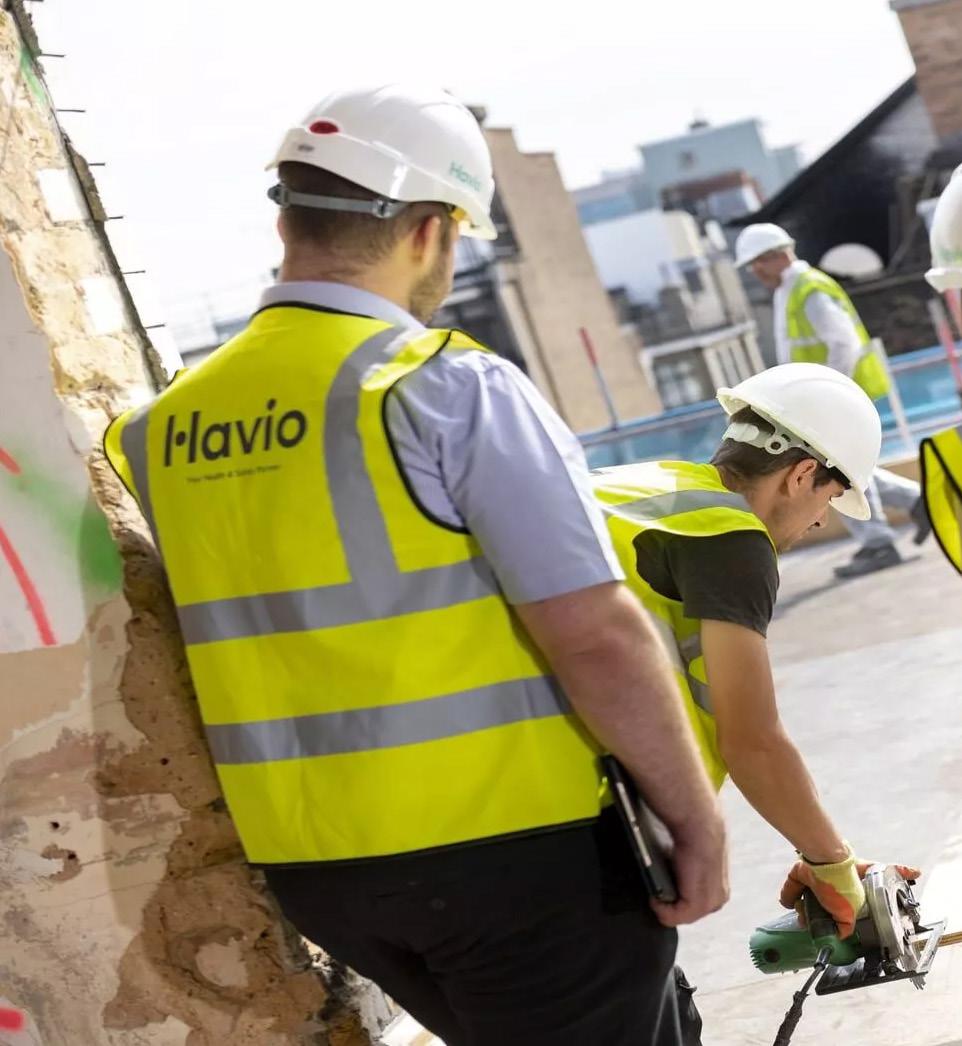
demolitionhub.com 52 | DemolitionHUB Magazine
interview
potential risks and recommend appropriate mitigation strategies.
3. Health and Safety Audits: We carry out detailed audits to assess our clients’ adherence to health and safety regulations and their own safety policies and provide recommendations where necessary.
4. Health and Safety Training: We offer a range of programmes aimed at equipping employees with the knowledge and skills to work safely and efficiently.
5. Creation of Demolition-Specific Project Compliance Packs: We develop bespoke compliance packs that provide clear, concise information and guidance to ensure safety throughout demolition projects.
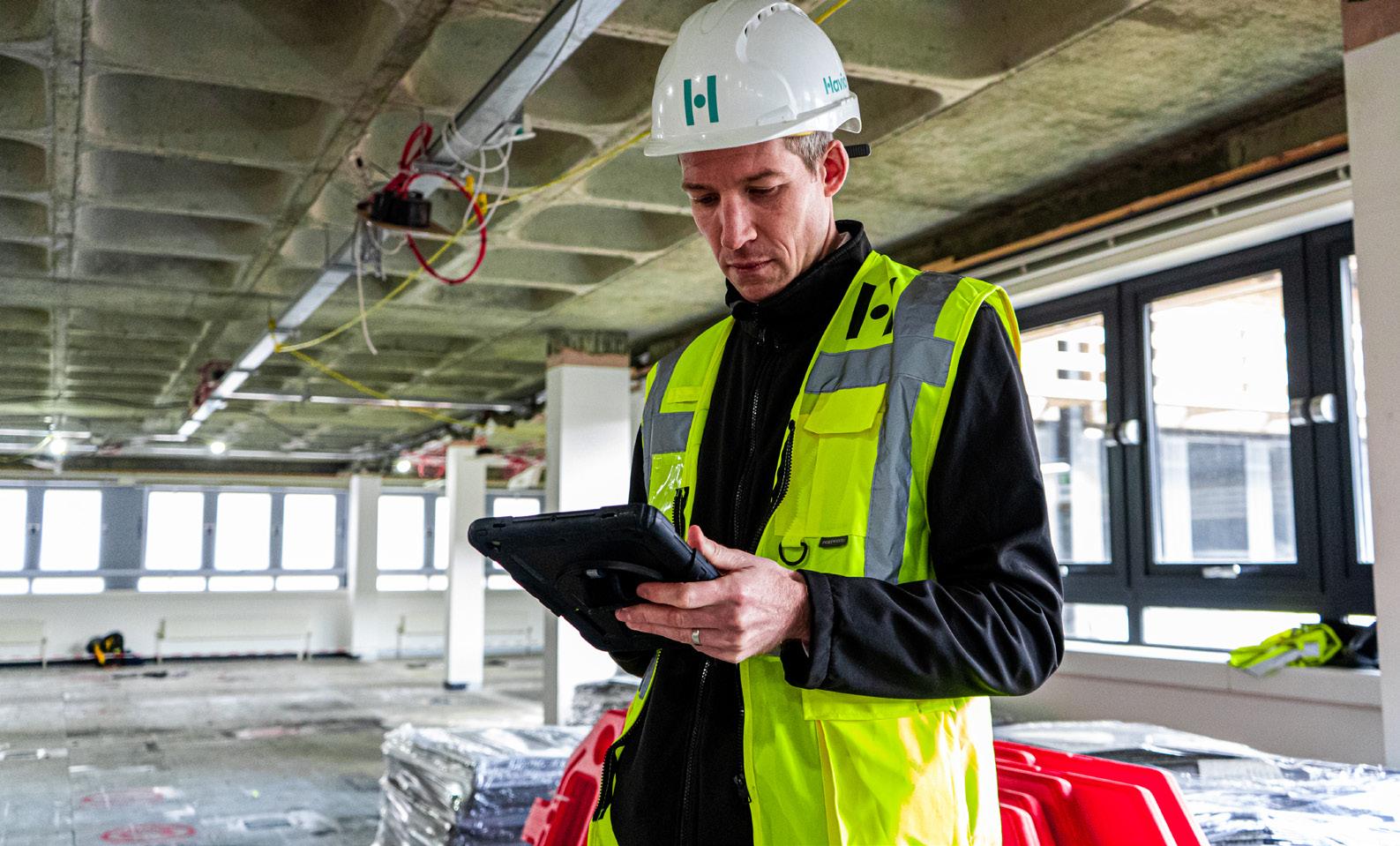
6. ISO Consultancy: We guide businesses through the process of achieving various ISO standards, enhancing their operational efficiency and market credibility.
We understand the importance of consistency and trust in building successful partnerships. Our clients appreciate working with the same team over time so they can build rapport and feel like we’re an extension of their own team. For medium to large accounts, we assign a lead consultant who becomes their primary contact person, supported by the wider team and our senior management.
Our approach ensures clients always have a familiar face to interact with, while benefiting from the breadth and depth of expertise of our team.
QWhat makes Havio different?
Havio differentiates itself in the market through our philosophy of “Safety Reimagined,” which combines three distinctive elements.
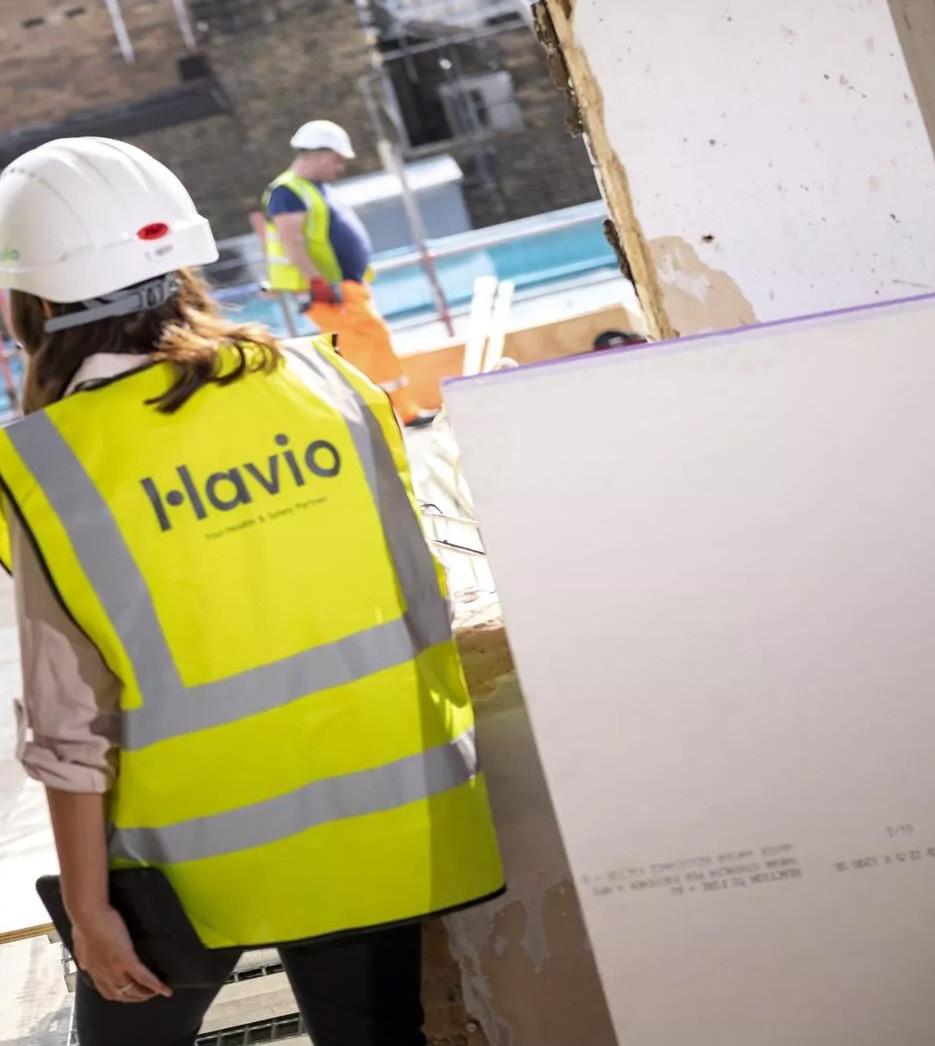
Our team is composed of industry-leading professionals but what truly sets us apart is our recruitment approach. We place a significant emphasis on character and behaviour during our selection process. Technical skills are important, but they can be taught. Personal characteristics, such as authenticity, integrity, resilience and adaptability are inherent and shape the way we deliver our services. This approach ensures that our team not only possesses the technical competence required for their roles but also the interpersonal skills necessary to effectively communicate, collaborate and provide superior service to our clients.
Our dynamic delivery process is designed to provide a customised and comprehensive health and safety solution for each client. We first listen and learn to fully understand our client’s unique needs and concerns. We then tailor our services accordingly and provide a smooth onboarding process. This is followed by the actual delivery of services and continuous support.
Finally, our Altitude platform sets us apart. This pioneering, inhouse software supplements our consultancy services and empowers our clients to understand and effectively manage their own health and safety performance. With smart data capture, accessible analytics, and bespoke reporting features, Altitude provides our clients with an
easy-to-use, comprehensive view of their health and safety operations.
Our commitment to people, both our employees and clients, our customised, client-centric approach and our innovative technology make Havio distinct.
QTell us about your team and working culture
Our team is a tightly knit group that operates more like a close community than a traditional corporate structure. We prioritise kindness, friendship and trust above all else.
We believe that these values create an environment where people can do their best work. Being grounded helps us remain humble, appreciative, and realistic, while the value of freedom gives each team member the agency to make decisions and approach their work in the way that best suits them.
Our hiring process is primarily based on these values and we always look for individuals who align with our ethos and can contribute positively to our unique work culture.
QAre there any standout projects from Havio’s history?
Contracts:
1. The Londoner: We served as the client’s CDM adviser during what was, at one point, the deepest basement dig in Europe. Following this, we collaborated with our long-standing client, Blue Sky Building. This project not only challenged us but also enhanced our technical skills and deepening our collaborative partnerships.
demolitionhub.com DemolitionHUB Magazine | 53 interview
2. Heathrow Runway 3 Masterplan: Although this immense scheme didn’t proceed to fruition, our involvement alongside Grimshaw Architects was a significant milestone. This experience broadened our horizon and understanding of large-scale project planning and execution.
3. Mail Rail: Working once again with Blue Sky Building, we were part of an exciting project that involved the creation of a visitor attraction illuminating the network of railways that once delivered London’s post.
Product Developments:
We’re particularly proud of our internally developed health and safety software, Altitude (see above). It is a testament to our commitment to improve our operations and provide a high-class experience for our consultants and clients.
QHow has the scope of your business developed over time?
While our core services have remained strong and consistently relevant, it’s our approach to delivering these services that has seen the most development. We’re continually refining and improving our methods to ensure they align with the latest industry standards, technological advancements, and legislative changes.
A key area of expansion in recent years has been in the field of fire safety within the construction industry. Following high-profile incidents and a growing awareness of the complexities of fire safety, we’ve prioritised providing rigorous, comprehensive fire safety consulting.
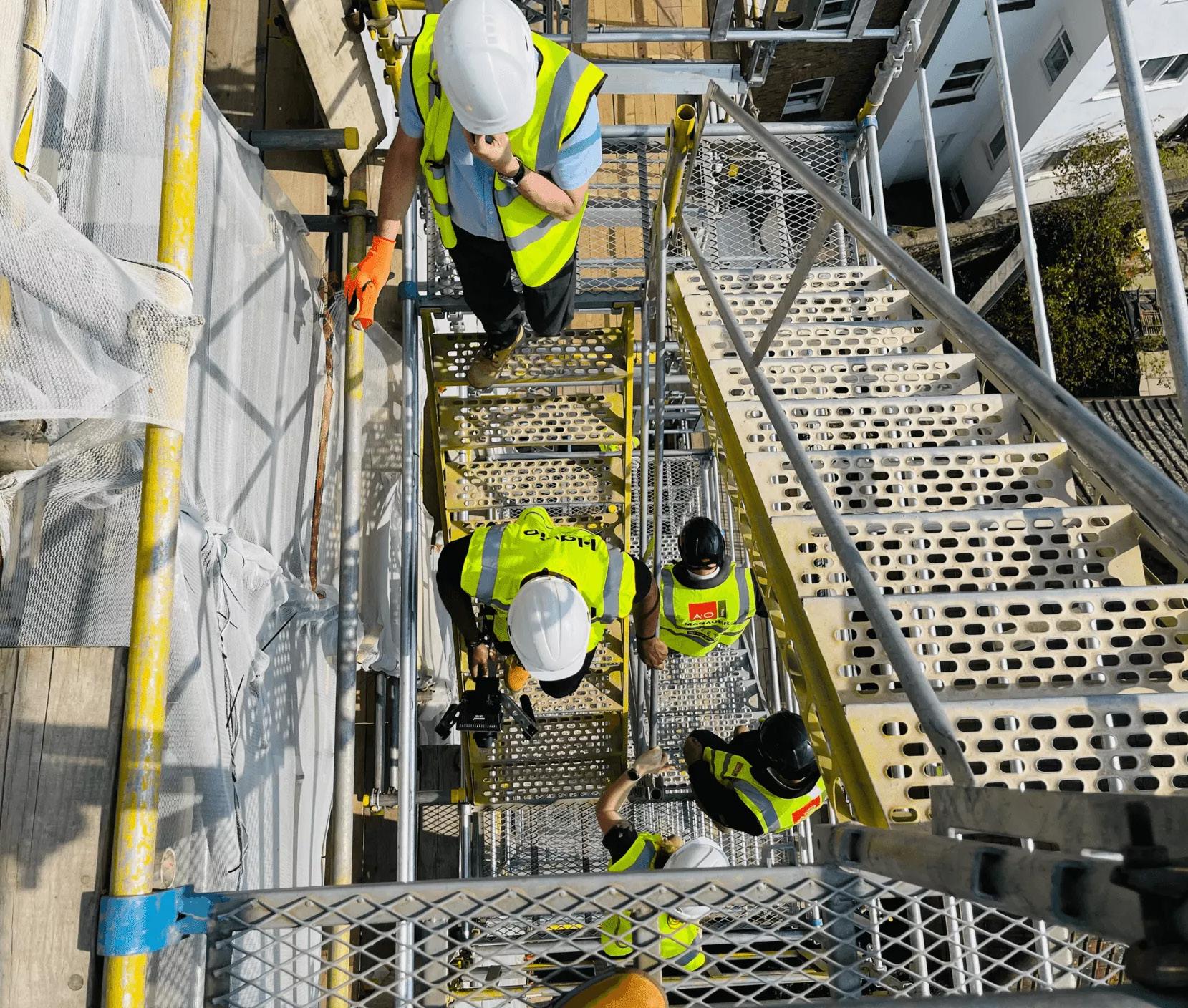
We’ve also expanded our range of services to include ISO Consultancy Services. We’re now offering comprehensive consultancy services to guide organisations through the process of achieving various ISO standards. This involves everything from understanding
the requirements of the standard to implementing the necessary procedures and conducting internal audits. Our aim is to provide a seamless, stress-free path to ISO certification for our clients.
We remain committed to expanding and refining our services to meet our clients’ evolving needs and we continue to monitor industry trends, technological advancements and regulatory changes to ensure our services always align with best practices and deliver maximum value.
QHow do you gain business and spread the word about your services?
Most of our business comes from organic growth through referrals and word-of-mouth, which is a testament to the quality of our services and the satisfaction of our clients. We make the most of networking events and forums like the British and Irish Trading Alliance (BITA) and leverage our memberships in associations like the National Federation of Demolition Contractors (NFDC) to form new business relationships. One of our valuable connections is with Jamie Coyne of Fenchurch Insurance Brokers, who strengthens our understanding of the high-risk industry we operate in and helps us connect with potential clients.
We also employ a robust content marketing strategy. By creating
informative, value-driven content, we build trust and recognition in the market and reach our target audience, even if they’re not currently using our services. Our content provides insights into industry trends, offers useful tips and showcases our expertise in health and safety consulting.
Ultimately, we believe in the power of this two-pronged approach, combining direct networking with a broad content strategy, to create a positive perception of Havio in the marketplace and continually reach potential clients.
QTell us about your experience of skills and labour supply issues

We’re in the process of establishing the Havio Foundation to provide underprivileged young adults with the necessary skill sets to find valuable employment, focusing particularly on the health and safety market and the construction industry.
We’ve identified a skills gap that needs immediate attention. As the skills shortage begins to bite, the next 10 years are going to be critical for the industry. While some initiatives have been introduced, we believe that not enough is being done quickly enough to counteract this shortage. The Havio Foundation is our response.
interview
demolitionhub.com 54 | DemolitionHUB Magazine
We also aim to instil selfawareness and mental health skills. Given the growing mental health crisis, this is an aspect we cannot afford to overlook. We hope that we can not only increase the pool of skilled labour in our sector but also contribute to the overall wellbeing of these individuals, addressing labour supply issues from a more holistic perspective.
Nurturing new talent and addressing the current labour supply issues requires a multi-dimensional approach. This includes addressing not just the skills gap, but also the psychological wellbeing of potential recruits, which can in turn lead to a more productive and motivated workforce.
QDo you undertake ongoing training or Continuous Professional Development?
We believe that ongoing training and continuous professional development (CPD) are fundamental to our success. We invest heavily in both technical and soft skills training for our team.
On the soft skills side, we have Dr Danny McGuigan, a world-renowned authority on leadership and development, as our Non-Executive Director. He provides a variety of services such as personal coaching, group coaching, and personal mentoring to me and our team. His insights and strategies help us to continuously improve our leadership skills, team collaboration, and overall effectiveness.
On the technical side, we have a customised Employee Development Programme. It considers both the personal ambitions of our team members and the business needs. We understand the value of helping our employees grow in their roles and as professionals, which in turn drives the success of our business.
In an industry like ours CPD is absolutely essential. Therefore, we fully support and commit to continuous learning for our team. This enables us to stay ahead of the curve and continue to deliver exceptional service.
Services
Tell us about one of your key demolition-relevant services Our Health and Safety Inspection Service is particularly relevant to the demolition sector. Maintaining compliance with safety regulations is not just a matter of fulfilling legal obligations, it’s crucial to protect the lives and wellbeing of workers on site. Our inspection service provides a snapshot of compliance at the time of our visit, offering our clients a clear, objective view of their health and safety status. What makes our inspection service particularly beneficial is our independent perspective. We are able to provide a fresh set of eyes, identifying potential issues that may be overlooked by those who are deeply engrossed in the day-to-day aspects of the project.
Our extensive experience means we bring a wealth of knowledge and best practices to every inspection. We inspect hundreds of sites every month, gaining insights into a wide array of scenarios, solutions and innovative practices. We then bring these learnings to our clients, helping them not only to meet compliance standards but to exceed them, pushing the bar higher in terms of safety and efficiency.
Our ultimate goal is to ensure the health and safety of everyone involved in a project while assisting our clients in delivering their projects in the most efficient and effective manner.
How have you found takeup among demolition contractors?
While we have successfully engaged with several demolition
contractors, historically the demolition sector hasn’t been our primary focus. Our initial efforts were centred around establishing our services with principal contractors in the London-based residential and commercial sectors. Having firmly established our presence there, we are keen on expanding our reach to the demolition industry.
Unlike single-person consultancies or contractors, we combine the best of both worlds: personalised service and the robustness of a mid-sized consultancy. While we are able to maintain close, personalised relationships with our clients, our size also allows us to offer a range of benefits that smaller consultancies often can’t.
We have a wider reach, with consultants across different locations ready to support clients’ needs. We’ve also made significant investments in our systems, especially Altitude, to streamline our operations and provide clients with easy access to essential data and reports.
Our diverse team of experienced professionals allows us to bring a broader range of perspectives and expertise to our clients’ projects and offer more comprehensive solutions.
Partnering with a mid-sized consultancy like Havio offers greater resilience for our clients. By not putting all their eggs in one basket, they have the assurance of continuity and a range of support options, even in unforeseen circumstances.
Have you had any feedback? Our website includes many real life case studies. We also have extensive 5-star reviews on Google and Trustpilot.
interview demolitionhub.com DemolitionHUB Magazine | 55
QWhat are the biggest technological developments you have seen in your industry and what do you envisage will be the future game changers?
The most notable development I’ve seen is the integration of Artificial Intelligence (AI) and machine learning technologies. These have allowed us to automate routine tasks, improve risk prediction and assessment and personalise safety training.
The rise of specialised software platforms such as our Altitude system has greatly enhanced our ability to monitor and evaluate health and safety performance. This software provides a more objective, comprehensive view of our operations, effectively removing bias and giving us an authentic look at what’s really happening on the ground. It not only increases efficiency but also enables us to make data-driven decisions and strategies.
However, it’s crucial to acknowledge that understanding human behaviour is a significant factor in health and safety. Our brains haven’t developed much over thousands of years, yet the world around us has changed dramatically. This can lead to gaps in safety protocols, not due to lack of procedures or technology, but due to inherent human behaviours and biases.
I believe the game changers will be the technologies and strategies that merge the power of AI and data analytics with a deep understanding of human behaviour. For instance, AI-driven behaviour analytics could provide insights into worker behaviours, helping to predict potential risks and prevent accidents before they occur. Additionally, Virtual Reality (VR) and Augmented Reality (AR) can transform safety training, making it more immersive and effective.
The biggest technological developments and future game changers will likely be those that blend cutting-edge technology with an in-depth understanding of human behaviour, driving both efficiency and safety.
QDo you have any notable projects in progress?
Firstly, as I mentioned earlier, the Havio Foundation is a crucial part of our commitment to social mobility and the future of the industry.

Secondly, we’re looking to expand into the north to tap into the opportunities in the infrastructure, green energy, and logistics sectors. This geographical expansion will allow us to broaden our reach and respond to the emerging needs of these rapidly growing sectors.
On the technology front, we’re developing the second phase of Altitude. The aim is to

further enhance our technological advancement, which we believe is key to delivering more efficient and innovative services to our clients.
Lastly, this year we’re working towards becoming a B Corporation, or B Corp certified. B Corp Certification is a thirdparty certification administered by the non-profit B Lab, based on how a company balances purpose and profit. Companies that are B Corp certified are legally required to consider the impact of their decisions on their workers, customers, suppliers, community, and the environment. This certification aligns with our core values and commitment to operating in a manner that is not just profitable, but also socially and environmentally responsible.
QTell us about any engagement your company has in the community
One initiative we’re proud of is our dedication to provide an allocated number of hours per month for charities and not-for-profit organisations who might otherwise not be able to afford our services.
A notable collaboration within this initiative is with Band of Builders, a charitable organisation run by tradespeople to help their fellow tradespeople facing challenging times due to illness, disability or financial hardship. Band of
interview demolitionhub.com 56 | DemolitionHUB Magazine
Builders organises projects where volunteers come together to carry out renovations and adaptations to the homes of those in need within their community. Havio is proud to support their mission by providing construction consultancy services, including health and safety assessments, strategy development, and advice.
We believe that the next decade will be critical for the industry, given the emerging skills shortage and we’re keen on being a part of the solution, in part through The Havio Foundation (see above).
We strongly believe in the power of businesses to bring about social change and we’re dedicated to making a positive impact in the communities we serve.
QHow do you envisage Havio in five to ten years?
I see Havio becoming the leading health and safety consultancy in the construction industry. Our growth strategy will be both organic and will also involve targeted acquisitions. Geographically, we will have a nationwide presence with offices across the UK to offer localised services. In terms of our offerings, we plan to expand our services beyond the core construction industry into emerging sectors like infrastructure and green energy.
Digital transformation is also a key part of our future vision, with the aim of optimising our internal systems (CRM and ERP) system and enhancing our health and safety management software, Altitude.
Our people will continue to be a significant focus for us. We plan to implement a comprehensive talent development programme, focusing on attracting new talent into the industry, nurturing skills and challenging the negative perceptions of the industry. We’re also exploring an equity-sharing model to enhance retention and ensure that our team feels valued and invested in our success.

Our ambition is not only to grow and expand our business but also
to change perceptions of health and safety in the industry, create safer workplaces, and positively impact our community.
QAnd how about you in a few years?
My plan is to transition from CEO to a strategic advisory position, concentrating on providing oversight and guiding the future direction of the company. We are currently establishing a company structure that supports this transition while ensuring the smooth functioning and growth of the business. I also intend to spend more quality time with my family. While professional
AND FINALLY
Who is your favourite artist?
Stevie Wonder –Genius, they don’t make them like that anymore.
Who do you most admire?
My late brother Daniel who passed away suddenly aged 34 in 2019. Since he passed away he has taught me so much about myself and life. He lived life to the full, was quirky and unique but above all kind with time for everyone regardless of standing in life.
What would be your desert island exile luxury?
A boat to get me back to the mainland once I had enough of my own company. [VETOED – Ed]
What gets you out of bed in the morning?
Live for the moment no matter what it brings. Yesterday has been and can’t be changed, tomorrow may never come.
success is important, it’s crucial to maintain a healthy work-life balance. It is personal relationships that enrich our lives in truly meaningful ways.
I feel a strong sense of responsibility to make a positive impact on the world. Through initiatives like the Havio Foundation, I hope to empower and uplift those who are less fortunate and create real, tangible change in their lives.
My vision for the future is not solely about personal or professional growth, but also about leveraging the resources and opportunities I have to benefit others and contribute to a better, more equitable world.
What do you do for fun?
Simple pursuits like eating in great restaurants off the beaten track, golf, watching sport and taking time out for myself and going on meditation retreats.
When and where are you happiest?
Our family happy place is Hillside Beach Club in Turkey and its somewhere I have been going since I was a young boy with my parents.
What’s the most expensive nonessential you’ve ever bought? Any number of watches. I am glad to say my priorities have shifted.
What’s your favourite cuisine?
Lebanese / Palestinian – Hiba in London is my favourite restaurant.
What’s your tipple of choice?
If I am being good then kombucha (fermented, sweetened black tea). If not, a mojito.
interview
demolitionhub.com DemolitionHUB Magazine | 57
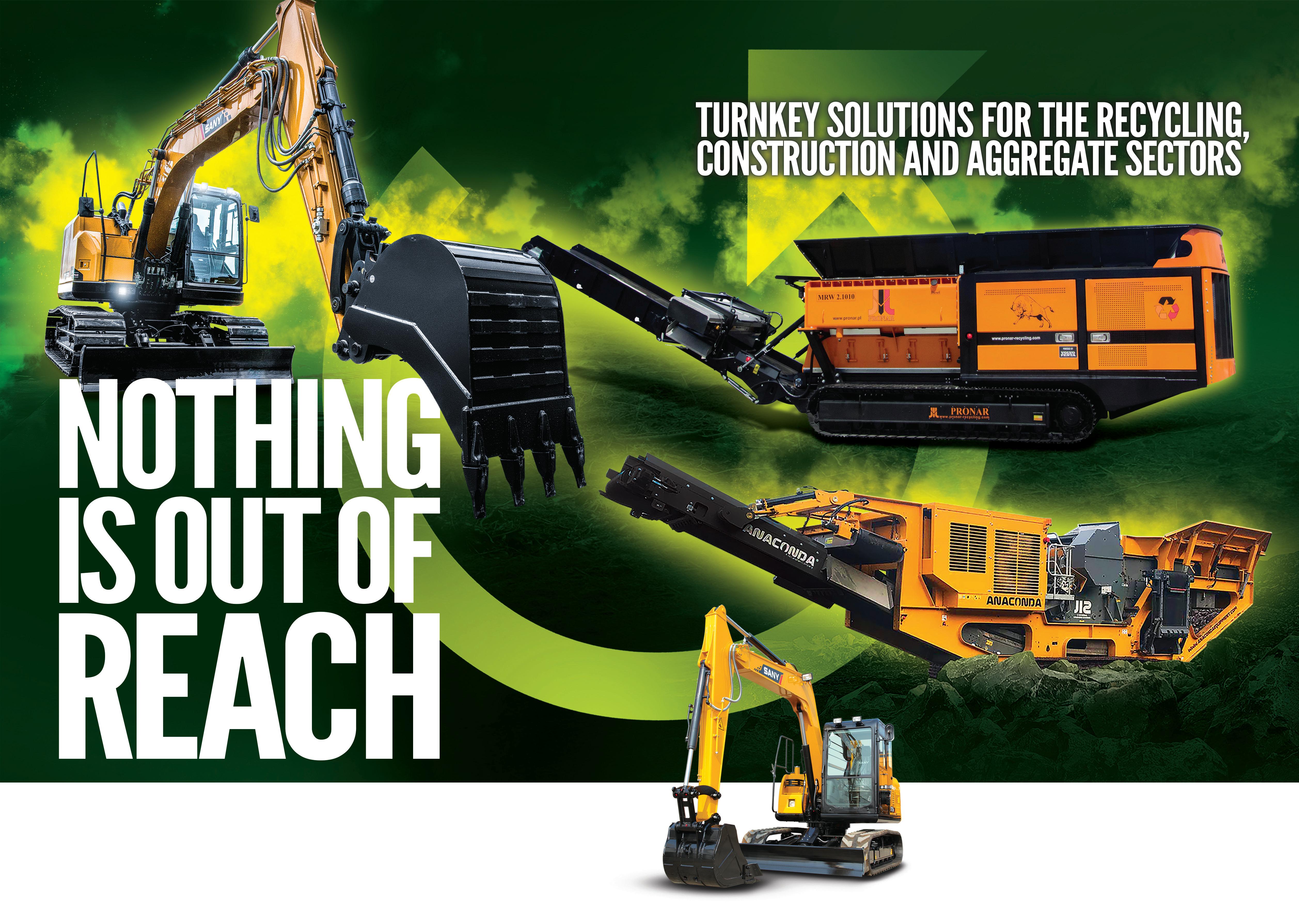

RECYCLING FEATURE
Are you prepared for changes to the rules governing waste wood?

effective outlet for the wood, which can in some cases generate a revenue stream.
As those in the demolition industry know, large quantities of waste wood can be collected in the course of a demolition project, making it critical it is handled in the appropriate way.
At present, wood from demolition is usually either segregated into a skip at source or taken away and sorted into a wood skip by waste and recycling contractors. Any hazardous materials such as railway sleepers or telegraph poles have to be removed and sent for specialist hazardous waste disposal.
Companies may have a direct outlet for the remaining nonhazardous material but this is typically sent on to a wood recycler, who provide a cost-

These businesses have the facilities and expertise to further sort and process the wood into different grades (A-C) for a variety of end markets, ranging from panel board manufacture to animal bedding and biomass plants.
However, what is less widely known is that from 1 September 2023 the rules governing demolition waste wood are changing.
The Environment Agency is withdrawing Regulatory Position Statement 250 – which means that in England, certain “potentially hazardous” waste wood items from pre-2007 buildings must also be segregated out and sent for specialist hazardous waste disposal – and must not be sent for recycling.
Over the past five years, we at the WRA have been carrying out extensive testing and research to limit the impact of this anticipated change on the industry and

are happy to have reduced the number of potentially hazardous waste wood items subject to this change to just 10 (see box)
With more testing, this number can be reduced further and we therefore urge those handling demolition waste to submit as many samples of these items as possible for testing before September and share the results with us at the WRA.
While more evidence is needed on the hazardous content of these, end user testing of waste wood from construction and demolition (C&D) has indicated a hazardous content of less than 1% – representing a tiny proportion (0.08%) of UK total waste wood arisings, equivalent to just 4,000 tonnes.
This means that more testing could save a considerable amount of money for the demolition industry by providing evidence to show much of this material is not hazardous and does not require expensive hazardous waste disposal, which can cost up to £200 per tonne.
Julia Turner, Executive Director of the Wood Recyclers’ Association, explains how the demolition sector will be impacted by upcoming regulatory changes from September
demolitionhub.com 60 | DemolitionHUB Magazine
It could also help boost the environmental credentials of businesses in the industry by limiting how much waste needs to be sent for disposal.
So what does this mean for demolition companies and their waste management contractors?

Ahead of September, those businesses handling waste wood from demolition need to train their operatives on how to recognise these potentially hazardous items and ensure they are identified and segregated out from other waste wood. They can then either send it directly for hazardous waste disposal alongside proven hazardous material or send a sample off for testing.
Operators must ensure this material is not sent as part of a mixed load to wood recyclers or to wood reprocessors, unless testing has shown it is non-hazardous.
Wood recyclers will meanwhile be tightening their acceptable materials criteria and will reject any loads that contain potentially hazardous items.
To help those handling demolition waste to recognise
RECYCLING FEATURE
these items, the WRA has produced a visual guide with images of the items in question, which you can download from the Downloadable Guides section of the Wood Recyclers’ Association website: woodrecyclers.org.
The guide also explains how to take samples and send them off to a laboratory for testing.
The WRA is also offering support and training to demolition contractors, skip companies and waste transfer stations to help them understand the changes.
We have already delivered a number of workshops for members of the National Federation of Demolition Contractors, National Federation of Roofing Contractors, CIWM’s Construction and Demolition Waste Forum and the United Resource Operators Consortium.
September may seem like a long way off but, with less than three months to go, now is the time for the demolition industry and its waste management providers to act. This will help to ensure compliance with the law as well as the best environmental outcome for all.
Types of waste wood from pre-2007 buildings that can no longer be sent for recycling from 1 September (unless tested to demonstrate it is non-hazardous)
Barge boards
External fascia

Soffit boards
External joinery
External doors
Roof timber

Tiling cladding
Tiling battens
Timber frames
Timber joists
For more information about waste wood classification, please visit the Wood Recyclers’ Association website at woodrecyclers.org.
demolitionhub.com DemolitionHUB Magazine | 61
Busy times ahead for metal recyclers
by BMRA President, Susie Burrage OBE, Managing Director of Recycled Products Ltd

important.
Recently I have been invited to speak at many events both internationally and in the UK. Not only to bang the drum of recycling, but also to highlight key challenges facing the industry and how we at the British Metals Recycling Association (BMRA) are working to mitigate these for metal recyclers.
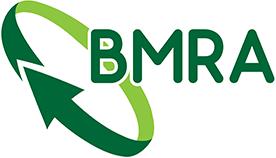
Like many of our recycling counterparts, we in the metals industry have many challenges in common, but some are metal specific, which makes the work that we undertake, and associations like us, all the more

A common theme, but sadly a potentially incredibly dangerous one that we all face, is that of fires caused by discarded lithiumion batteries. Like many across the industry, metal recycling facilities have been the victims of devastating fires, so this continues to be high on our agenda. We at the BMRA are working to raise awareness of these, alongside many other organisations, by writing press releases for the national press and lobbying government to educate the public of the risks and how they can assist the waste and recycling industry by ensuring they are safely disposed of to be recycled. Not only because of the potential fire risk but they contain materials that can be recycled which are not always obvious.
Another issue we have seen come to the fore over the past few years is that of the waste classification of shredder residue and non-WEEE (Waste Electrical and Electronic Equipment) cables. With the shredder residue set to lose its Regulatory Position Statement, the BMRA and its members have invested in a several years-long study working alongside the Environment Agency (EA) to fully understand the material that is being handled and come to an agreement of how
it will continue to be processed in the future. This has been a real labour and we continue to work with all stakeholders to find favourable outcomes for all involved.
Many of those who deal in metal recycling but do not own a shredder may not see this as an issue that will affect their business, but due to the unique nature of our pyramid industry, with many small collectors selling to those that process, bale, shear, and shred, what happens at the top of the pyramid will filter through and eventually affect the entire industry.
The issue of cables arose a few years ago following a report that concluded that hazardous substances including Persistent Organic Pollutants (POPs) were present in higher concentrations than previously believed. BMRA has taken a lead in trying to determine whether non-WEEE cable or cable-derived plastics is, in general, likely to be a hazardous and/or POPS waste. We continue to work with the EA for favourable outcome for all involved.
The metals industry has its own legislation in England and Wales, the Scrap Metals Dealers Act 2013, and we continue to see a lack of enforcement of it due to reduced resources with a correlation between enforcement

RECYCLING
demolitionhub.com 62 | DemolitionHUB Magazine
FEATURE
of the act and metal thefts which are often linked to those who pay cash and operate illegally without a licence. We continue to speak with MPs and the Lords regarding this via our role as Secretariat of the AllParty Parliamentary Group for Metal, Stone and Heritage Crime.
We also urge metal recyclers to review their licensing in time for the removal of the T9 and U16 exemptions in 2024 and ensure that they are working within the confines of what they are licenced to do.
On a positive note, we launched our Carbon Action Committee this year and we are really excited by the positive impact metals recycling can make on the journey to Net Zero. We are an industry that recycles waste, processing it into a highquality resource that saves carbon emissions, energy and raw material across several value chains. Taking British steelmaking as just one example; we estimate that in the last 10 years, British metal recyclers have saved the British steelmaking
industry 30m tonnes of CO2 equivalent by supplying them with high-quality recycled scrap steel.

We hope that this impact will drive UK manufacturers to recycle more of their scrap and to move to embrace the use of recycled content to better take advantage of our green credentials. And that, we believe will help achieve the government’s growth ambitions.
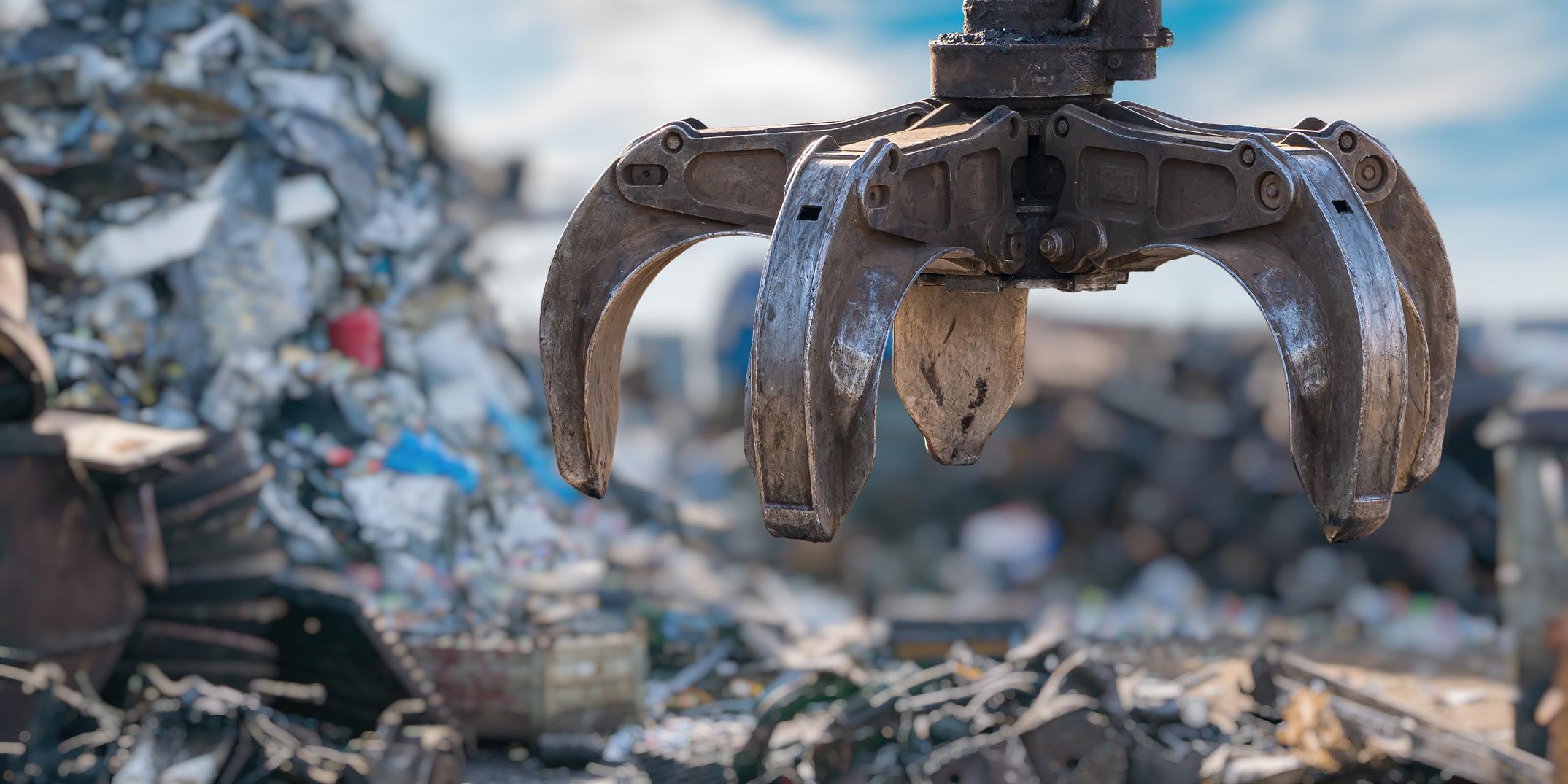
We also continue to encourage as many people into the industry as we can. At the BMRA we have our own initiative the Young British Metals Recyclers (YBMR), a group for those in membership under 40 a platform to enhance their own development in the metals industry. Opportunities include building customer relationships and training. YBMR also offers plenty of social activities that enable members to build their professional network within the industry.
We were also instrumental in the introduction of the first-sector specific apprenticeship, the award-
winning Metal Recycling General Operative. This is open to the entire metal recycling industry and designed for anyone of any age. Not only will the apprenticeship deliver specialist training for the metal recycling sector, but it will also allow those on the apprenticeship course to undertake one of five specialisms including: End of Life Vehicles (ELV), materials classification, WEEE, and materials handling and weighbridge. Many employers do not realise that an apprenticeship is a costeffective way to hire, train and retain employees and some companies can receive government funding that will pay 95% of the cost of training. I have put two apprentices through the programme and it has been wonderful to see their knowledge and confidence grow. As a metal recycler, I highly recommend it and encourage participation.
www.recyclemetals.org
RECYCLING
demolitionhub.com DemolitionHUB Magazine | 63
FEATURE
FEATURE
The British Plastics Federation
by BPF Industrial Issues Executive, Nicolette Hunt-Davison
The British Plastics Federation (BPF) is the trade association for the UK plastics industry. It was founded in 1933, making it the world’s first trade association for plastics. Today, it has more than 500 members. It has a group-based structure, spanning the entire plastics supply chain from material suppliers to recyclers and everything in between.

The BPF Recycling Group has over 50 members and focuses on plastics recycling issues and relevant legislation. The BPF has a Pipes Group comprised of many major plastic pipe manufacturers and also has VinylPlus UK within its membership. In addition to numerous other events, the BPF runs the popular annual VinylPlus UK seminar, which is an online event taking place in December this year.
Recycling PVC construction products
With thermal efficiency and longevity key to building sustainable homes, it should be noted that PVC home improvement products can last 30 to 40 years and can be recycled up to ten times, meaning the material can be in functional use for around 350 years.

Window profiles, doors, soffits and fascias are just some of the examples where PVC can be recycled back into construction products. Since 2008, the profile industry has been using recycled material that has been reprocessed. Many companies offer a service for collection from sites to enable this, ensuring that materials are diverted away from landfill. A comprehensive network of recyclers exists within the UK.
To ensure traceability, the RecoVinyl scheme was created in 2003 to further the sustainable development of the PVC industry across Europe by improving

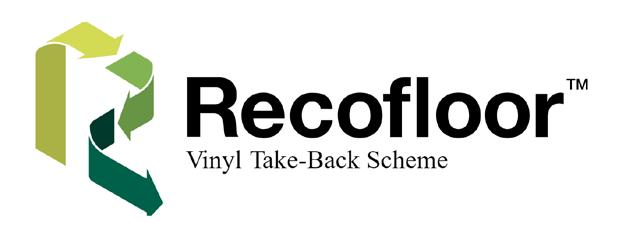
production processes, minimising emissions and developing recycling technologies to improve the collection and recycling rates of the material. In 2011 RecoVinyl’s role was reviewed to increase the supply of postconsumer and post-industrial waste, creating a demand for recycled PVC material from converters.
In 2022, more than 800,000 tonnes of PVC waste were recycled within the VinylPlus framework, representing around 27% of the total PVC waste generated during that year from the EU-27, Norway, Switzerland and the UK. Since 2000, 8.1m tonnes of PVC have been recycled and reused in new products, preventing the release of 16.2m tonnes of CO2 into the atmosphere.
Recycling vinyl flooring
Recofloor is a collection and recycling service for commercial waste vinyl flooring across the UK. It was founded by flooring manufacturers Altro and Polyflor and provides an eco-friendly alternative to traditional waste disposal routes, assisting the flooring industry and its partners in becoming more sustainable. With a network of sites across the UK, located at participating flooring distributor premises, contractors and fitters can drop off acceptable commercial vinyl at their local distributor free of charge. This enables hundreds of users to make recycling part of their day-to-day activity within the demolition and construction industries.
RECYCLING
demolitionhub.com 64 | DemolitionHUB Magazine
Recycling EPS products
The thermal insulation and protective qualities of EPS are arguably unmatched. The material is 98% air captured within a 2% cellular matrix. Its positive environmental qualities are supported by the Building Research Establishment, which has awarded it an A* environmental rating. It is lightweight and high strength and can be used in many civil engineering projects, such as in railway platforms and embankments, while reducing carbon emissions during the transportation phase.
It has been calculated and is often quoted that EPS can save up to 200 times its own resource impact in thermal energy savings, partly because it uses so little material, accounting for just 0.1% of global oil as a feedstock. But EPS is also 100% recyclable in both construction and packaging applications. The recycled material can be used in products like insulation boards, increasing energy savings and enhancing the sustainability credentials of construction projects.

Recycled material and plastic pipes
Plastic pipes have long lifetimes but at the end of their life (or the building they are within) the most common plastics used for pipe production are 100% recyclable and can be recycled many times.
While the majority of plastic pipes can be recycled using conventional mechanical recycling techniques, hard to recycle products can be recycled using chemical recycling technologies – an

RECYCLING FEATURE
umbrella term for a variety of nonmechanical recycling techniques. Chemical recycling is viewed as complementary to mechanical recycling and means plastic waste, especially that which is not suitable for mechanical recycling, can be processed to produce base chemicals and chemical feedstocks, which can then be used to produce new plastic materials. It can deliver high-quality material for a large number of applications and divert waste from landfill or incineration.
Standards for plastic piping systems exist that allow the extensive use of recycled material and work is ongoing to bring all standards into line. Recycled material can currently be used in a range of products including pipes for surface water; boxes for infiltration, attenuation and storage of surface water; foul water drains and sewers; cable ducts and soil and waste pipes.
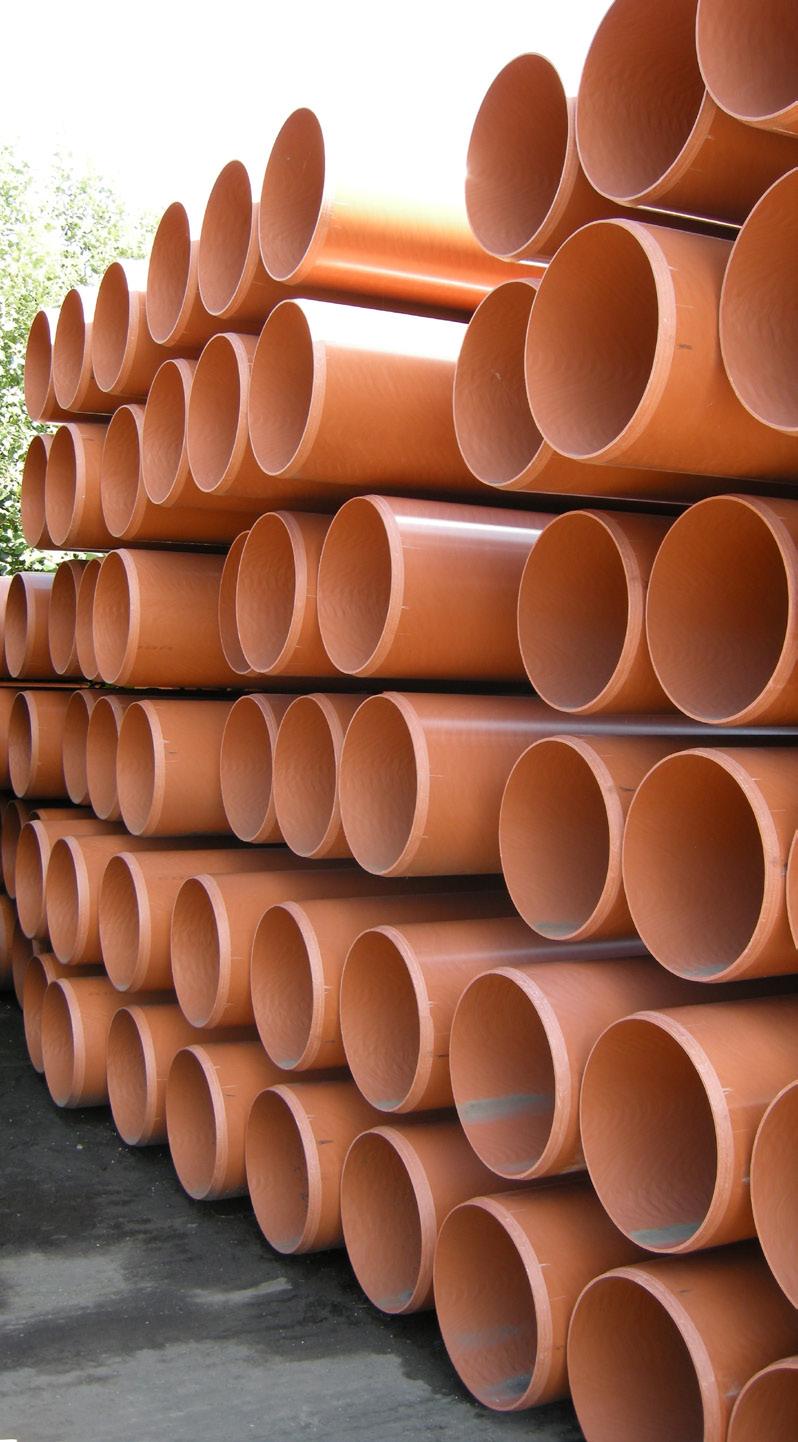
Data collected by The European Plastic Pipe and Fittings Association (TEPPFA) from 14 major European manufacturers of plastic piping systems and nine trade associations has been collated by Vito (an independent Flemish research organisation). The data shows that 519,804 tonnes of PVC-U and 19,899,324 tonnes of polyethylene (PE) or polypropylene (PP) recyclate (pre- and post-consumer) were used in plastic piping systems across Europe in 2021 alone. This is increasing year on year.
The BPF Pipes Group is exploring ways to recover more plastic pipes at the end of their life and is keen to work with all involved to boost the collection and recycling of plastic pipe waste.

Monitoring plastic recycling
The RecoTrace system is the first comprehensive data system designed to monitor both plastic recycling volumes and recycled plastic use for all main polymers. It evolved from over twenty years of data collection, expertise and experience from RecoVinyl, and enables users to illustrate their commitment to achieving circularity. With the ambition for 10m tonnes of recycled plastics to be used in new products by 2025, the scheme has been expanded to include other materials as well as PVC and expanded polystyrene (EPS).
demolitionhub.com DemolitionHUB Magazine | 65
RECYCLING FEATURE
Company: A1 Wokingham Car Spares part of the A1 Group of companies
Geographic reach: Southern England
Number of sites: 1
Number of employees: Approximately 55 Turnover: £25m

Materials processed: Metal recycling and ELV disposal/ recycling. Second hand car part sales.
Established: 1971
Interviewee: Russell John Pike
Role: Car Spares Manager

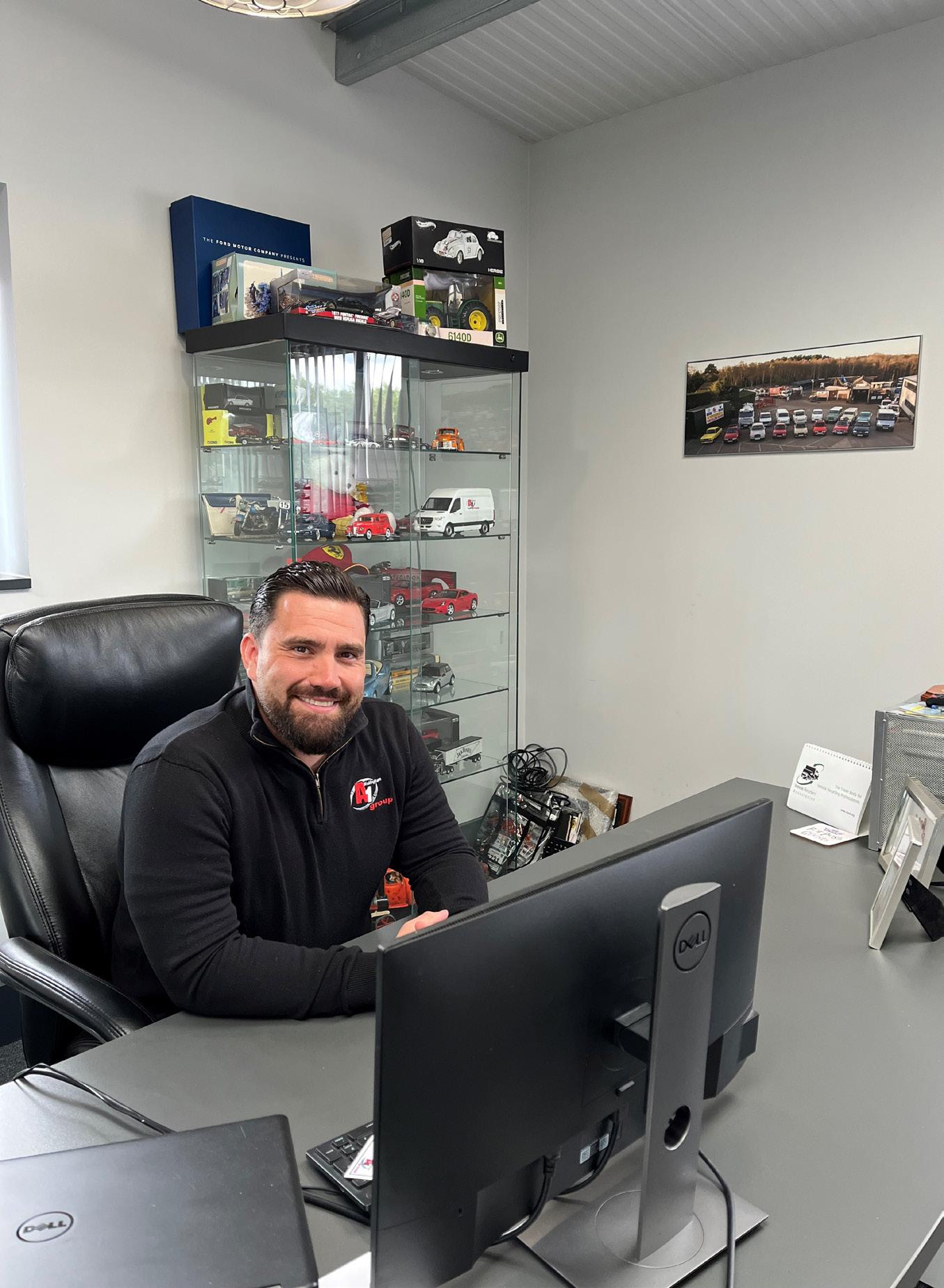
Time in role: Officially started in 2004, although he is part of the family
also launched a tyre department to service its own vehicles and customers needing part-worn tyres. The company bought its first weighbridge in 1986 for £2,000 secondhand.
QGive us some background on the company and its servicesw
The A1 Group began in 1971 when founder Mick Pike bought his first car transporter to collect cars to scrap. By 1977 the company had its own car crusher and racks of vehicles. In the early 1980s A1 bought its first skip lorry to collect scrap metal and household waste. During this period the company
The A1 Group grew in the 1990s with the introduction of a tanker, which is when A1 Wokingham Wet Waste was born. In 2002 there was a huge investment in a new Colmar baler, which massively expanded the metal recycling element of the business. In 2004 we launched A1 Loo Hire, another arm of the A1 Group. In 2008 the car spares division installed new racks in the car spares department – a £120,000 investment that allowed us to safely store over 500 cars –and at the bottom of the yard, our depollution bay, where we processed large numbers of vehicles from contracts with police services across the southeast. By 2017, demand for our car recycling services was soaring — we invested over £2m in a new Lefort Baler to increase capacity. By this point, we’d achieved a number of ISO accreditations and health and safety had become
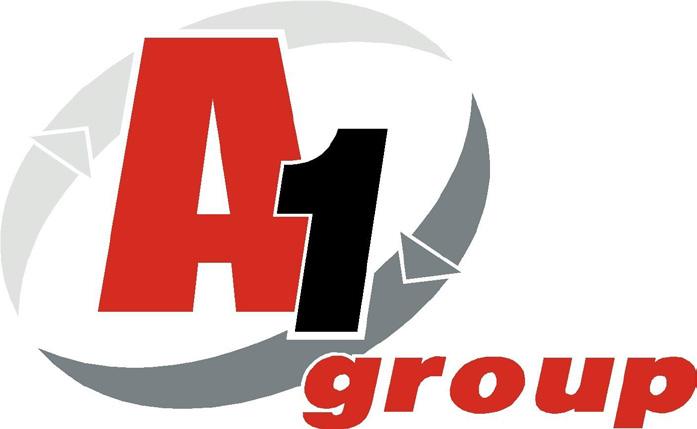
demolitionhub.com 66 | DemolitionHUB Magazine
top priority.
Today, The A1 Group operates from eight locations across England, boasts a fleet of over 200 operational vehicles and more than 250 staff.
QWhat particular experience or capabilities give you the edge?
In the dynamic world of demolition and environmental solutions, the A1 Metal Recycling & Car Spares has emerged as a pioneering force, dedicated to excellence and sustainability. With a rich history and a diverse portfolio of services, the A1 Group has cemented its position as a prominent leader in the industry. Throughout its journey, the company has continually adapted to meet the changing needs of the industry, emphasising innovation and environmental stewardship.
Renowned for its professionalism and expertise, the A1 Group is committed to delivering quality services across various domains. The A1 Group’s metal recycling division is a cornerstone of its
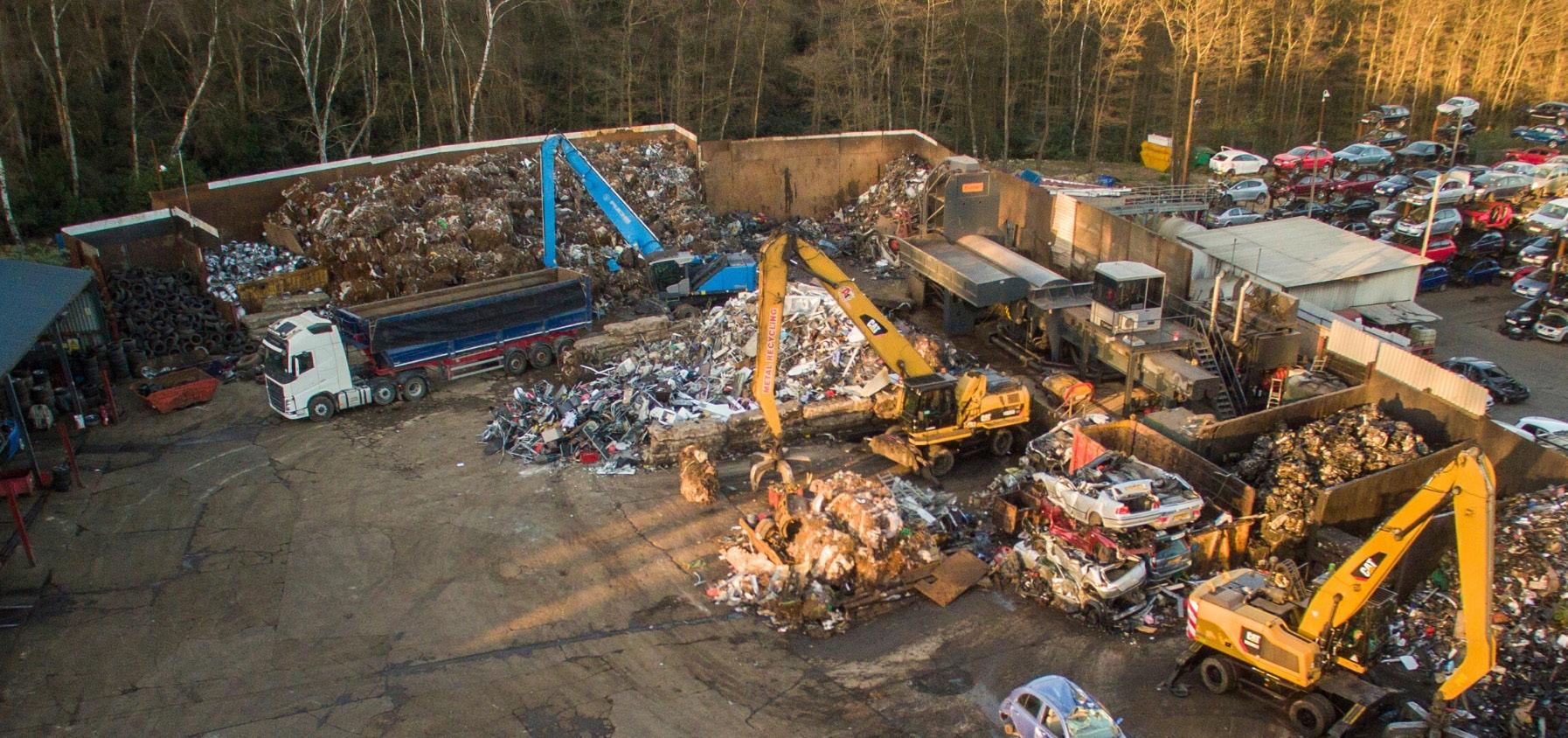
operations, demonstrating its dedication to sustainability and resource conservation. With a strong emphasis on circular economy principles, it has established itself as a leader in metal recycling and recovery. Equipped with advanced technology and a streamlined process, the A1 Group efficiently collects, processes, and recycles various types of metal, contributing to a greener and more sustainable future.
QWhat further products and services do you provide?
In addition to metal recycling, the A1 Group offers comprehensive wet waste management services. It specialises in responsibly handling and disposing of various forms of liquid waste, including contaminated water, oil, and chemicals. Its expert team ensures compliance with stringent regulations, employing best practices to protect the environment and mitigate potential risks.
The A1 Group’s loo hire division offers a range of portable toilet
facilities, ensuring convenience and hygiene in various settings, from construction sites to events. With a focus on cleanliness, efficient servicing, and prompt delivery, it offers flexible options to meet diverse client requirements.

To support its multifaceted operations, the A1 Group also provides comprehensive transport services. With a modern fleet of vehicles and experienced drivers, they ensure efficient logistics for their various projects. This includes transportation of waste materials, equipment, and other resources, enabling seamless coordination and timely execution.
The A1 Group is lucky to work with demolition contractors through every facet of its business.
QWhat certifications or accreditations do you have?
Scrap Metal Dealers licence
ISO 45001
ISO 14001
ISO 9001
Fors Bronze
demolitionhub.com DemolitionHUB Magazine | 67
RECYCLING FEATURE
HWM Group celebrating 13 years supporting the construction industry
Winchester-based HWM Group is celebrating 13 years in business with the launch of a new website –www.hwmgroup.co.uk.


HWM provides a comprehensive offer of demolition, contaminated soil solutions and groundworks contracting services to a wide range of commercial clients across the south of England.

Recent projects include a demolition contract in the Solent Freeport’s Navigator Quarter in Eastleigh, where work is well underway to create new top quality employment space and sustainable business opportunities for the future. Further afield in Portsmouth, HWM are providing demolition and civil engineering services on the
HWM Group Director, Chris Lynch, said: “The services we provide are delivered to the highest standards with an emphasis on sustainability and respecting the environment. Recycling and reuse of materials on site are at the heart of all our work. Hazardous Waste Management’s (HWM’s) particular expertise in removal and cleaning of contaminated soil has made us market leaders in the treatment of both hazardous and non-hazardous contaminated soil on site and at our own dedicated specialist facilities.”
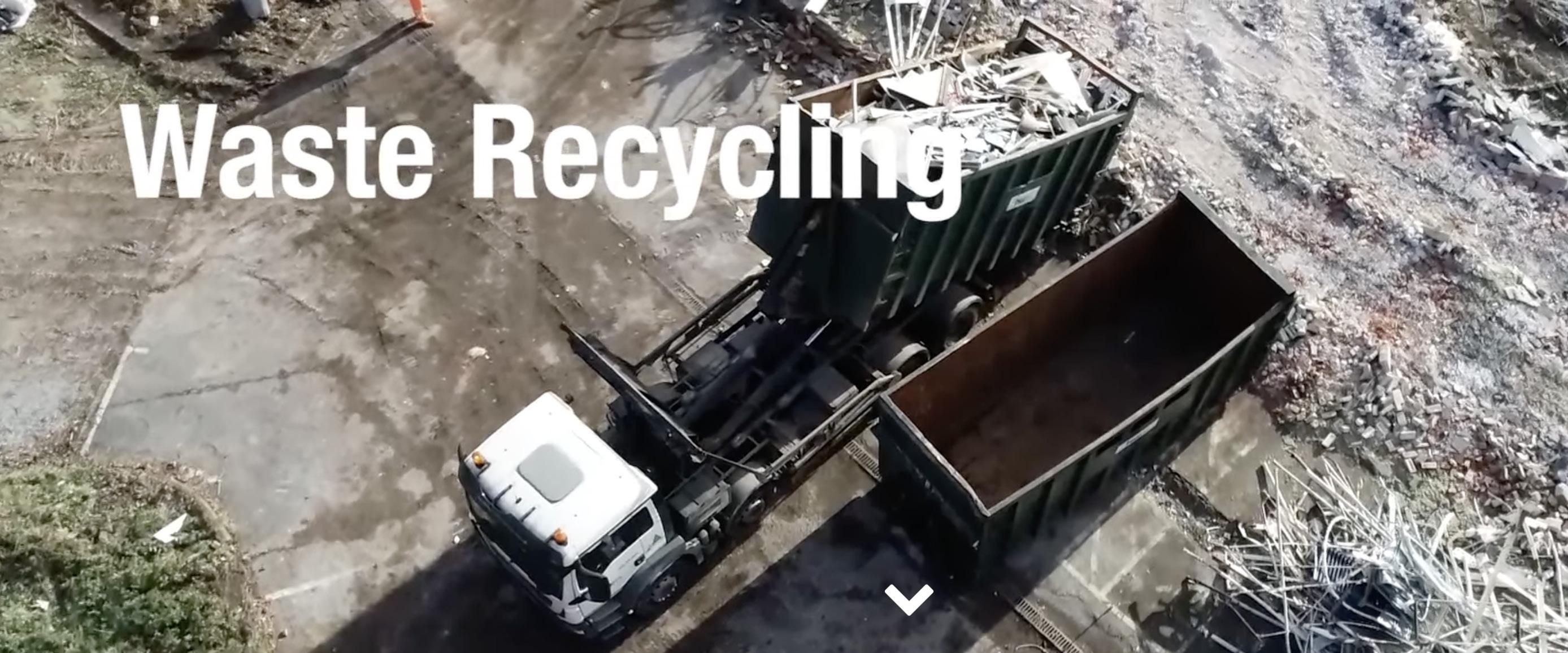 Morgan Sindall Group PLC Cosham Fire Station project.
Morgan Sindall Group PLC Cosham Fire Station project.
Call 01962 718 030 or email enquiries@hwmgroup.co.uk for more information. RECYCLING FEATURE demolitionhub.com 68 | DemolitionHUB Magazine
“The services we provide are delivered to the highest standards with an emphasis on sustainability and respecting the environment”
Please let us know if you have any of the following now or soon coming up on any of your sites.
• Generators - Diesel & Gas
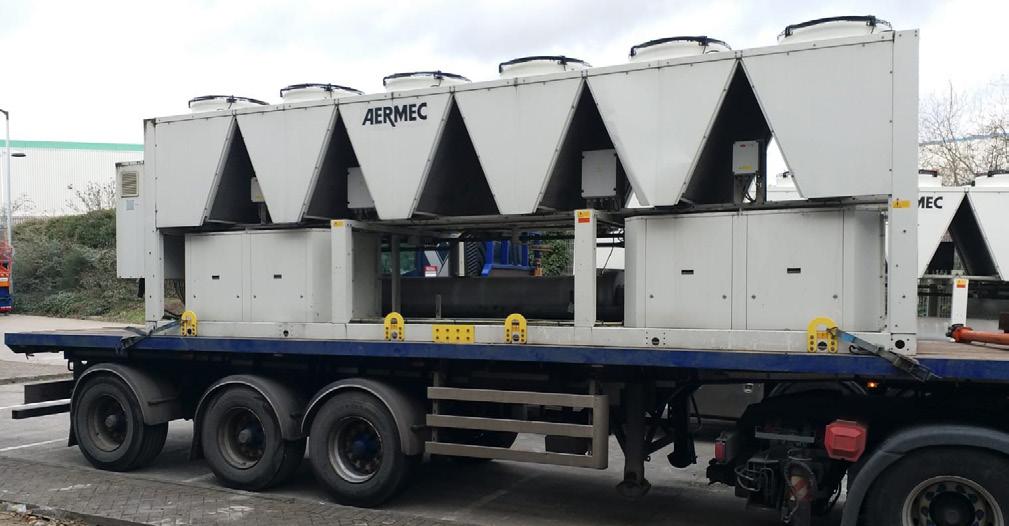
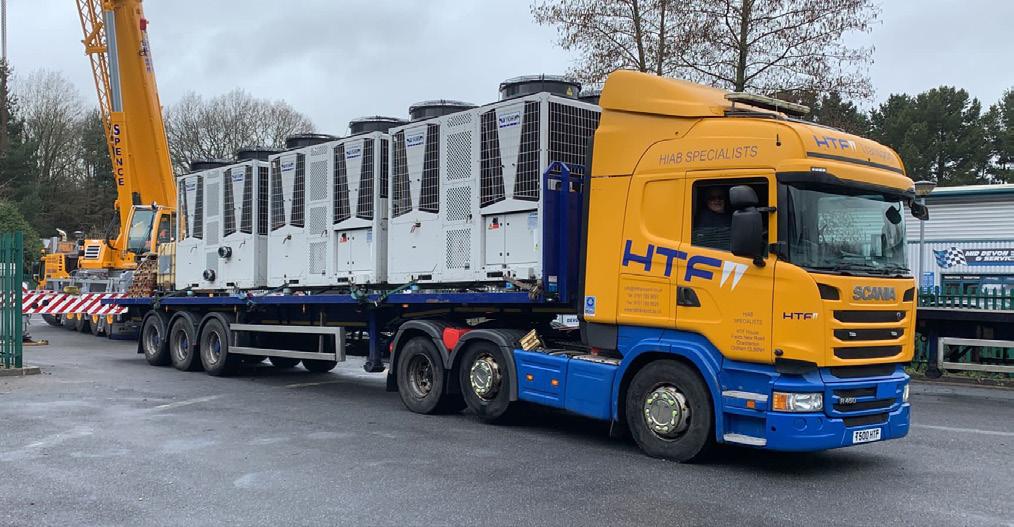
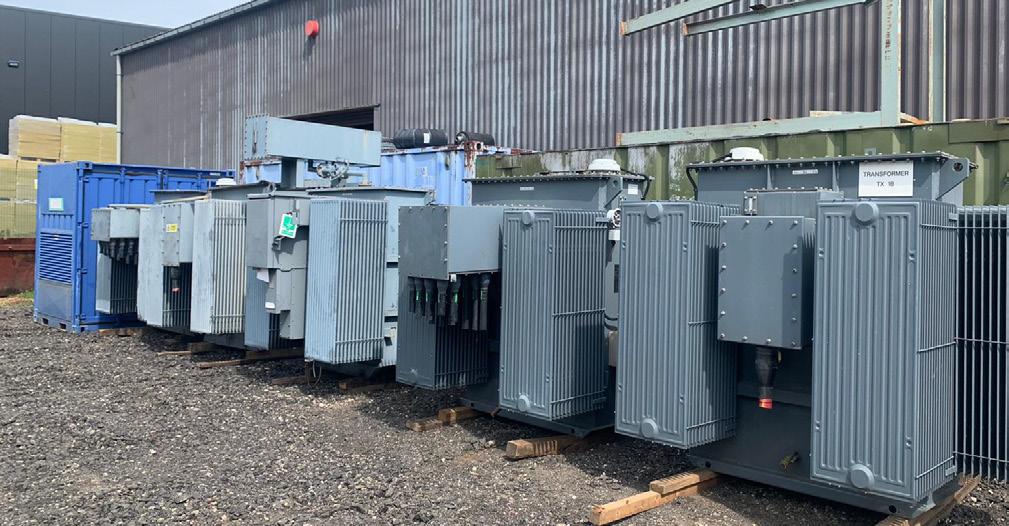
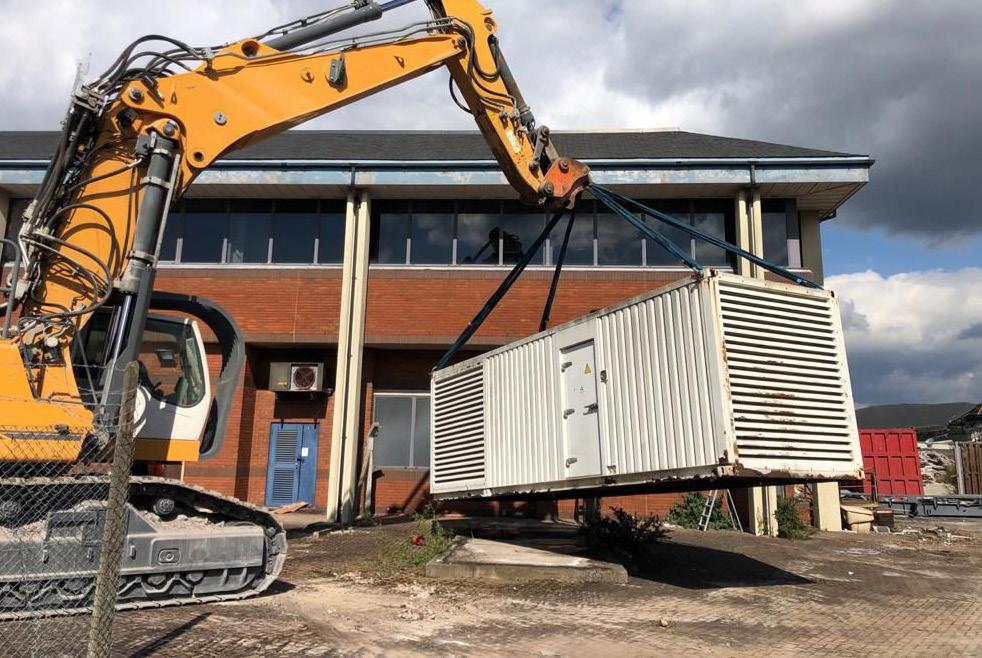
• Industrial Pumps
• Chillers
• Diesel Engines
• Transformers
• Compressors
• Forklifts
We can also extract them from your sites when buying if required.

Please feel free to pass on our contacts, all successful referrals are rewarded!
Always worth giving us a try!
elizabeth@aediesels.com Contact Director Elizabeth Dallimore 07473966644 (Whatsapp available) 12-14 Carlton Place Southampton SO15 2EA
RECYCLING FEATURE
Company: Hazardous Waste Management Ltd

Geographic reach: South of England
Number of employees: 10
Turnover: £2m
Materials processed: Contaminated concrete, contaminated soils and stone
Established: 2009
Interviewee: Adam Blake
Role: Director
Time in role: 14 years
Previous experience: 25 years in demolition and waste management
QGive us some background on the company and its services
Hazardous Waste Management Ltd (HWM Ltd) is a division of HWM Group – a three-company Group. The other two companies under the umbrella concentrate on Demolition and Civil Engineering.
HWM Ltd was set up to handle the requirements of a very busy demolition and groundworks business that was mainly involved in brownfield development in the south of England. Contamination was a factor on almost every job in those days and often still is. Waste material that needed to be treated before it could go back into the recycled aggregate supply chain would often end up in landfill or had to travel almost 100 miles to a treatment facility. Setting up HWM Ltd seemed like the answer to a lot of dilemmas faced by the project teams of the other two divisions of our business.
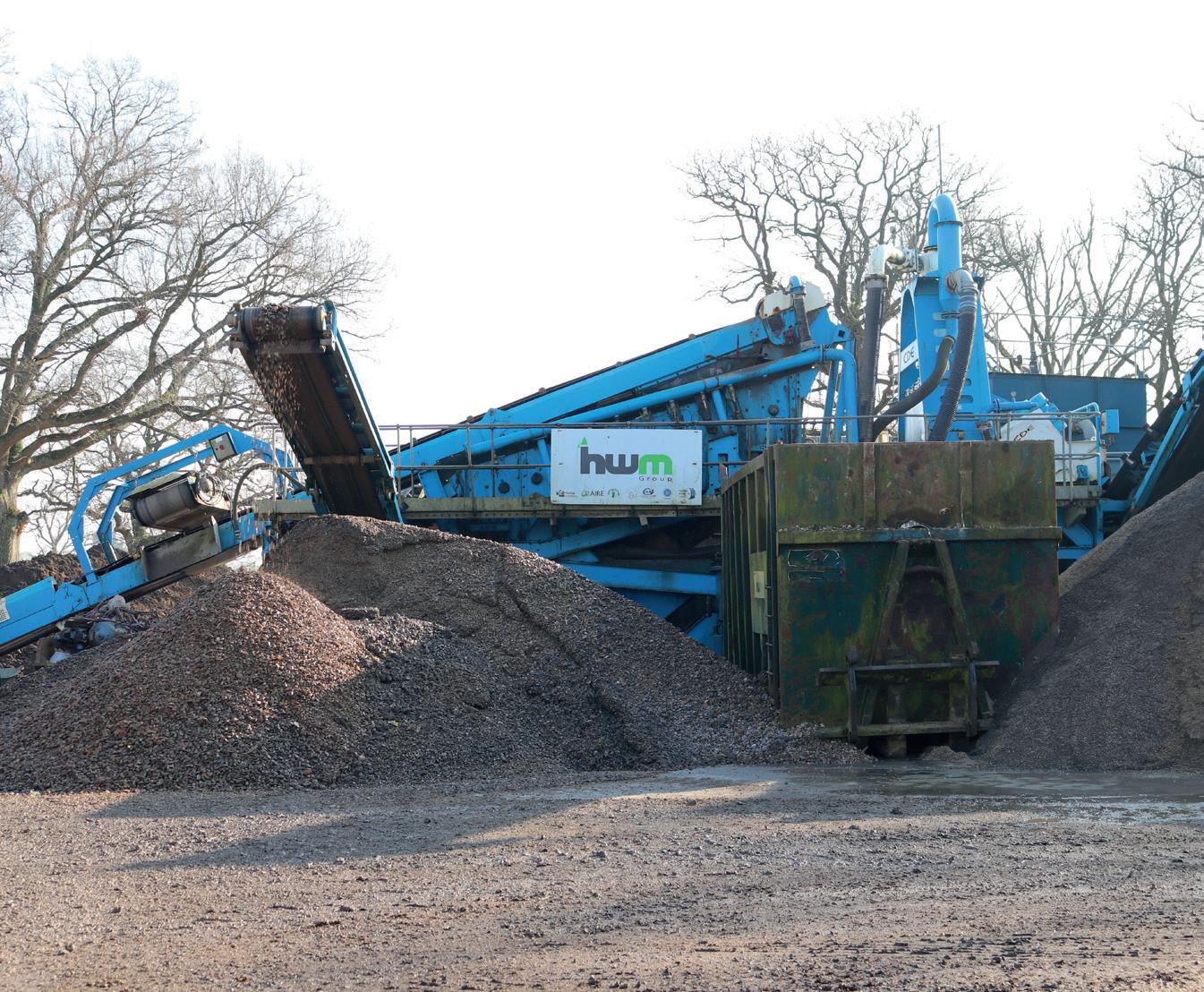
QExplain the business model and how you work with demolition contractors to mutual advantage
The goal we set ourselves when we set up the soil treatment facility was to provide a bespoke unit that would ensure as much of the concrete and soil waste coming from our demolition and groundworks sites was recovered in a timely fashion and that an absolute minimum would be going to landfill. It was a tough journey through planning and Environment Agency permitting procedures, however it enabled us to really look at what we wanted to achieve and how to do that right.
In the organic and strategic growth of the business, we started to get calls from other demolition contractors in the area. Fourteen years on, we now have a solid client base within many sectors including demolition, civil engineering, MOD and spill response, to name a few.
Our bespoke treatment facility for contaminated concrete and soils is ‘one of one’ in the south of England and offers an alternative to landfill for contractors for whom TPH or heavy metal contamination is an issue. We provide a fully compliant, commercially viable option for demolition and civil engineering contractors, which in turn gives them an edge when bidding for work where contamination is a factor.
QWhat particular experience or capabilities give you the edge?
Definitely our team. From the waste producers initial enquiry to our office compliance and assessment of the lab reports, through to acceptance of the waste at our treatment facility on the M3 corridor and the follow up record keeping. The main goal of our team is to keep the process smooth and compliant. We have our own in-house chemist who classifies the waste for disposal, which is particularly useful to many of our clients as they can be sure that the waste is always being tipped at the correct facility. Our team is always on

demolitionhub.com 70 | DemolitionHUB Magazine
hand with advice, assistance and a fantastic knowledge of treatment processes for contaminated soils. Soil sampling, validation (via QED and XRF) and soil remediation are also part of the Hazardous Waste Management business model.
QWhat certifications or accreditations do you have?

Full EA permit (see website for details)
WAMITAB
In-house Chemist BSc (Hons)
COTC/MCIWM
QWhat is the biggest growth area for you (and the industry)
The Department of Levelling Up, Housing and Communities has caused a notable increase in enquiries from local councils on the demolition side of the business.
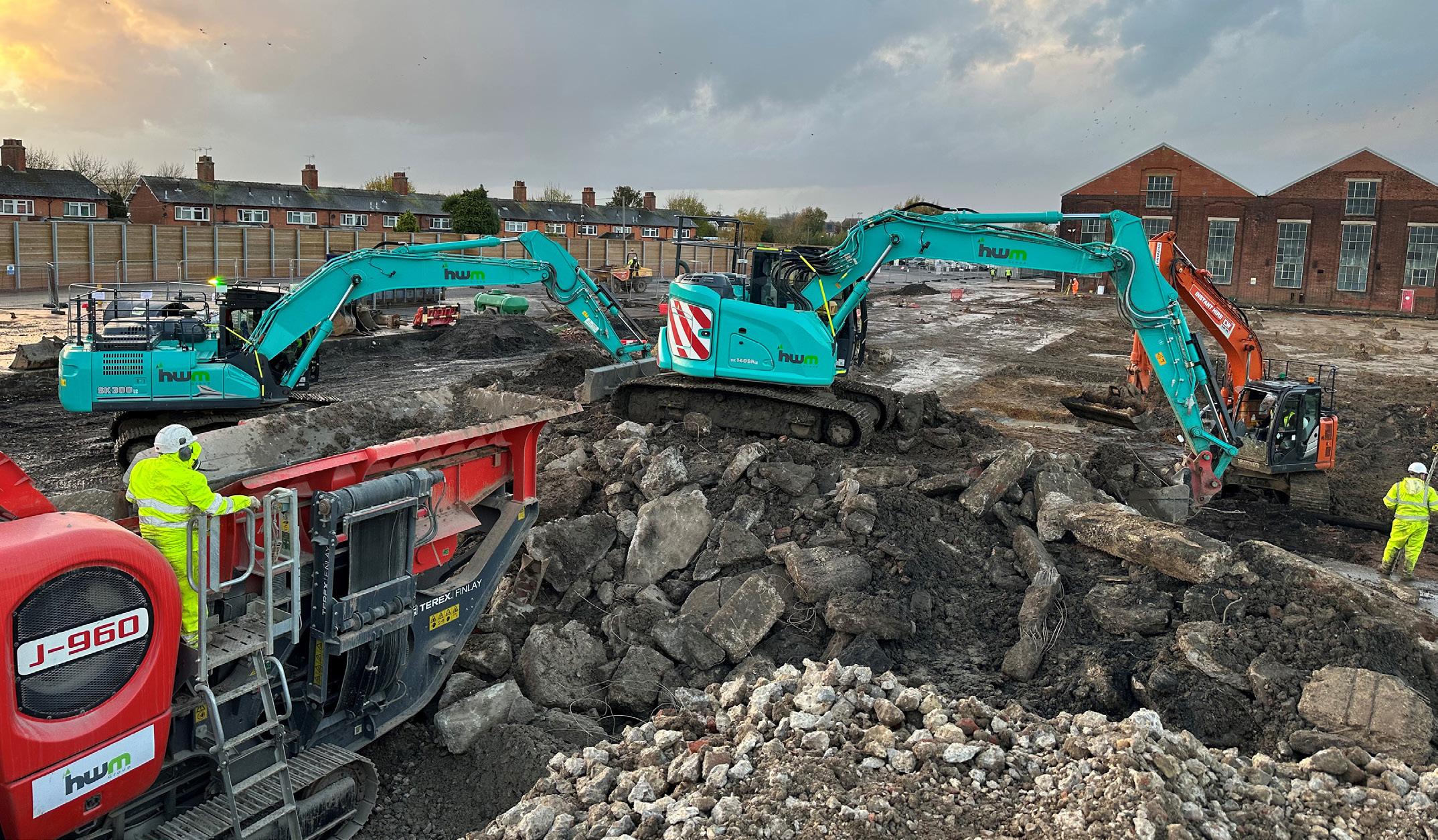
RECYCLING FEATURE
This in turn has led to an increase in the enquiries we have received as developers start to make the vision a reality. www.gov.uk/ government/news/thousandsof-new-homes-to-be-built-onregenerated-brownfield-land. Regeneration in general is what provides the most contaminated material for our soil treatment facility. Landfill is no longer the only option and we are proud to be offering a service that clears approximately 96-98% of material into the recycled aggregate sector.
QAre there any other ways in which you see the industry environment changing?
The waste industry is much more regulated now than it has ever been. We see this only as a good thing. An across the board compliance has been needed for a long time for all sectors of waste treatment.
QDemolition already has a very high rate of reuse and recycling. What further challenges and opportunities do you see in terms of sustainability?
Demolition often removes all recyclables off-site and leaves behind a pile of crush concrete for future use. HWM is taking this one step further and liaising with its clients to determine what products are required within the groundwork permanent works. With our knowledge of producing aggregates and with our mobile treatment permit, we are working with our clients to produce a variety of certified products for use. We also look closely at the existing site investigation reports, in particular the PSD data to design our own mix of products. This reduces muckaway and importation of aggregates.

demolitionhub.com DemolitionHUB Magazine | 71
RECYCLING FEATURE
Company: Inmalo – hydraulic attachments and dust suppression
Geographic reach: UK
Number of employees: 8
Turnover: £1.8m
Product: Attachments to process all types of materials
Established: 1946
Interviewee: Charles Polak

Role: Sales Manager




Time in role: 10 years
QGive us some background on the company and its services
Founded in 1946, Inmalo is an independent business spanning three generations of the Polak family. The company has been supplying hydraulic excavator attachments and dust suppression equipment for over 25 years, building an enviable reputation for delivering high quality products and providing a comprehensive, reliable aftersales service to the construction, demolition and waste recycling sectors. The company’s extensive
range of products includes MBI Hydraulic Attachments, GIDA Magnets, Montabert Hydraulic Breakers, Rock-Zone Crushers, Steelwrist Quick Couplers and Motofog and MB Dust Suppression units. Inmalo has the widest range of dust suppression units in the UK.
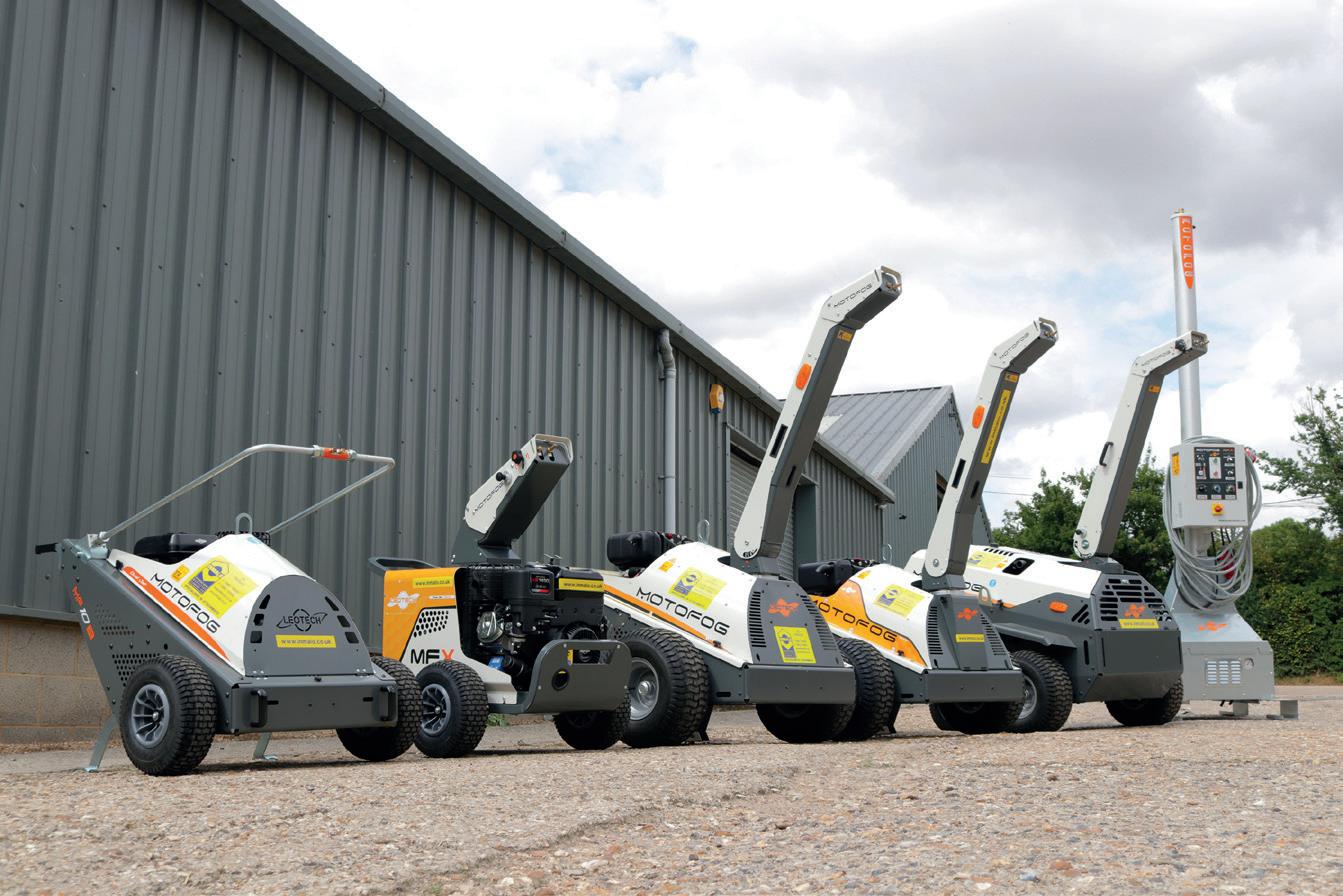
QExplain the business model and how you work with demolition contractors to mutual advantage
Inmalo supplies demolition and waste recycling attachments
providing customers at each end of the process with high quality performance attachments. Our experience and longevity has enabled us to work with some of the best manufacturers in the world supplying quality attachments and dust suppression systems. Our customers can expect exceptional service form sales, installation, servicing and parts. Our long term relationships are testimony to the quality build and reliable productivity of the equipment we choose to distribute and service.
QWhat particular experience or capabilities give you the edge?
As a family business, we are agile in our approach to doing business. Our engineering and sales team are highly experienced, often coming from within the industries we serve. We don’t just sell equipment. We can adapt mechanical, electrical and hydraulic systems to meet the demands of your excavators or project scope. With in-house engineering we can support customers through the lifetime of their attachments or dust suppression systems.

demolitionhub.com 72 | DemolitionHUB Magazine
QWhat certifications or accreditations do you have? We are active members of NFDC, BNRA and CPA.

QWhat is the biggest growth area for you and the industry?

Steel and concrete processing attachments are always in high demand as are our range of GIDA magnets. Dust suppression has grown as health and safety requires systems to counter dust and odour in built-up locations.
RECYCLING FEATURE
QAre there any other ways in which you see the industry environment changing?
The attachments industry will adapt to offer electrically powered hydraulic systems as green plant demands. Reducing waste requires it to be picked and sorted so attachments are able to make fine adjustment movements to accurately pick and sort materials. Wear parts are designed to reduce the need to change them so often or to have reversible cutting edges or teeth.
QDemolition already has a very high rate of reuse and recycling. What further challenges and opportunities do you see in terms of sustainability? Processing waste on site is a large
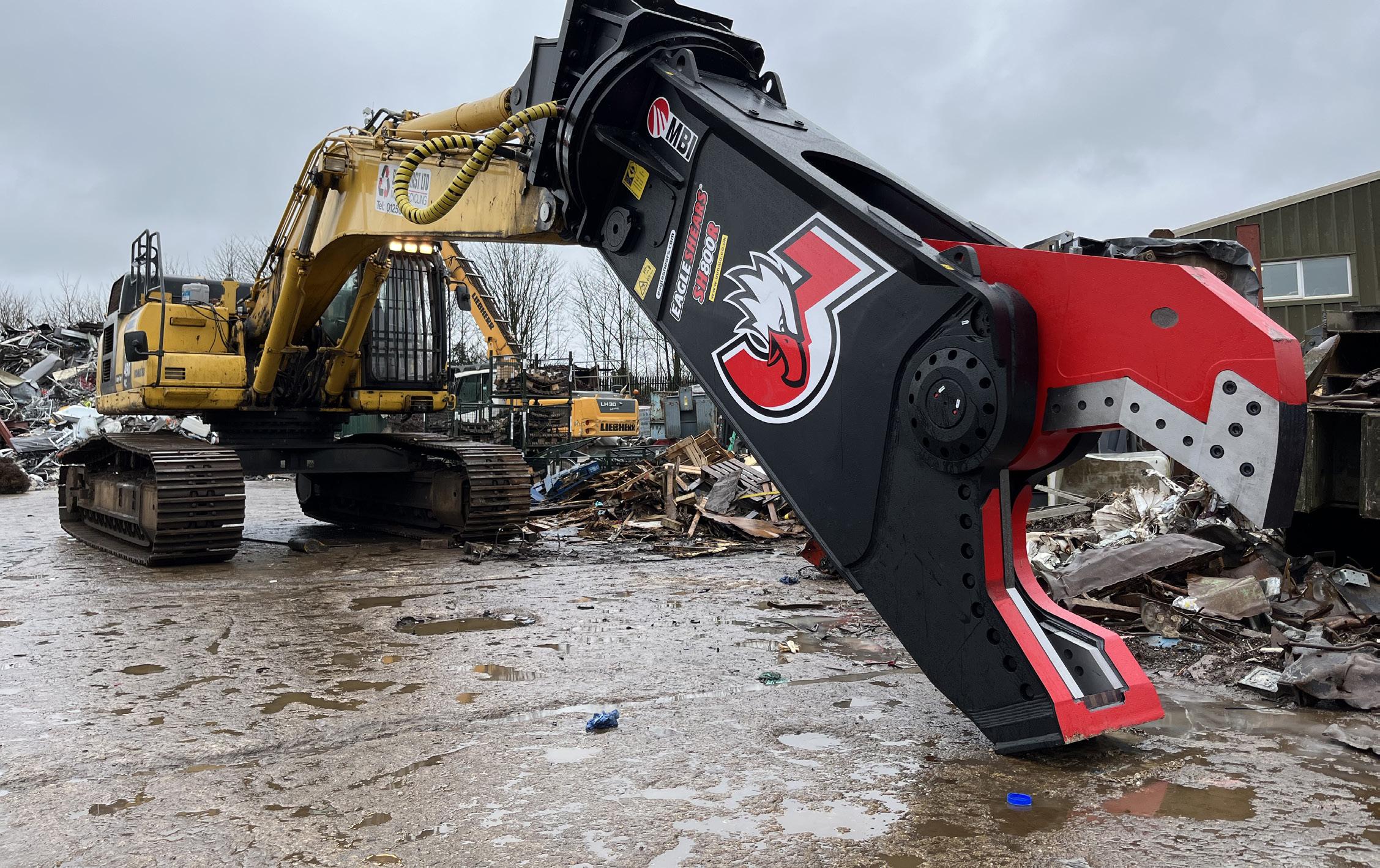
part of our product focus as this provides crushed concrete materials for land reinstatement and reduces vehicle movements to and from other processing facilities. Metal processing is made easier by the speed and power our shears can process waste steel into smaller sections.
QDo you have any particular ongoing relationships or clients?
Inmalo has built long term relationships with many of its clients through providing reliable service and products. Our main MBI attachments agency has been a relationship of more than 22 years, which underlines both Inmalo’s and MBI’s commitment to serving UK customers.

demolitionhub.com DemolitionHUB Magazine | 73
RECYCLING FEATURE
Company: The Metal Recycling Group
Geographic reach: Predominantly London and south-east but with linked facilities we can cover anywhere in the UK from Scotland to Cornwall
Number of sites: Four
Number of employees: 30
Turnover: £48m
Materials processed: All grades of ferrous and non-ferrous
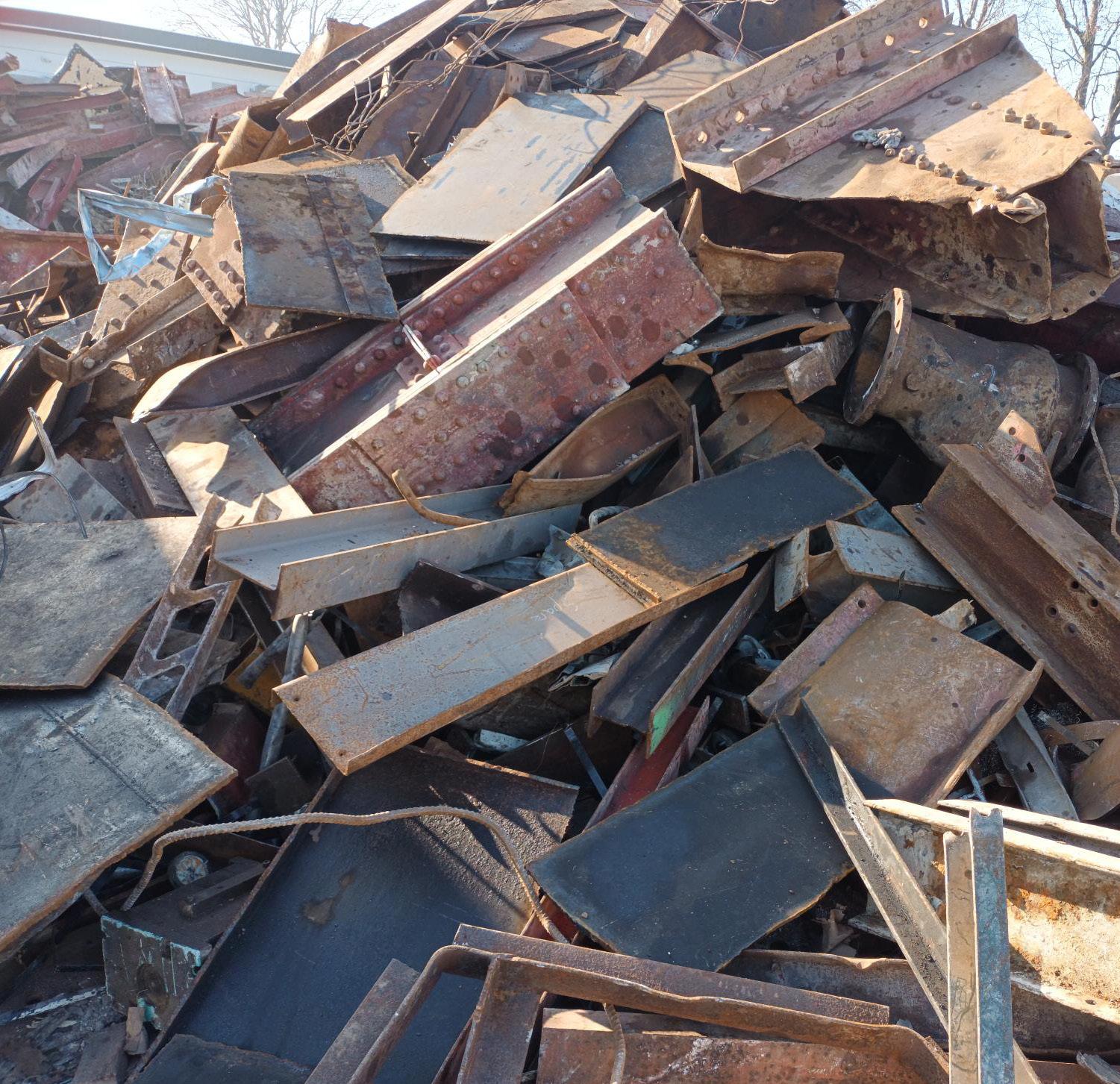
When established: 2017
Interviewee: Mark Horsley

Role: Commercial Director


Time in role: Two years
Relevant previous experience: 25 years in the metal recycling industry with roles in operations, transport, compliance and commercial
QGive us some background on the company and its services
MRG is a privately owned scrap metal processing business with the directors having over 100 years’ combined knowledge experience in the industry. We process ferrous and non-ferrous to recognised international grades to final consumers both in the UK and abroad.
We offer a comprehensive collection service on our own fleet of vehicles alongside a dedicated fleet of subcontract vehicles to provide a prompt collection service. Our customer focused transport team can provide a collection plan to suit any customer’s needs.
“We offer a comprehensive collection service on our own fleet of vehicles alongside a dedicated fleet of subcontract vehicles to provide a prompt collection service”
demolitionhub.com 74 | DemolitionHUB Magazine
QExplain the business model and how you work with demolition contractors to mutual advantage
With our knowledge of the metal recycling industry we are able to provide an innovative approach to all the demolition contractors requirements along with a cradle to grave sustainability trail. We are quickly able to adapt to changing market conditions and provide a one stop shop to contractors who will work across the whole of the country and need help and support with their scrap and sometimes assistance with waste disposal.
QWhat particular experience or capabilities give you the edge?
We are flexible and reactive so we are quickly able to efficiently react to a contractor’s requirements. Top market rates prices, a prompt efficient collection service or tipping service if delivered linked with prompt payment helps immensely. Our comprehensive audit trail and commitment to sustainability means we can be relied upon to fulfil all obligations the contractor and their client require.
QWhat certifications or accreditations do you have?
ISO 9001 – Quality
ISO 14001 – Environmental

ISO 45001 – Health and safety
FORS – Freight Operator Recognition Scheme
QWhat is the biggest growth area for you and the industry?
Sustainability and the use of green technology. At MRG we have invested heavily in new technology and our facilities in the last two years. Our new purpose-built yard
RECYCLING FEATURE
in Silvertown is built with the future in mind. With a layout that facilitates quick and easy tipping of loads and our investment in the latest machinery we are committed to providing an unparalleled service to our customers while protecting the environment.
QAre there any other ways in which you see the industry environment changing? Demolition will change as the continued push towards reuse of buildings rather than demolition will alter the nature of the scrap that is generated. As a metal recycler with a focus on this industry we will have to adapt as this process evolves to remain at the forefront.
QDemolition already has a very high rate of reuse and recycling. What further challenges and opportunities do you see in terms of sustainability?
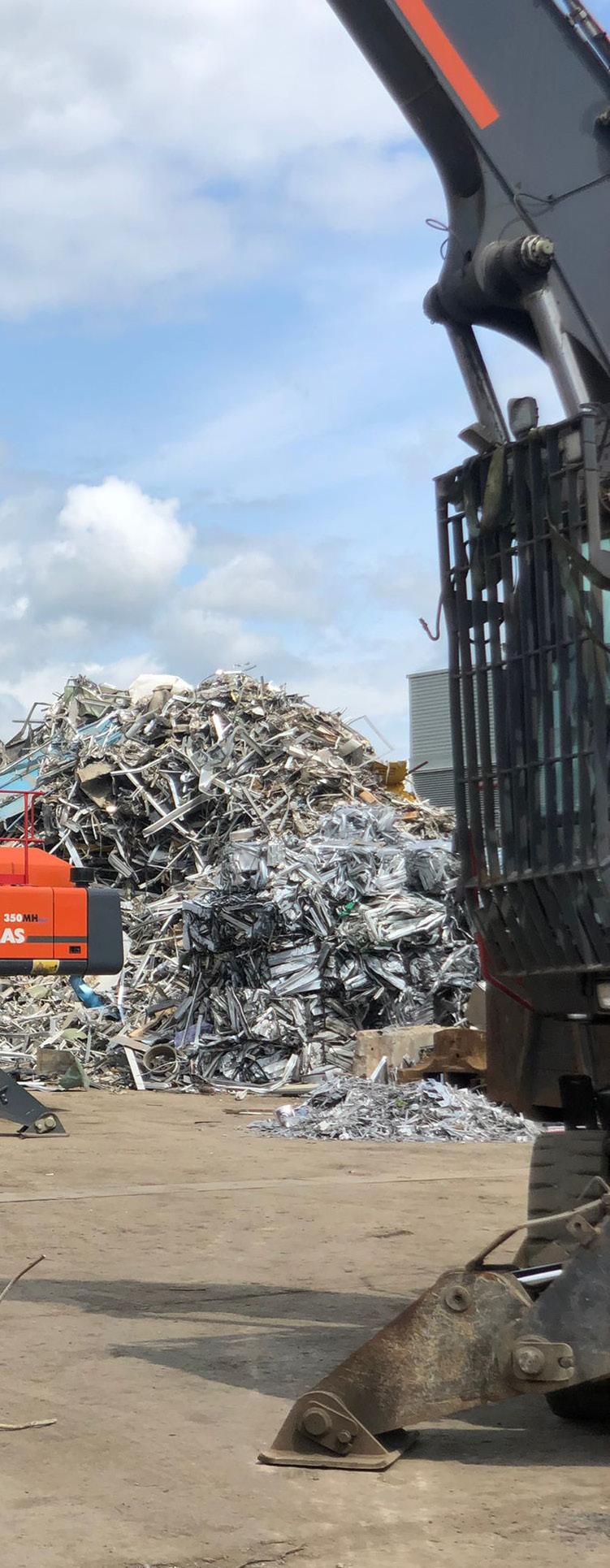
The continued push towards sustainability and the circular economy will remain a challenge to all. We embrace this challenge and are working with a number of contractors to explore the potential to reuse steel and other material produced by the demolition sector to complement our core metal recycling activities.
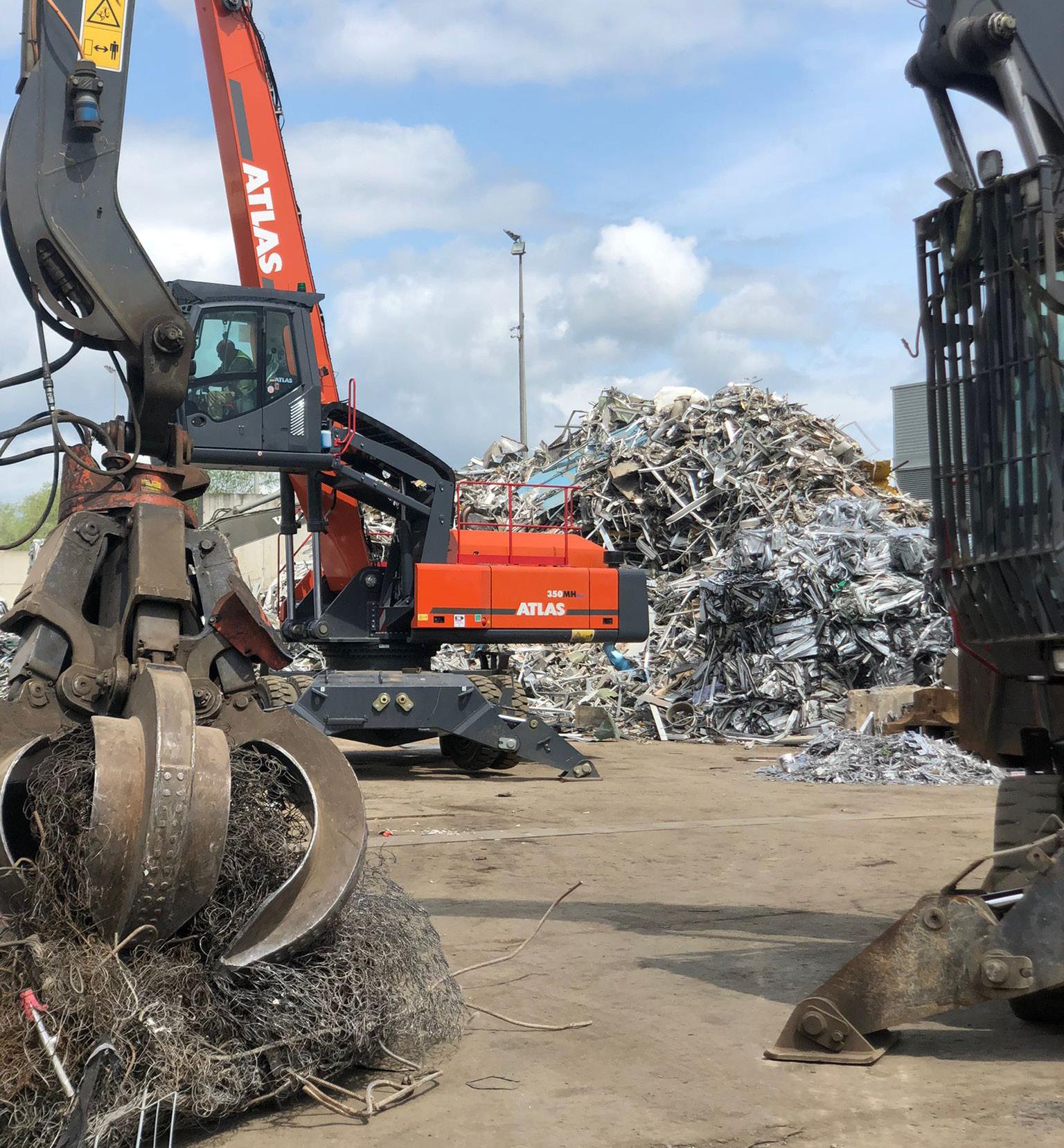
demolitionhub.com DemolitionHUB Magazine | 75
Collard Group raises recycling bar in Reading
Collard Group’s waste management division has installed a state-of-the-art recycling system at its Reading facility that will increase the amount of waste it can segregate to be recycled.
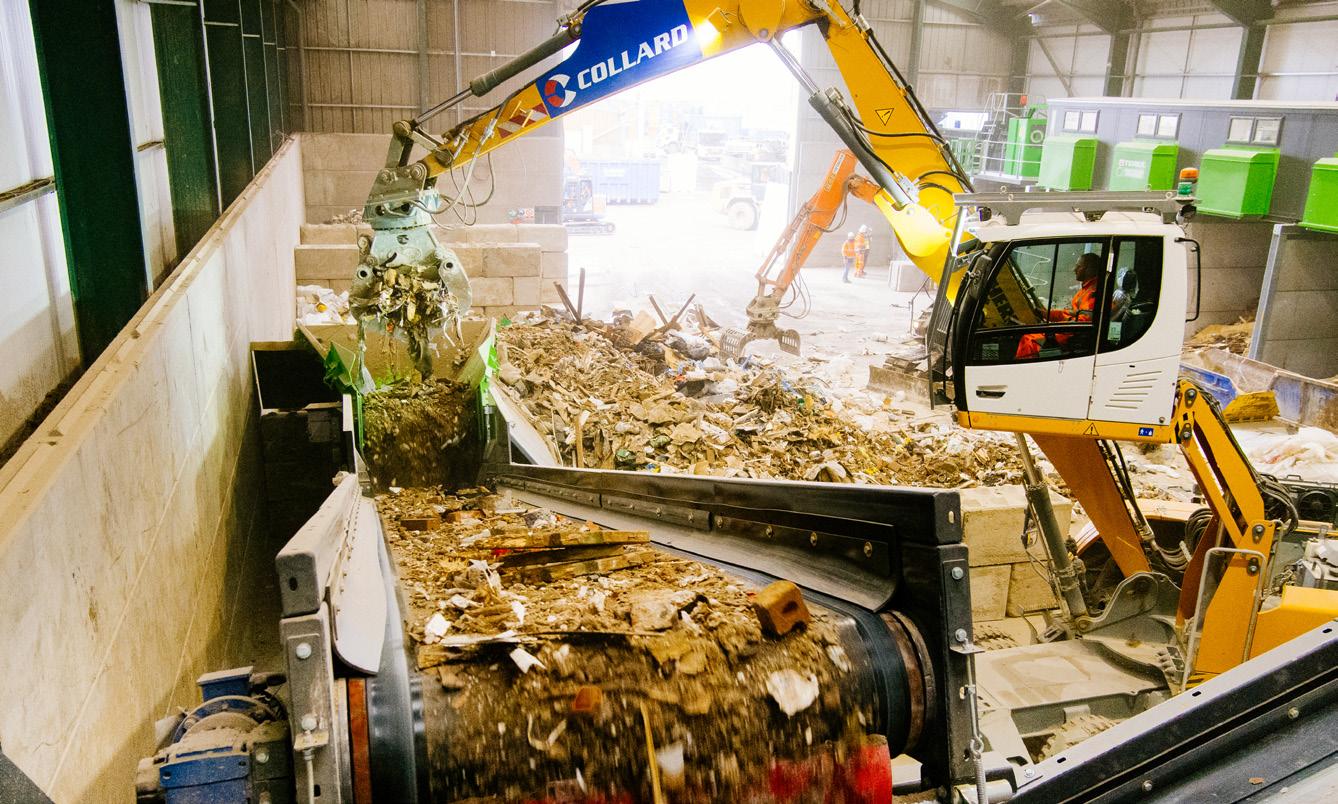
Founder and managing director of Collard Group, Robert Collard said: “Our brand new multi-million pound Terex recycling plant has given our Reading recycling centre a boost. The state-of-the-art facility is the result of months of work including building a significant extension to our existing materials recovery facility, doubling it in size to increase our processing capacity. It will help ensure we continue to process commercial, industrial, construction and demolition waste effectively; maximising our already industry-leading recovery and recycling rates.
“The plant is specifically tailored to meet our needs, including our site and the material we will be processing. The technology developed by Terex has incorporated advanced mechanical separation which will help us to achieve our goal of increased processing capacity and the ability to recover products of higher purity than before to divert even more from landfill.”

Over the last 30 years Collard Group has grown and diversified into one of the largest privately owned national demolition contractors and waste management businesses with more than 400 employees and turning over more than £70m.
Operating nine recycling centres across five counties, Collard processes over one million tonnes of waste per annum and

has recently taken a huge step forward in the processing of waste products in a bid to segregate and recover an even higher percentage of material.
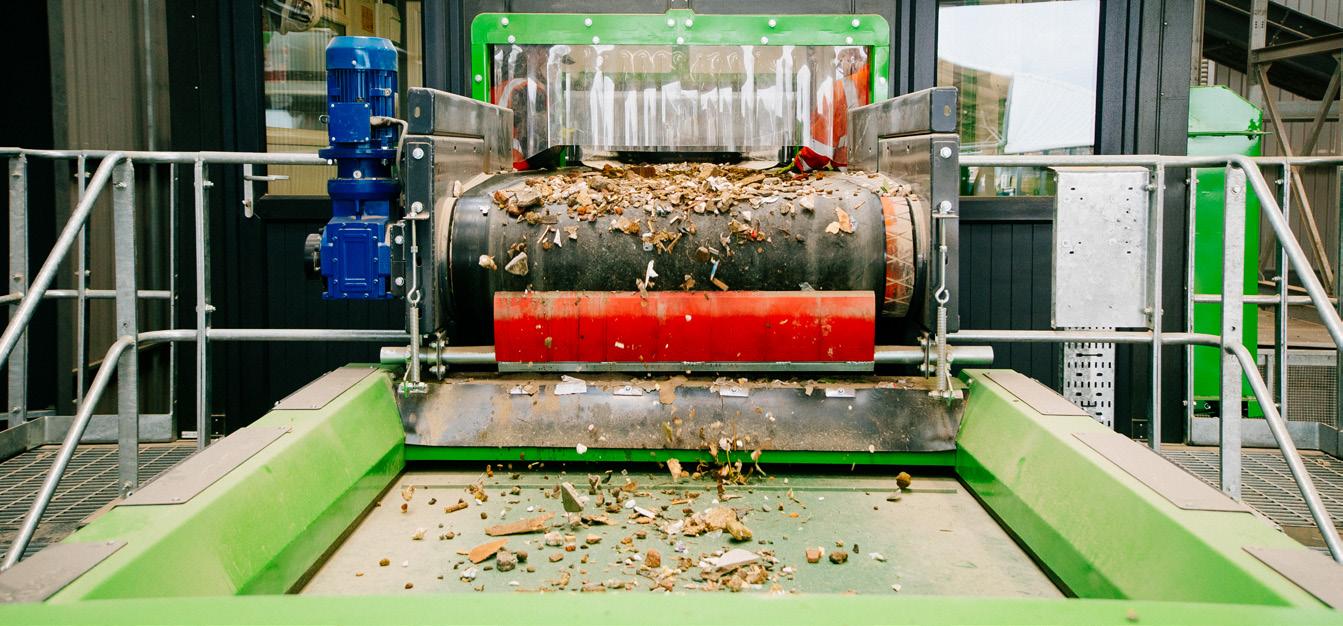
Collard’s Reading facility upgraded is a world-first waste processing plant sourced through Molson Green and manufactured by Terex Recycling Systems, designed to increase the ability to segregate materials in a faster, more efficient manner.
Lee Phelan has been Collard Group’s managing director for the waste and recycling division for the past six years and hails the installation of this plant as
a huge step forward for both the company and the wider environment. “We are great believers here at Collard in the circular economy and have a drive to deliver just that for ourselves, our customers and the wider environment. We have been recycling materials for over two decades, formally, in basic terms, but as technologies have advanced, we have invested heavily in these to ensure we consistently meet a 98% landfill diversion rate across the group.”
Pre-sorting of incoming material with a 13-t excavator and selector grab takes out
RECYCLING
demolitionhub.com 76 | DemolitionHUB Magazine
FEATURE
some of the larger items of waste before a dedicated material handler loads the plant with the remaining material. Then:
Skip material is loaded into the waste feeder, which is conveyed to a combi screen, separating it into four size fractions (including 0-10 mm, 10-50 mm, 50-100 mm and greater than 100 mm) using a combination of 3-D and flip-flow screening,
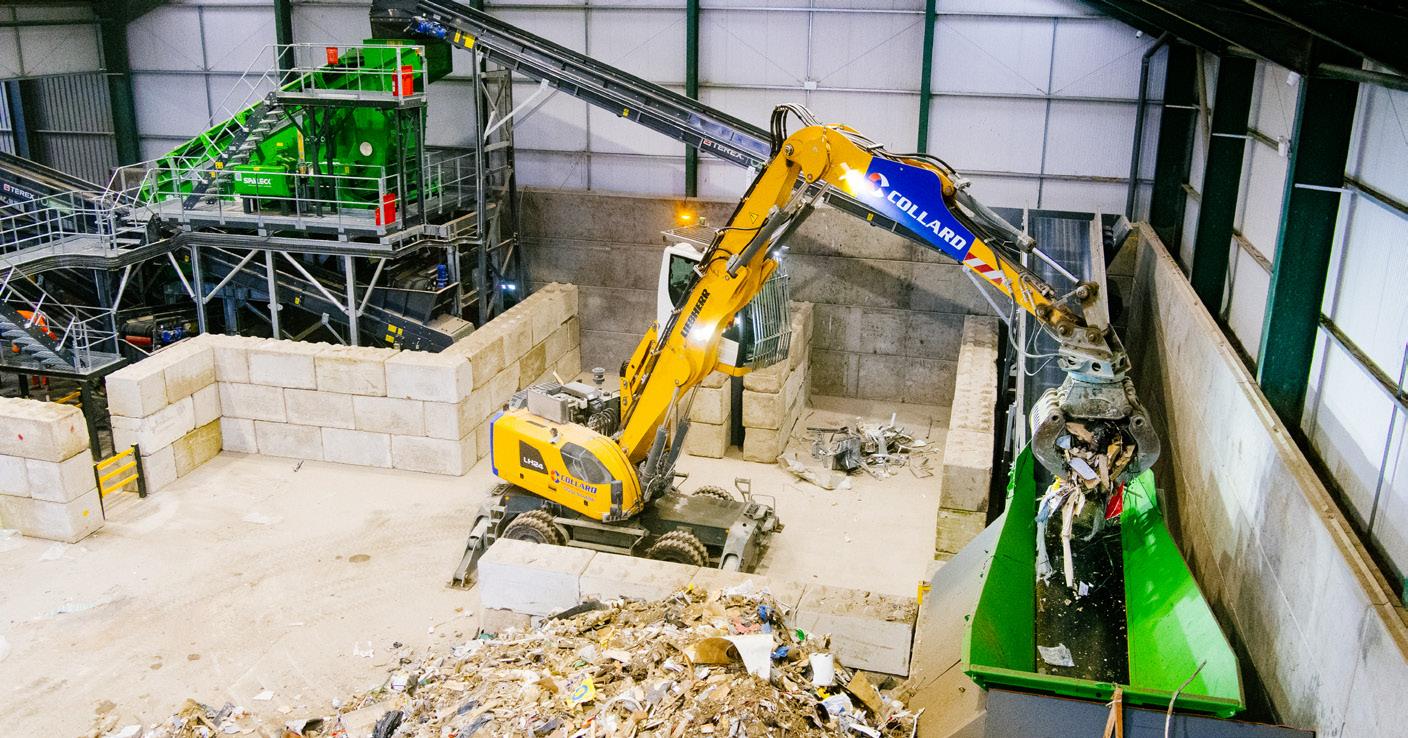
Over-band magnets recover any ferrous metals from the three smallest fractions,
At the same time air separators remove light material from the two medium sized fractions, 10-50 mm and 50-100 mm,
Two manual quality control picking stations ensure everything is separated as it should be, including one focusing on removing any remaining contaminants from the 10-100 mm heavy fraction,
Non-ferrous metal is removed using an eddy current separator on the 10-100 mm heavy fraction,
The second manual quality control picking station is at work with our team of operators recovering materials including wood, card and plastic from the +100 mm fraction, while the overband magnet recovers any ferrous metal.
Lastly, an air separator is used to remove light material from the +100 mm fraction.
The outcome is a highly efficient plant that is processing skip waste—a mixture of commercial and industrial (C&I) and construction and demolition (C&D) waste – to produce 0-10 mm fines, ferrous metals, clean 10-100 mm heavy fraction (inert), non-ferrous metals, wood, plastic, paper and card, and clean +100m heavy fraction (inert) materials.
The plant gives Collard up to 10 different end products, all of which
can be recycled further reducing the environmental impact of using new materials. Lee said: “We are using some of the heavy materials, once they are processed to add into our quality assured, BSI approved concrete. We have undertaken several projects where our demolition teams have cleared a site, the material has gone through our recycling process, creating high quality recycled aggregates, before it has gone back into the new development in our concrete.”
Other materials segregated by the plant are sent to a variety sites in the UK and abroad for final processing, ensuring Collard meets its desire to provide a circular economy for a wide range of different products. Not content with recycling more materials, the entire roof area catches rainwater and stores it ready for use in the misting systems used inside the building to ensure dust and smells are kept to a minimum.
The huge environmental impact on the waste produced from our daily lives is recorded by the team

at Collard, with detailed information collated and used to calculate the reduction in carbon impact their recycling operations are having on the areas in which they operate.
Robert Collard said: “We’re driven by a zero waste to landfill commitment so we’re always striving to take waste and process it to make it useful again and this new plant will help us do just that. Not only will it help us achieve our environmental goals, but the new plant will contribute towards helping us further improve our already industry-leading recycling rates.
“Terex Recycling Systems and Molson Green worked with us to ensure the design, delivery and installation of our new plant worked around our site operations, also taking into consideration our site preparation works that included foundations, building modifications and power supply. Close collaboration between all parties ensured our requirements in terms of output were met, while also keeping the plant footprint to a minimum to aid our site operations.”
demolitionhub.com DemolitionHUB Magazine | 77
RECYCLING FEATURE
RECYCLING FEATURE
£3m JCB investment fuels
EMR’s greener future

JCB has landed its biggest ever UK order for electric equipment after EMR, a global leader in sustainable materials, bought 50 electric Teletruk models, in a deal worth more than £3m.
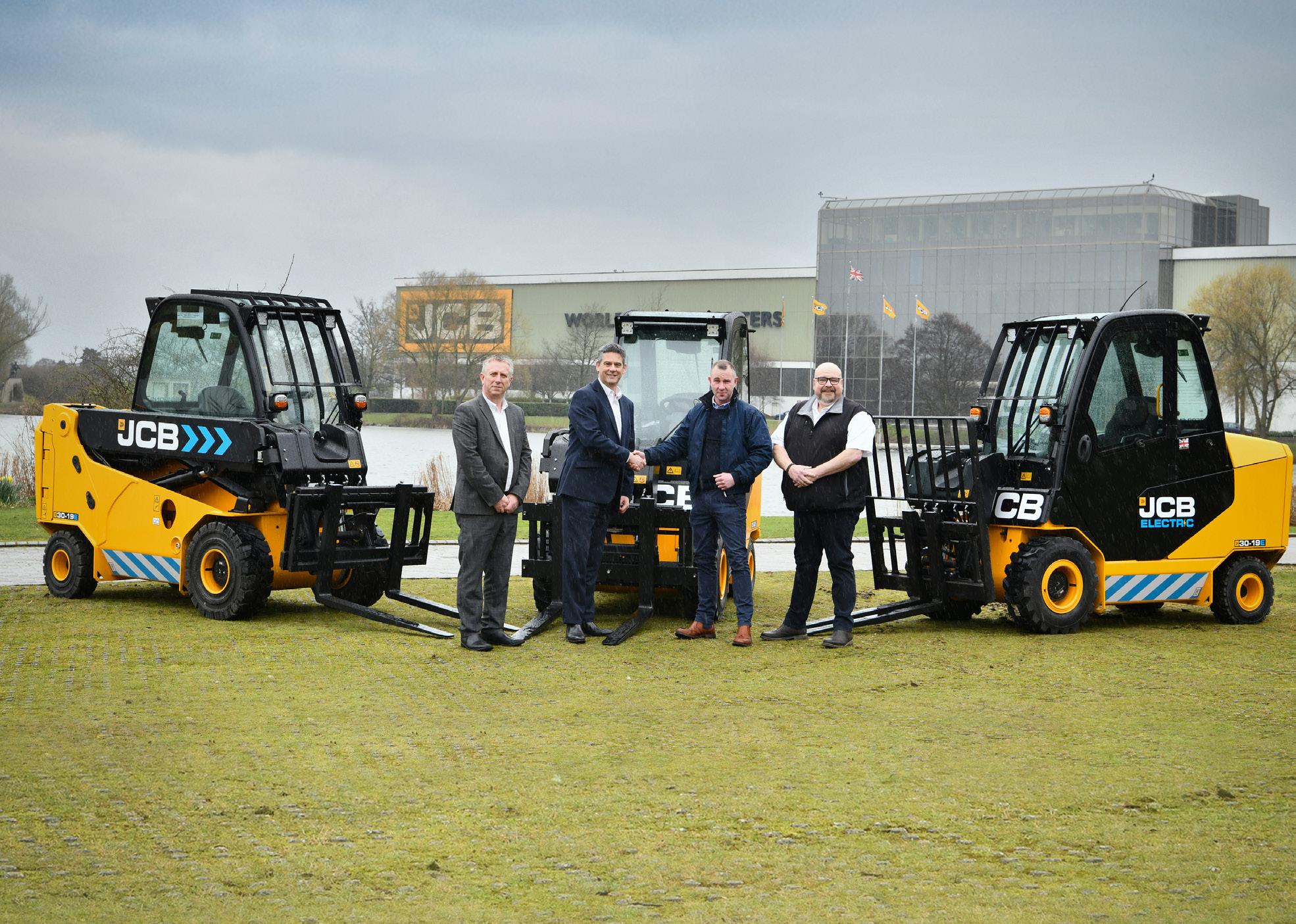
EMR recycles over eight million tonnes of metals and plastics each year – anything from an aircraft carrier to a can. It has purchased the fleet of JCB electric Teletruk models for handling non-ferrous metals and end-of-life vehicles, across its nationwide UK sites. Supplied by dealer Gunn JCB, they replace an existing fleet of competitive
diesel models.
EMR’s Regional Commercial Manager, Giles Mogg said: “We believe we have a key role to play to help protect our planet for future generations. The switch to JCB electric Teletruks is one of a number of significant steps we have taken to reduce the carbon intensity of our business, on our journey to be carbon net zero by 2040. They are fantastic, productive machines that will make a positive difference to our fleet.”
The JCB 30-19E and 35-22E electric Teletruks are part a

new generation of innovative products from the JCB E-TECH range of equipment, which deliver zero emissions at point of use without compromising performance. The forward reach electric forklifts feature a unique telescopic boom and are capable of a full eight-hour shift on a single charge. Their small turning circle and single side-loading capability make them more productive on materials handling work, inside and outdoors.
The 35-22E boasts a max lift capacity of 3,500 kg and max lift height of 4 m. At 2 m, lift capacity is 2,220 kg. The 30-19E model has a maximum lift capacity of 3,000 kg and max lift height of 4 m. Lift capacity is 1900 kg at 2 m.
demolitionhub.com 78 | DemolitionHUB Magazine
Left to right: JCB UK Sales Manager, Darren Brookes; JCB UK Sales Director, Steve Smith; EMR Regional Commercial Manager, Giles Mogg; and Gunn JCB Waste and Key Account Manager, Mark Slaymaker
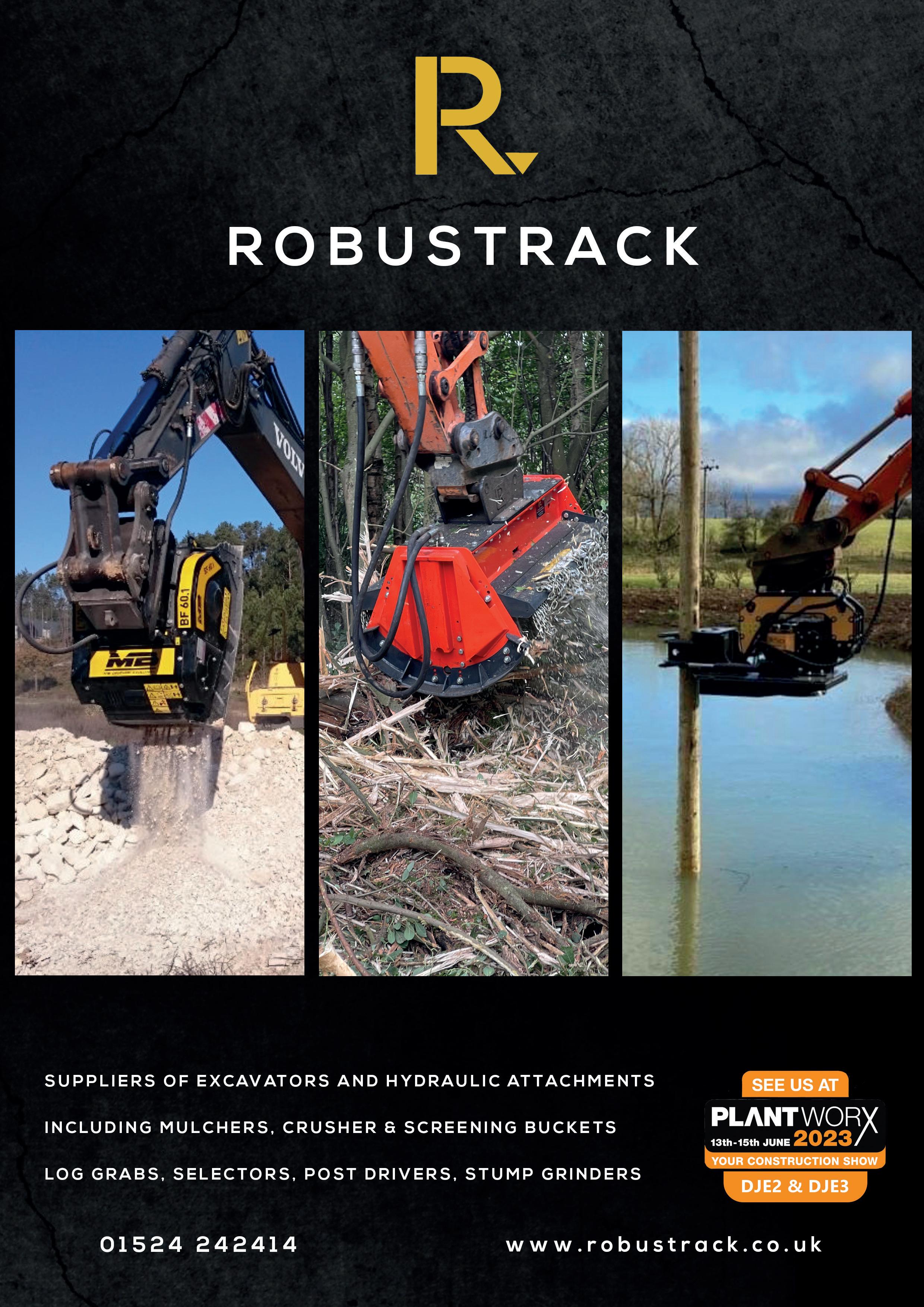
RECYCLING FEATURE
Company: Sims Metal


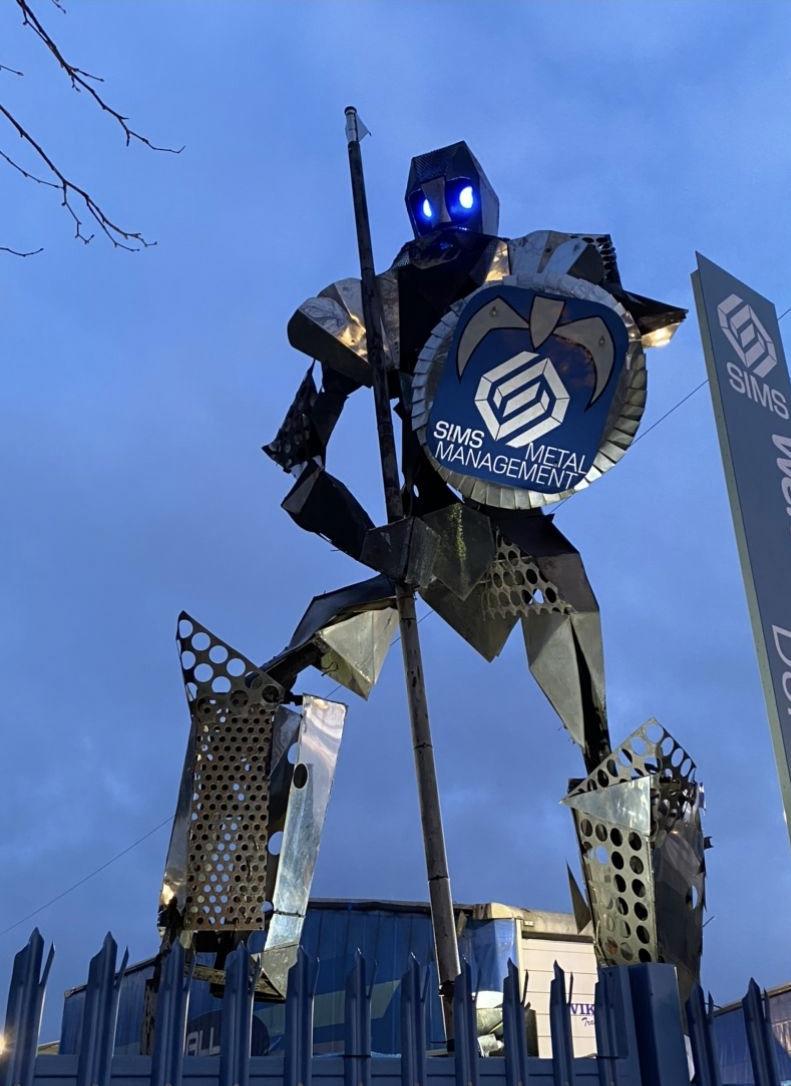
Turnover: £4.9bn
Geographic reach: UK, Australia, New Zealand and the US Sites: 28 in the UK, more than 260 processing facilities worldwide
Number of employees: More than 4,000 worldwide

Materials processed: In 2022 we recycled 8.1m tonnes of scrap metal
Established: 1917
Interviewee: Will Hodgson
Role: Demolition Contracts Manager
Experience: Seven years
Previous experience: 20 years in car manufacturing
QGive us some background on the company and its services
Sims Metal has been at the centre of the circular economy since 1917. We have grown to be one of the leading metal recyclers in Australia, New Zealand, the USA and the UK. We are 100% committed to sustainability and invest in state-of-the-art processing and recovery equipment that maximises metal recovery, diverting it from landfill. We are a division of Sims Limited, a world leading, publicly listed, metal and electronics recycling company with over 4,000 employees who operate from more than 250 facilities around the world.
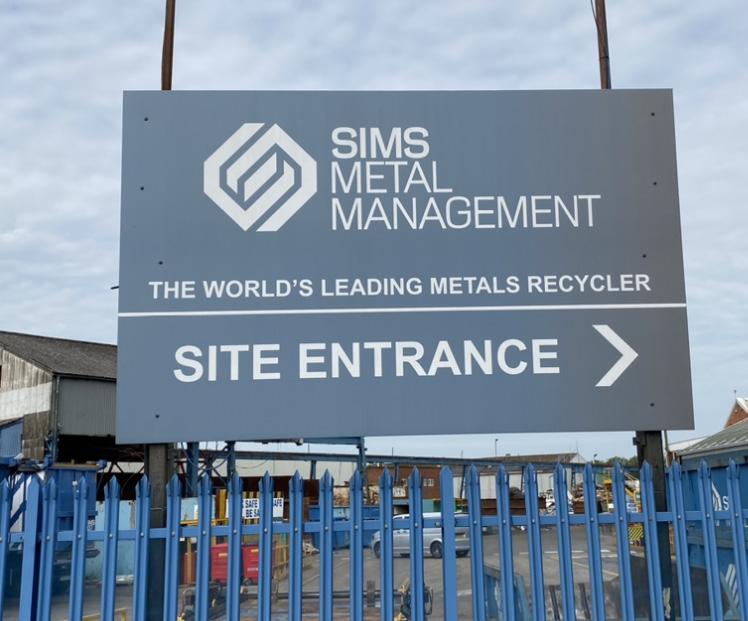
We buy and process ferrous and non-ferrous metal from businesses, other recyclers and the general public. Thanks to our 106 years of experience in metal recycling, we can offer competitive prices and high metal recovery rates.
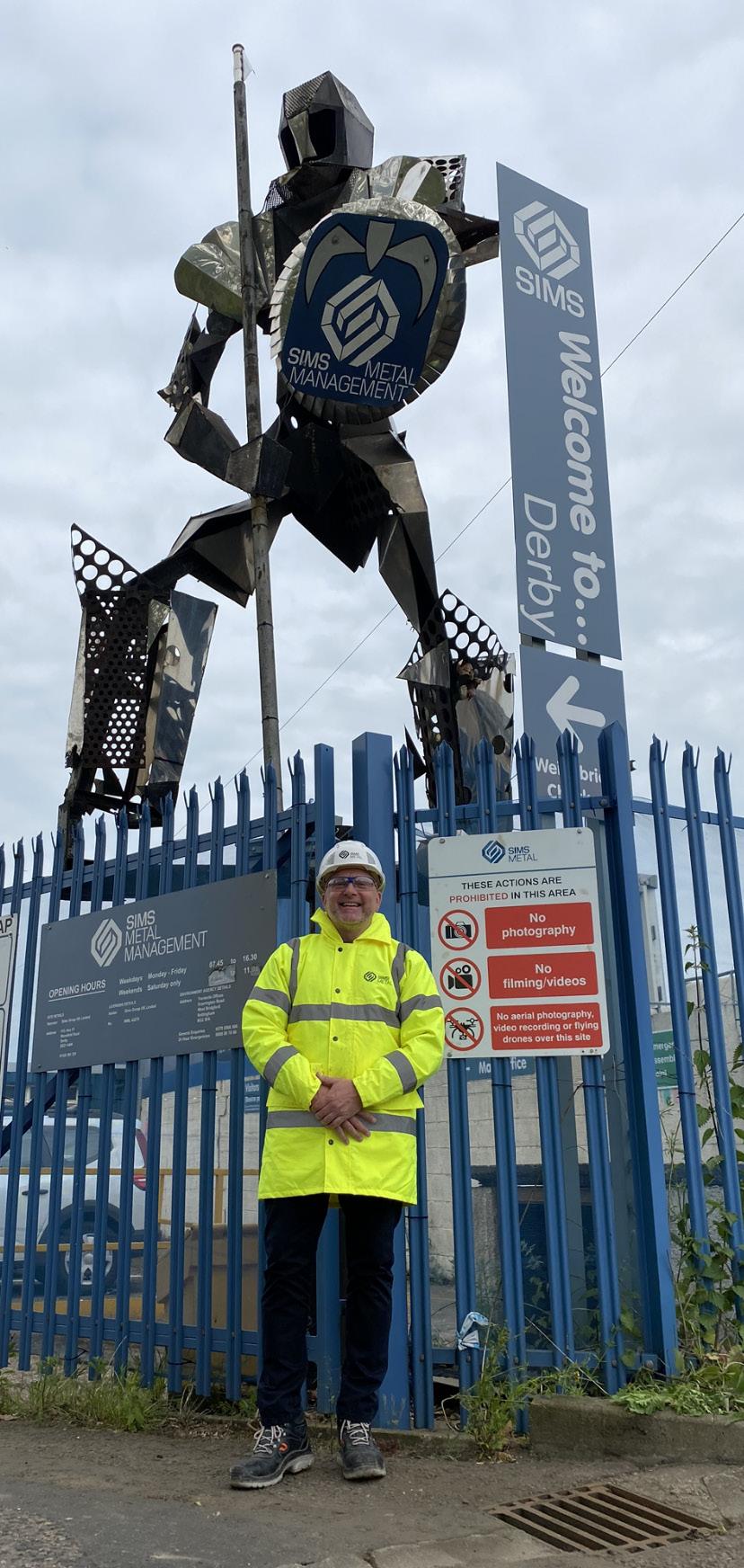
demolitionhub.com 80 | DemolitionHUB Magazine

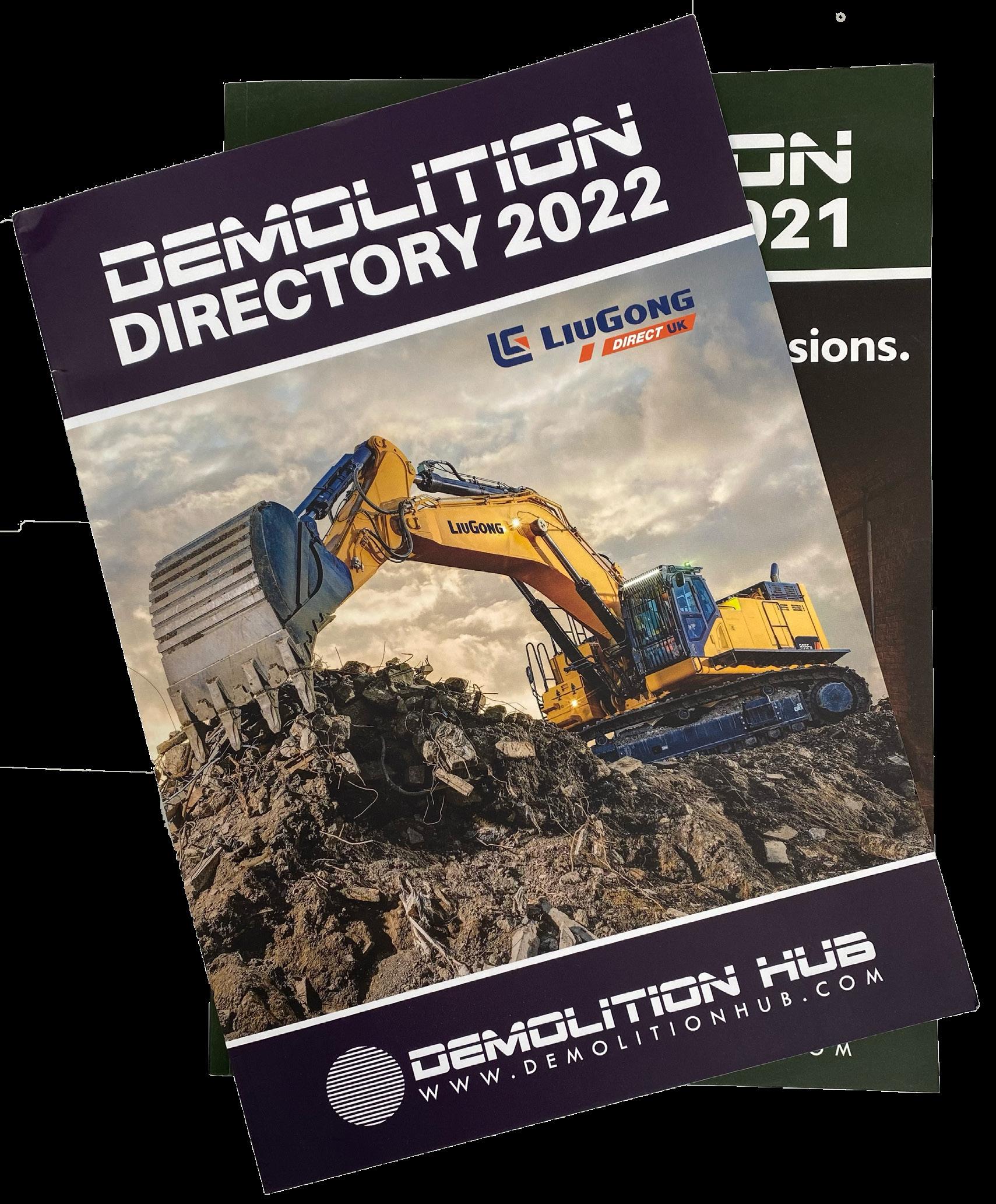
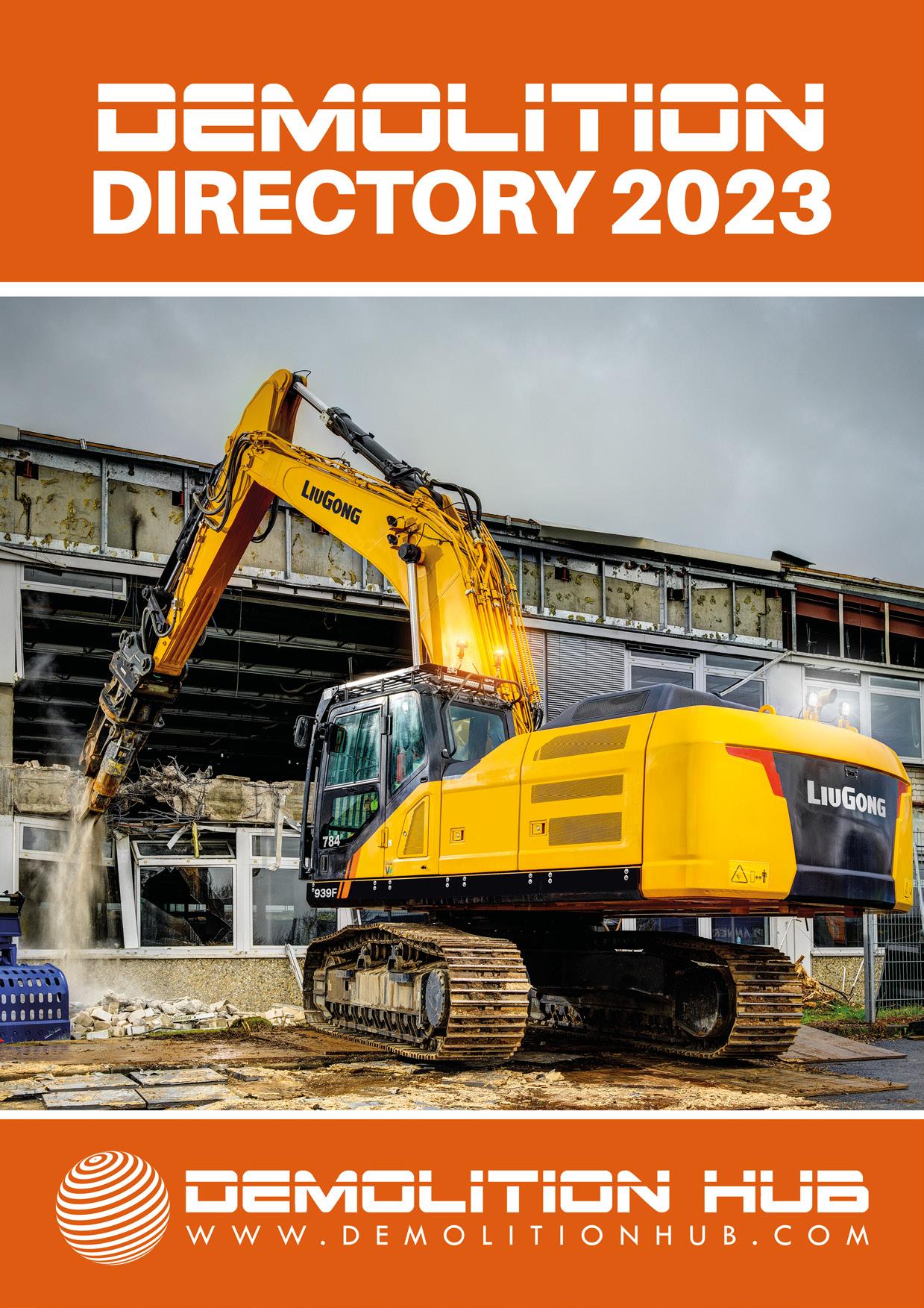
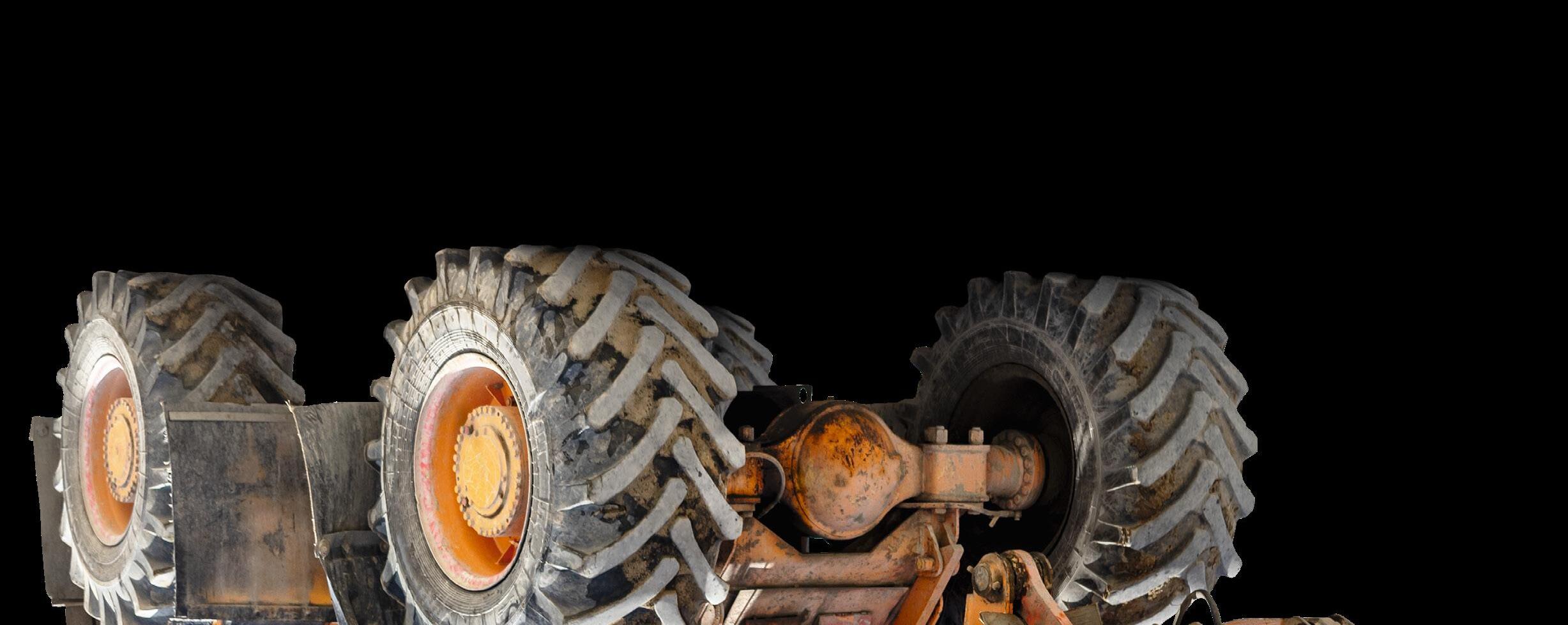
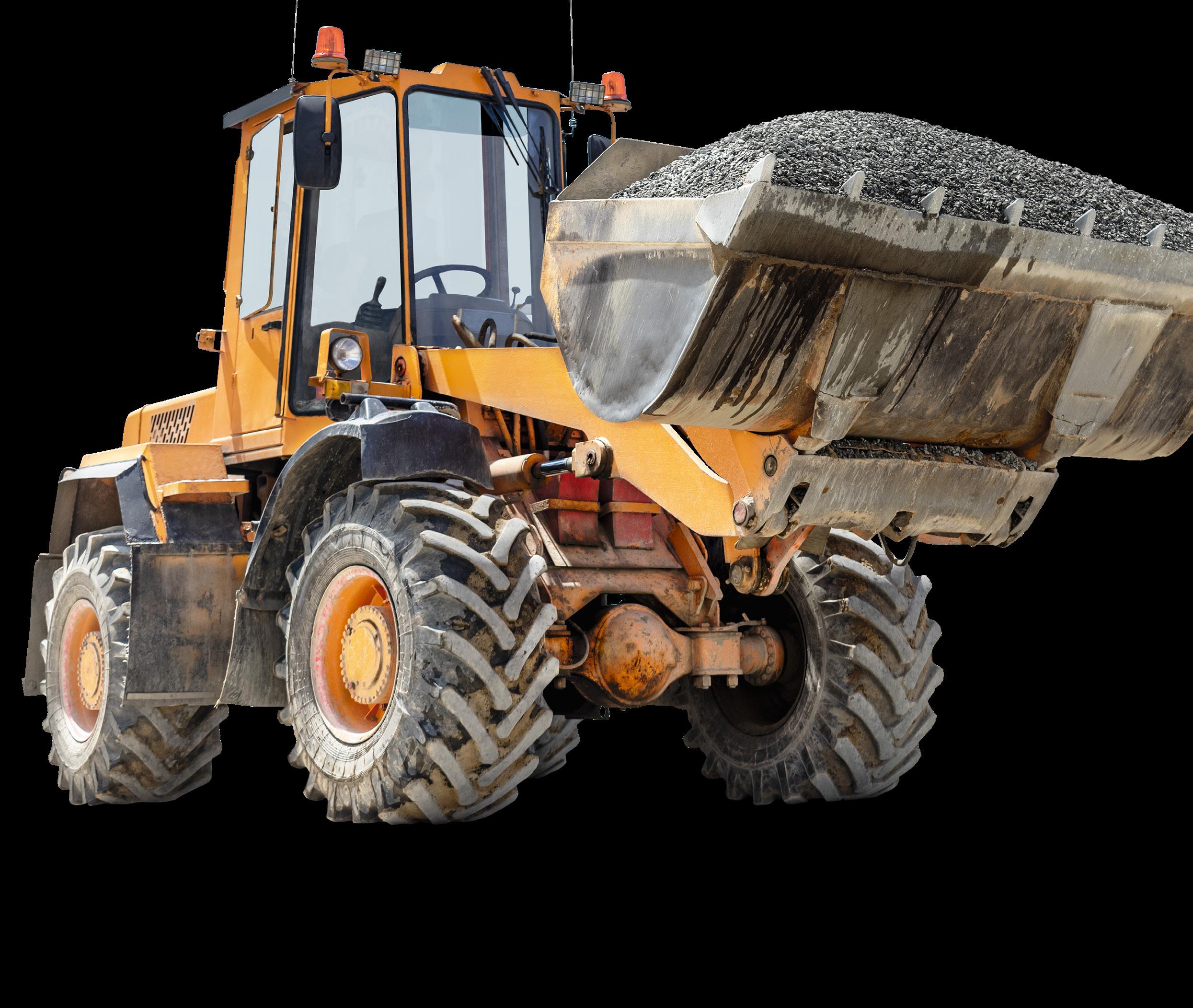

DEMOLITION DIRECTORY 2024 BOOK YOUR PLACE NOW Contact demolition@globalnews.media for Information and book your place
Company: Donald Ward Limited, trading as Ward
Geographic reach: Nationwide
Number of sites: 11
Number of employees: 450+
Turnover: £300m
Materials processed: Metals, end-of-life vehicles, hazardous waste, business and commercial waste, construction and demolition waste, aggregates, soils
Established: 1940 in Woodville as Donald Ward and incorporated as Donald Ward Limited in 1976
Interviewee: David Ward Jnr

Role: Commercial Director

Time in role: 20 years
QGive us some background on the company and its services
Ward is a fourth-generation family-run business that collects, processes and recycles metal, which is sold on to a global market. The business also offers a complete waste recycling package to customers on a national basis.
We process over 1m tonnes of materials annually; recycling products such as ferrous and

non-ferrous metals, plastics, glass, cardboard, wood, textiles, soils and hardcore as well as hazardous wastes to ensure our customers, including householders, local authorities, construction and demolition businesses, fulfil their environmental regulations and commitments. Our core business (around 80% of turnover) is the processing and recycling of metals from a variety of sources, including demolition projects.
QExplain the business model and how you work with demolition contractors to mutual advantage
As a business, we have dealt with demolition contractors for decades and from a personal point of view, I’ve made demolition one of my core focuses, championing their requirements to expand the services that we offer. Whether that be deploying our large modern FORS Gold accredited fleet to make timely collections of the expanding tonnages we have secured over the last few years, through to further enhancing our in-house hazardous waste offering so that we can genuinely say we can deal with pretty much every waste found on a demolition site.
We operate in a very collaborative way with contractors and often look for enhancements on standard practices to the mutual gain of both our businesses. When we can visit sites and price all materials coming from those sites directly, it not only has the benefit of that contractor getting competitive pricing across all material streams, but it also simplifies the process as there is only one contact to deal with.
QWhat particular experience or capabilities give you the edge?
We have experience of working in many different demolition and decommissioning environments with contractors we partner with. It may be the case that a particular contractor is working in a new environment to them, perhaps a waste stream from a nuclear facility or the need to remove materials from an inner-city area
demolitionhub.com 82 | DemolitionHUB Magazine
RECYCLING FEATURE
with restricted access. We draw on previous experience to advise and assist where we can or suggest alternative ways of removing materials that can save time or money and often both.


I also believe that this business excels in times when other may struggle, moving high volumes of materials in challenging conditions and timeframes. We moved 16,000 tonnes of sheet asbestos within 16 weeks, which allowed the contractors savings in the project programme overall and meant that labour and plant costs allocated to that work were dramatically reduced.
We do also try and offer up our own plant and labour to projects if needed. This allows our partners to focus on their primary role as demolition contractors and we can handle the other waste. We have loaded materials out from site or received materials as buildings or structures are being demolished and processed them
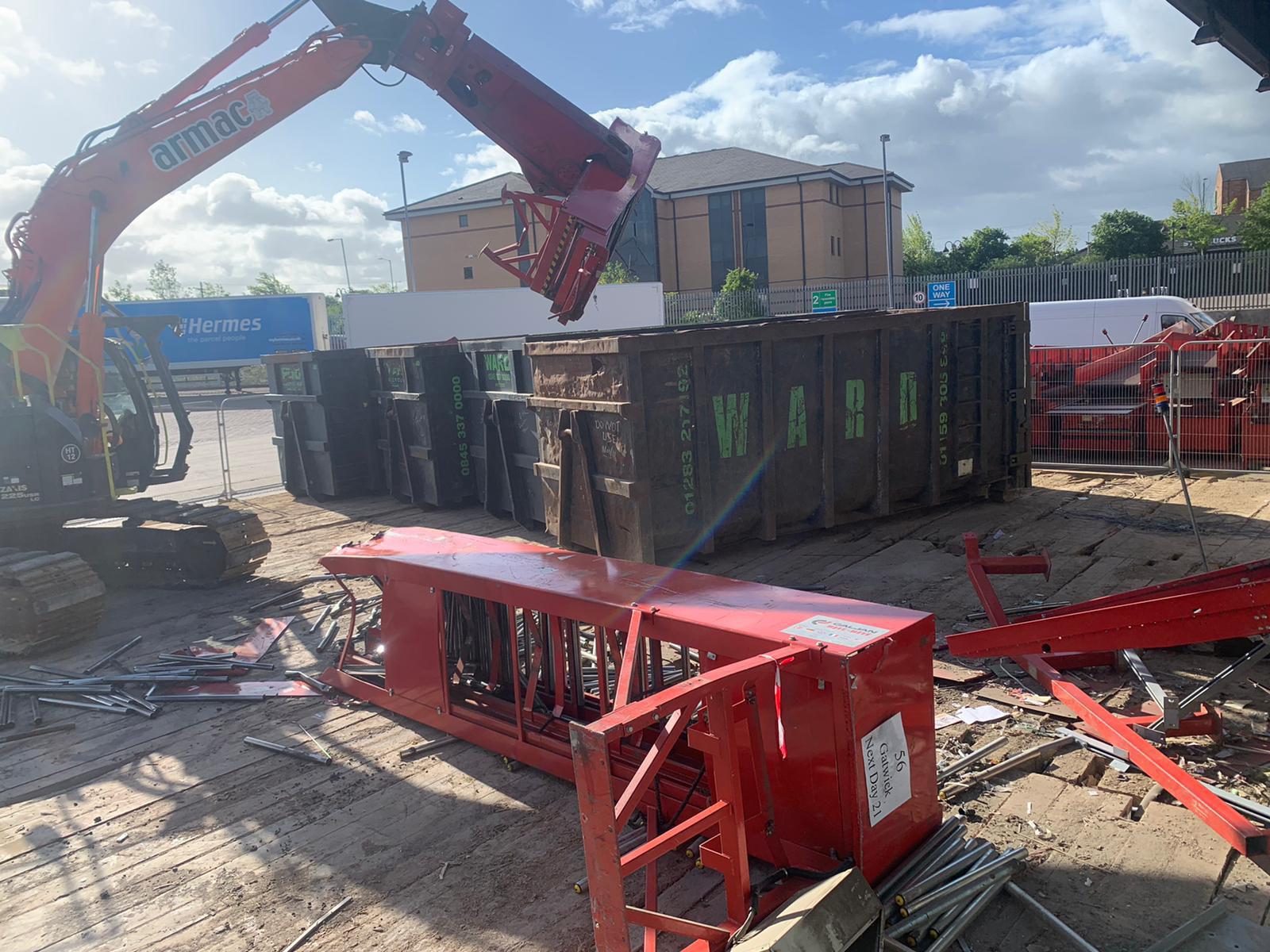
on site alongside the contractor. By the same token we also look to use contractors to assist us if we need plant or machinery on non-demolition projects and they have resource available that would ordinarily be a cost to that business.
One of the largest advantages we have is that I try and spend as much time as possible in the
demolitionhub.com DemolitionHUB Magazine | 83
RECYCLING FEATURE
demolition world. This means that generally we can make decisions that contractors need quickly and effectively.
We have some excellent key members of staff in the team who forge long lasting relationships with contractors, the value of which can’t be overlooked. Because of the strong relationships we have built, when there is something technical to look at or challenges to work through, we discuss it and they can be sure we are doing our very best for them.
QWhat certifications or accreditations do you have?
Our business is committed to high-quality and compliant services for all our customers.
We are an upper-tier licensed waste carrier, licensed scrap metal dealer and have the necessary environmental permits to transport and process waste across our multiple sites. We work hard to maintain all the relevant certifications and accreditations to be able to operate in almost all areas where demolition contractors are working.
As a company we are ISO accredited, are an Authorised Treatment Facility for licenced

waste handling and DVLA approved Depollution Centre for end-of-life vehicles. As a Board we also have active and longstanding relationships with the National Federation of Demolition Contractors (NFDC), the British Metal Recycling Association (BMRA), European Recycling Industries’ Confederation (EuRIC), the BIR (Bureau of International Recycling), ARCA, East Midlands Rail Forum, the CIWM and the Institute of Directors. In 2022, we were proud to be presented with Queen’s Award for Excellence in International Trade, specifically for our outstanding growth in overseas metal sales over the past three years.
The added benefit I have now, which sits alongside those certifications, is 20 years of experience across many projects and how we have dealt with those wastes and those challenges. As many contractors will vouch for, sometimes that experience can outweigh certifications.
QWhat is the biggest growth area for you?
We are currently installing a new waste recycling plant in the Midlands. This is a significant investment for the business, and it
will be one of the largest and most technologically advanced plants in the country.
Scrap metal has had big investments over the last 10 years in equipment and new upgraded sites, so it’s good to be able to make this additional investment to ensure that we can offer up-tothe-minute routes for other waste materials that will ensure that almost no residual materials are going into landfill.
We’re also looking at making the plant carbon neutral to again ensure that demolition contractors can demonstrate to their clients that they are trying to reduce their carbon footprint by working with us, as well as recycling their waste effectively and responsibly.
I think there is a growing awareness of the need for carbon reduction measures throughout the construction and demolition cycle; we are already seeing environmental, sustainable and governance provisions as a major element within tenders and think we will see this rapidly increase over the coming years.
As a business we are always trying to ensure that we stay at the forefront of those conversations and are making our own strides with energy efficiency internally as part of our Pledge to Net Zero. So, by partnering with us, contractors know they are working with a business that has all of these matters in hand.

QAre there any other ways in which you see the industry environment changing?
There has been big change already since when I started in the business 20 years ago, when a contractor would not necessarily segregate many of the waste
RECYCLING FEATURE demolitionhub.com 84 | DemolitionHUB Magazine
“Ward is a fourth-generation family-run business that collects, processes and recycles metal, which is sold on to a global market. The business also offers a complete waste recycling package to customers on a national basis”
streams and you didn’t have much involvement in a project at all other than collecting materials.
These days we have a much greater involvement on a sitebased level through plant and labour, as well as reviewing projects prior to them taking place. I’ve always requested that we are involved in projects at the earliest opportunity and now we are working with contractors in their bidding process and putting forward some of our thoughts and experiences to help them win business, which is something I see as only increasing.
A rising number of materials being scrutinised and regulated is inevitable. We already have had plasterboard needing to be removed from mixed waste streams, Waste Electronic and Electrical Equipment (WEEE) regulations, legislative changes in wood classification and studies into the effects of dusts, all of which we are able to advise contractors on.
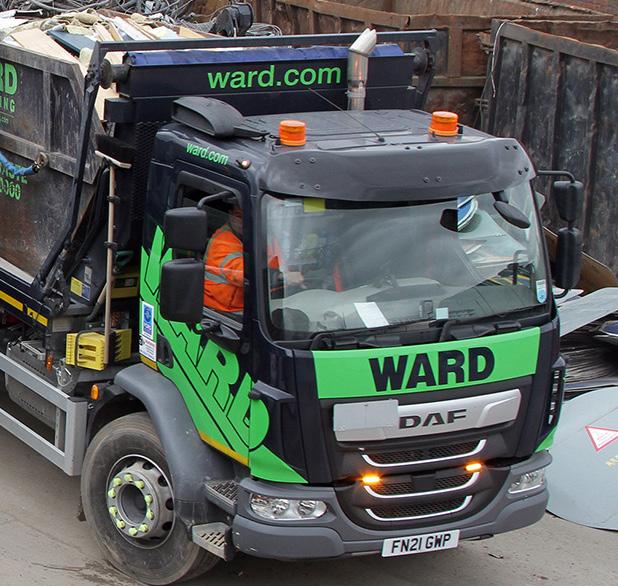
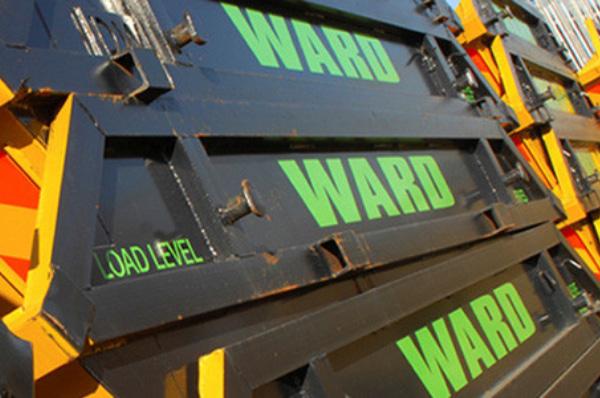
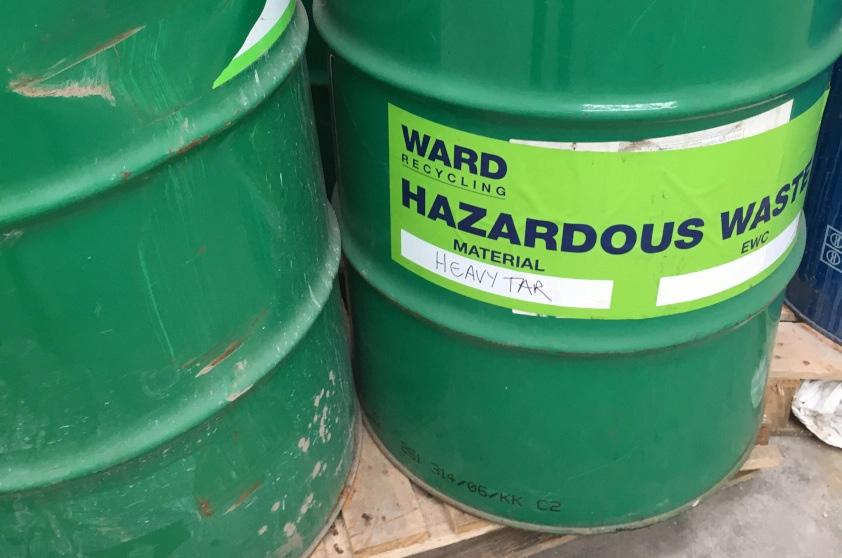

QDemolition already has a very high rate of reuse and recycling. What further challenges and opportunities do you see in terms of sustainability?
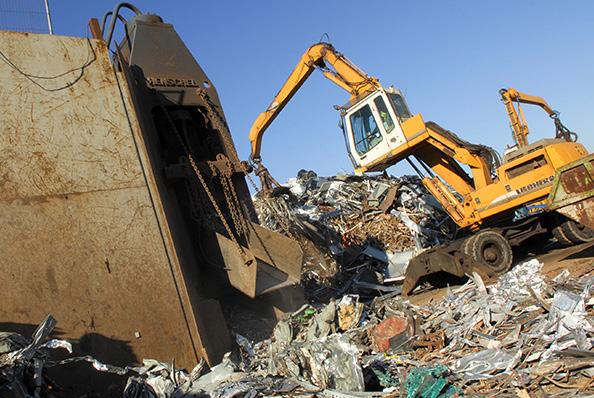

I do also think there will be a greater requirement to reuse
materials, not just steel but other components of buildings and structures and we are working in these areas. We have a steel reuse offering, which we are enhancing but also contractors will need to take a bigger consideration of the benefits of the reuse of steel from projects. There has always been a carrot there for considering the reuse of materials such as structural steel in buildings or pipes, but there will be a bigger stick from main contractors over the next 12 months which will change the landscape on some of these projects.
QDo you have any particular ongoing relationships or clients?
Recently, we have had exposure to some of the largest projects the business has worked on to date in the power and industrial sector and we hope to continue with these and additional contractors on future sites. Similarly, with technological developments in renewable energy, we see upcoming works in the decommissioning of assets such as wind turbines and solar sites as possible new avenues to explore with contractors as this may well be a new area of business for both of us.
demolitionhub.com DemolitionHUB Magazine | 85
RECYCLING FEATURE
Company: Powerday PLC
Geographic reach: National
Number of sites: Six
Number of employees: 240
Turnover: £60m
Materials processed: All construction and demolition wastes, commercial and industrial, municipal Established: 1977
Interviewee: Anthony Davitt
Role: Sales Director

Time in role: Three years
Relevant previous experience: Sales and business development roles at Powerday since 2009



QGive us some background on Powerday and its services
Powerday is an independent family business providing responsible recycling and waste management services to help clients manage their resources sustainably. A market leader in the construction and demolition sectors, we operate six sites across London and deliver national solutions across the UK. Operating for over 50 years, we are proud of our role in helping reduce the environmental impact of the UK’s waste and of using our sustained growth to support our local communities.
QExplain the business model and how you work with demolition contractors to mutual advantage
Our market-leading services are designed to help the demolition industry divert 100% from landfill and move waste off site as quickly as possible so as not to impede dismantling and demolition work. We work closely
with our clients to deal with their waste safely, efficiently and compliantly delivering financially, environmentally and socially sustainable solutions.
We offer complete services for all waste streams with on and off-site segregation enabling us to provide the best solution for individual sites. We operate the largest materials recycling facilities in southern England, investing heavily to recycle as much as possible with the remainder of the waste processed as refuse derived fuel. This enables us to provide 100% recovery of nonhazardous waste to all our clients. We run a well-maintained, tracked fleet of over 90 Euro 6 and ULEZ compliant vehicles, working across the capital and beyond, seven days a week, ensuring services can be provided to suit clients’ needs.
We know that demolition companies require prompt access to waste tonnages and duty of
care documentation. We also recognise the pressure on the demolition industry to recycle as much as possible and understand the importance of quality recycling performance data to evidence achievements. We support our demolition clients with access to real time information through our client portal, enabling them to provide accurate and timely data to end client when required and support BREEAM rating assessments.
QWhat particular experience or capabilities give you the edge?
Despite working with many hard-to-recycle materials, we are heavily focused on maximising recycling. We make the best use of the resources we receive, and invest significantly in our team, our plant and our relationships to continually maintain state-ofthe art material processing and source innovative outlets to move
demolitionhub.com 86 | DemolitionHUB Magazine
materials up the waste hierarchy, and into closed loop, circular solutions.
We are one of the UK’s biggest private producers of refuse derived fuels (RDF), which are supplied to energy-from-waste plants across the UK and Europe. Our consistent, high-quality RDF is in in strong demand and we maintain stable outlets to ensure that our significant volumes are put to most efficient use in the generation of both heat and power.
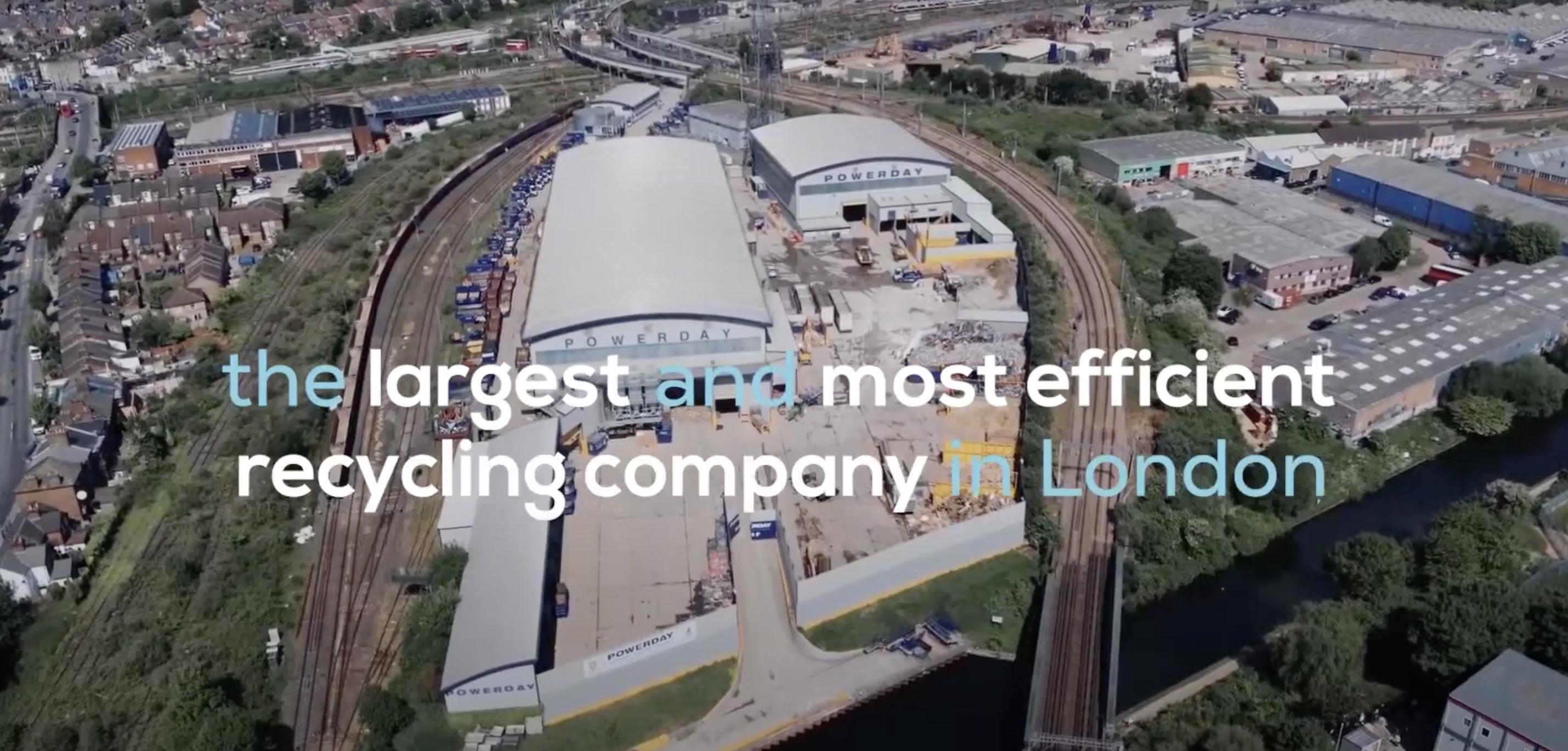
Our recycling reporting data is externally verified through the PAS 402 recycling performance reporting accreditation standard. We were the first company in England to obtain PAS402 and, recognising the importance of this in enabling our clients to manage their resources sustainably, work hard to remain at the forefront of reporting.
While value for money and quality of service delivery remain key to our demolition clients, we believe our approach to both environmental
and social sustainability give us an even bigger edge. Last year we set a net zero target for Scope 1 and 2 emissions by 2040 against a 2021 baseline. We are working to reduce these emissions in line with our roadmap and to set a similarly robust and ambitious target for our Scope 3 emissions as soon as possible. While we are focused on fully decarbonising our fleet in the longer term, we are keen to help our clients reduce their carbon emissions in the short-term and offset our unavoidable fleet emissions to run a carbon neutral fleet. Our MRFs run on renewable electricity and our company cars are all electric.
Our long-standing ethos of giving back ensures our work in the community is as important as our core business, and we are driven to generate wider social value. We believe strongly that the lives of disadvantaged young Londoners can be improved through sport and opportunity and run extensive
programmes to contribute towards this. Powerday Foundation and our partners delivered activities to over 3,000 young Londoners last year and secured over £300,000 in funding and subsidies, which has enabled us to deliver new and improved facilities for London Boxing clubs and the communities that benefit from them. We use our extensive experience, relationships and programmes to enable our clients to more easily have a positive impact on social value, as well as ourselves.
QWhat certifications or accreditations do you have?
We have many certifications and accreditations that reflect our high standards across the board. We are certified by all the mainstream industry quality and health and safety standards, including Achilles and Safe Contractor, and by many transport schemes, including Gold FORS and CLOCS. We are certified to compliance standards, ISO 14001

RECYCLING FEATURE demolitionhub.com DemolitionHUB Magazine | 87
environmental management, ISO 9001 quality management and ISO 45001 health and safety management. With sustainability at the heart of our business, we are also certified a Gold member of Supply Chain Sustainability School. Our fleet is verified carbon neutral by Carbon Footprint Ltd and our net zero target is registered with SME Climate Hub.
QWhat is the biggest growth area for you?
We believe that the biggest growth area for both us and the demolition industry is sustainability – see above for more info about sustainability and us, below for more details about sustainability and the demolition sector.
QAre there any other ways in which you see the industry environment changing?
We believe that any future developments will need to be sustainable, and that climate change and other environmental challenges such as pollution and biodiversity will be at the heart of all changes.

QDemolition already has a very high rate of reuse and recycling. What further challenges and opportunities do you see in terms of sustainability?
Zero waste – there will be increasing pressure for continual improvement and progress towards zero waste and keeping materials in the circular economy. For an industry that already has high rates of reuse and recycling, this presents a harder ask that for

an industry that has a long way to go and many “low hanging fruit” to pick. Modular design and other construction innovations will facilitate further reuse.
Evolving materials – we expect to see more and more innovative, novel materials coming onstream as the built environment, as a whole, looks to decarbonise. It will obviously be a few years yet but the demolition sector will potentially see a wider range of materials and face challenges as to how they dismantle and recycle/reuse these.
Decarbonisation – we all need to be playing our part in tackling the climate emergency, by setting net zero targets and decarbonising our businesses. Increasing regulations, end client’s targets, societal expectations, employee demands and other pressures will ensure that the demolition industry is not immune to this. It will be a real challenge for the industry to decarbonise fleet, plant and their value chains.
Wider social good – all industries are facing an increased expectation to have a wider social good. Through high recycling and reuse rates, demolition
companies already provide social value. But as a business well established in this area, we would anticipate society expecting more and clients therefore making more challenging asks of demolition companies.
QDo you have any particular ongoing relationships or clients?
We have longstanding relationships with a number of demolition clients including Keltbray. We provide recycling and waste management services for all Keltbray sites, across London and throughout the country through our national solutions. We deliver 100% diversion from landfill for all Keltbray’s non-hazardous waste in line with its environmental policy, and in 2022 delivered an overall recycling rate of 63% for it. In 2022, we partnered with Keltbray to sponsor the first Down’s syndrome swimming championships, as part of our programme to increase sports participation amongst those with disabilities. We have since both signed up to provide five years of support to enable the championships to continue.
RECYCLING FEATURE demolitionhub.com 88 | DemolitionHUB Magazine
“We believe that any future developments will need to be sustainable, and that climate change and other environmental challenges such as pollution and biodiversity will be at the heart of all changes”
A software platform developed specifically for Asbestos Abatement, Demolition & Subcontractors


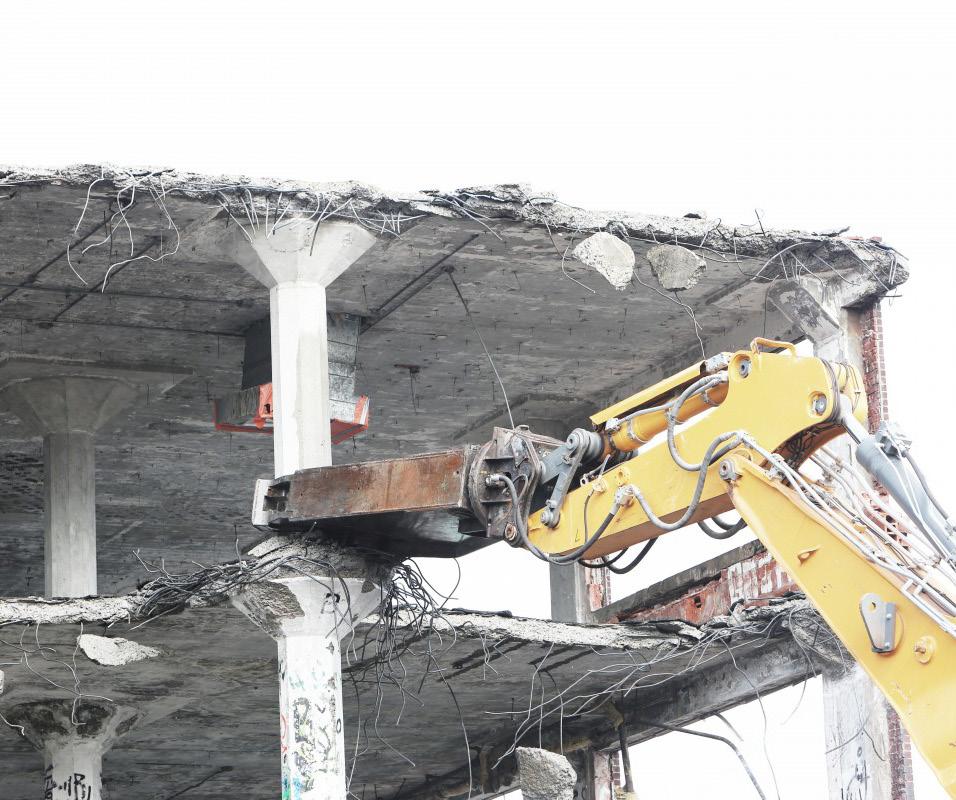
FieldFlō is a comprehensive asbestos abatement, demolition and subcontractor platform helping companies run their business from a single interface. With our list of automated features you are able to track your projects and assets in real time.
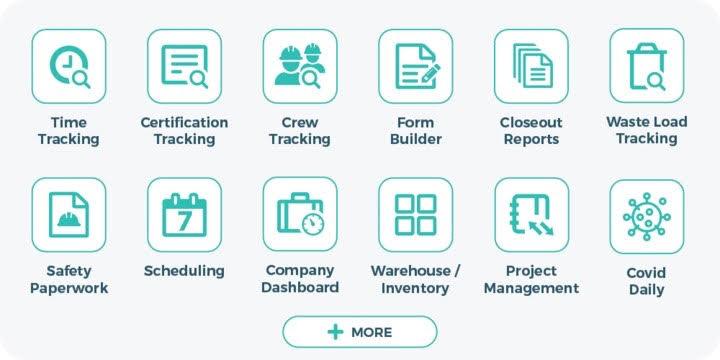

www.FieldFlo.com


FEATURE
Powerday sets ambitious sustainability targets
Powerday, London’s leading waste management and recycling provider, has set out its latest sustainability targets in its Sustainability and Wellness Manifesto for 2023.

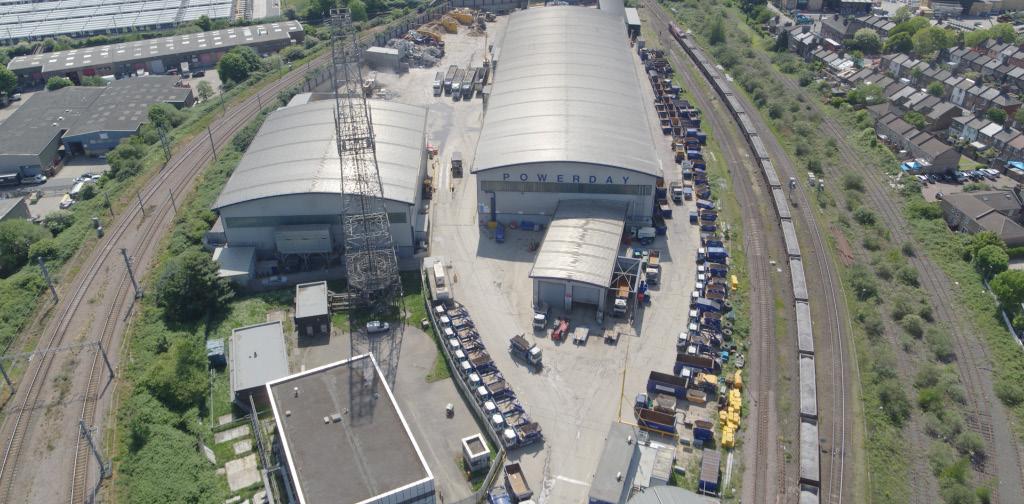
The manifesto sets out clear objectives under Powerday’s five pillars –employees, communities, carbon management, clients, and procurement. It also plots Powerday’s roadmap to net zero, in line with its recently announced net zero target for Scopes 1 and 2.
The company has made progress against its carbon management pillar, not only in the setting of its net zero target but in the carbon reduction measures it has taken to date.

With the support of its many
partners, Powerday delivered activities to over 3,000 young Londoners last year, exceeding its target by 20% in the second year of its five-year strategy. You can read more about these achievements in the report.
Michael Crossan, Chairman of Powerday said: “I am hugely proud of what Powerday has achieved in 2022 in collaboration with our employees, clients, suppliers, communities and other partners. I am confident that together our continued efforts will enable us to deliver against our new sustainability commitments and have a positive impact on both people and the planet.”
Edward Crossan, CEO said: “There remains much to do to

meet our sustainability goals, so we are excited to continue our journey with challenging targets across all our five pillars for 2023. We have a particular focus on fairness in the workplace and community, training and development, net zero carbon, and the health and wellbeing of young Londoners, and look forward to updating you on all our progress in the year ahead.”
Powerday published its first manifesto in 2020 and has done so annually since then to track its progress towards its ambitions. The freely available report addresses the company’s sustainability priorities under our five pillars, sharing progress against the previous year’s plan and setting out objectives for the coming year.
https://powerday.co.uk/ uploads/flippingbooks/ manifesto/2023/
RECYCLING
demolitionhub.com 90 | DemolitionHUB Magazine
In a league of your own
There’s nothing like watching a master at work — through years of dedication your tools become an extension of your hands. With bold vision and the right equipment, you turn every job into a masterpiece.

NOTICE: ALWAYS FOLLOW WARNINGS AND INSTRUCTIONS PROVIDED BY THE MANUFACTURER.
RECYCLING FEATURE
Company: TotalWM
Geographic reach: The south, south-east, Midlands and the M4 corridor to Bristol/Newport
Location of sites: Basildon, Essex (HQ); Epping, North London; Hockley, Birmingham; Halesfield, Telford

Number of employees: 75

Turnover: £85m
Materials processed: All types of ferrous and non-ferrous metals, ELVs, general/residual waste, mixed recyclates, wood and WEEE. When established: Total Waste Management was established in 2007, although our history can be traced back to 1950s when Albert Widdowson, my grandfather, purchased G.D. Metal company and opened his first yard.
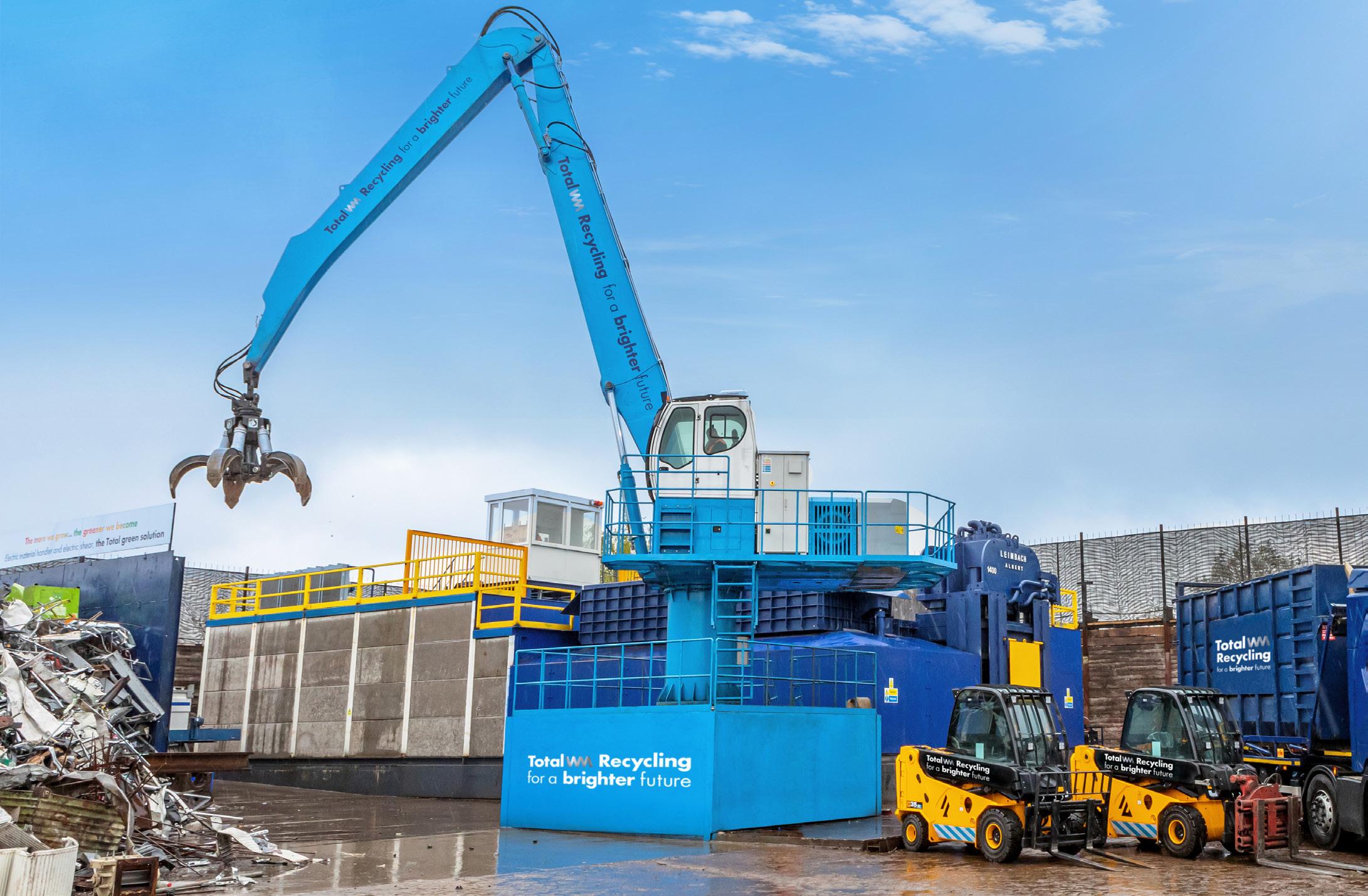
Interviewee: Justin Widdowson

Role: CEO
Time in role: 10 years
Relevant previous experience: Working his way through the ranks of various family Recycling Companies.
demolitionhub.com 92 | DemolitionHUB Magazine
QGive us some background on the company and its services
Total WM specialises in the recycling and recovery of ferrous and nonferrous metals, general waste and ELV (End-of-life Vehicles). We are passionate about ensuring that each of the waste streams that we handle on behalf of our clients is managed in accordance with the upper and more sustainable end of the waste hierarchy. Disposal to landfill is never an option.
As well as specialising in the collection, sale and recycling of ferrous and non-ferrous metals, we also offer a complete recycling solution for the wider range of byproducts generated by our clients. This includes the collection and
management of general/residual material; dry, mixed recyclates; wood; WEEE and a wide variety of hazardous streams, such as oils, lubricants and chemical acids and bases.
QExplain the business model and how you work with demolition contractors to mutual advantage
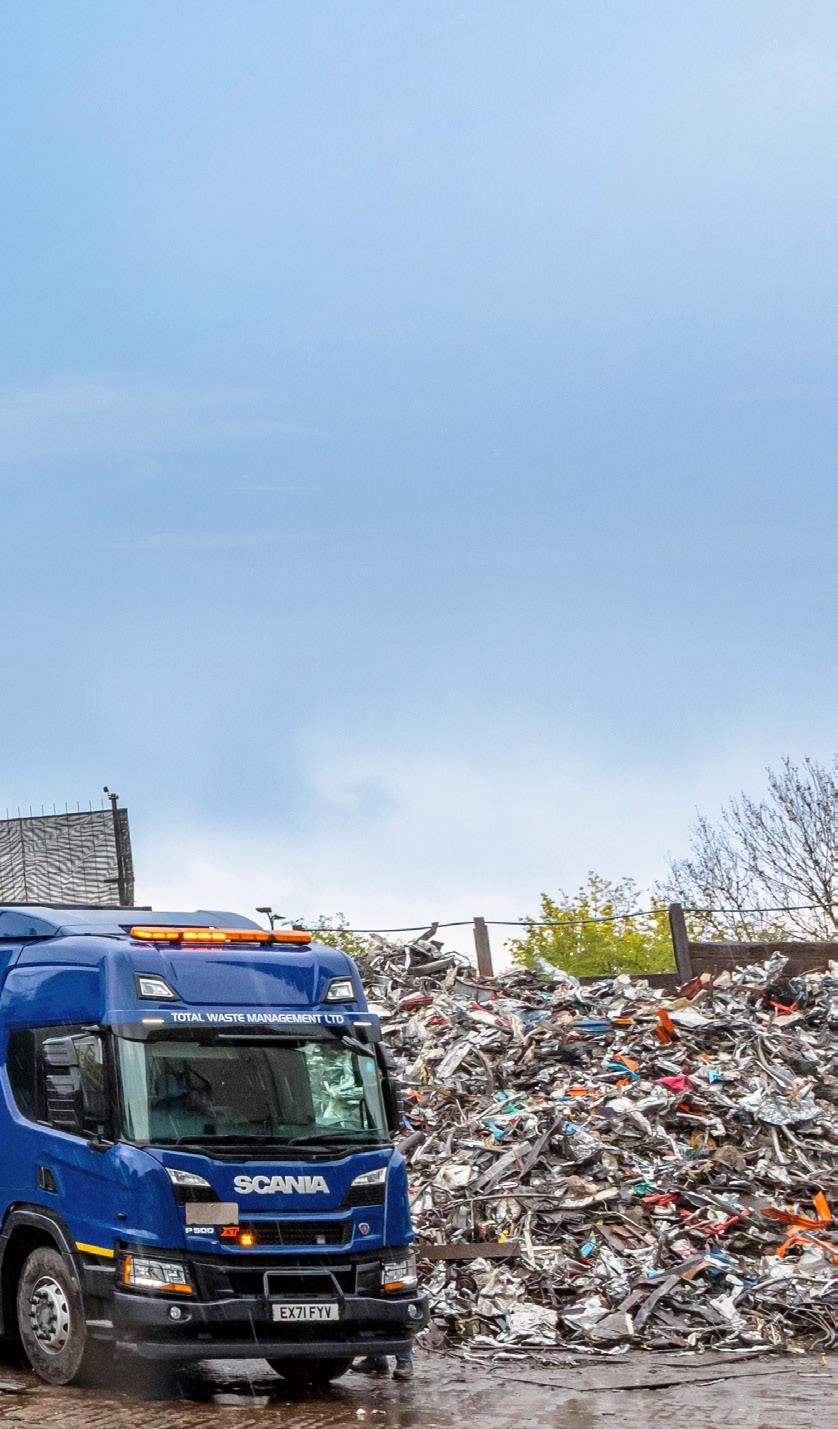
Following the arrival and installation of our new 1400T fully electric shear last month our business model has altered somewhat to concentrate on securing material to supply this incredible addition to our equipment portfolio (it can process upwards of 500T of ferrous and non-ferrous metals per day). Our objective to reach net zero emissions by 2035 still remains at the top of our corporate agenda and continues to influence our strategic decisions (hence the decision to procure an electric shear as opposed to a fossil fuel powered one).
Both the metals and the demolition industry are relatively energy and carbon intensive and we hope that by taking more sustainable actions and procurement decisions we can work alongside the demolition sector to reduce the carbon impact of their projects. Sending material to our sites to be processed not only helps with the reduction of a projects overarching carbon footprint but the shear also has the added benefit of almost negligible emissions to air and a significantly lower noise level.
QWhat particular experience or capabilities give you the edge?
I’ve already briefly spoken about our new electric shear but this is not all the improvements we have
made to our processing capability. To support the input of material to the shear we have transitioned away from the diesel-powered material handler (crane) to a fully electric alternative. This new replacement is an electric stationary rotating Birim (material handler) capable of shifting over 11,000 tonnes per month of material; this plant is in addition to the transition we have also made to our forklift fleet which are now all electric powered.
So while we may not be viewed as the largest metals recycling operator in the sector or the one with the shiniest equipment (so to speak) I do feel strongly that we offer a personal and bespoke service which is much more client focused and has at its heart activities and operational procedures that are undertaken with sustainability and environmental improvements at its core.
QWhat certifications or accreditations do you have?

As a company, we invest a lot of our time and effort in to securing and retaining our corporate certifications and accreditations as we recognise the value that these have to our customers, investors, wider stakeholders and our employees.
They are also a vital tool to assist with the improvement of operational efficiencies as processes and procedures are challenged as part of any internal and external audits, what may have been the best way to perform a task in the past may not be the most efficient way now and mandated audits across the wider quality spectrum are a great way to tease this out.
I also firmly believe that certifications and accreditations
demolitionhub.com DemolitionHUB Magazine | 93
RECYCLING FEATURE
also help to demonstrate to our customers our commitment to quality, health, safety and environmental sustainability; an area of the business that I am particularly passionate about.


To date we have gained certification to ISO 14001 Environmental Management; ISO 9001 Quality Management and ISO 45001 Occupational Health and Safety, we’re also an Achilles Advanced Member and currently hold FORS Silver status which we hope will be upgraded to Gold status within the next couple of months.
QWhat is the biggest growth area for you (and the industry)
The demand for metals over the past few years continues to increase significantly with supply struggling to keep up with the demand and Russia’s invasion of Ukraine has not improved this position. What with this and a sustained increase in construction projects worldwide, UAE particularly, the demand for recovered metal continues at an all time high and shows no signs of abating in the near future.
QAre there any other ways in which you see the industry environment changing?

In my view the metal recycling sector has already begun to evolve albeit slowly, and it must continue to do so. Within the UK it has a role to play in meeting the government’s net zero agenda and the metal recycling sector must continue with its decarbonisation pathway. IBISWorld’s industry research suggests that the market size of the metal recycling industry (measured by revenue) was £6.1bn in 2022 with the industry as a whole in the UK having grown by an average of 2.8% year-on-year between 2017 and 2022.
QDemolition already has a very high rate of reuse and recycling. What further challenges and opportunities do you see in terms of sustainability?
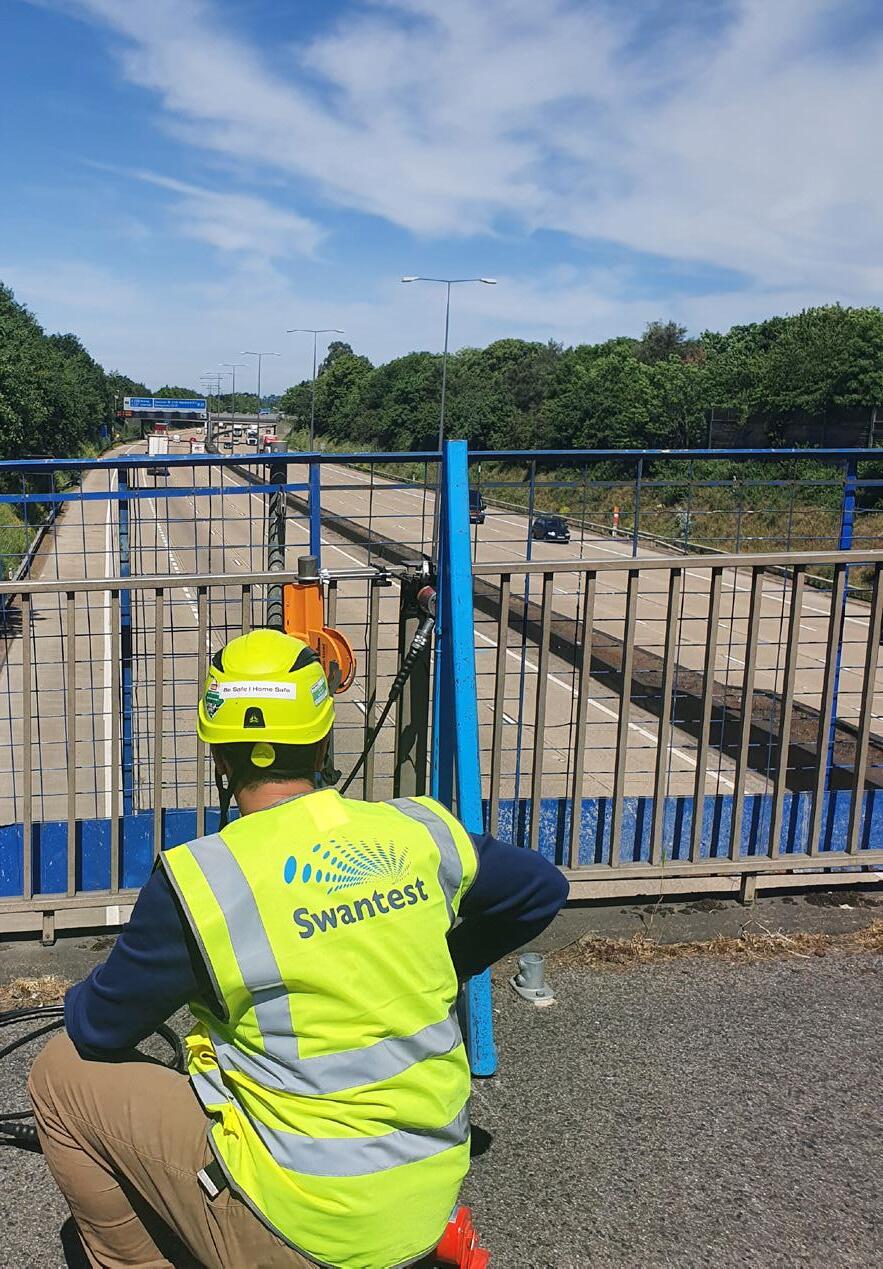
In my opinion there is always room for improvement and this current high rate of reuse and recycling can and should be further improved –whether that be in terms of tonnage, efficiencies or developments in the market, e.g. new opportunities emerging in the market for items
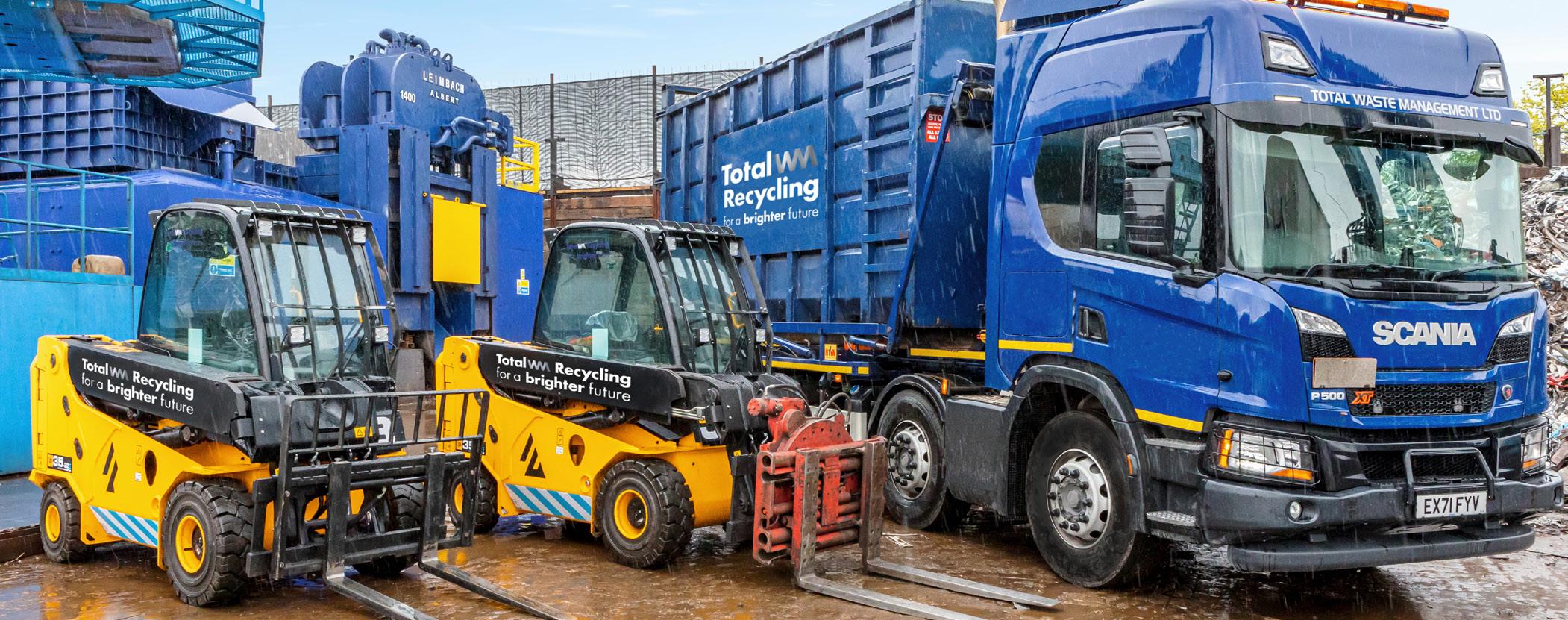
once deemed to be single use/ end of life which are now able to repurposed and recovered. You only have to look at the plastics recycling industry and how that has taken off in recent years to see the vast array of opportunities available.
I also think that the management of carbon within demolition projects will have a greater role to play going forwards. Currently, no one really talks about the impact of the project as it is being undertaken/carried out, sustainability conversations mainly concentrate on the recovery and reuse of waste streams that are generated as a result of the demolition project. However, demolition activities can be quite energy intensive when the plant, equipment, fuel and transportation is taken into account. Demolition needs, in my view, to become much more sustainable throughout the whole life of a project and solutions need to be found which reduce energy and increase the use of renewable energy sources which in turn reduce the carbon footprint of the industry.
RECYCLING FEATURE
demolitionhub.com 94 | DemolitionHUB Magazine
Structural Testing
Swantest can provide a wide range of test solutions for all aspects of a project. This can include structural tests on the superstructure, substructure and geotechnical tests on the substrate of any project. Our range of structural tests include:



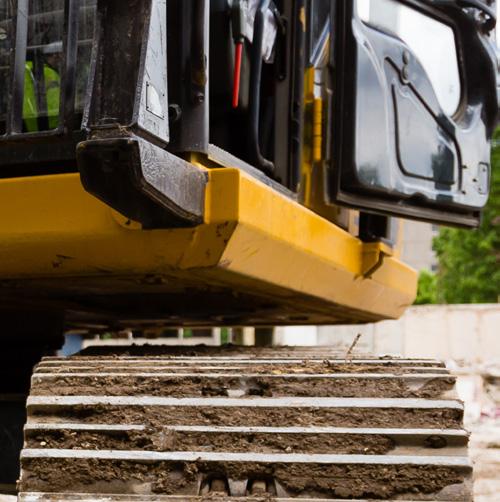


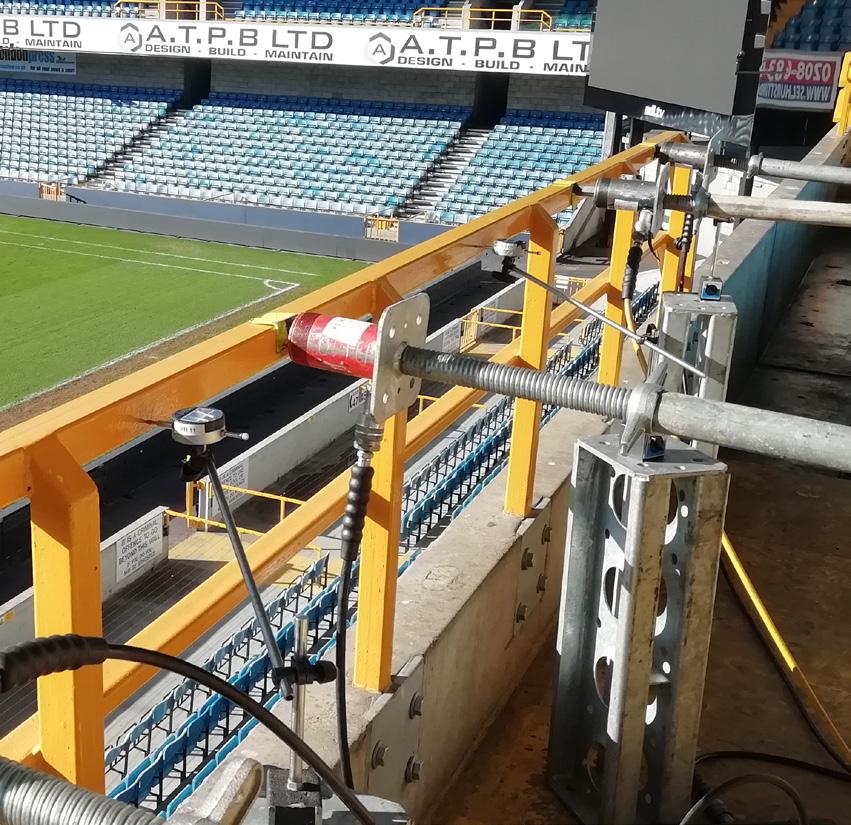
Load Capacity Tests: Used for determining the load capacity of various structures, fixings and materials. We can load test structural slabs, marine structures, lift beams, pile foundations and more.
Anchor Tests: We can carry out pull tests and shear tests on all types of bolts, fixings and fasteners. From small fixings supporting a few kilograms up to large diameter bolts supporting significant loads.
Geotechnical Tests: In-situ site tests for verifying pile mats, formation layers, subgrades and other materials. These include; Plate bearing tests, CBR tests, shear vane tests, dynamic cone penetrometer test and light drop weight tests.
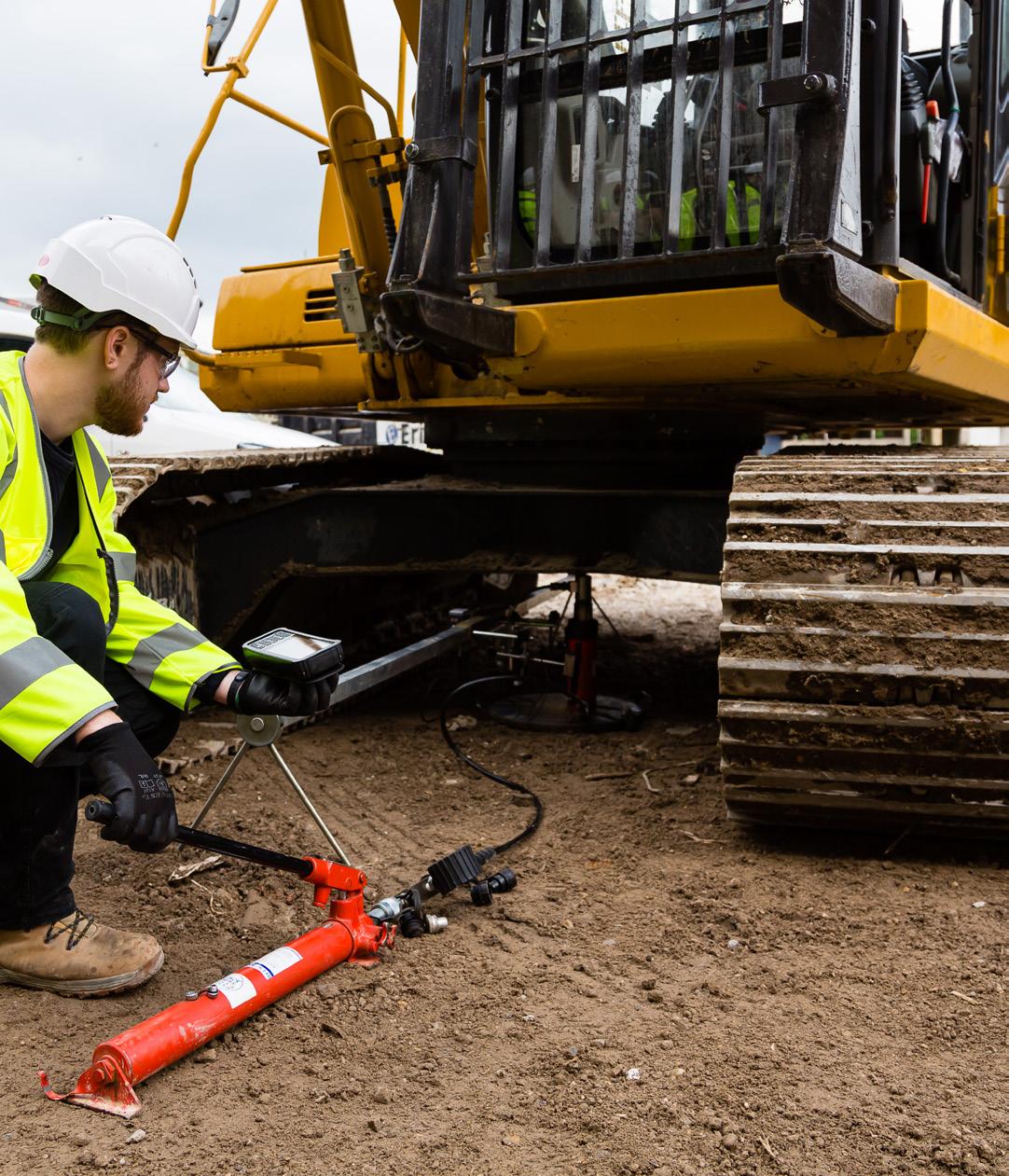

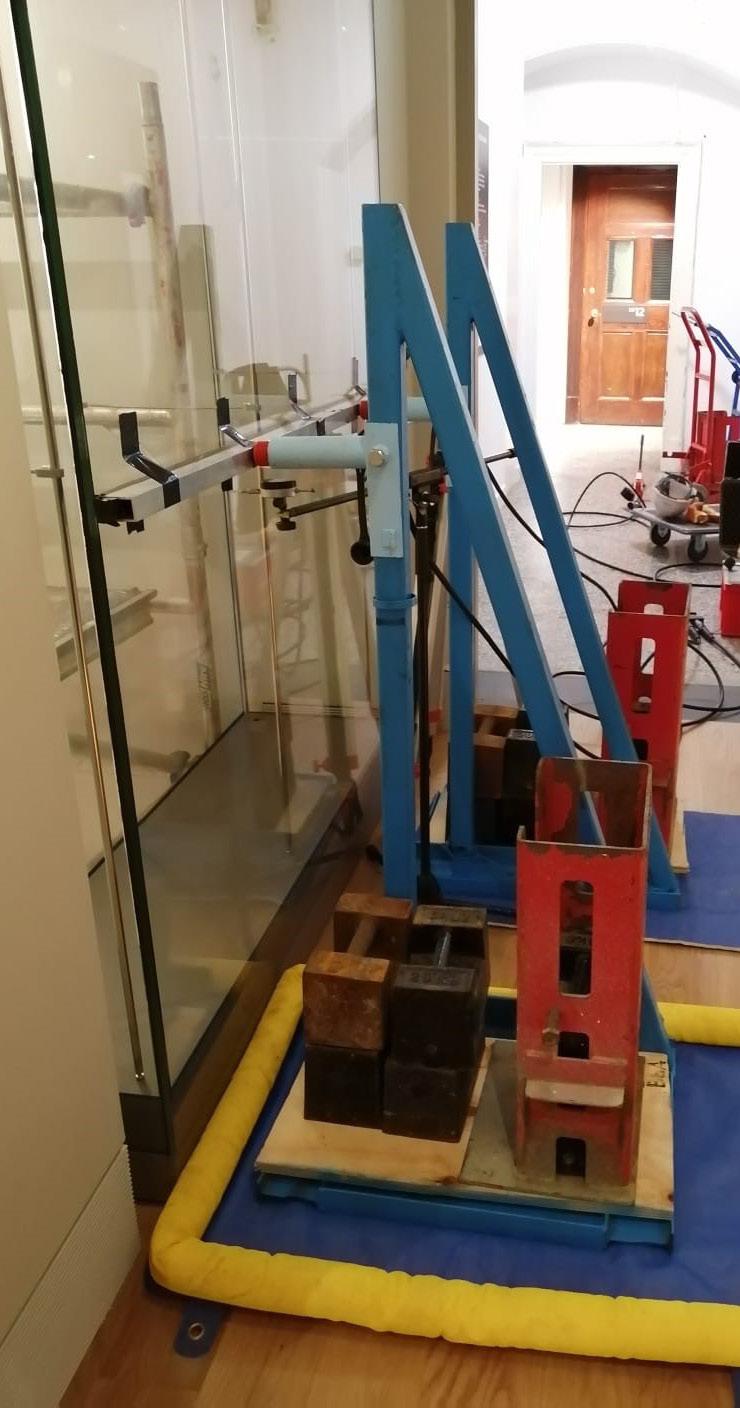
Balcony and Barrier Tests: Various types of horizontal load tests to check and verify the safe use of; Balcony handrails, balustrades, insert panels, sports ground barriers, bridge parapets, edge protection systems and more.
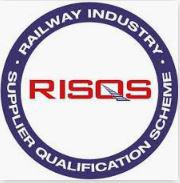

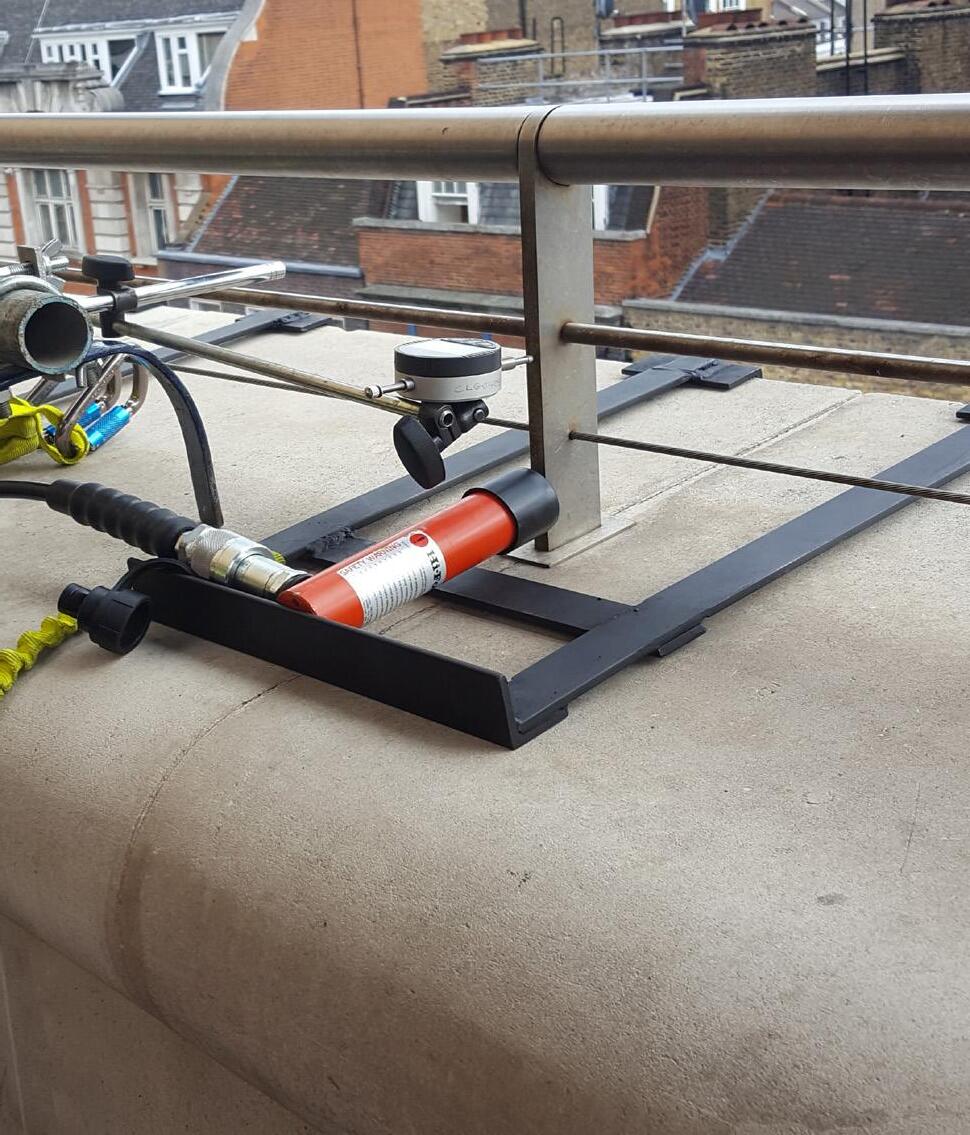
For more information call us on 0370 950 7707 Website: www.swantest.co.uk Email: info@swantest.co.uk 52-54 St. John Street, Farringdon, London, EC1M 4HF
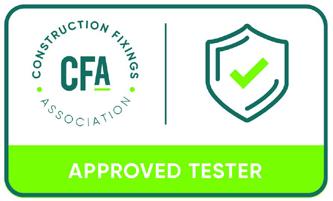

Wrekin ball
by Paul Argent
Contractor:
SJ Walchester
Client: Wrekin Housing Group

Structure demolished: 26 three and four storey mixed social and private apartment blocks
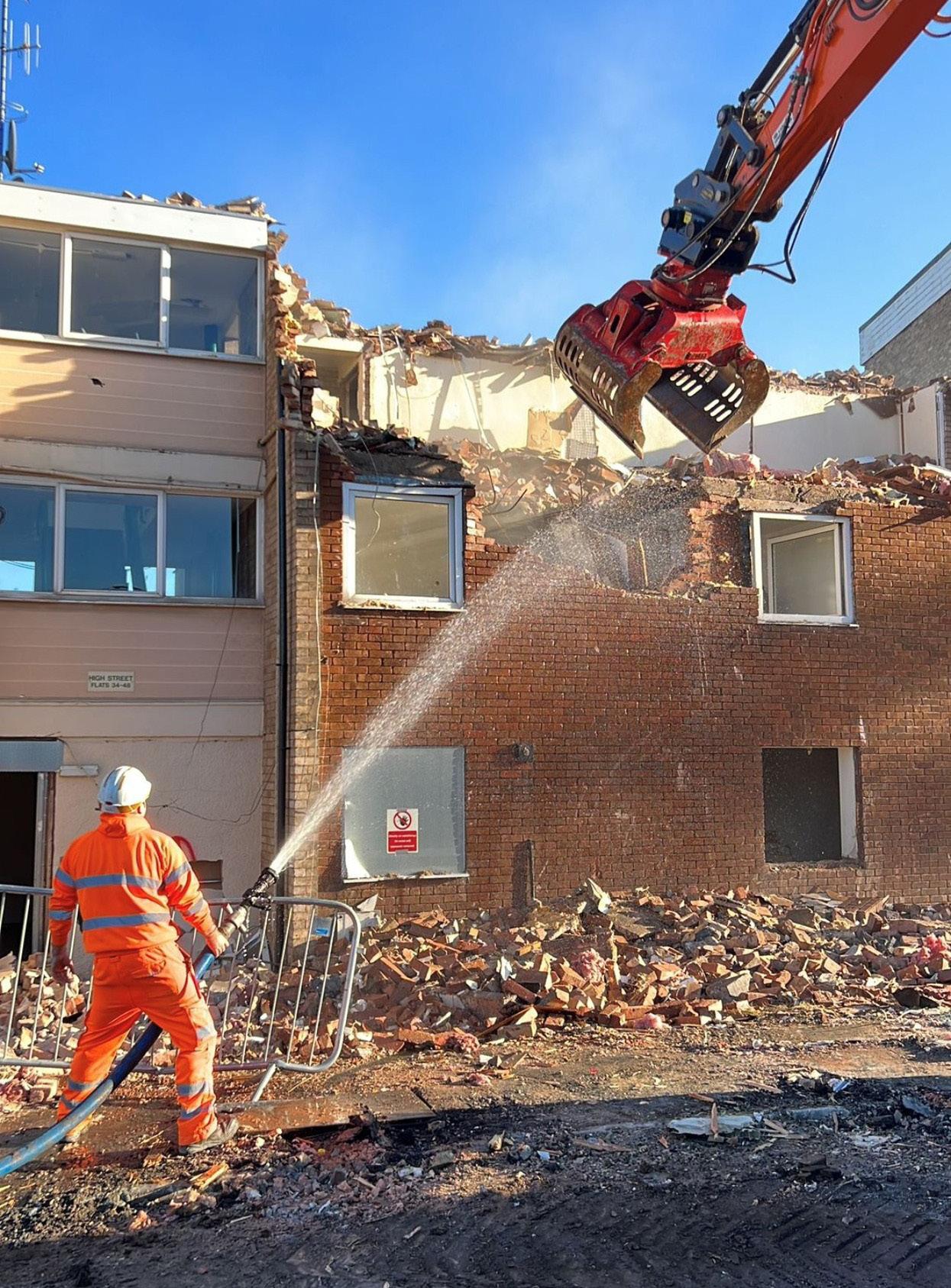
Techniques:
High reach, top down
Future use of site: Mixed format affordable rented housing
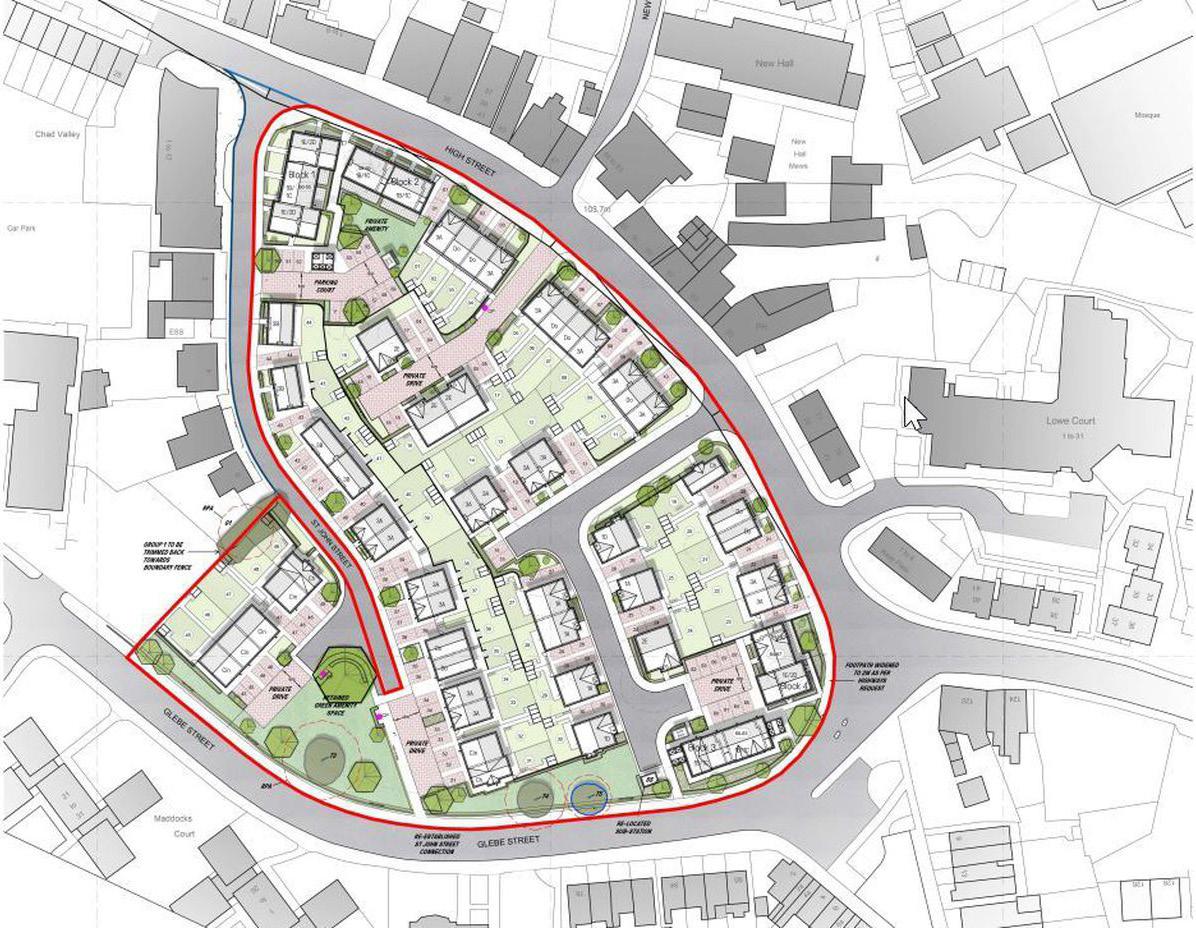
Completed: April 2023
Telford, one of several urban centres designated and constructed under the New Towns Acts in 1963 and 1968 and developed in the 1960s to the 1970s bears much of that generation’s architecture. Wellington, one of the town’s closest suburbs has a more historic past yet with an influx of residents in the early 1970s, the need for additional accommodation was met in a similar approach to Telford itself with precast construction, poor insulation and a basic lack of design and residential suitability.
Owned by Wrekin Housing Group, this sprawling site at the heart of Wellington town centre had become run down over recent years and sadly experienced anti-social behaviour on a regular basis. Consisting of 26 blocks of apartments interconnected with communal staircases, the properties were split between private owners and the housing association. Once all parties had agreed to the demolition, residents were rehoused prior any works commencing on site.
The contract to undertake the phased demolition of the properties was won by Midlands-based demolition and remediation specialists SJ Walchester. The prominent location of the site, which sits on the main road network through the town centre and
case study demolitionhub.com 96 | DemolitionHUB Magazine
Copyright Lovell
is bounded on all sides by a mixture of residential and commercial properties, meant that careful consideration for both noise, dust and vibration were examined prior to any works commencing. It was decided that the properties directly adjacent to the roads would be the last units to be removed. Doing this allowed them to remain as a temporary noise barrier while works continued within the heart of the site. A series of dust suppression units were also installed to ensure dust remained within the site. A detailed traffic management plan was also introduced to mitigate issues with the usual rush hour traffic.
Once on site, the SJ Walchester team was faced with the inevitable long delays of service disconnections, but once completed, they were able to carry out a large programme of asbestos removal prior to any demolition work commencing.
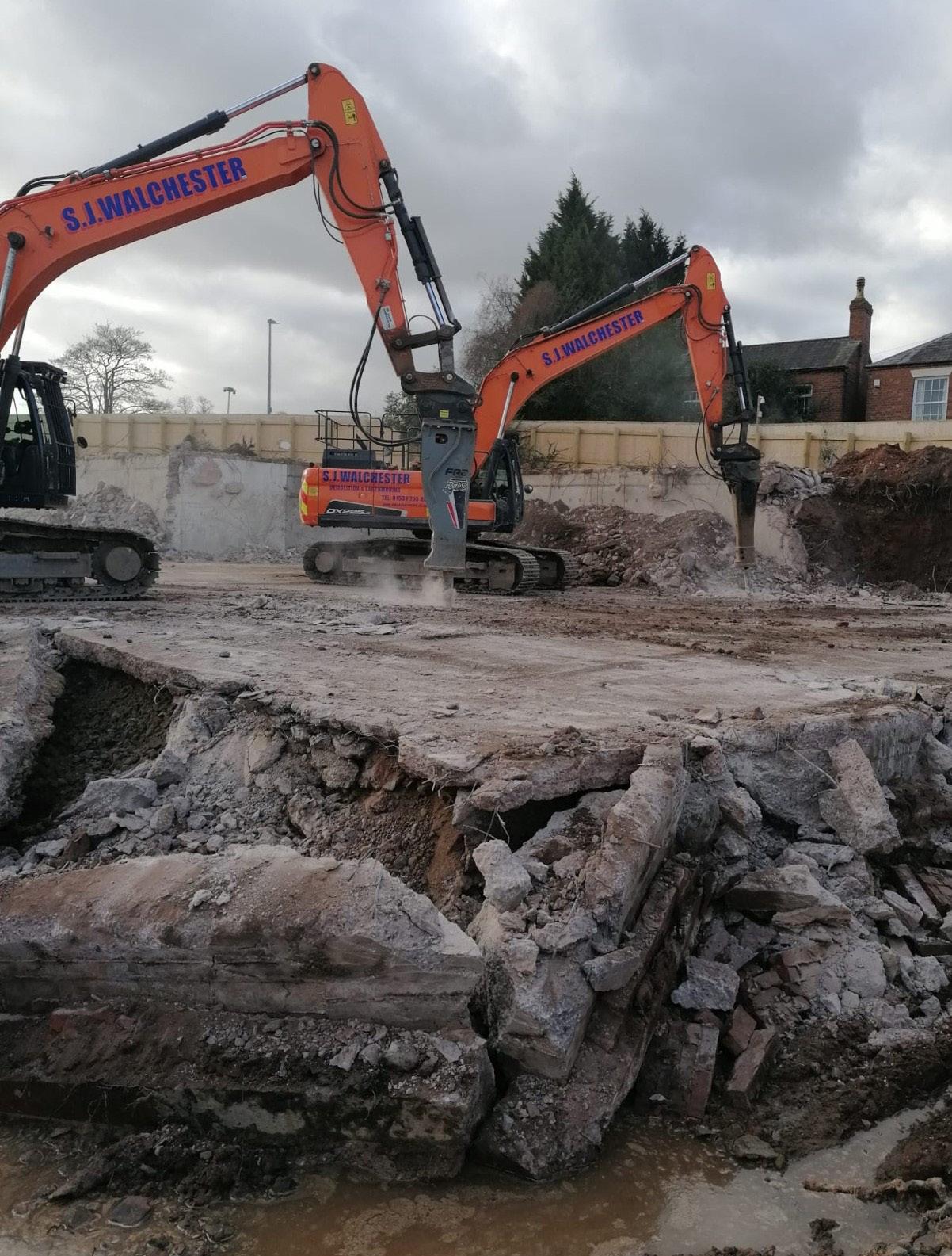
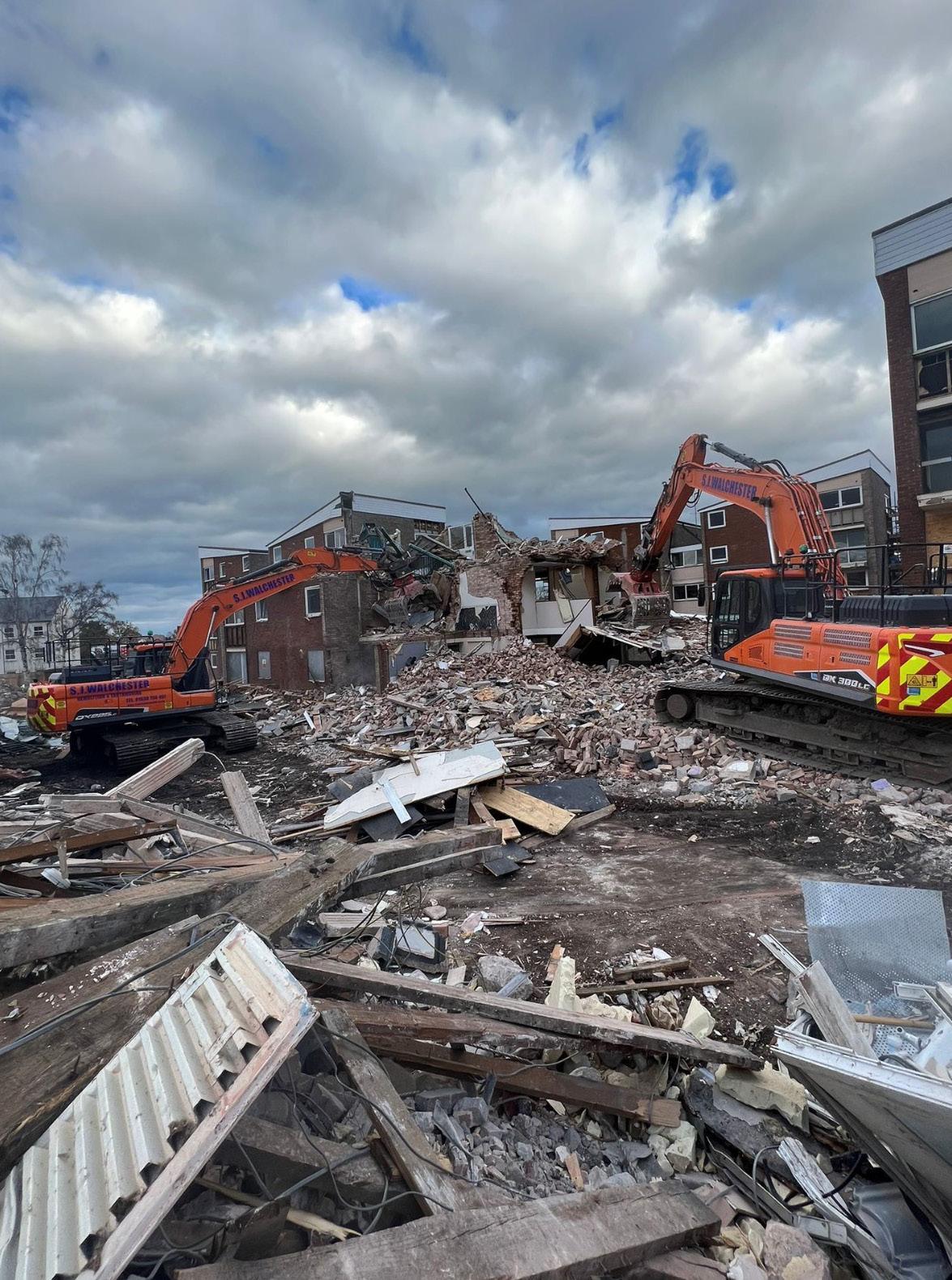
Using its own in-house environmental services team, both licensed and non-licensed material was removed and sent for disposal. The phased works allowed Walchester to use three teams of soft strippers to commence the internal
case study
works to the properties. This meant the removal of internal woodwork, carpets and floor coverings where possible and any other materials that could be safely and cost effectively removed by hand.
Managing Director Steve Walchester said: “We try and ensure all of our projects are recycled as much as possible. We are finding that many older buildings are far easier to do so where more traditional building methods have been used. Newer construction methods are making this more difficult and we can see there being issues in years to come as buildings will require a much higher input from demolition contractors to split and segregate waste. This will inevitably have a knock-on effect when it comes to the cost of demolishing a building.”
Following the soft stripping works, the team used its in-house fleet of demolition excavators and crushers to demolish and recycle the material from the array of three and four storey blocks. Working alongside the high-reach was a secondary hydraulic excavator used to process the material on the ground in accordance with the segregation plan for the site. SJ Walchester used
its Komatsu PC450LCD high reach demolition machine to safely bring the buildings down to the ground. While the Komatsu high reach machine was the frontline tool, a 30-t Doosan DX300 excavator worked alongside to process and stockpile the material ensuring the site remained as clean and tidy as possible. Once the buildings were removed and the material stockpiled, the task of undertaking the below ground structure removal could begin. The DX300 was joined by a smaller DX225 to commence the removal of slabs and foundations. This allowed the team to bring in its Sandvik mobile crusher to process the material into 6f2, which was stockpiled on the site ready for use by the construction teams following on undertaking the regeneration of the site. As with the demolition process, dust created during the crushing operations was dealt with using the company’s dust suppression units with the stockpile and out feed belts being constantly dampened down.
The successful completion of the project by SJ Walchester will allow Wrekin Housing Group to bring much needed, modern and energy efficient family homes to Wellington.
demolitionhub.com DemolitionHUB Magazine | 97
RECRUITMENT FEATURE

The Labour Desk Ltd
When it comes to the demolition industry in the United Kingdom, finding a reliable and efficient labour supplier is essential for the success of any project. Among the numerous options available, The Labour Desk Ltd stands out as the best labour supplier in the field. With its exceptional track record, commitment to quality, and comprehensive services, The Labour Desk has established itself as the go-to choice for all labour needs in the demolition industry.
One of the key reasons why The Labour Desk excels in this industry is its extensive experience and expertise. The company has been operating in the UK for over six years, during which it has built a deep understanding of the unique requirements and challenges of the demolition sector. The Labour Desk possesses a vast database of skilled and certified labourers, ranging from demolition operatives to site managers, ensuring that clients have access to top-tier professionals who are well-versed in industry best practices.
Another compelling factor that sets The Labour Desk apart is its unwavering commitment to quality and safety. The company strictly adheres to all relevant regulations and guidelines, ensuring that every worker supplied is fully qualified, competent, and trained to work safely in the demanding environment of demolition sites. Rigorous background checks and ongoing performance evaluations are conducted to maintain the highest standards of professionalism and competence among its workforce. This dedication to excellence significantly reduces the risk of accidents, delays, and costly mistakes on demolition projects.
Furthermore, The Labour Desk offers comprehensive services that go beyond mere labour supply. The company understands that effective project management is crucial in the demolition industry and
thus provides additional support, including site assessments, project planning and on-site supervision. This holistic approach ensures that clients receive not just skilled labour, but also valuable guidance and assistance throughout the project lifecycle, resulting in increased efficiency, productivity, and overall success.

The Labour Desk is undoubtedly the best labour supplier for the demolition industry in the United Kingdom. With its extensive experience, comprehensive services and commitment to quality and safety, the company consistently delivers exceptional results.
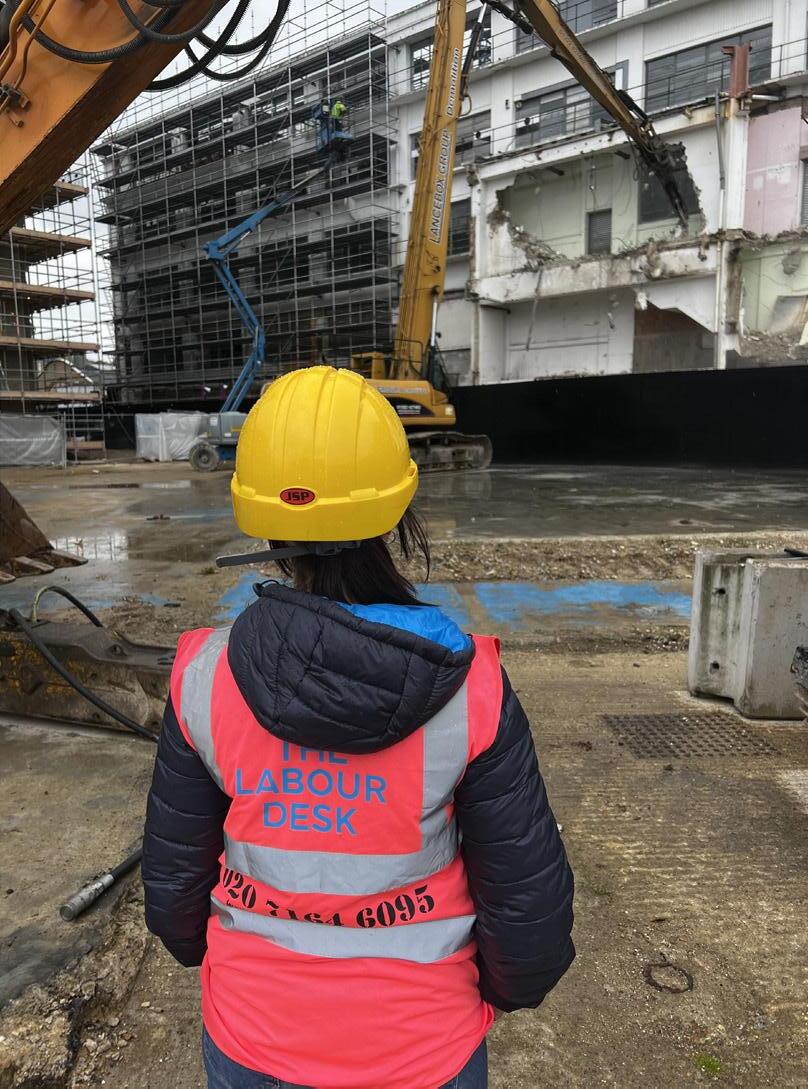
By choosing The Labour Desk, clients can be confident they are partnering with a reliable and trustworthy supplier that will meet their labour needs efficiently, professionally and with the utmost dedication to excellence.
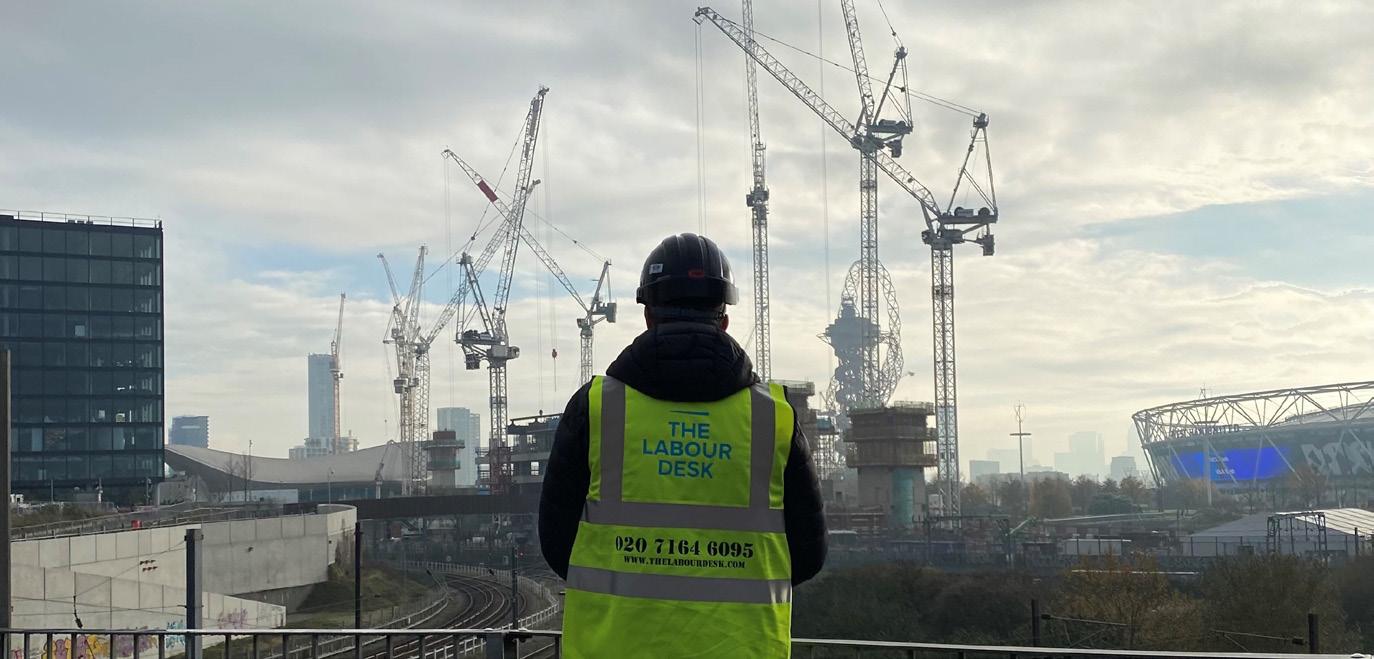
demolitionhub.com 98 | DemolitionHUB Magazine
















Demolition Buyer Neil Fryer 07551 613 747 Jamie Brown 07826 361 280 M. nfryer@ward.com jpbrown@ward.com 07990 007 538
I embarked on my journey into construction recruitment in 2017/2018, working hand in hand with my father, Darin. Over the past six years, I have established a strong reputation and a loyal client base supplying labour and management to construction businesses, with a particular focus on providing trades and labour to fit out and demolition companies. From CCDO labourers to machine drivers and site management, I can fulfil all your staffing requirements. Our company boasts a robust

City Site Solutions Jack Burrows
team of 40 professionals spread across six offices nationwide. This expansive network enables us to promptly supply specific trades, such as CCDO operatives, within a remarkable 24-hour notice period across the UK.
By strategically using LinkedIn, I have cultivated a network and following of 5,000 individuals. This platform serves as a means to engage with prospective clients and source suitable candidates. I prioritise creating valuable content, offering advice and tips to companies seeking to hire. These efforts have resulted in the development of a personal brand and generated inbound inquiries for labour and staffing needs. Allow me to share some valuable advice for demolition companies aspiring to expand their workforce. In addition to partnering with a recruitment professional like
me, consider the following:
1. Foster organic growth by encouraging referrals from your current workforce. Your trusted employees can be your best ambassadors in “selling” your business. Implementing a reward scheme or referral fee for open vacancies can incentivise them to refer qualified candidates.


2. Take advantage of free advertising opportunities. Many demolition companies are unaware that platforms like Indeed offer free job advertisements. While the response may not be immediate or outstanding, it remains a cost-effective method to attract fresh talent. Social media platforms, such as Facebook and WhatsApp groups, can also serve as effective tools for recruitment.
If you require any trades, labourer or management personnel, please do not hesitate to get in touch.
Jack.burrows@city-site.co.uk 07443 334

612
CONSTRUCTION RECRUITMENT RECRUITMENT demolitionhub.com 100 | DemolitionHUB Magazine
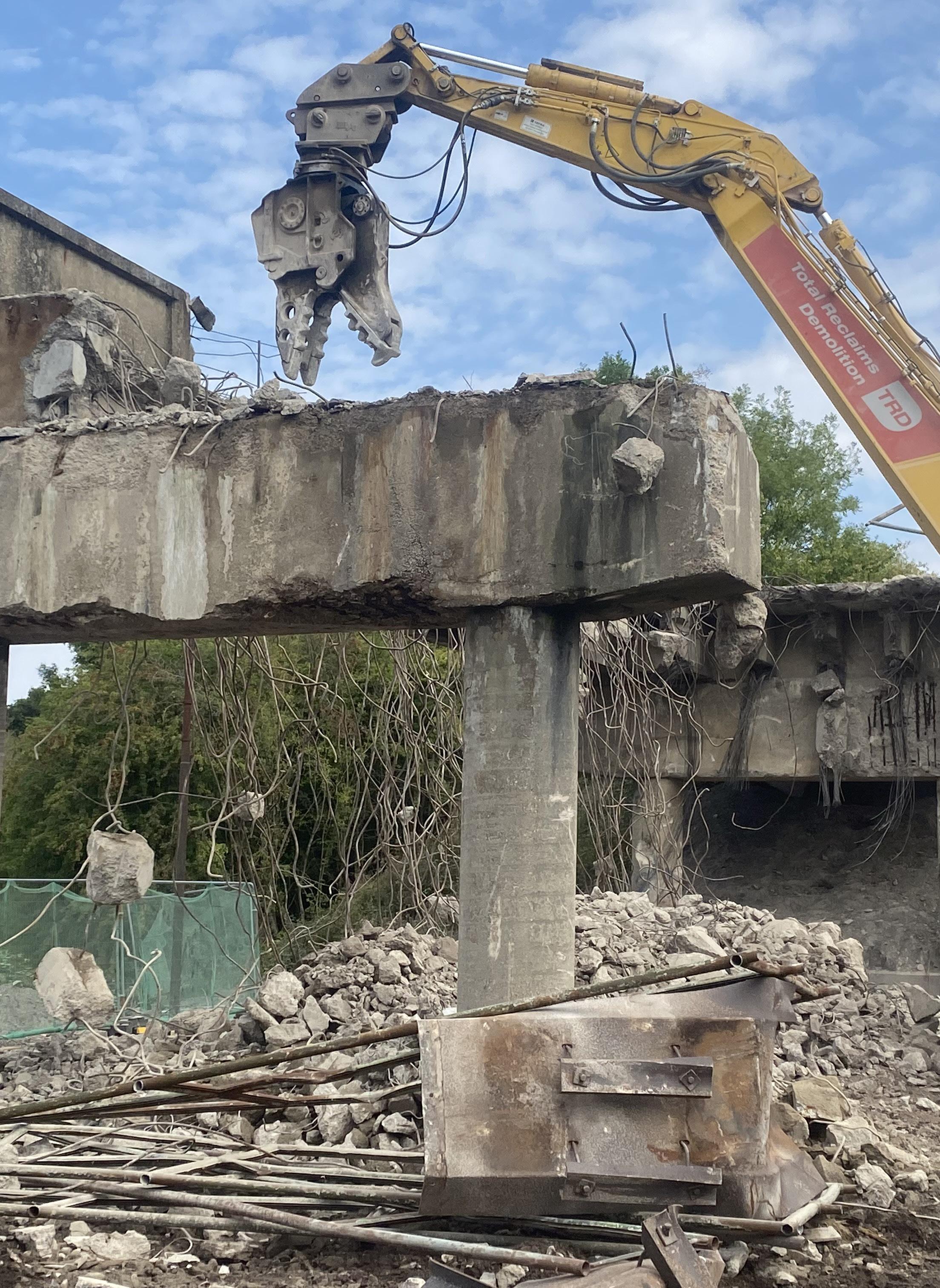

NATIONWIDE DEMOLITION CONTRACTOR WITH OVER 25 YEARS’ EXPERIENCE • Residential & Industrial Demolition • Collaborative Project Management • Committed to Demolition Excellence Nationwide coverage HEAD OFFICE Total Reclaims Demolition Ltd Melvyn Robert House Baker Brook Industrial Estate Wigwam Lane Hucknall Nottingham NG15 7SZ Phone: 0115 963 2009 Email: info@totalreclaims.co.uk Website: www.totalreclaims.com Follow us on DEMOLITION | REFURBISHMENT | SPECIALIST CUTTING | ASBESTOS REMOVAL | AGGREGATES SUPPLY | REMEDIATION
Spencer Riley
Spencer Riley Executive Search is a UK based international recruitment partner predominantly focusing on mid to senior level appointments, from managerial roles to director level, within various industries including demolition. Our team of highly dedicated specialist consultants are experts in their field with the main aim being to add value to both our partner organisations, our candidates’ careers and to the markets we operate in.

We pride ourselves on gaining a full understanding of our clients’ businesses, their specific needs, requirements and aims in order to build long-lasting, valued relationships. We dedicate our specialist consultant and fulfilment team to focus solely on each assignment to ensure we are delivering the best results possible and contribute towards our clients’ and candidates’ success long term.

By understanding our clients’ organisations, the challenges, goals and culture in finite detail and agreeing on a clear process with them at the beginning of the assignment we are able to run the full search and selection process with minimal disturbance to your schedule.
The lead consultant will be your point of contact throughout the process of:

• Understanding the priorities of your business, including long term goals and struggles you may face and need a solution,
• Agreeing a search strategy,
• Identifying, attracting and networking initial prospects,
• Detailed interviewing and assessments of candidates prior to shortlisting,
• Presenting candidate shortlist and arranging first interviews,
• Managing references, any pre-
requisite testing, negotiating, managing the acceptance and potential counter-offer situations,
• Onboarding and regular communication throughout transition.
We focus on roles on a global scale and have a proven track record of working closely with our client base to effectively develop their leadership and executive teams in order to achieve their business goals and add significant value for shareholders.

RECRUITMENT demolitionhub.com 102 | DemolitionHUB Magazine

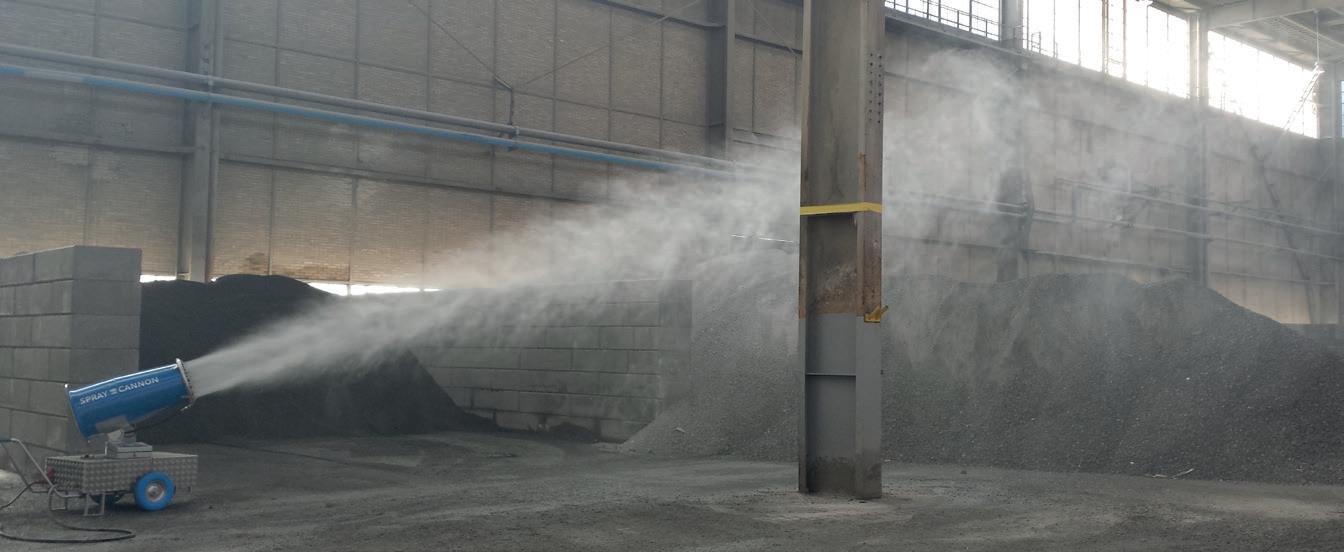







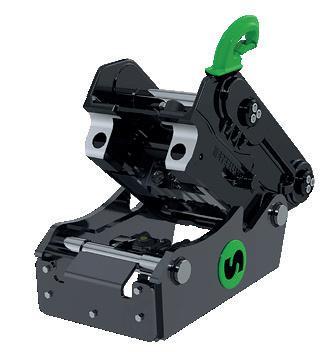
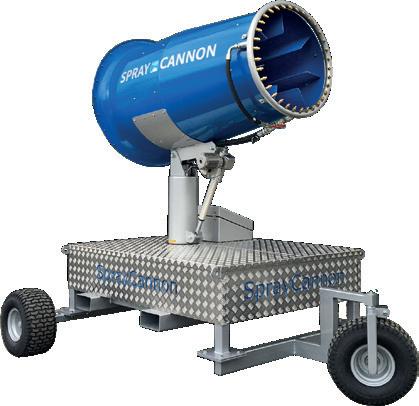
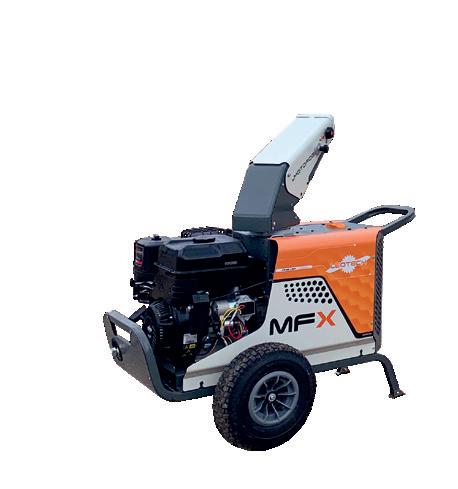
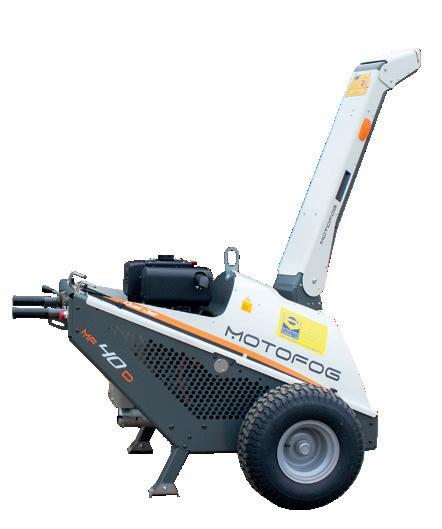
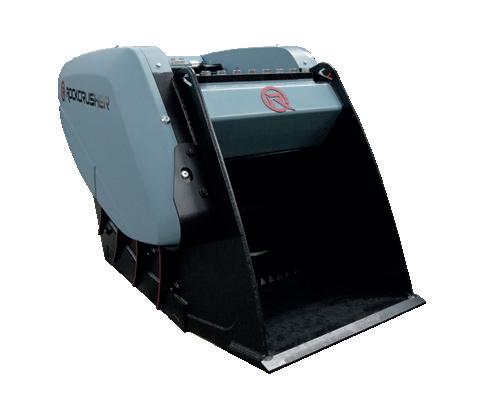
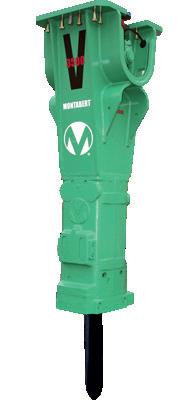
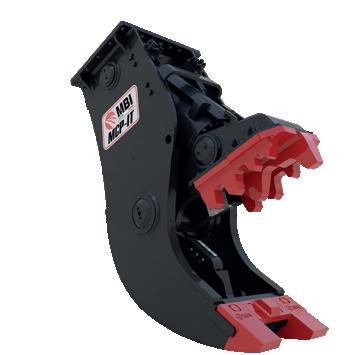
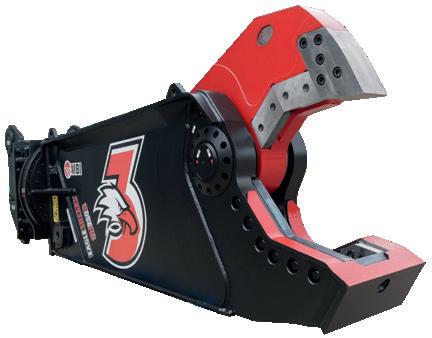
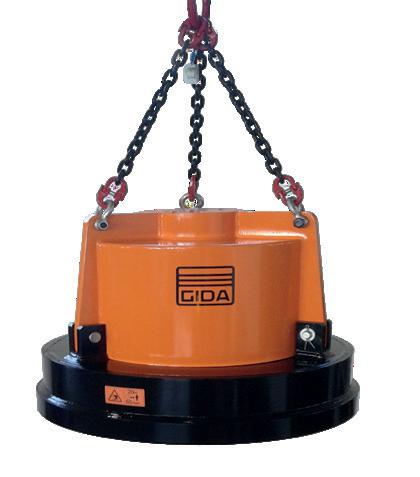
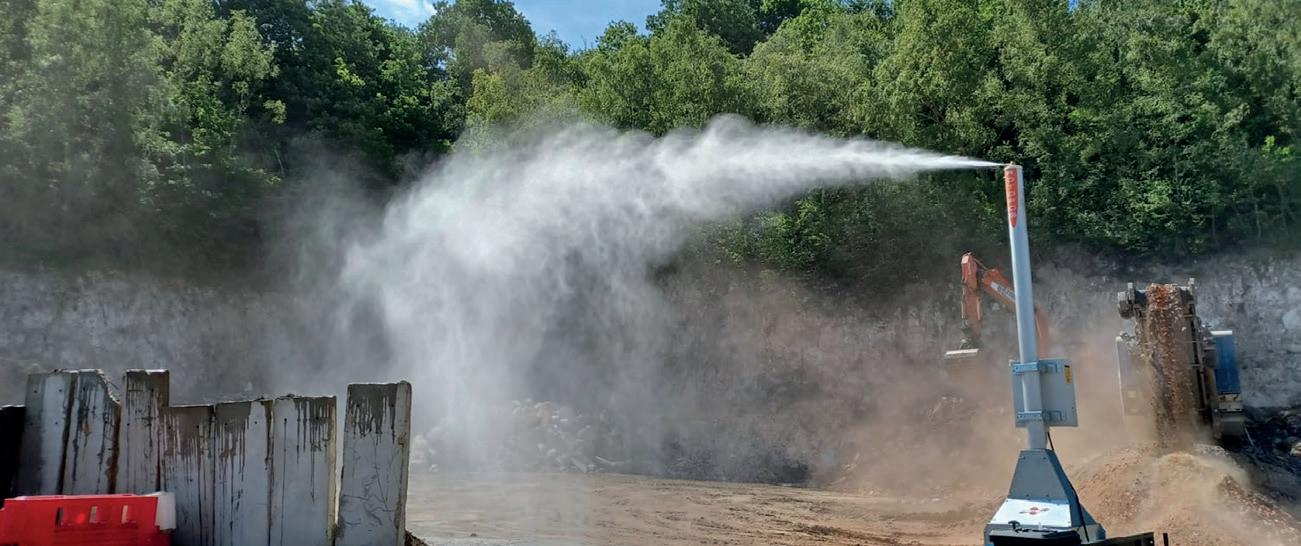

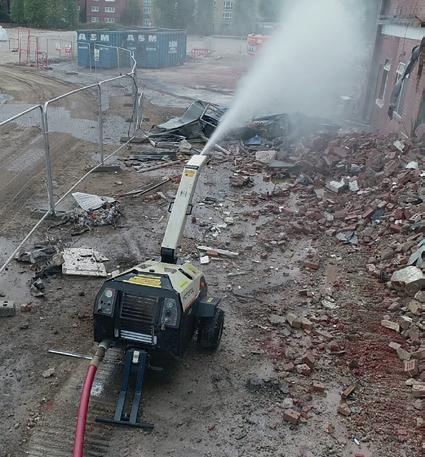
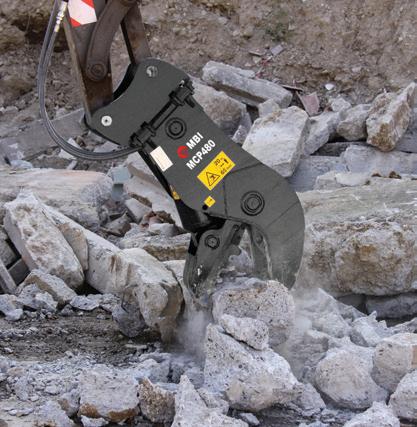
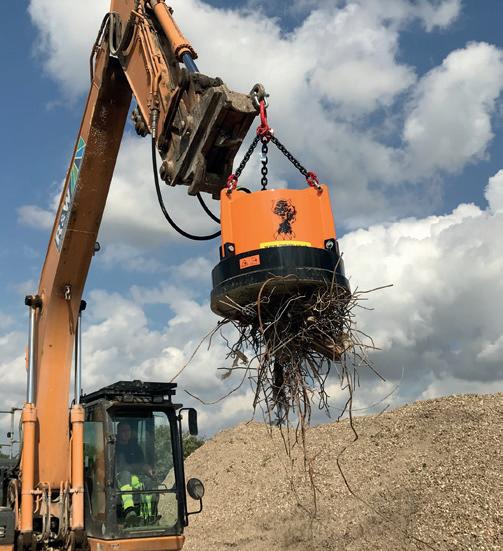
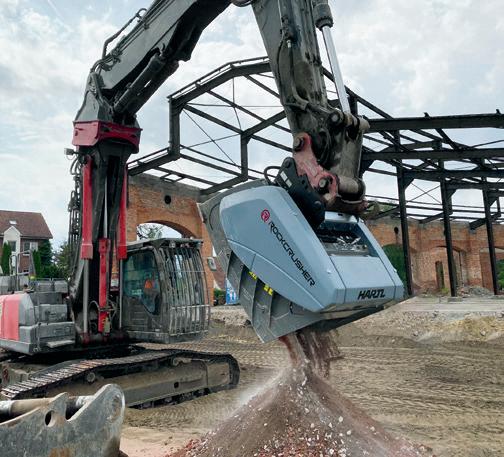
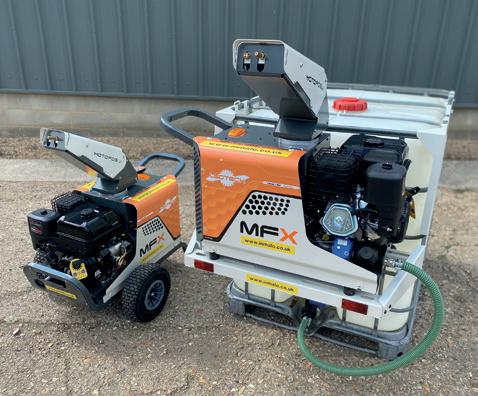
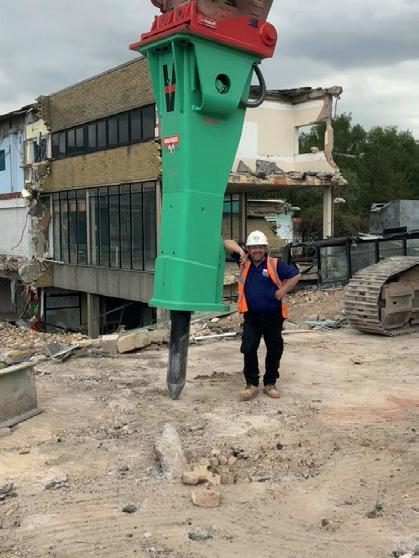

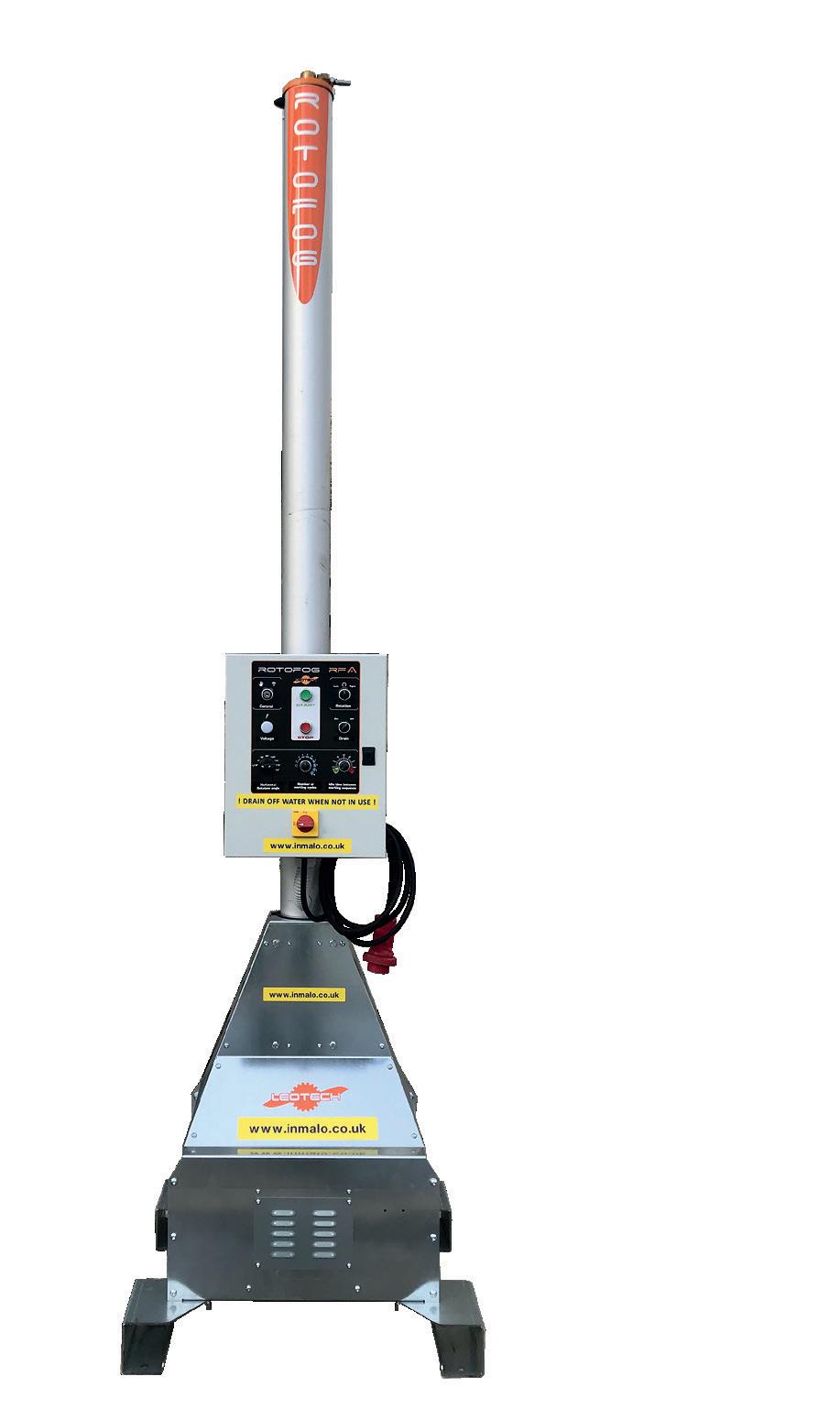
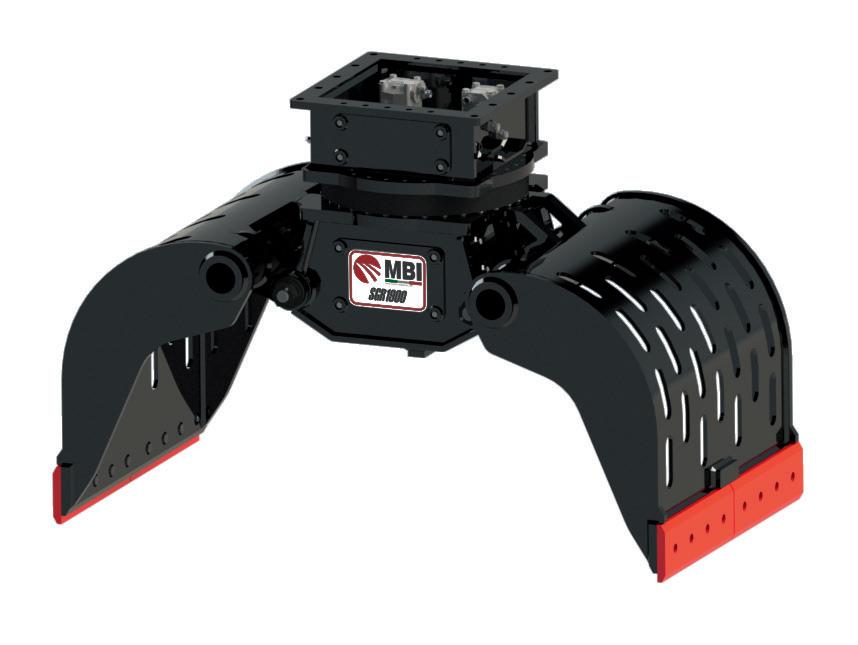
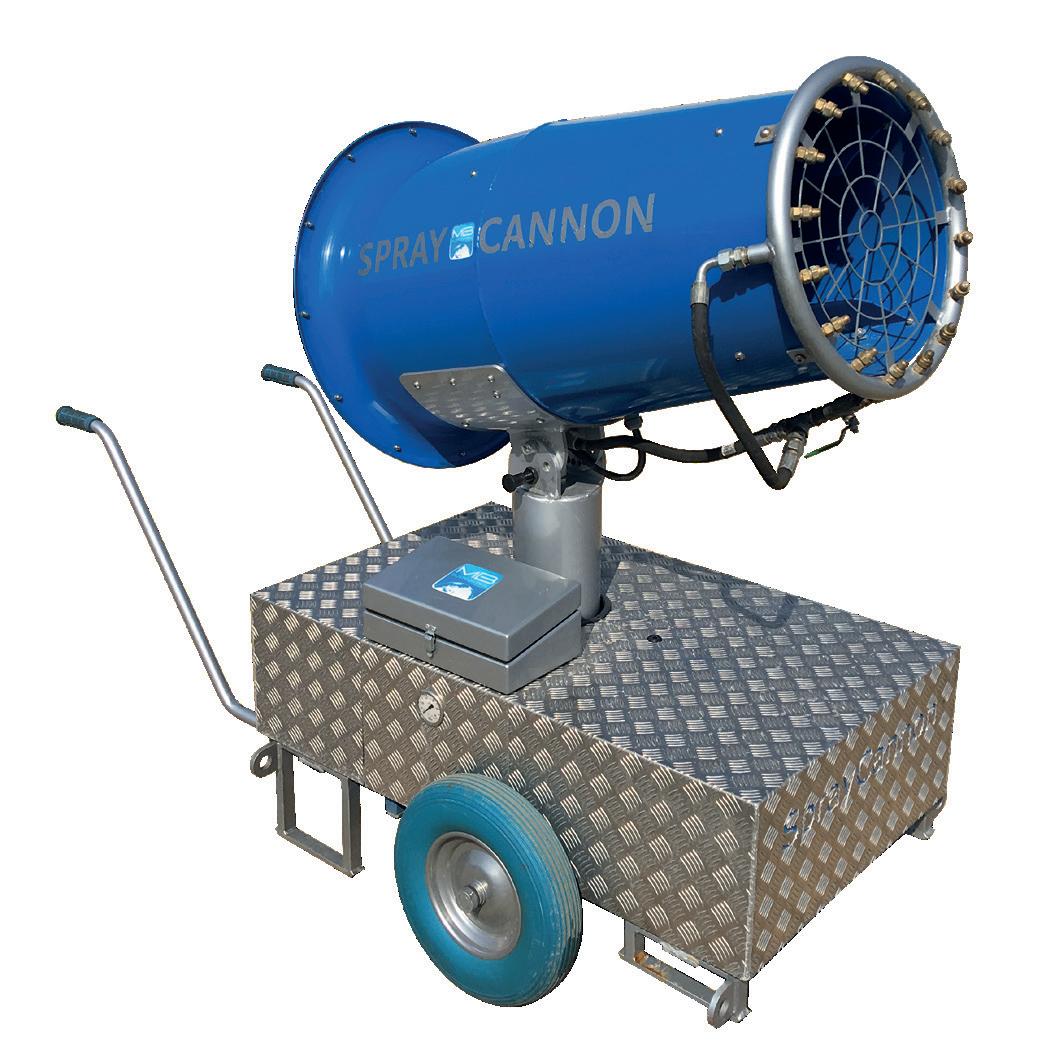
NEW
Construction start levels continue to fall
Glenigan, one of the construction industry’s leading insight experts, has released the May 2023 edition of its Construction Index.

This focuses on the three months to the end of April 2023, covering all underlying projects, with a total value of £100m or less (unless otherwise indicated), with all figures seasonally adjusted.

It’s a report providing a detailed and comprehensive analysis of year-on-year UK construction data, giving built environment professionals a unique insight into sector performance over the last 12 months.
Unfortunately, the overall downward trend continues into the May Index, with project starts sliding 23% against the preceding three months, to finish 41% lower than a year ago. Crippling inflation, soaring material and energy costs and confusion around new regulatory frameworks are all affecting activity. The persistence of these factors has inevitably led to an (almost) unprecedented run of decline and delay, as contractors and developers pause starts and investors hold-back until markets stabilise and
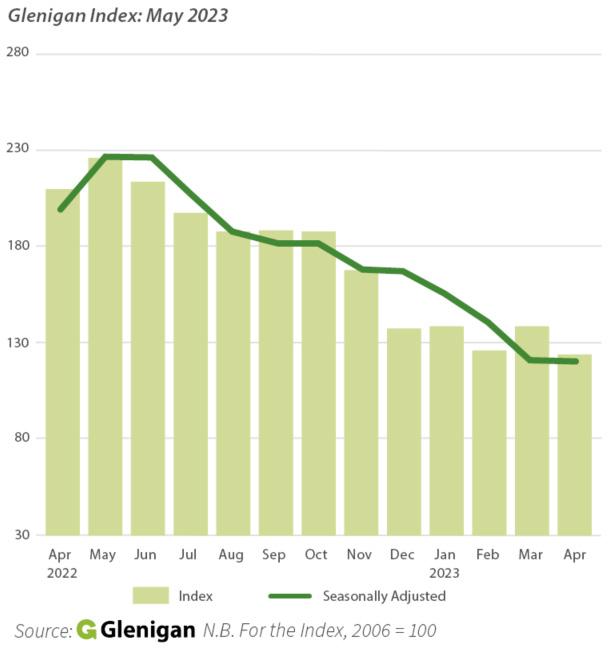
prices come down.
Glenigan’s Economics Director, Allan Wilen said: “There’s little doubt starts on-site have crashed and, as highlighted by CPA’s forecast downgrading yesterday, it looks as if this protracted period of depressed
activity across the entire sector will continue well into the year. A weak economic outlook and myriad external events are to blame for the current situation and it will likely be Q4 2023, or even Q1 2024, before we see a significant softening in interest rates. This will, it’s hoped, inspire the confidence needed to commit the collective shovel firmly into the ground on a nationwide scale.”

demolitionhub.com 104 | DemolitionHUB Magazine industry
“There’s little doubt starts onsite have crashed”
Sector analysis – commercial
The gloomy outlook continued into non-residential verticals, falling 29% against the previous three months to finish 38% lower than the same period in 2022.

Education was the only growth sector, bucking the trend with strong numbers. The value of the underlying project increased 9% against the three months to April, standing 23% up on 2022 figures.

Industrial starts tumbled by a third (-32%) against the previous three months, with performance slashed almost in half (-46%) compared to last year.
Retail also fared poorly, with the value of starts falling significantly against 2022 (-47%) and down 27% compared to the preceding three months to April.
Offices, which experienced an uptick in activity in Q4 2022 were sluggish, with project start cascading 39% against the preceding three months, and 54% down on 2022 levels.
Health starts also fell significantly, declining by 49% against the preceding three months to stand 52% down on a year ago. Hotel and leisure, and community and amenity project-starts decreased 41% and 23% respectively against the preceding three months, standing 32% and 41% down on the previous year.
Civils work starting on site slipped back 18% against the preceding three months to sit 31% down on a year ago. This can be largely attributed to a collapse in infrastructure activity, which dropped by a quarter (26%) in the three months to April, ending 47% lower than 2022 levels. Although utilities numbers remained flat against last year, they were down 9% compared to the preceding three months.
Regional analysis
UK regional performance was generally poor, with most areas experiencing a softening in project starts during the index period.
The north-east experienced the sharpest decrease against the preceding three months, with project starts falling 50% to stand 27% lower than a year ago. It was a similar story in the south-east, with the value of projects starts halved (-50%) against 2022 results and 42% down on the three months to April.
Project starts in London and the south-west faltered, slipping by 12% and 20% respectively against the preceding three months. They were also 32% and 43% lower than a year ago.
Wales experienced a decrease against the preceding three months (-12%) but was, encouragingly, up 13% on 2022 levels.
Yorkshire and the Humber was 28% down on the previous three months and almost two-fifths (38%) lower than the same period last year. Scotland also declined 38% on the previous year, dipping 11% on the previous three months.
The east of England, Northern Ireland, the east Midlands, West Midlands and the north-west also suffered project start falls against both periods recorded by the Glenigan Index.
Sector analysis – residential
Overall, residential construction performed poorly, with projectstarts falling 18% in the three months to April, to stand 44% lower than a year ago.
Particularly, private housing fell back sharply, down 51% compared to 2022 levels and 23% on the preceding three months.
Although a less dramatic fall, social housing performance was mediocre at best, dipping 6% against the previous three months and 10% on the previous year.
demolitionhub.com DemolitionHUB Magazine | 105 industry
“UK regional performance was generally poor, with most areas experiencing a softening in project starts during the index period”
Clean energy for demolition and construction sites
 by John Campbell, Co-founder, Campbell Associates
by John Campbell, Co-founder, Campbell Associates
The default power source to date for demolition and construction sites has been diesel generators, but using these generates considerable CO2, a known greenhouse gas, as well as NO2 and particulate matter, which contribute to poor air quality in urban areas. Greenhouse gases and poor urban air quality are driving the shift from diesel power to alternatives.
Campbell Associates supplies environmental monitoring solutions for demolition and construction sites and we are working with our business partners to reduce our carbon footprint and improve urban air quality using cleaner power sources.
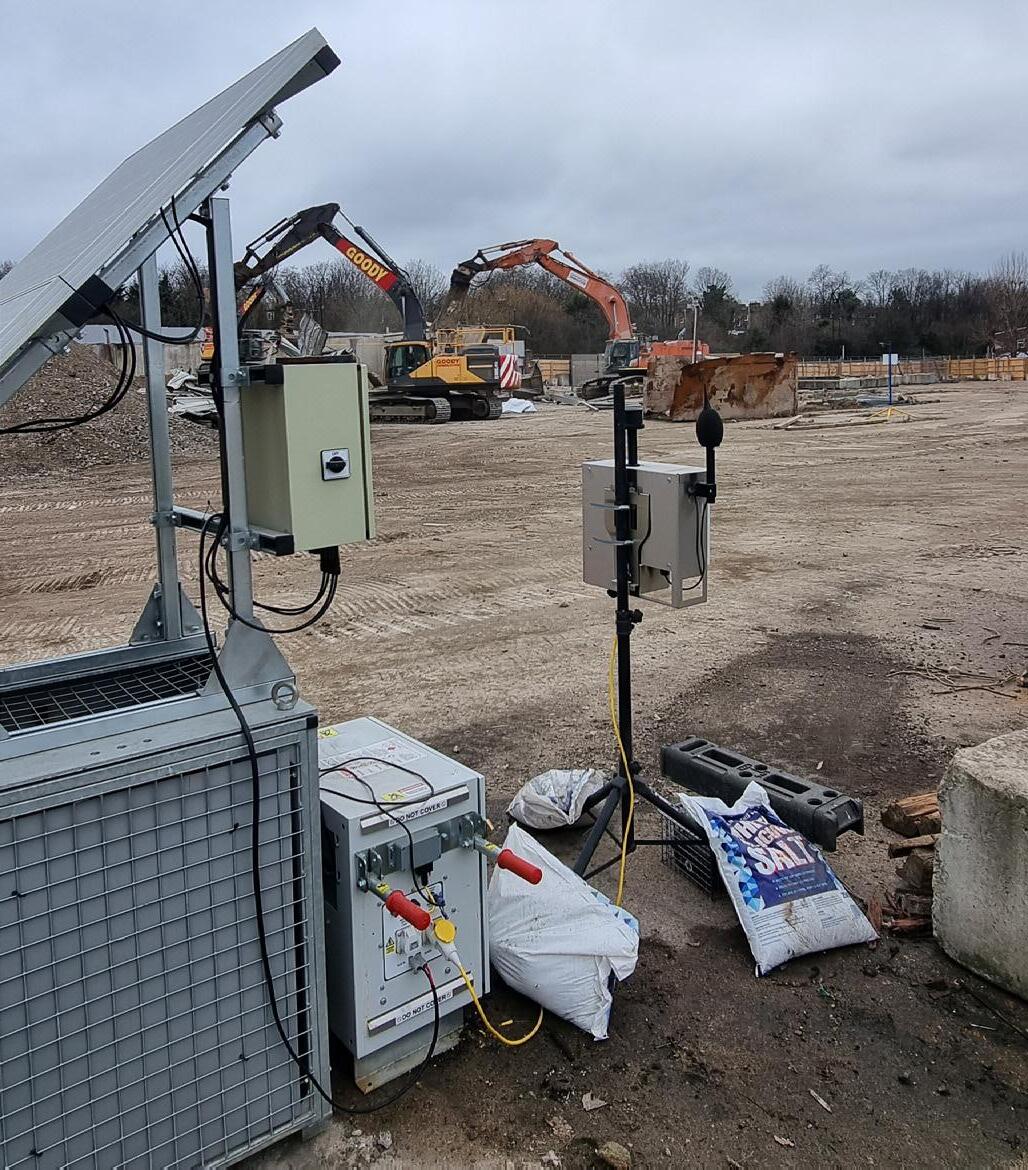
So, just how clean are the options, and are they sustainable?
Hydrogen bottle storage
 Hydrogen fuel cell and solar station
Solar panel
Noise and dust monitor
Hydrogen fuel cell
Hydrogen fuel cell and solar station
Solar panel
Noise and dust monitor
Hydrogen fuel cell
demolitionhub.com 106 | DemolitionHUB Magazine industry
Hydrogen fuel cells
Hydrogen (H2) is a clean, zero carbon emission fuel that is commercially available as a power source for site usage. Hydrogen fuel cells charge batteries that store and distribute power. They are often combined with solar and wind generators, to share the load of charging batteries.
The generation of hydrogen requires energy and can create greenhouse gases. Most hydrogen (95%) is produced by a thermal process where steam reacts with a hydrocarbon fuel (normally natural gas). H2 produced in this way is normally referred to as a grey hydrogen. It is estimated that grey hydrogen production creates three times the greenhouse gases compared to diesel. However, when used, hydrogen power
HVO fuel (Hydrotreated Vegetable Oil)
HVO is a fossil free, renewable and sustainable fuel produced by the hydrotreatment of vegetable oils and/or animal fats. HVO can replace fossil fuel diesel because the chemical structure is almost identical and it meets EN 15940 standards and Fuel Quality Directive 2009/30/EC.
Advantages vs diesel
• Reduction in greenhouse gas/ CO2 emissions by up to 90% compared to standard diesel,
• Improves local air quality – reduction in NOx and particulate matter emissions by up to 30%,
• It will work with current power generators – no modifications,
• Long shelf life – it can be stored in existing diesel tanks.
Disadvantages vs diesel
• Price – typically 15% more expensive than regular diesel,
produces zero NO2, whereas diesel generates a considerable amount. The net result is that the complete process of production and consumption of H2, produces about 50% less CO2 emissions than diesel.
Hydrogen produced by electrolysis of water, generates hydrogen without the direct release of any CO2. This is referred to as green hydrogen. It is currently expensive to produce H2 in this way, and green hydrogen is produced in small volumes.
Advantages vs diesel
• Reduction in greenhouse gas/ CO2 emissions by up to 100% at point of use,
• Improves local air quality – reduction in NOx and particulate matter emissions by 100%,
• Compressed hydrogen bottles are widely available and can be delivered to site,
• Very low noise emission,
• It can be easily combined with wind and solar solutions to reduce H2 consumption.
Disadvantages vs diesel
• It can be more expensive – this depends on the application,
• Requires investment in new hardware,
• Generation of hydrogen can create greenhouse gases.

Summary
Hydrogen fuel cell power systems offer reliable energy for sites with significant savings in CO2 emissions. They offer huge advantages for local urban air quality with zero emissions of NOx and particulate matter.
Local solar or wind
• Limited availability in the UK,
• To be commercially produced it requires large scale crop harvesting, with the preferred being palm oil from rainforests. The devastation and detrimental effect of this on the global ecosystem is well documented,
• HVO production uses hydrogen as part of the process – hydrogen is currently primarily made using fossil fuels,
• With price and availability issues, it is possible that sites will revert to using standard diesel.
Summary
HVO offers an easy solution with big reductions in CO2, although the overall process of producing the HVO will reduce the greenhouse gas savings. There is a moderate improvement in local air quality emissions.
Off grid power systems using solar panels and small wind turbines are a popular solution. There is a purchase investment, but once in place they provide emission free energy.
Advantages vs diesel
• Zero emissions,
• Near zero running costs.
Disadvantages vs diesel
• With extended poor light/ wind, systems will turn off,
• The size of panels required for year-round use prohibits solar panels on many sites,
• Additional power generation is normally needed as a backup.
Summary
Solar and wind offer emission free low cost power for site usage. Unless people on site are willing to change backup batteries in the winter months, then solar is only part of the solution and it should be combined with another source such as hydrogen.
demolitionhub.com DemolitionHUB Magazine | 107 industry
The Big Help Out: Cawarden answers the King’s call
delayed progress within the gardens, so Cawarden offered to provide a 7-t machine and an experienced operator to demolish it free of charge.
As part of the King’s Coronation celebration, Derby-based Specialist Contractor Cawarden participated in The Big Help Out, an initiative designed to encourage volunteering and help local communities.
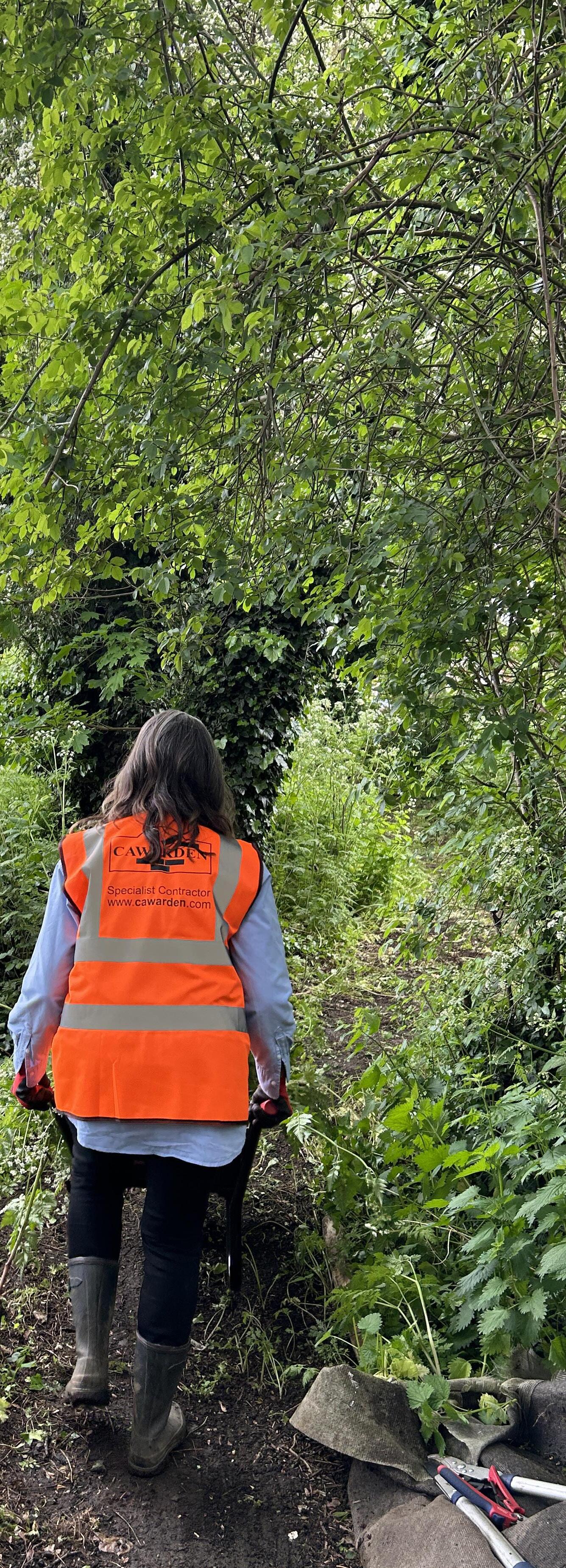
In Derby city centre, Cawarden made a generous donation of its people and equipment to help out at Wilmorton Community Gardens for the YMCA Derbyshire, the custodian of the gardens.
As part of the YMCA Derbyshire’s master plan, a large structure within the gardens had to be demolished. Therefore, Matt Taylor, Youth and Community Manager at YMCA Derbyshire enlisted the help of the demolition experts at Cawarden. The structure had been a problem for some time and had
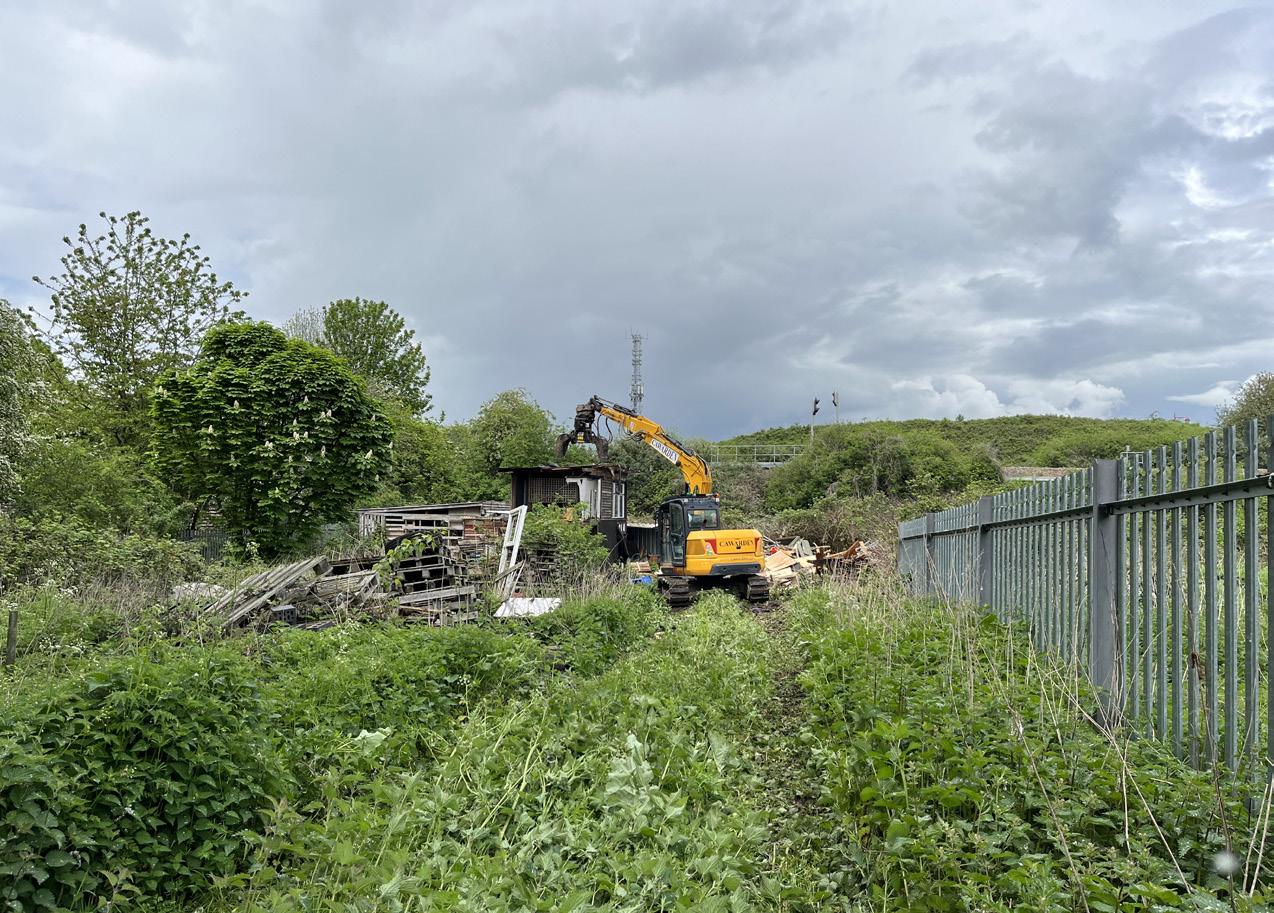
Now that the demolition work has been completed, a new ecosustainability area will be created on the site, with potential plots, forest areas, and learning centres that will provide opportunities for environmental engagement for all ages to get involved.
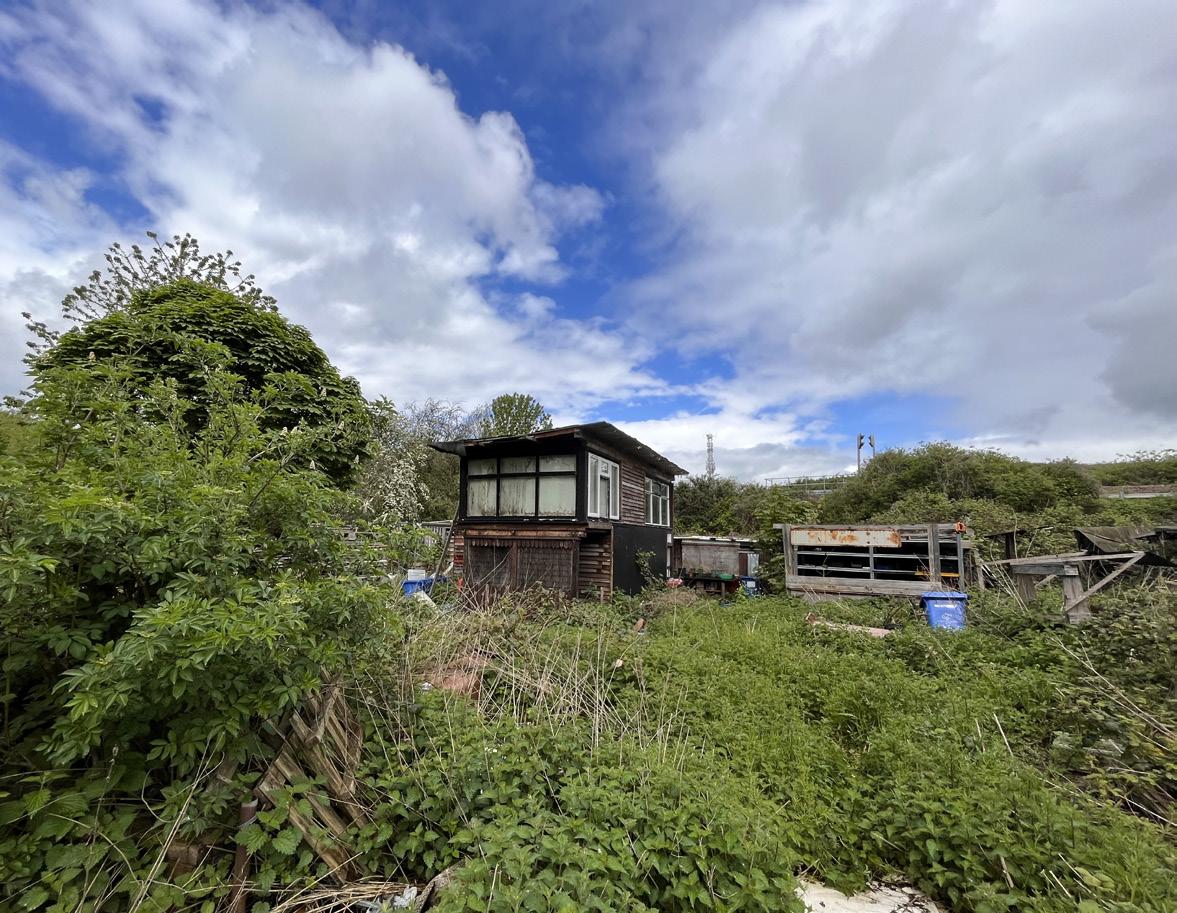

As part of The Big Help Out, staff from Cawarden’s head office in Ockbrook also volunteered to clear a walkway that had become so overgrown that it could no longer be crossed. After the team had completed the labour-intensive work, the newly cleared walkway was ready to be transformed into a new ecosensory trail for the YMCA’s young people and local communities.
Matthew Taylor, YMCA Community and Engagement Manager said: “The Cawarden

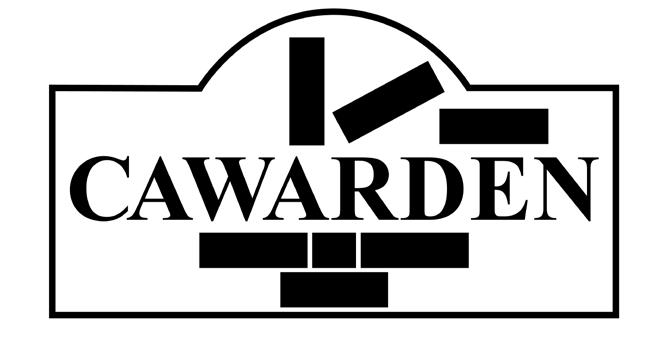 Before: The structure to be demolished
Before: The structure to be demolished
demolitionhub.com 108 | DemolitionHUB Magazine industry
Cawarden makes light work of it
team has been so generous and amazing, thank you. It’s such a relief we can begin a new chapter at the Wilmorton Community Gardens with our eco-sustainability plans for our community – something Cawarden has set the foundations for us to move on positively into this new season. All the money we have saved will be invested into the community gardens whereby we can provide more opportunities for people of all ages to utilise a green space in the city.”
Samuel Crooks, Contracts Director at Cawarden, said: “We have a longstanding relationship with the YMCA Derbyshire and we’re delighted to have been able to carry out this demolition work for them. We know the structure has been an obstacle for some time and has put plans for the gardens on hold. So it’s been our pleasure to clear the site as part of The Big Help Out and pave the way for the next phase of redevelopment that will benefit the community greatly. We wish YMCA the best of luck with the future plans for the site. I am sure we’ll be back soon to see the progress firsthand.”
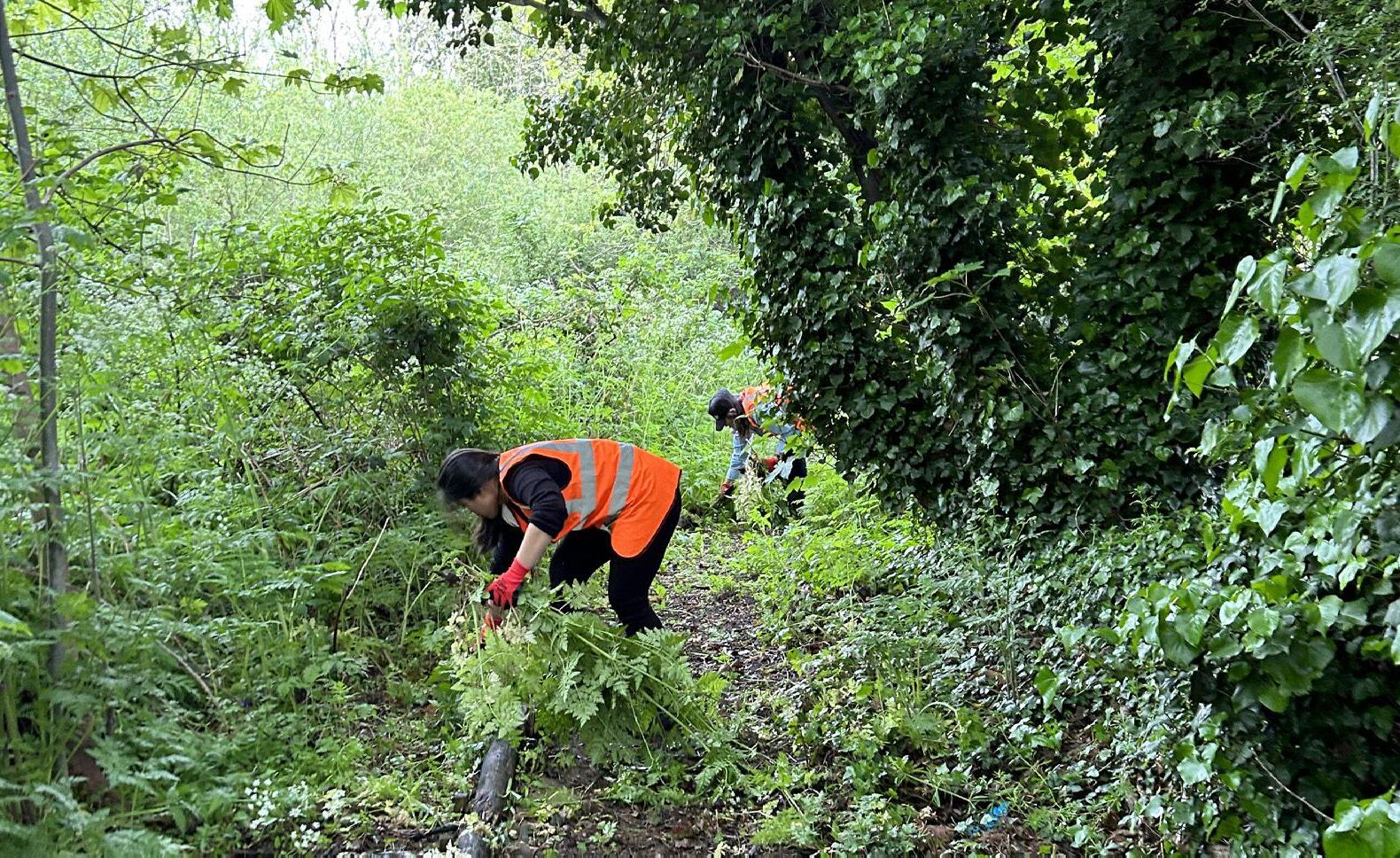
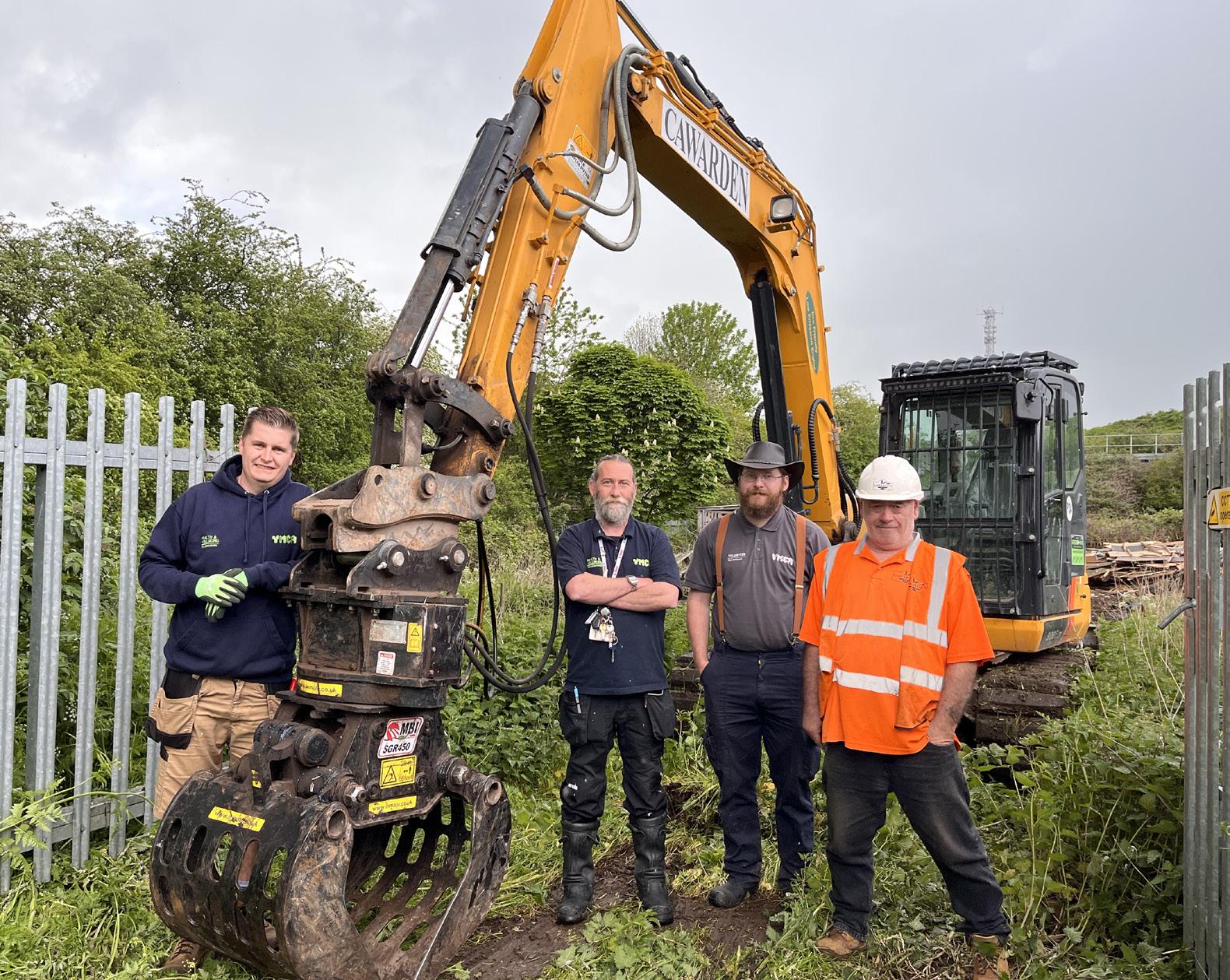
The Wilmorton Community Gardens are a beautiful peaceful space being renovated for growing, contemplating, enjoying company and creating an exciting new venue.
The Big Help Out was announced in January as an event to mark the Coronation in tribute to the King’s public service with the aim of using volunteering to bring communities together and create a lasting volunteering legacy from the Coronation weekend.
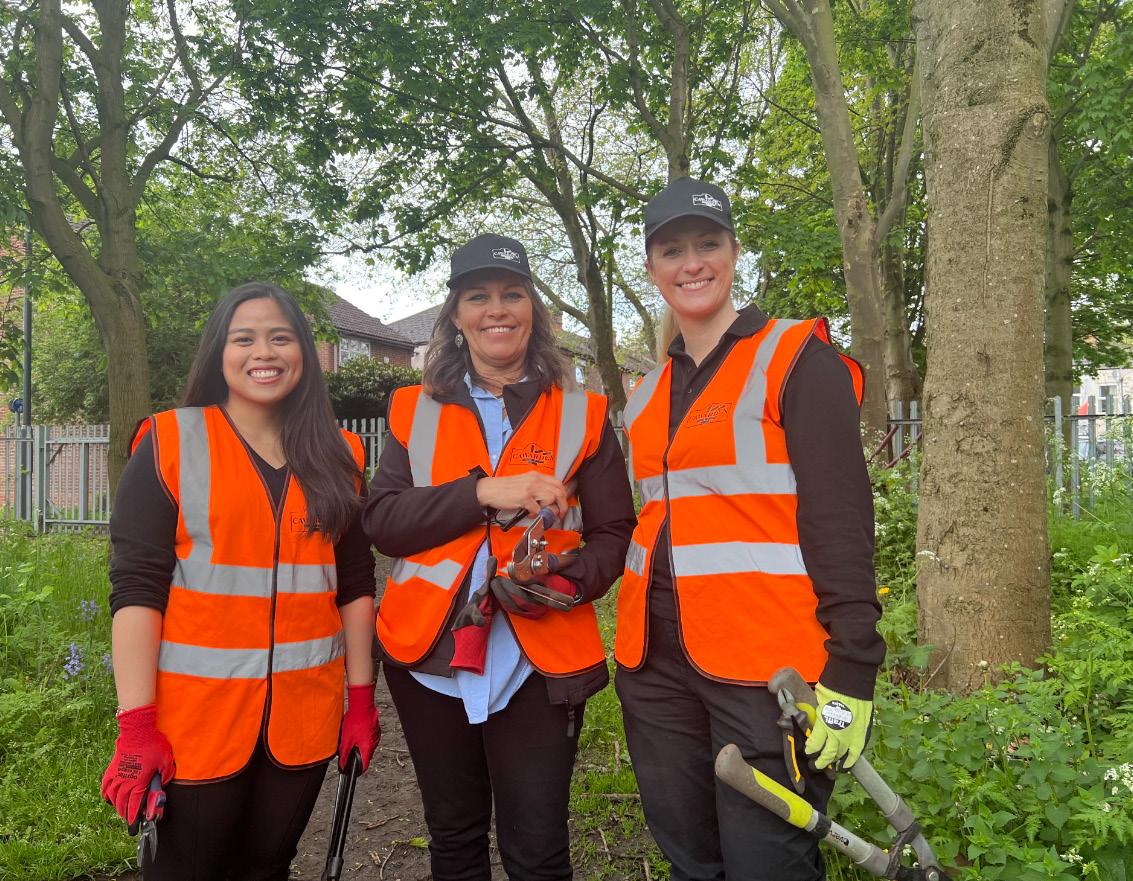 Matt Taylor (left), Youth and Community Manager at YMCA Derbyshire enlisted Cawarden’s help to pave the way for a new eco-sustainability area
Giving back to the community: Aira, Julie and Emma from Cawarden’s head office in Ockbrook got green-fingered as part of The Big Help Out
Matt Taylor (left), Youth and Community Manager at YMCA Derbyshire enlisted Cawarden’s help to pave the way for a new eco-sustainability area
Giving back to the community: Aira, Julie and Emma from Cawarden’s head office in Ockbrook got green-fingered as part of The Big Help Out
“We have a longstanding relationship with the YMCA Derbyshire and we’re delighted to have been able to carry out this demolition work for them”
industry demolitionhub.com DemolitionHUB Magazine | 109
Cawarden clears the way
CASE European Roadshow
CASE customers and the media from across Europe will have the chance to try a wide range of machinery at events as the CASE European Roadshow returns for 2023. The first event took place on 6 and 7 May near Munich, to be followed by Milan on 26 and 27 May, close to Paris on 6 and 7 June and the in UK in September.
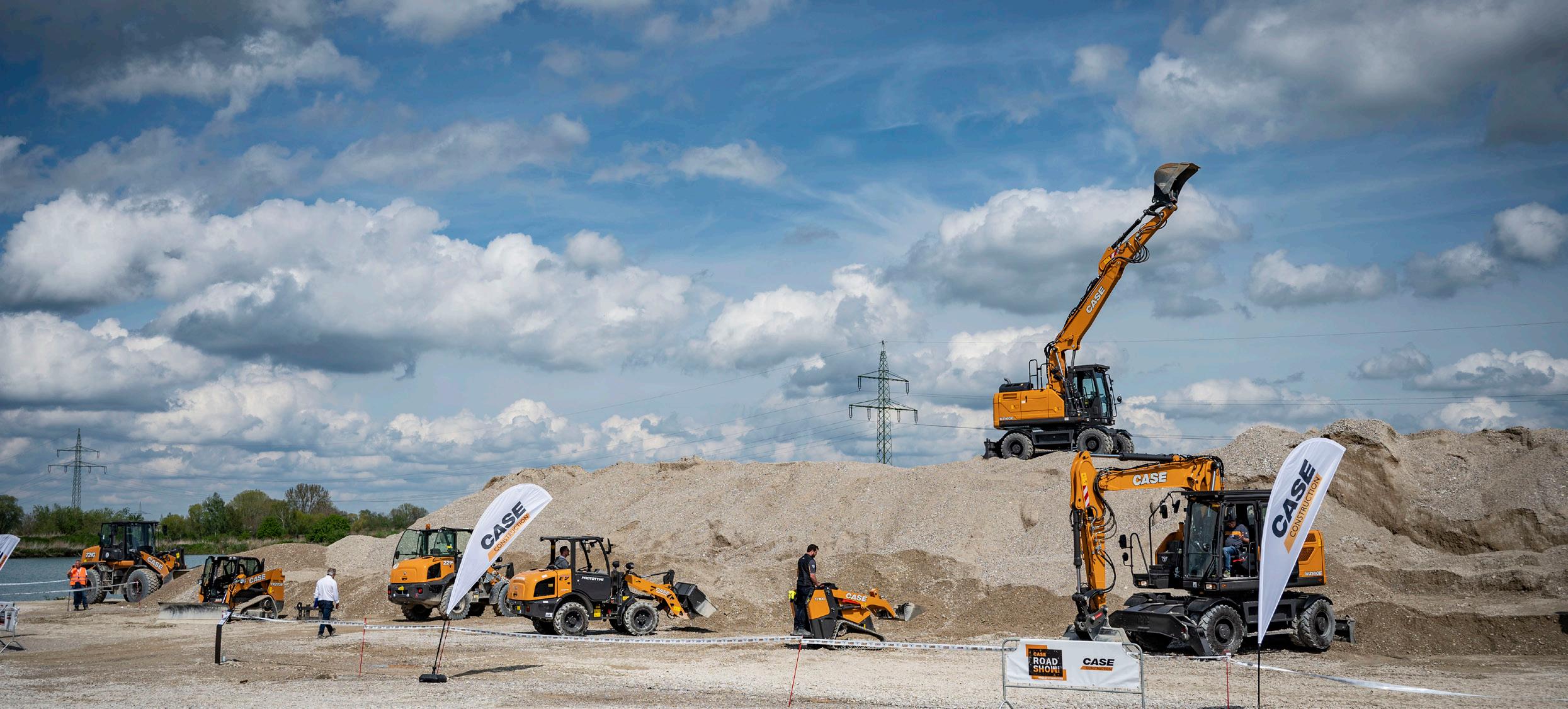
Digitalisation, community, innovation and sustainability will be the focus of the roadshow events, as the company demonstrates customised digital solutions and innovative technologies along
with 100% electric machines for a sustainable future.
Recently launched machines such as the new CASE wheeled excavators will be available to test, represented by the WX140E, WX155E SR, WX160E and WX175E SR.
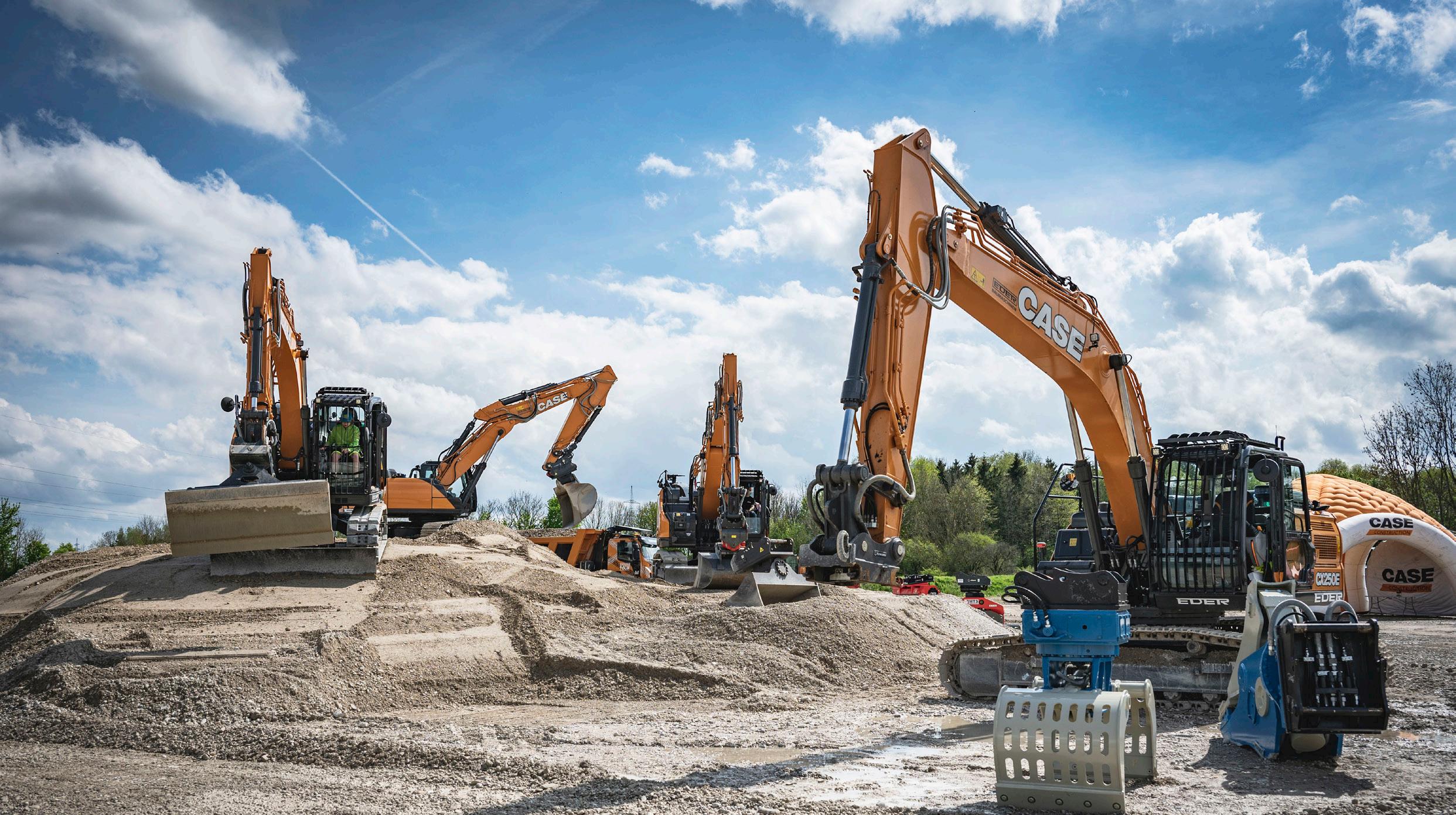
The new 836C and 856C graders will also be on the show, complete with innovative new electrohydraulic controls, joystick steering systems and improved operator comfort and controllability.
There will of course be an opportunity to try a number of models from the successful mini excavators D-Series and the new E-Series crawler excavator lineup, and customers may also like to take


the controls of the B-Series compact loaders such as the new TV450B.
The D-Series mini excavator range at the roadshow will include the preview of the second fully electric model: CX25EV, which will be launched in the second half of 2023. It has a 25 kW electric motor with a 32.3 kWh lithium-ion battery that can be recharged in less than two hours with an external fast charger and provides a full working day autonomy in standard working conditions for a mini excavator of this size.
CX25EV is characterised by the same cutting-edge technology of CX15EV: fully electro-hydraulic controls and the possibility to
demolitionhub.com 110 | DemolitionHUB Magazine industry
“The CASE roadshows take our machines to our customers, through tailored, localised events, that provide them with hands-on experience through dedicated field activities”
customise every single movement of the machine via a digital instrument cluster.
There will be also the preview of the first E-series Midi: CX75E, a 7.5-t excavator featuring a two-piece boom, which will also be launched later this year.
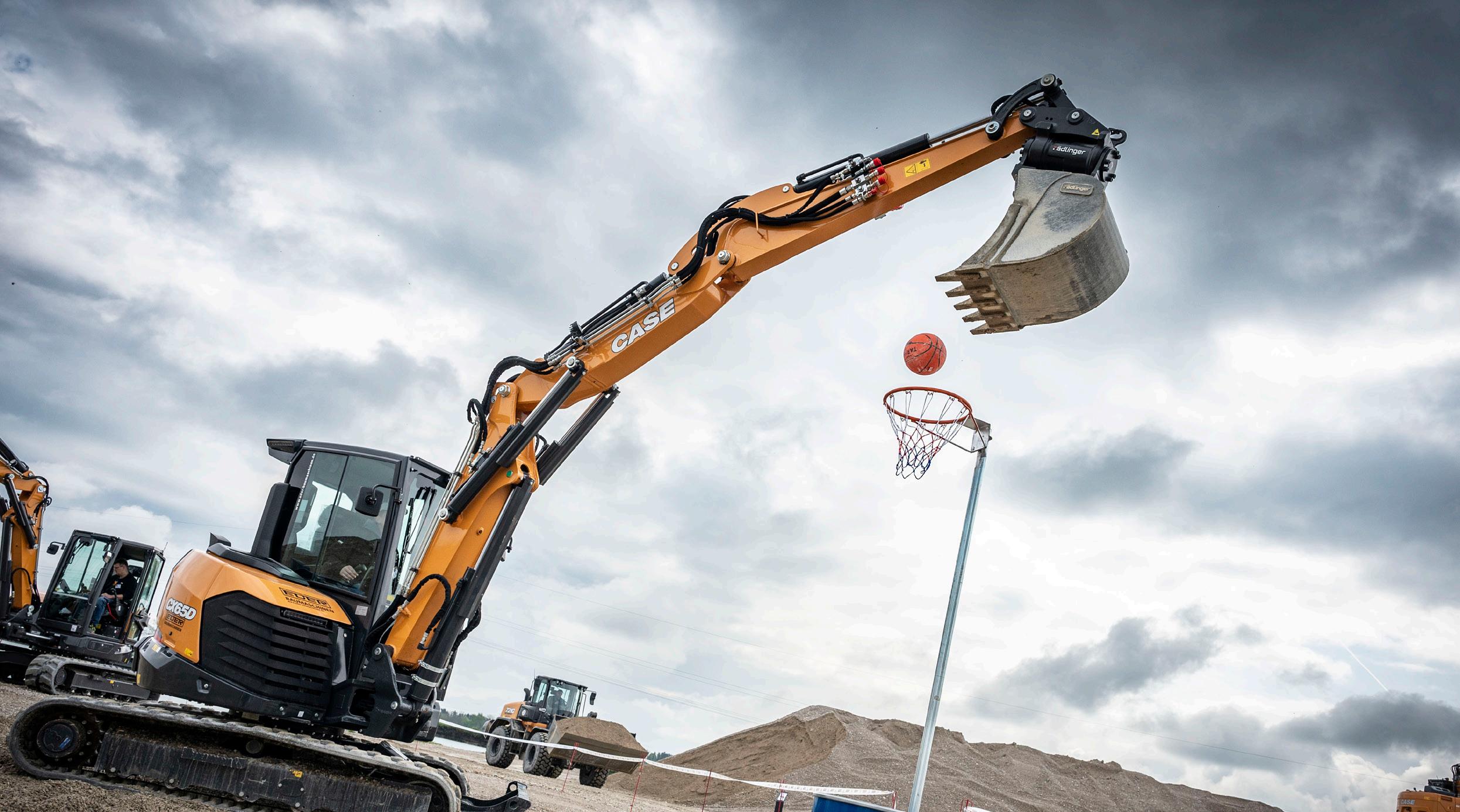
In a modern and functional style, it carries over the same great features of its smaller brother CX65D. These include CASE’s unique Electronic Open Circuit (EOC) hydraulic system, which increases productivity and reduces emission levels; efficient cooling system with self-cleaning radiator; a big digital instrument cluster where it’s possible to monitor all the functionalities of the machine and set hydraulic flow of all the auxiliary circuits (up to three). And it does that with a heavier and wider undercarriage and longer arm, therefore providing more stability and longer digging depth and reach, for greater productivity and performances.
Also on display will be the new 221F compact wheel loader, which represents the new F-Series Evolution range, from the smaller 21F and 121F, through to the larger 221F and 321F.
The Evolution models feature an upgraded operator compartment, with a brand new display with encoder and keypad, providing
access to all machine functions and readings, along with a number of upgraded electrohydraulic features added to improve operation.
The larger 221F and 321F will be available in two speed ratings, the 20 kph standard speed and the new high-speed 40 kph version. Connectivity features are also improved with the same modem installed on large wheel loaders, to open new opportunities of integration into customer’s fleet management systems.
CASE will also give a sneak preview of the prototype 12EV electric compact wheel loader. This 3.6-t machine will be offered, in cabin and canopy versions, with a 0.5 m3 bucket capacity and will feature all of the Evolution upgrades. The 12EV is powered by a 23 kWh lithium-ion battery that, with a charge time to 80% of six hours using a domestic 230V power supply, or just one hour through an optional off-board fast charger, will deliver three to six hours of operating autonomy, depending on the task.
Federico Bullo, Head of Europe, Construction Equipment CNH Industrial said: “The CASE Roadshows take our machines to our customers, through tailored, localised events, that provide them with hands-on experience through dedicated field activities.”
Back by popular demand Operators will have the opportunity to take part in the popular CASE Rodeo challenge, demonstrating their skills at the controls and highlighting the flexibility, speed and efficiency of a range of CASE equipment.
Federico Bullo Head of Europe, Construction Equipment CNH Industrial, said: “We have recently celebrated having all of our dealer partners together for the European Dealer Convention and it will be great to see our customers again at our roadshows around Europe.”
The German and Italian legs of this year’s roadshow took place in May and were a great success. The show travels to France at the beginning of June and will return to the UK in September.
Visitors to the event will have the exclusive opportunity to evaluate the new MTL mini track loader prototype, which has recently been launched at CONEXPO for the US market.
Boosting uptime and customer peace of mind with CASE® Service Solutions
CASE Service Solutions, a range of connected and non-connected aftersales services, will also be presented during the roadshows. They are designed to further boost the productivity, profitability and uptime and support customers’ experiences of CASE equipment. Roadshow visitors will also learn about the extensive parts offerings provided by CASE.
demolitionhub.com DemolitionHUB Magazine | 111 industry
DEVELON fleet helps clear site of former Innocenti factory
An impressive fleet of machines from DEVELON (formerly known as Doosan Construction Equipment) has been at work for about a year in recovery work on the longabandoned area of the former Innocenti factory in the Rubattino district, on the outskirts of Milan in Italy. This part of the Lambrate region has previously experienced depopulation and the closure of manufacturing sites.
It is a 400,000 m2 construction site, one of the most important in the city, where various DEVELON machines are carrying out the demolition of the yards, targeted reclamation, screening and recovery of materials.
Five DEVELON excavators including DX350LC-7, DX340LC-7, DX300LC-7 and DX245NHD-7 models equipped with grapples, hammers and crushers are
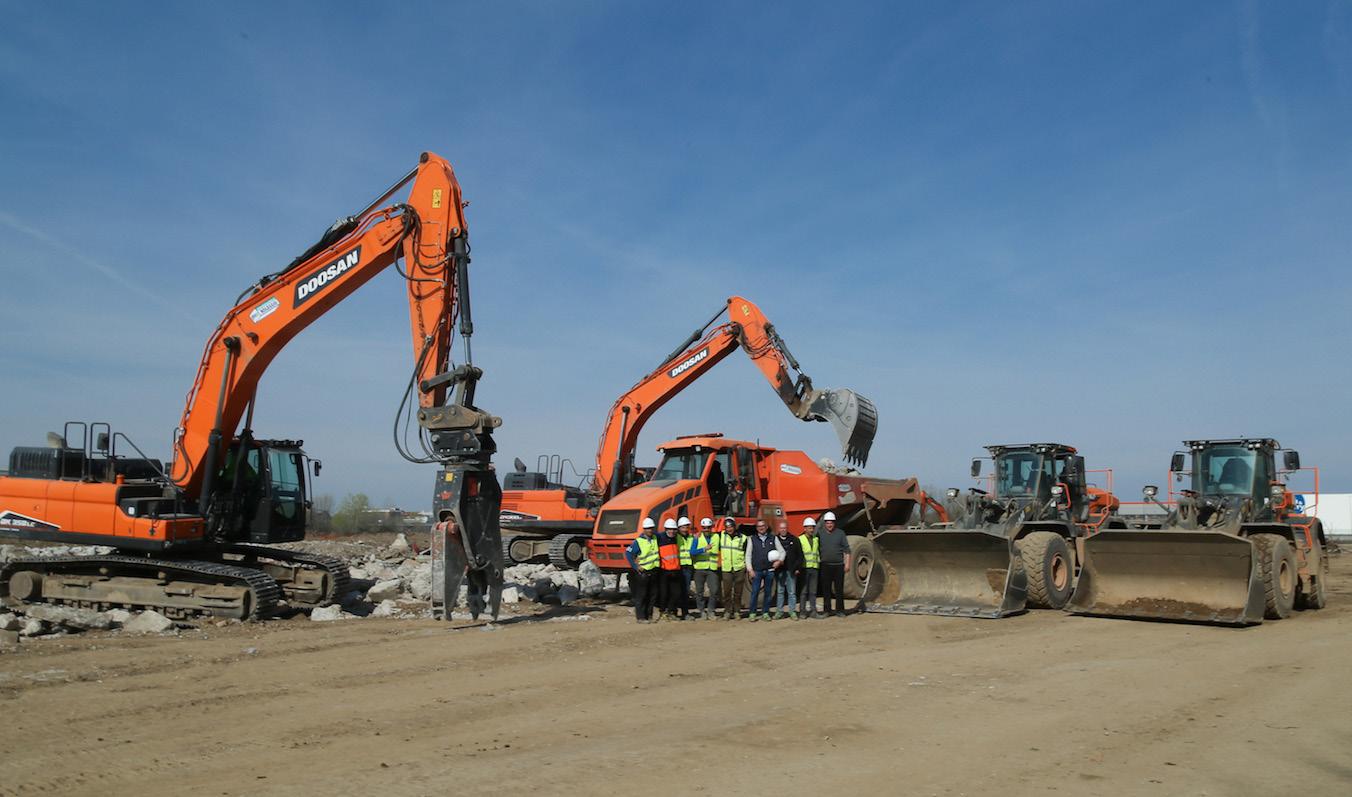
dedicated to the demolition of floors, crushing the reinforced concrete to be able to separate out the rebar. The rubble produced is then moved for screening on site by two Doosan DL380-7 wheel loaders and a Doosan DA30 articulated dump truck (ADT).
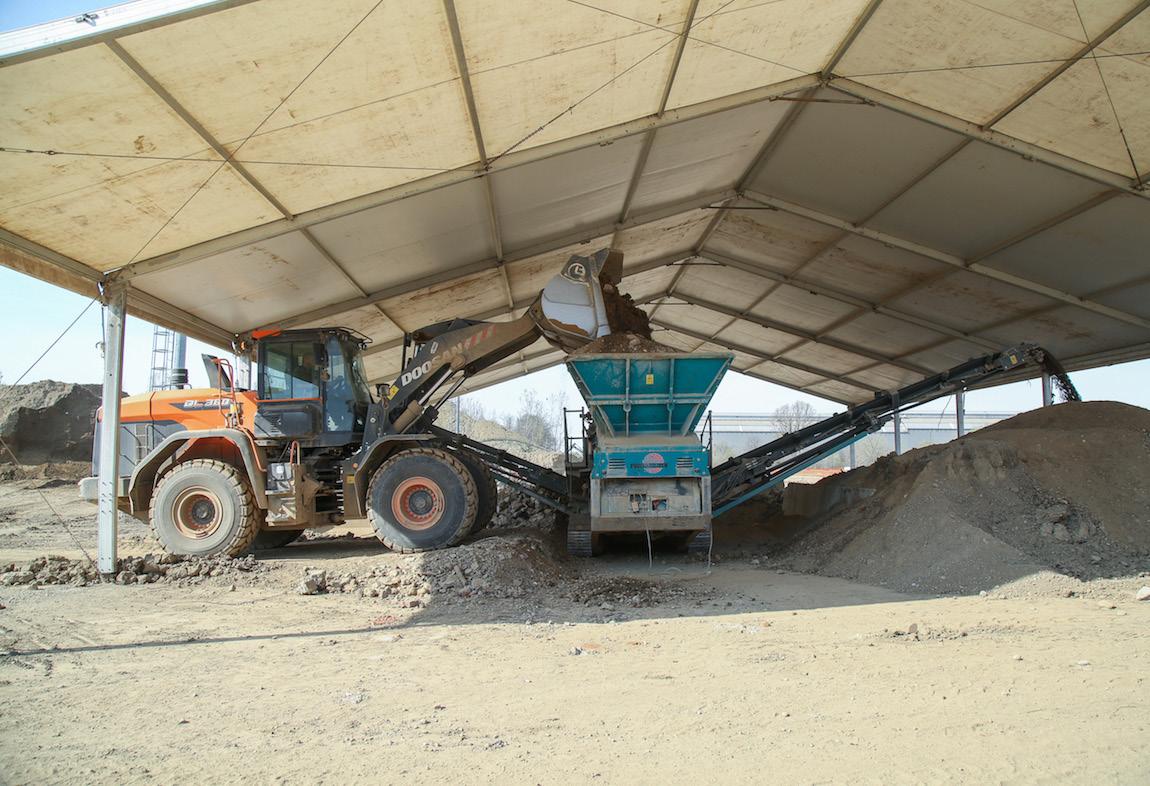
Once the demolition has been completed, which is scheduled for July 2023, part of the 70,000 m3 of screened material will be used as raw material to build the base on which an imposing logistics centre will be built, occupying a large part of the area. Excess material will be sent to authorised external facilities.
All of the site’s activities are managed by Turin-based Unica SpA company, one of the leading Italian groups in the sector of reclamation, recovery and development of the urban and industrial areas of


decommissioned industries.

With its integration of skills, Unica SpA is able to operate with four industrial divisions – reclamation, demolition, construction and projects/investments – having all the necessary personnel and means all available in-house. Unica SpA currently has a permanent staff of over 100 employees. In 2022, more
than 100 contracts were completed and over 110,000 tonnes of waste was disposed of or sent for recovery, with the company’s constant
“For three years we have been using DEVELON machines, with which we are fully satisfied both in economic terms but above all in terms of meeting our needs”
demolitionhub.com 112 | DemolitionHUB Magazine industry
commitment to environmental sustainability, ranking it among the top five national companies in the sector.
Unica SpA not only manages impressive construction sites in the Milan area, the company has been active on important work in Cortina for the demolition of the old ice bobsled track aimed at the construction of the new Olympic track.
For all of these activities, Unica SpA has chosen to rely on DEVELON machinery.
Paolo Andreini, President of Unica SpA, said: “For three years we have been using DEVELON machines, with which we are fully satisfied both in economic terms but above all in terms of meeting our needs, thanks to their undisputed quality. Our DEVELON fleet consists of over 30 machines, all of which we own, including excavators of all sizes, loaders and dump trucks.
“We are a well-capitalised

company able to directly support investments to deal with the important orders that we continue to acquire. This policy is giving us important results and this is possible thanks to excellent partners such as DEVELON and the dealer, DMO, in the figure of Gianmaria Lupis, whom I know I can count on for every need.”
Gianmaria Lupis, DMO commercial manager for Lombardy, said: “The fully trusted commercial relationship between Unica SpA and DMO is continuing to translate into important equipment orders. In just three years, DMO has supplied a complete fleet of machines, from the 8-t DX85 mini-excavator to the DX140LC-7 to several DX245NHD-7, to the demolition machines, as well as several DX300LC-7, DX340LC-7, DX350LC-7 and DX380LC-7 excavators, DL300-7 and DL380-7 wheel loaders and two DA30 dump trucks.
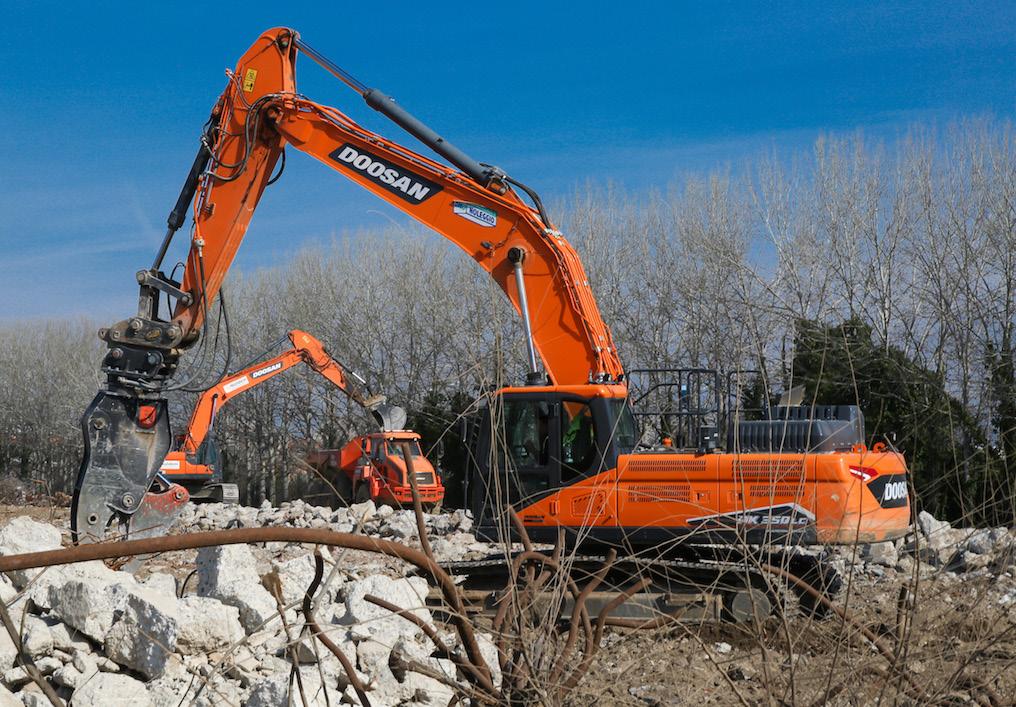
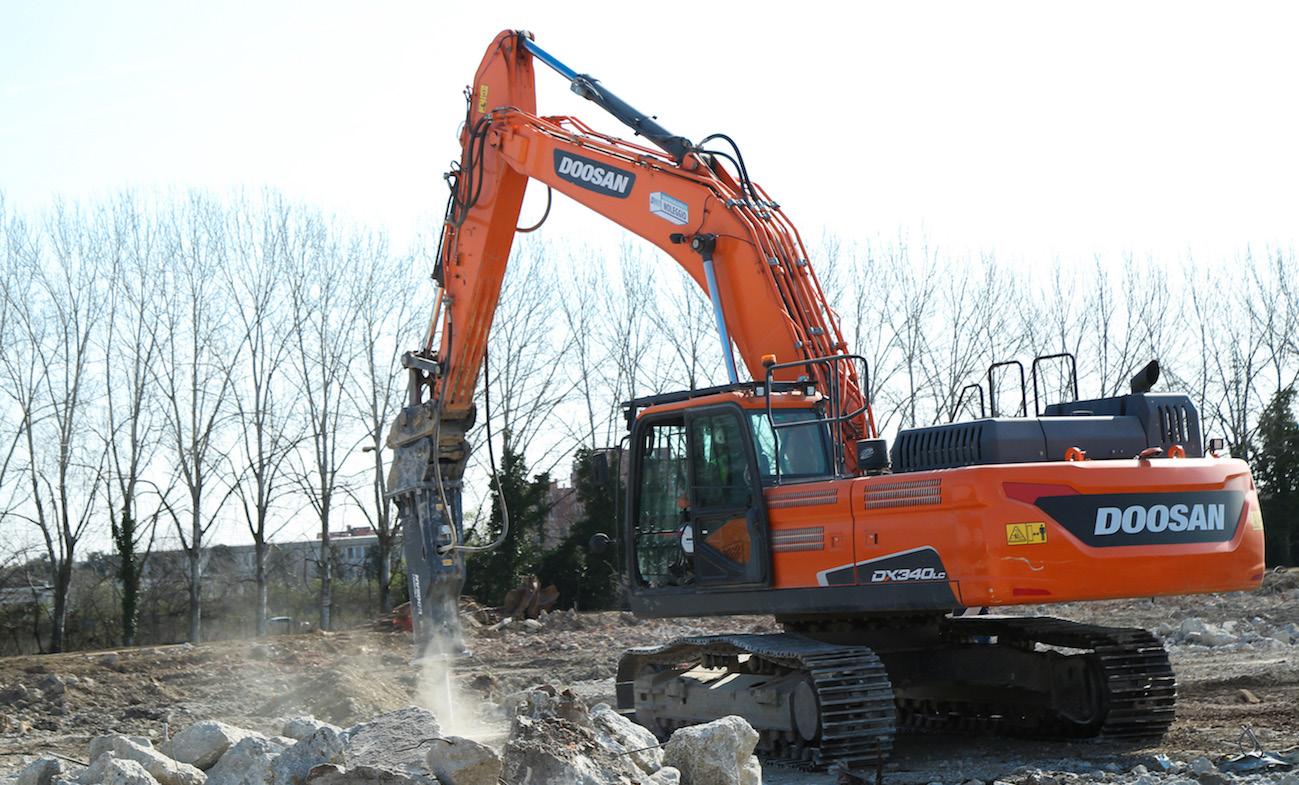
“All the numerous accessories and attachments we have are also strictly DEVELON. The excellent relationship with the president Paolo Andreini is also due to the fact that he knows he can count on the complementary services that DMO guarantees, such as fast rental for emergencies and the continuous specialised assistance service directly on site, essential considering the number of DEVELON machines constantly at work.”
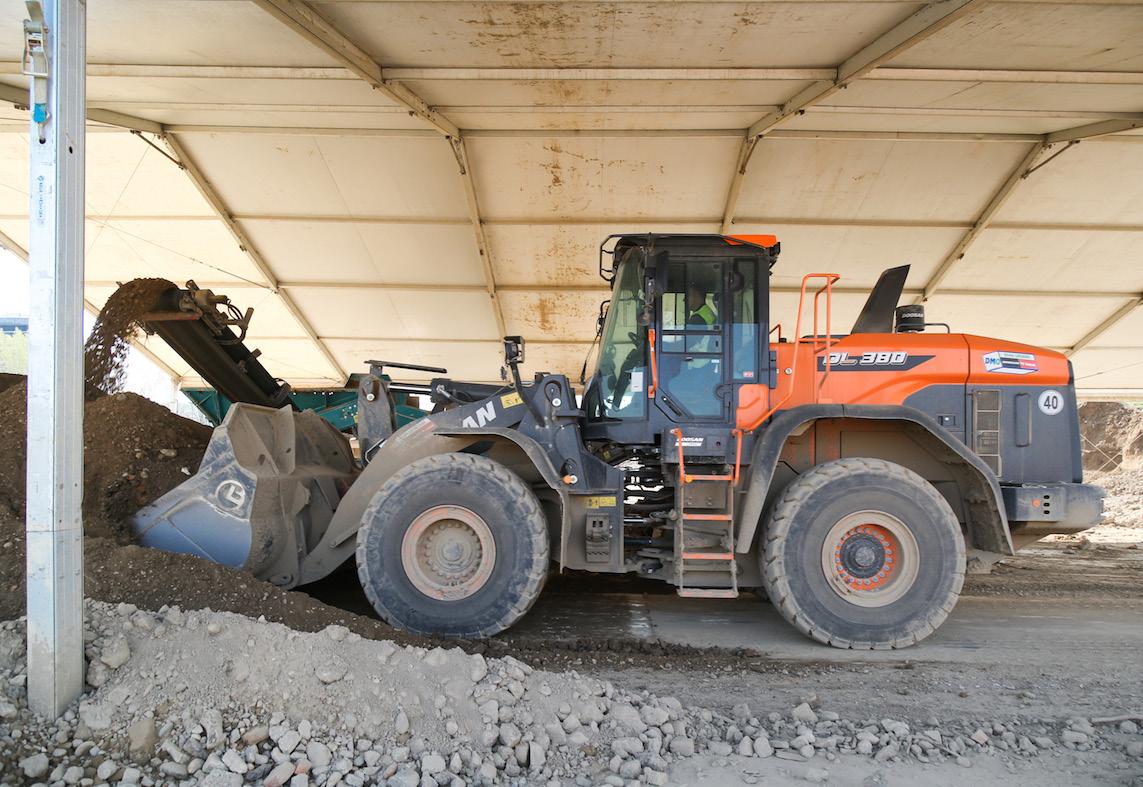
demolitionhub.com DemolitionHUB Magazine | 113 industry
“All the numerous accessories and attachments we have are also strictly DEVELON. The excellent relationship with the president Paolo Andreini is also due to the fact that he knows he can count on the complementary services that DMO guarantees”
Keestrack plug-in electric crushing and screening used to build house out of 75% recycled concrete and demolition waste
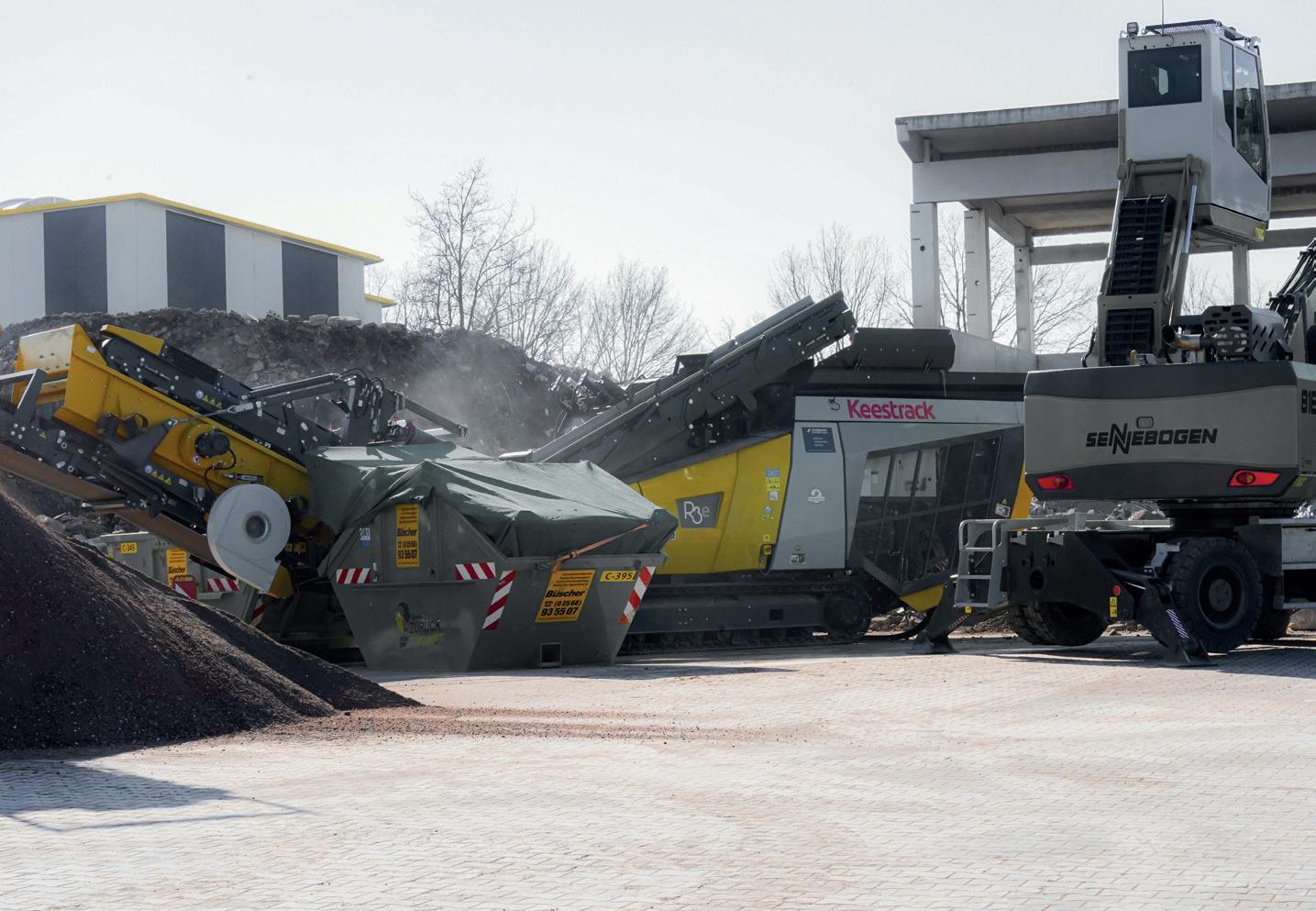
German concrete producer Büscher is the first company in the world to build a house out of 75% recycled construction and demolition waste, with load-bearing and nonload-bearing interior wall elements made of 100% recycled aggregates. In doing this, it called upon Keestrack ZERO drive crushers and screeners.
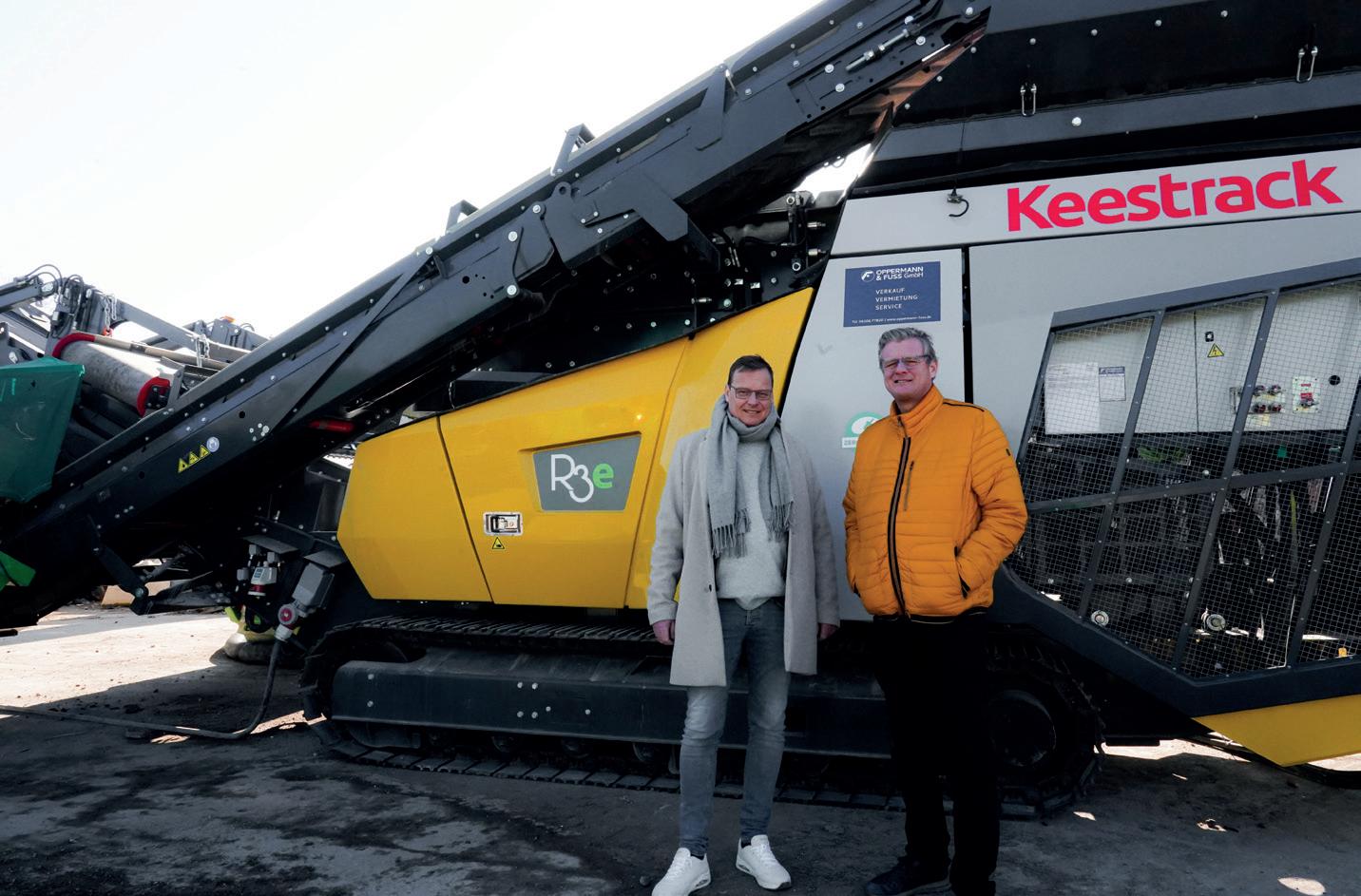
The recipe has changed
When it began operations in 1961, Büscher made concrete like everybody else; from gravel, sand, cement and water. Today it has replaced the sand and gravel with 100% construction and demolition waste to produce prefabricated loadbearing and non-load-bearing interior wall elements.
Convincing authorities that this could be the future was not easy – it took eight years of research and development to get 100% prefab concrete certified.
Wolfgang Büscher said: “Concrete specialists, laboratories and certification specialists were very doubtful this could be done. They all said it was impossible and not legal.” So Büscher asked researchers from laboratories and universities to prove precisely what the material was and was not capable of.

Hans-Jürgen Büscher said: “All [the] scientific research has been done and it shows exactly what is possible with the 100% recycled prefab concrete and concrete elements. The new material functions perfectly.”
Dr Wolfgang Breit of the Technical University Kaiserslautern said: “The quality is good because Büscher took the right measures from the acceptance of the construction and demolition waste, the processing of the material and the use in the prefab concrete and concrete elements.”
The main advantage of this
 Wolfgang and Hans-Jürgen Büscher with the full electric plug-in R3e ZERO impact crusher
The R3e ZERO impact crusher with wind sifter operates with zero CO2 emissions
Wolfgang and Hans-Jürgen Büscher with the full electric plug-in R3e ZERO impact crusher
The R3e ZERO impact crusher with wind sifter operates with zero CO2 emissions
demolitionhub.com 114 | DemolitionHUB Magazine industry
certified production process is its efficiency of resources, using cheap, locally available materials to produce a sustainable, climate neutral product.

Thomas Overbeeke, Operations Manager of Büscher said: “No costly raw materials are used so the price of the end products is also lower, a real win-win situation.”
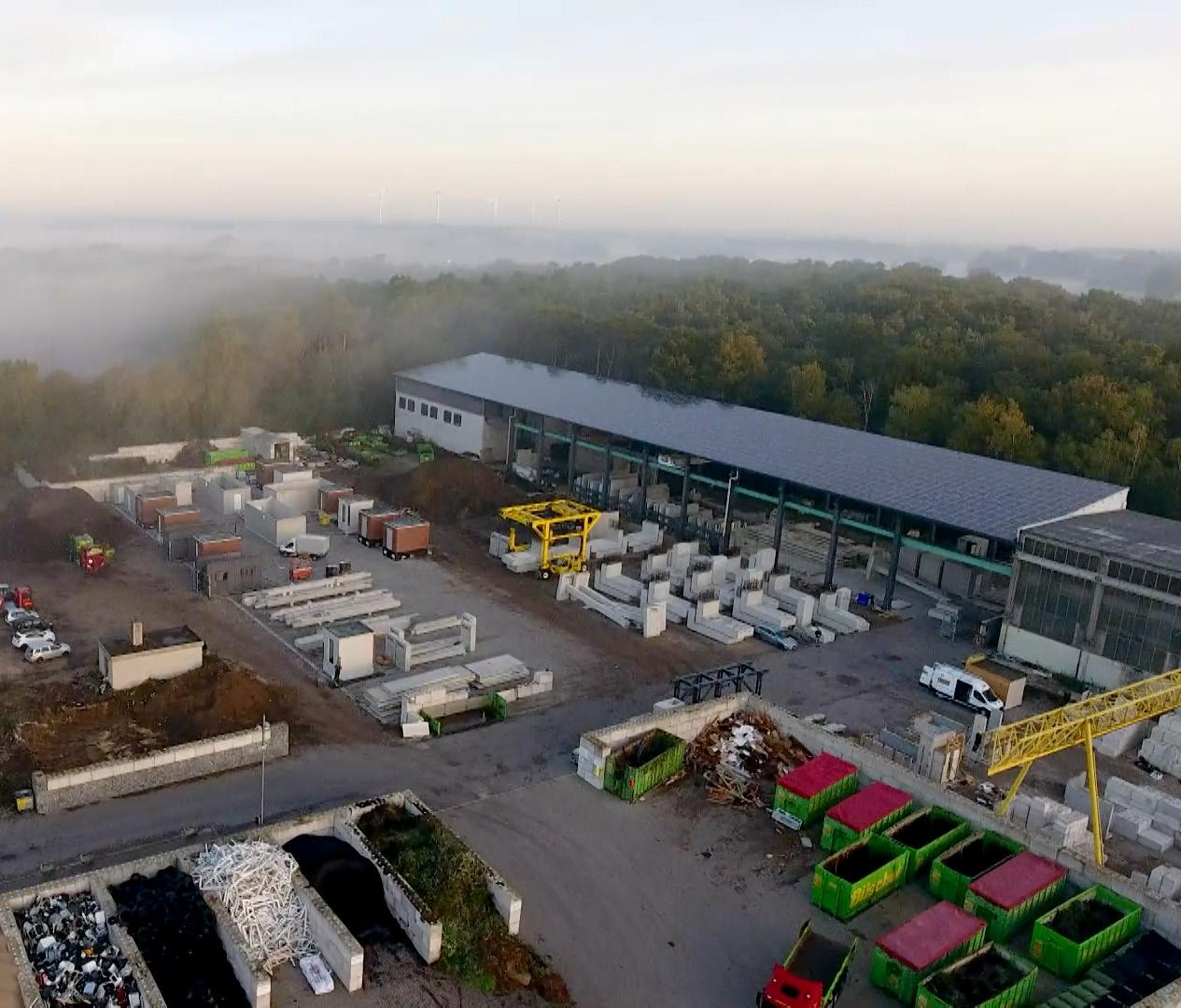
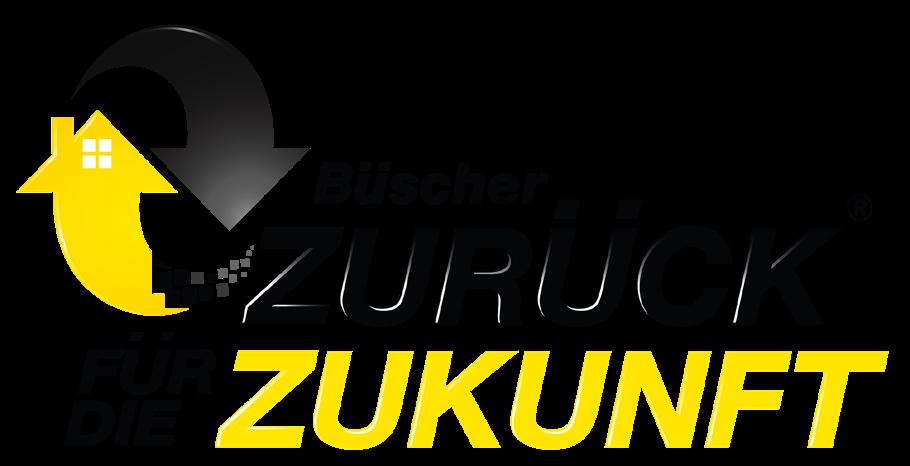
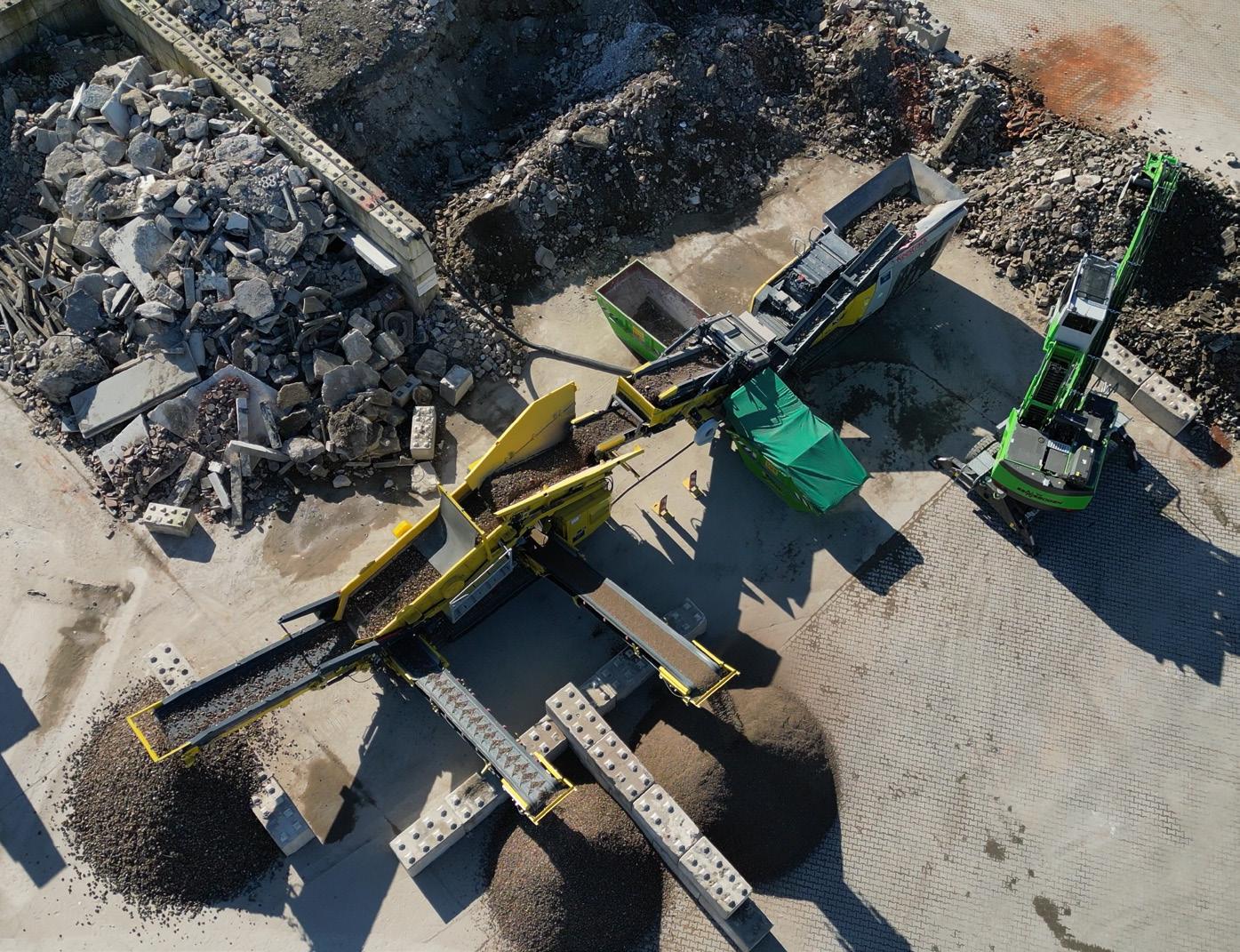
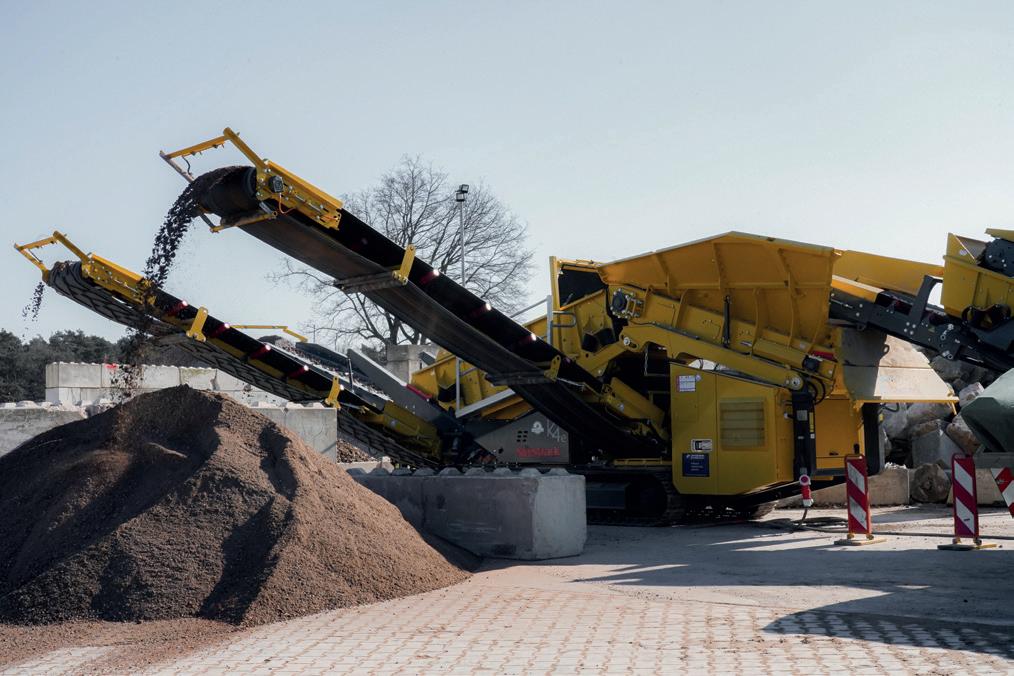
It may have taken eight years to develop and certify the process, but it only took four months to build a house from fully recycled material. Piping and electricity are integrated in the panels, which are paint-ready with no need for plaster. And when it is time to demolish it, it will be recycled into new concrete using the Büscher method.
Keestrack ZERO-drive
Obviously a sustainable product should be produced with sustainable equipment and the majority of the Keestrack product range is available in ZERO-drive.
In this case, both the Keestrack R3e ZERO impact crusher and the K4e ZERO screen were fully powered by zero-carbon electricity from the Büscher recycling site’s 323 kW photovoltaic solar panels. With no engine to maintain, operational and maintenance costs are low.
R3e ZERO impact crusher and
K4e ZERO screen
With its innovative technology and safety features, the R3 impact crusher has won several European design prices, one of them being the Red Dot award. The R3e ZERO has a capacity of 250 t/h and is equipped with a vibrating feeder and independent pre-screen of
The K4e ZERO connected to the plug out functionality of the R3e ZERO, all powered by sustainable solar energy
The R3e and K4e ZERO from the air
Back for the future – The Büscher logo encapsulates the use of prefab panels and elements to build houses sustainably in the circular economy
demolitionhub.com DemolitionHUB Magazine | 115 industry
Büscher’s solar roof electrifies the Keestrack R3e & K4e ZERO
1,200 x 920 mm to optimise crushing results and minimise wear; an inlet opening of 770 x 960 mm; a rotor diameter of 1,100 mm and a rotor width of 920 mm.
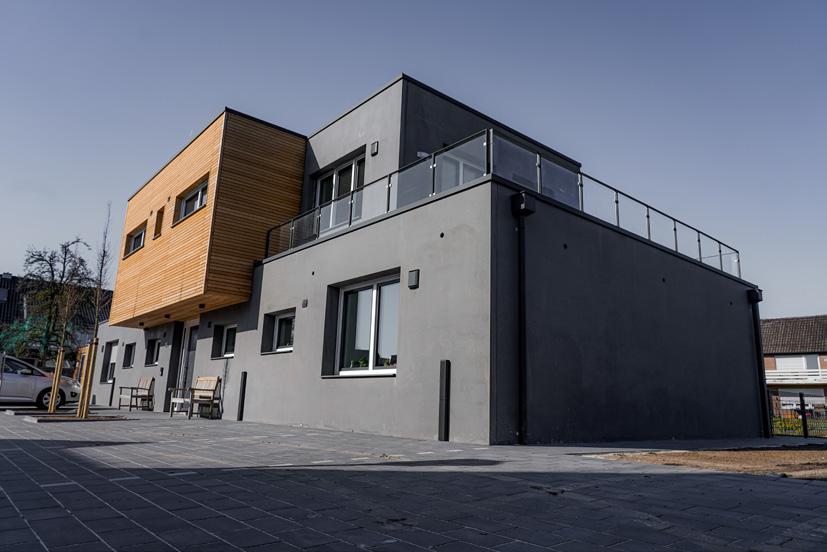
Equipped with a recirculation conveyor and a hanging screen of 3,100 x 1,400 mm, the crusher produces a defined aggregate product size. A wind sifter eliminates plastics, wood or paper and the overband magnet separates metals. The R3e ZERO weighs 32 t and its
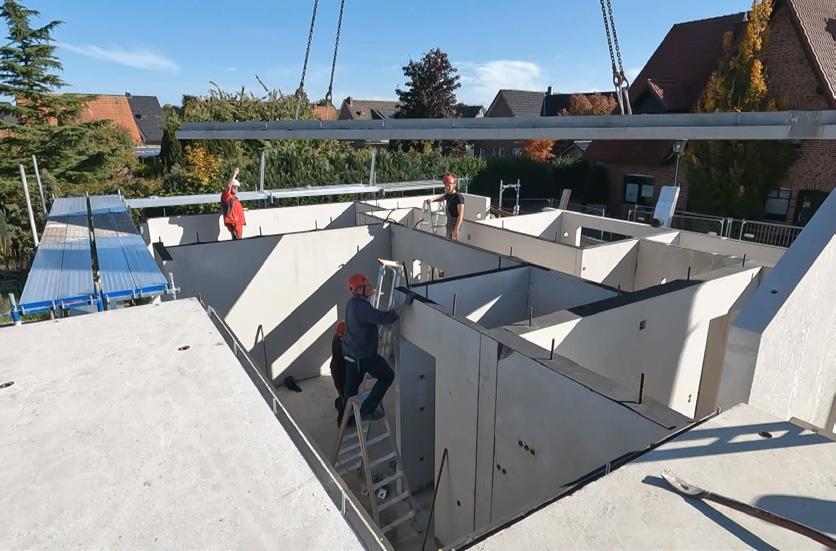
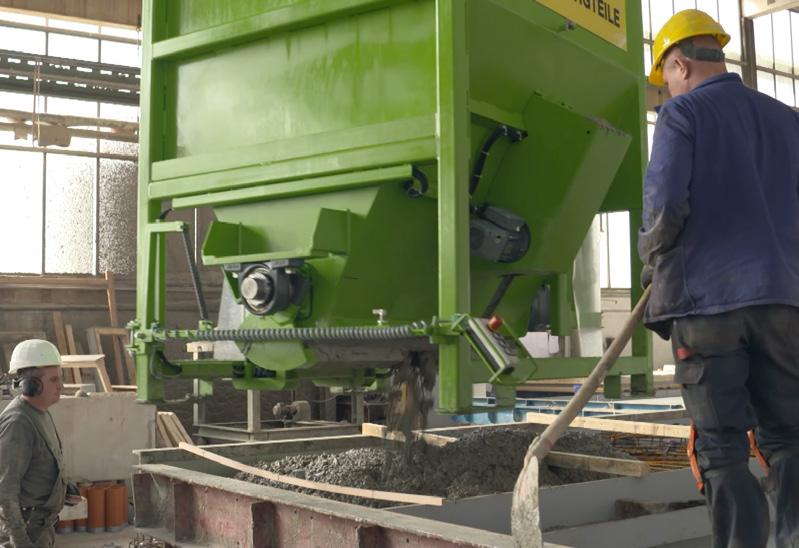
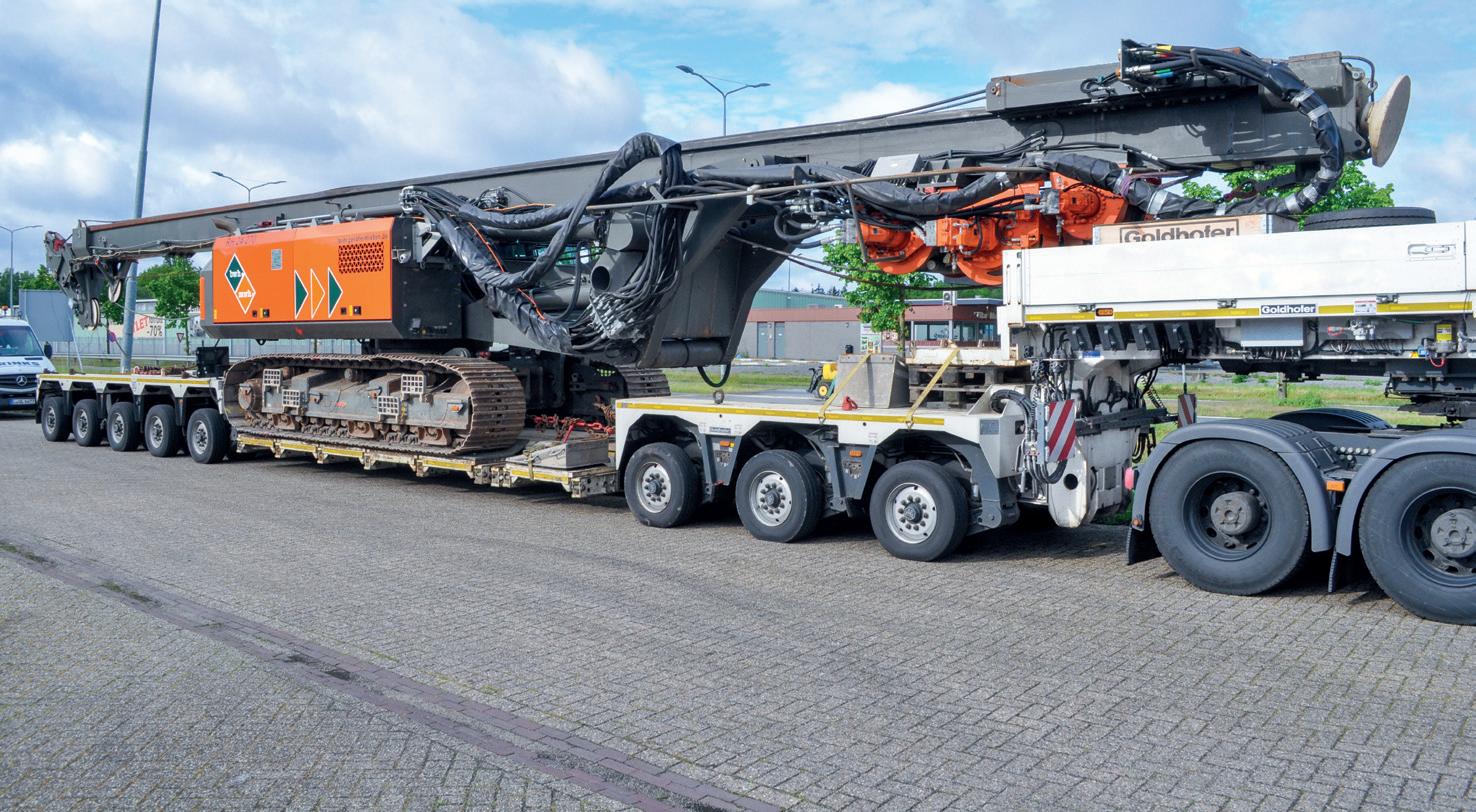
125A plug-out powers the connected 28-t K4e ZERO.


The K4e ZERO has a capacity of up to 350 t/h. The 4,200 x 1,500 mm double deck screen box, standard heavy-duty plate apron feeder and hydraulic adjustable screen angle give it very good screening capabilities with numerous options and screen decks making the K4 highly versatile.

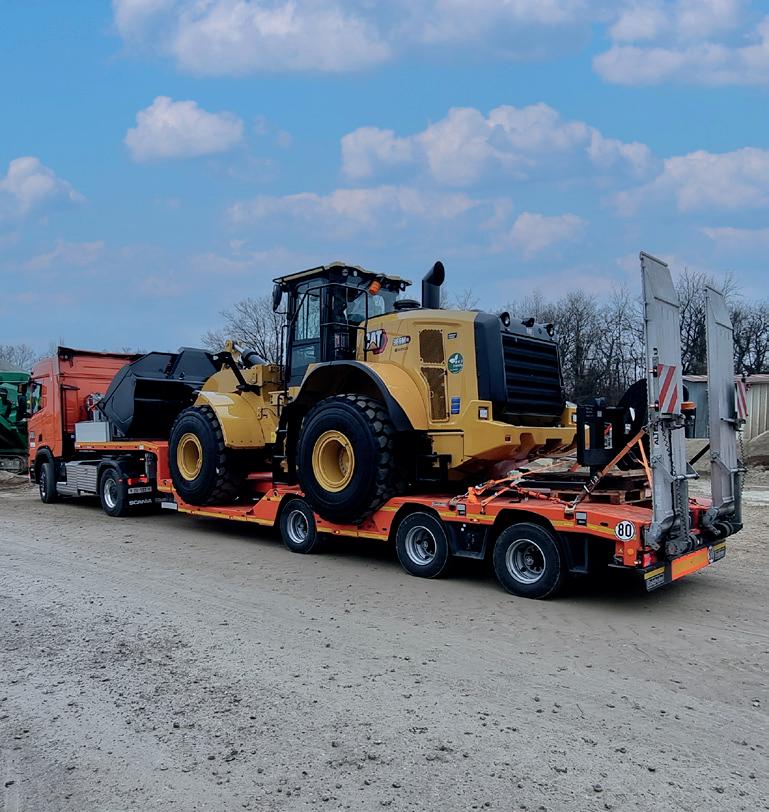
Both Keestrack machines at Büscher are equipped with remote controls to operate the crusher
and screen from an excavator and are fitted with the Keestrack-er UMTS system. This telematics system provides real-time data and analytics, enabling you to check both the location and functioning of the machines. The system can run diagnostic tests for all components including the feeder, screen, crusher and conveyors and if necessary, carry out remote software updates and coordinate with approved dealers for maintenance planning.
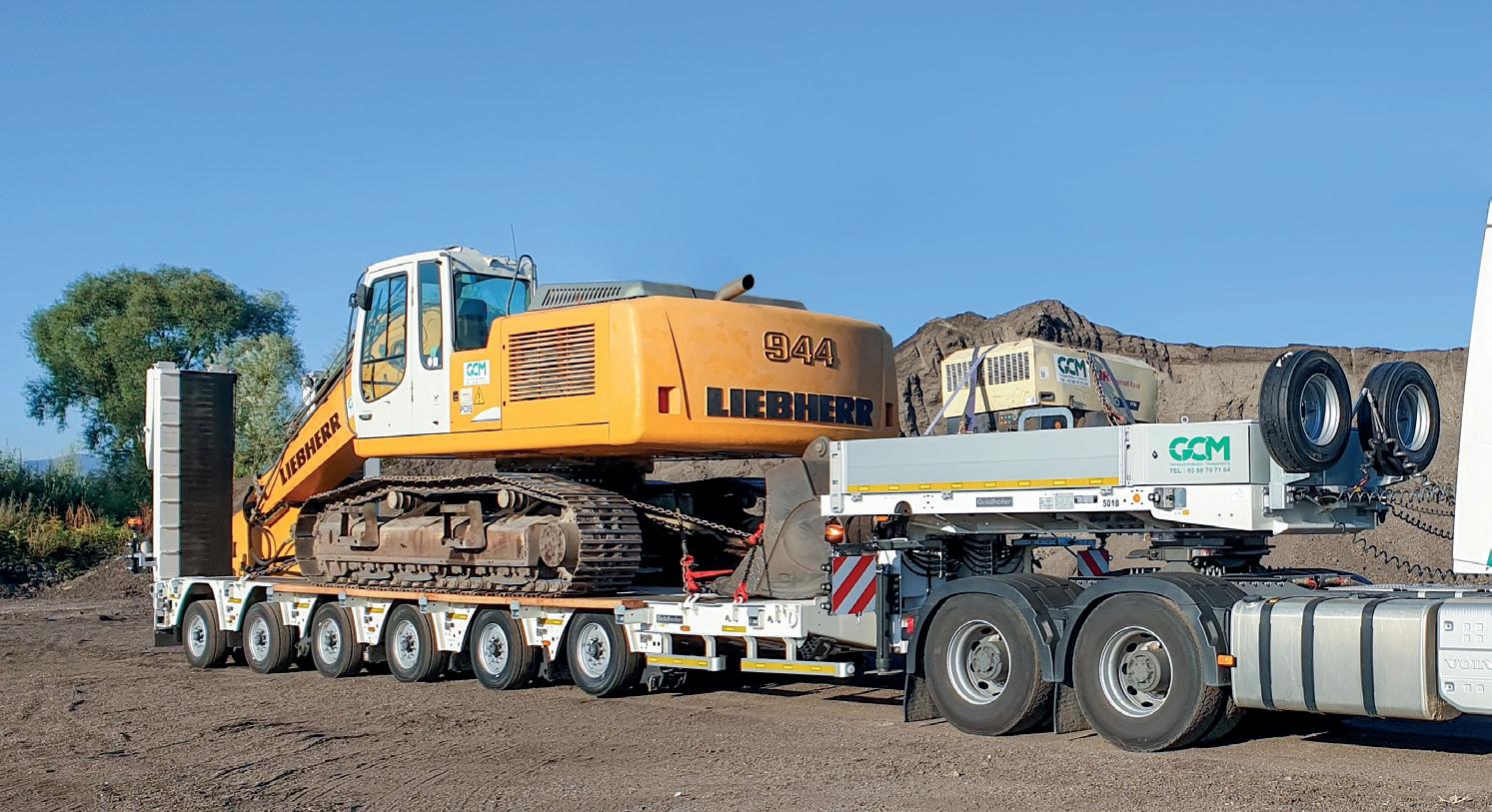
+ Premium quality at attractive conditions + Flexible vehicles with clever details + Simple operation and optimised accessories for daily use PRODUCTS FOR THE TOUGH DAILY USE ON CONSTRUCTION SITES Find out more www.goldhofer.com
Pouring 100% recycled concrete into the casts
The recycled house in use
demolitionhub.com 116 | DemolitionHUB Magazine industry
The wall panels and concrete elements used to build the recycled house in just four months
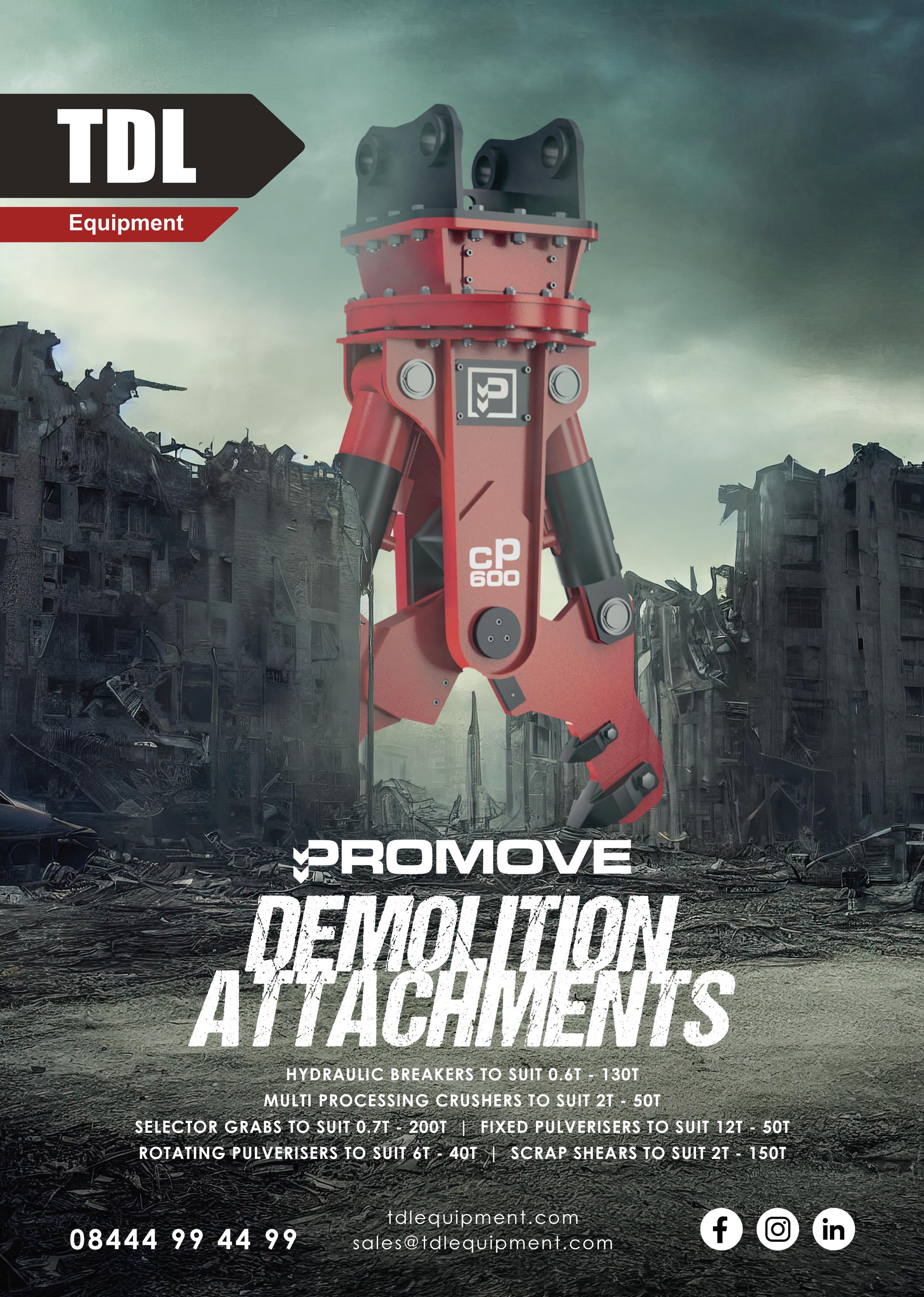
Working to net zero
by Richard Dolman
There is much debate on the strategic approach and policies in place to achieve the UK’s target to reduce its greenhouse gas emissions to net zero by 2050. The UK is legally required to achieve net zero by this deadline, meaning if achieved, the amount of greenhouse gases produced by the UK would be equal to/less than the emissions removed from the environment.
There are policies and targets in place to help focus our direction towards becoming more sustainable, innovative, and reducing our carbon footprint. The target to reduce emissions by 78% by 2035 for example, has led to the availability of fewer fossil fuel vehicles and a rise in electric and hybrid vehicles. These positive changes can all be part of our own sustainability roadmap.
So as an industry, how are we contributing to net zero? The options can be overwhelming

and our own approach could be different to that of our supply chain. How do we all fit into the bigger picture and ensure we are doing all we can for our future generations?
In my last article, I touched on the importance of bringing sustainable construction to the forefront of what we do. However, this time I would urge us all to engage with both our clients and developers to bring sustainable demolition to the forefront of their agendas. Yes, we can maximise our own green credentials on bringing carbon savings into our operations, but the biggest win for demolition will be on the whole lifecycle of structures… a point we can have limited impact on without consideration from developers, architects, construction manufacturers.

I truly believe we can work most effectively together on this agenda, from sharing our ideas about innovations and carbon savings, lobbying our clients and others in the construction sector. Working together will allow us all to make the most positive impact on our futures and that of the demolition sector.

Sources: www.parliament.uk, House of Lords Library Net zero transformation; 10 January 2023
demolitionhub.com 118 | DemolitionHUB Magazine opinion
Mission zero: Independent review of net zero; 20 January 2023
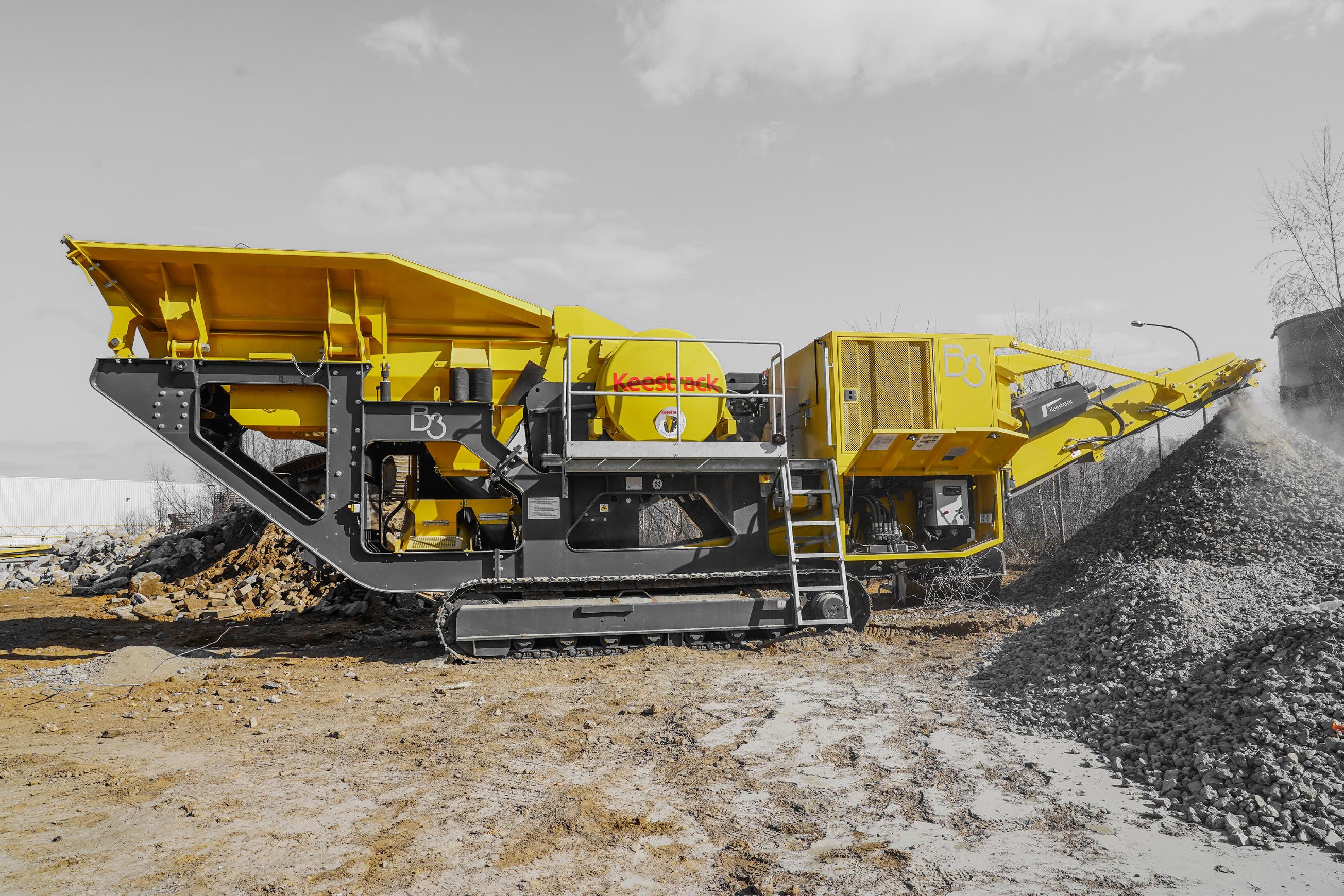


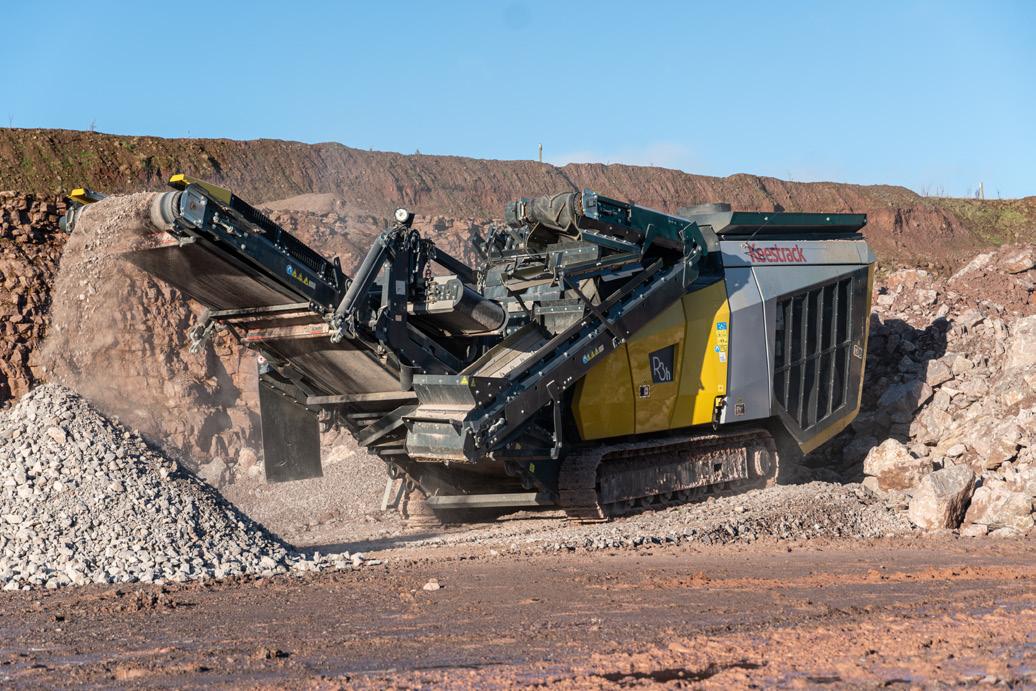
THE MOST COMPACT & PERFORMING JAW CRUSHER IN THE 30 TON CLASS KEESTRACK B3 JAW CRUSHER terex@warwick-ward.com North & Yorkshire (HQ) Blacker Hill Sidings Blacker Hill Barnsley S74 0RE T: 01226 747260 CALL US NOW FOR MORE DETAILS ! THE FULL RANGE OF KEESTRACK PRODUCTS AVAILABLE • CONE CRUSHERS • IMPACT CRUSHERS • JAW CRUSHERS • CLASSIFIER SCREENS • SCALPER SCREENS • DUST SUPPRESSION • STACKERS
Working the overlap
Piling and demolition synergies
by John Chick,
The expression, “working the overlap” is often heard when the early stages of a project are being discussed and thoughts turn to the significant programme gains from piling during the demolition period.
It goes without saying that there are risks with this approach as well, which are best minimised by an expert demolition contractor working with a piling expert in a spirit of co-operation and trust, having
developed the overlap approach right from the outset.

Working in close proximity to each other does not relieve either specialist of the same obligations they would have on a wide-open site, working in isolation. Safety is paramount and there will be a sensible demarcation in time and distance between activities.

The piling operation cannot mobilise without a safe, designed, tested piling platform in place, suitable for the specific rig. Piling rigs are large and require sufficient working space for all of the associated equipment. Any excavations for obstruction removal must have been backfilled with
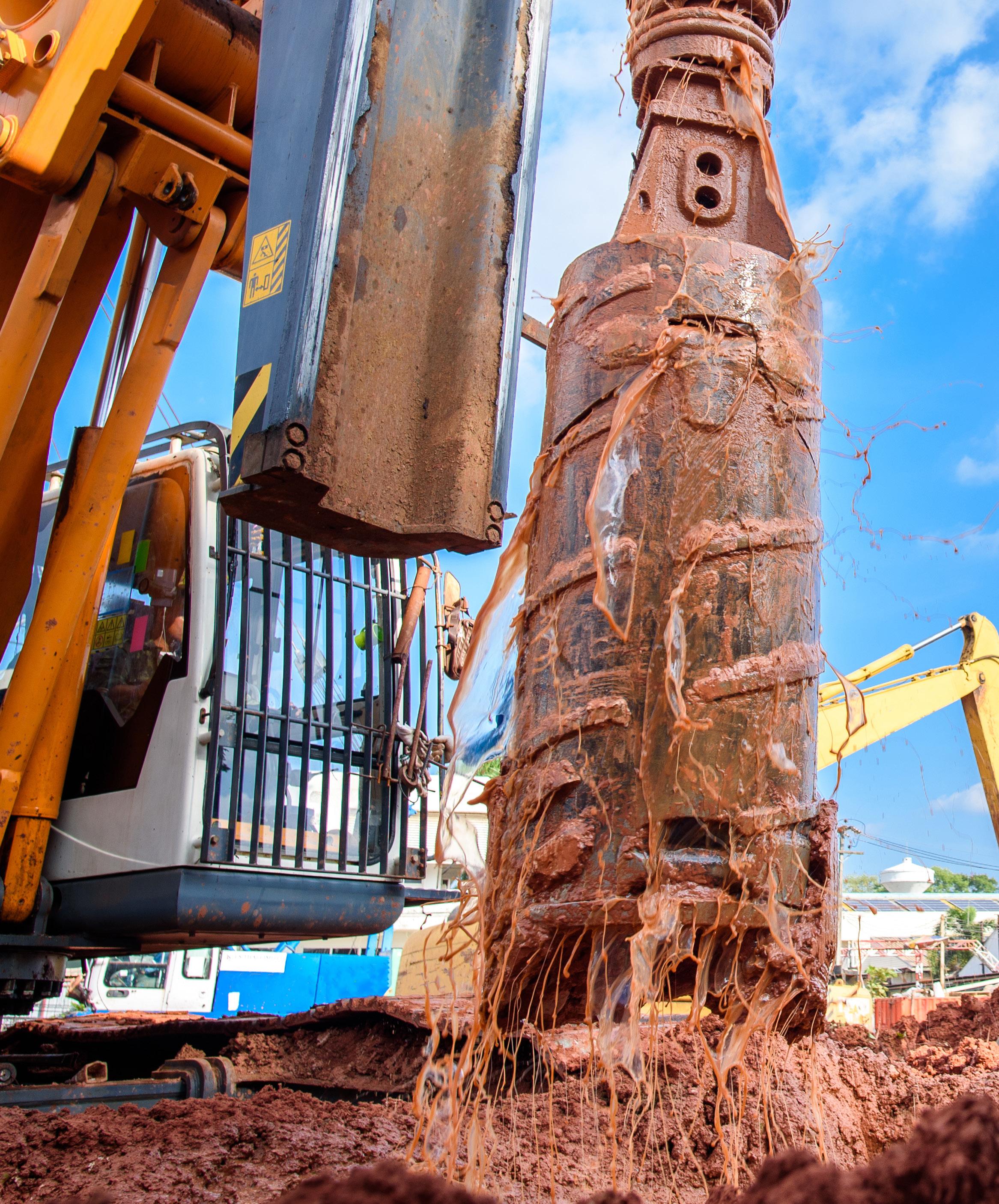
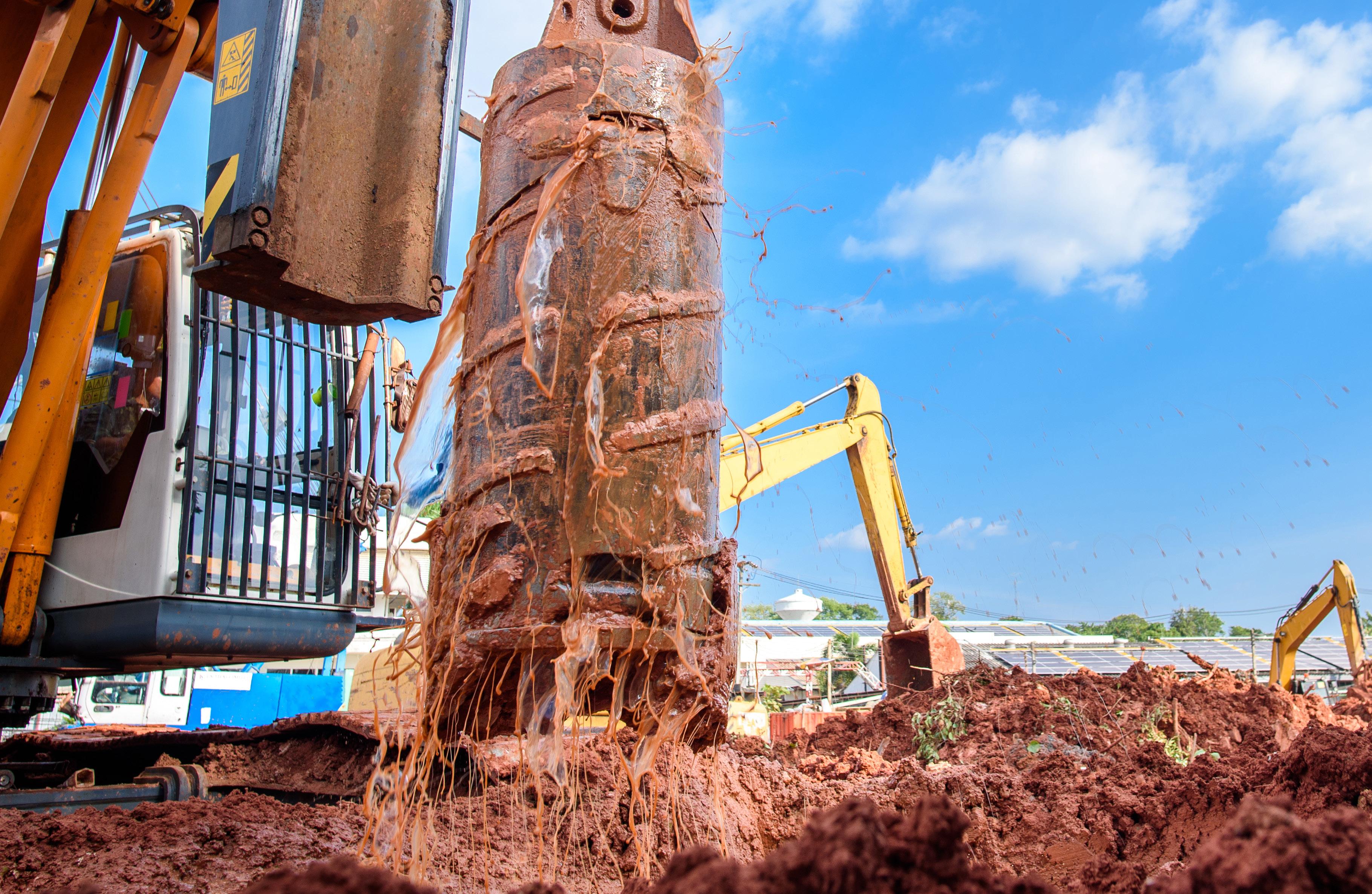 Chair, Federation of Piling Specialists (FPS) and Business Leader at Expanded Geotechnical
Chair, Federation of Piling Specialists (FPS) and Business Leader at Expanded Geotechnical
demolitionhub.com 120 | DemolitionHUB Magazine opinion
John Chick, Chair, Federation of Piling Specialists (FPS) and Business Leader at Expanded Geotechnical
suitable material and ramps for rigs cannot be steeper just because space is more limited. Some sites even make good progress by carrying out a specialist lift of the rig into deep basements.
Logistically, demolition produces arisings, which take space to stockpile and lorries to remove from site. The piling requires lorries to bring in concrete and reinforcement and to remove spoil from site.
So, when is the right time to mobilise the piling operation so as not to struggle by in a small working area, swamped by traffic?
Can the traffic management plan cope or does it require change and input from the Local Authority and stakeholders?
Combining demolition and piling can result in a cumulative noise level close to the permissible site limits. There are ways to mitigate potential breaches of the site trigger levels and to select acceptable working methods which prevent excessive noise.
An innovative temporary works engineer is critical to a successful overlap. Many sites require facade retention schemes, flying shores and basement propping. These by their very nature can obstruct pile positions, particularly the line of new basement retaining walls. Knowing exact working space requirements for specific rigs, safety distances and designing in a degree of flexibility in propping locations are crucial. Early dialogue between specialists and the scheme designer can prevent subsequent issues such as large piles requiring a 100-tonne piling rig, in a space only accessible by a small mini-rig.
Working among props does not just require clearance for the rig, but also to enable a safe place of work for operatives when working at the rig or placing cages and concrete.
Both parties must understand the questions they are asking and importantly whether they have actually had their questions answered. For example, “How close can a rig work to a wall?” should actually be, “How close can your specific rig work to the walings
attached to the wall?” Likewise, the piling contractor providing rig dimensions, should include all associated materials storage and equipment as these take up more space than the rig.
Obviously, demolition specialists major in how the structure being removed was built in the first place. They will also explore details of the surrounding structures, but there are still occasional surprises when dealing with adjacent buildings, party walls, adjacent basement protrusions or services and infrastructure. This is not the time to panic. It is where the resilience of the combined expertise comes in. In this context a surprise is a change to be managed. Not something simple which was qualified out at tender before the rig came in the gate.
Stuart Accleton, Operations Director, Erith Group and Vice President of The Institute of Demolition Engineers said: “Recovery and recycling has always been

the mainstream of the demolition industry, with some 98% of materials recovered across the demolition sector. With a move towards reuse ever increasing, the demolition specialist will understand the environmental regulations around materials recovered.”
If there is an intention to reuse existing piles to support the new structure, demolition must be very carefully planned. Piles that have had a multi-storey building on them for sixty years can rebound as demolition removes the vertical load. If this is not modelled in advance, perfectly serviceable, existing piles can crack and even separate in tension. This unloading process again requires careful attention from the scheme designer and the temporary works engineer.
Where existing piles clash with new pile positions and cannot be reused, there are different ways to either lift them out, or core them out. Both have pros and cons in terms of time taken or noise. The more known about the existing piles in advance the better.
This detailed involvement at a very early stage and the close working relationships have resulted in some of the most challenging but successful piling projects of my career. A project that starts with very few tender qualifications and exclusions from either party, resulting from intimate knowledge of the structure and demolition process is already one step ahead.
Stuart Accleton said: “As client requirements evolve, the demolition industry has seen an increase in requests for the overlap. Clients have seen the overlap as a programme and cost saving opportunity. The overlap also gives the design team additional time to progress and finalise the permanent works designs, however this can sometimes lead to pile load allowances being increased to allow for any design changes. Working together with specialist piling contractors and the design team, demolition contractors can provide the client with some very attractive enabling works packages.”
“Recovery and recycling has always been the mainstream of the demolition industry”
demolitionhub.com DemolitionHUB Magazine | 121 opinion
Stuart Accleton, Operations Director, Erith Group and Vice President of The Institute of Demolition Engineers
As summer reared into view it wasn’t just the weather that started to turn for the better.
Predictions of economic improvement proved to be correct. While concerns remained about the Bank of England’s direction of travel on base rate, inflation dipped below 9% and a once expected recession turned into modest, but welcome, growth predictions.
Further good news came from the latest construction data from the Office for National Statistics, which found output was up by 8.5% year on year. Improving weather, economic conditions and output were the ideal combination as we headed towards the summer’s trade shows.
As showcases for the latest technology, this year’s trade events come at a time when SMEs throughout the sector are looking to invest. New Paragon research highlights that nearly a quarter (23%) of SMEs in the sector have
Looking up
by Terry Lloyd
held onto assets longer than they had planned, while (26%) had acquired pre-owned assets due to the inability to acquire new.
With pent-up demand for new kit, planning for Plantworx has been a key focus for the Paragon team. We come away from each show with fresh ideas for how the new assets on display will benefit clients – and businesses come away with a shopping list for the year ahead.
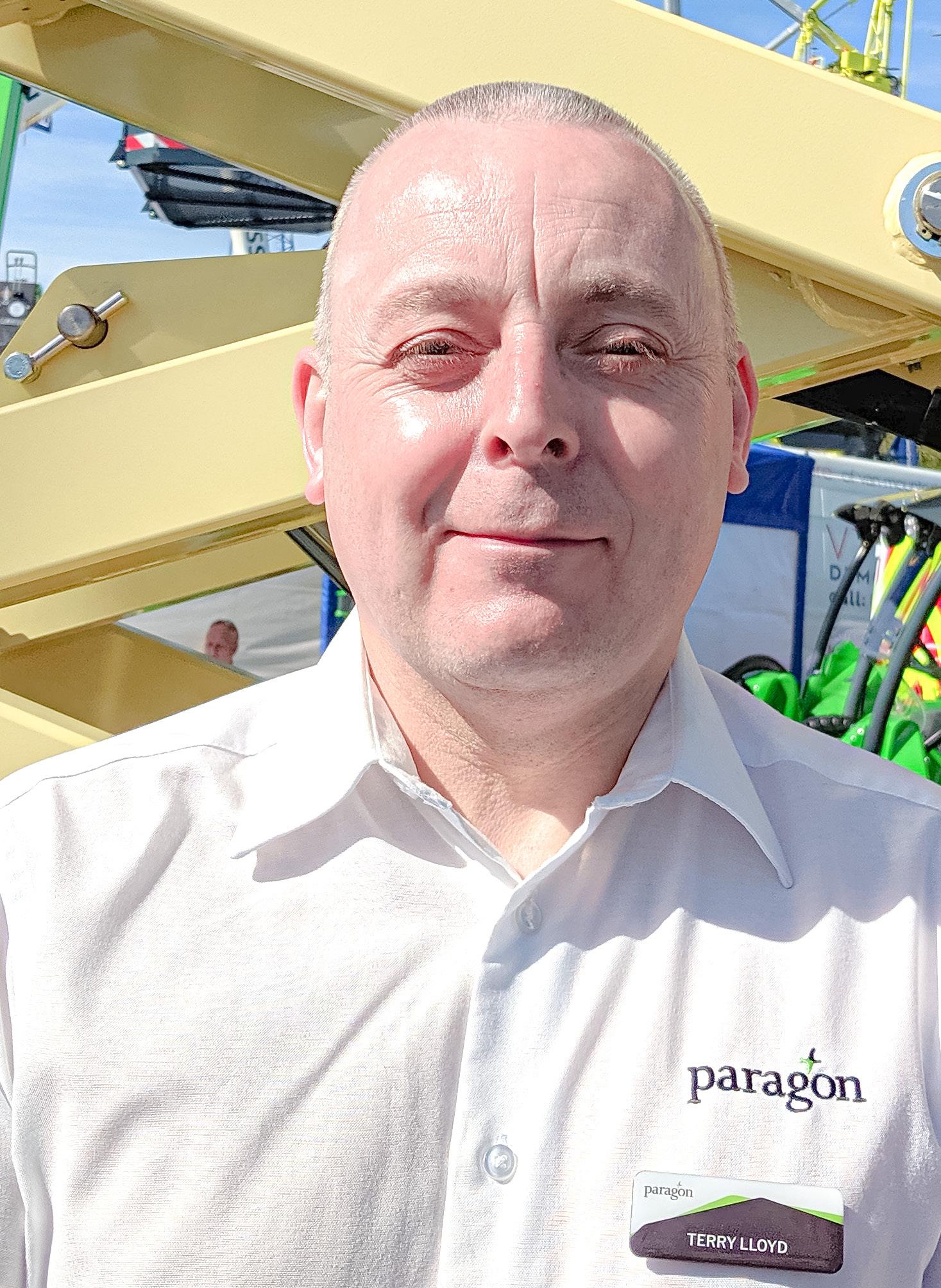
Making sure that SMEs have access to the assets they need is at the heart of what we do. By attending the shows, we not only gain knowledge of the technology and but also an understanding of the benefits it can provide to our clients – and we leave with renewed determination to get assets into the hands of fantastic businesses.
The challenge facing the sector then is not whether the technology or demand exists to boost our sector, but whether suppliers will be able to keep up with demand. Order books typically tick-up after shows, but with high levels of demand going into the show season we can expect numbers to be higher than previous years.
The question for businesses is when is best to invest – and planning will be crucial. If firms wait until it is absolutely vital to acquire
new equipment, with assets breaking down and pre-owned equipment unavailable, they could well find themselves in a situation where while they can place an order for new assets, the delivery times will simply be too long.

The risk of not having the equipment necessary is one that all SMEs should seek to avoid, and specialist lenders understand this situation. Delivering bespoke funding packages that are designed for the individual circumstances of a business is a crucial service that we can provide. When attending this year’s shows, SMEs should be reassured that flexible financing options are available to them – and that they can often place orders sooner than they may have expected.
While the thoughts of many SMEs attending shows may be on their immediate needs, many others will be thinking further into the future and where the technology is leading the sector. Questions remain over the scalability of electric assets and their use in our sector, but each time you attend a show you see something new emerging – and over recent years conversations about hydrogen as an alternative fuel source has only become louder.
Whether it be future assets or short-term equipment needs, it can never be too early to start planning for acquisitions. Lenders are ready to work in partnership with you and deliver solutions that can get orders in the books. If you see the Paragon team at an event, feel free to stop us for a chat – we’ll be glad to see how we can help.
demolitionhub.com 122 | DemolitionHUB Magazine opinion
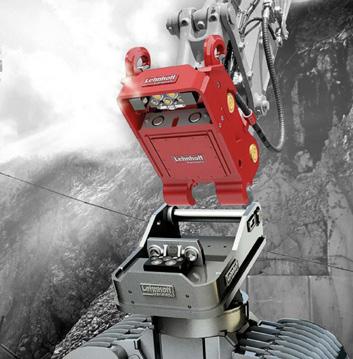
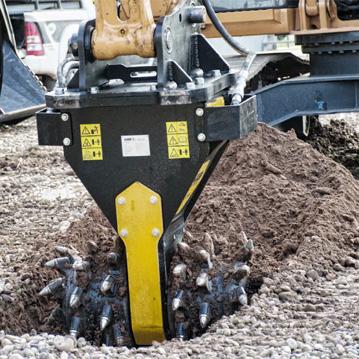
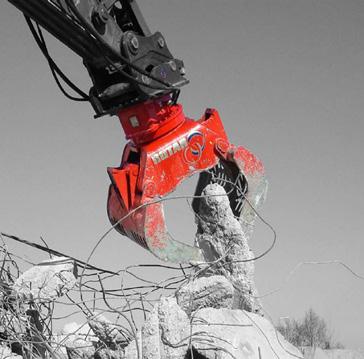

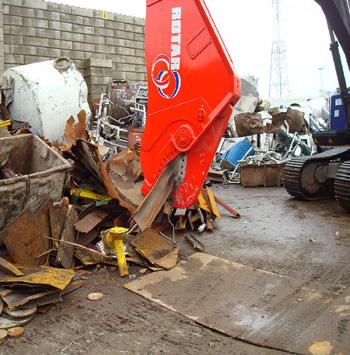
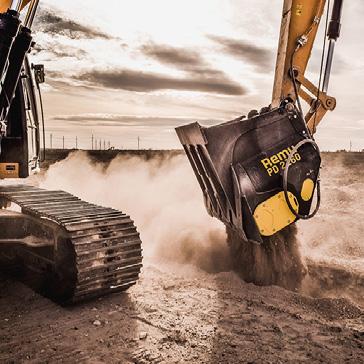
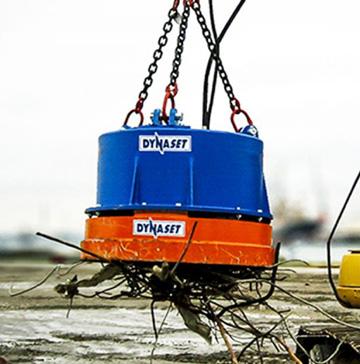
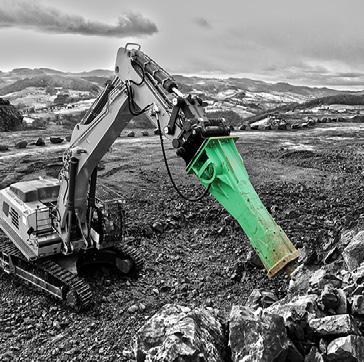

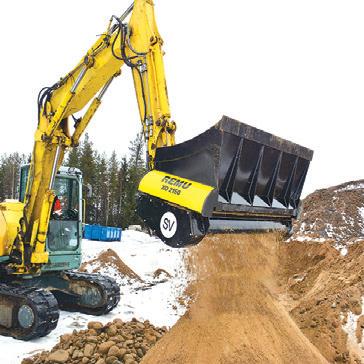


To hire, buy or arrange a demo: 01606 83 55 44 www.worsleyplant.co.uk WIDE RANGE OF HYDRAULIC ATTACHMENTS GRABS, SHEARS, PULVERISERS, MAGNETS, BREAKERS, QUICKCOUPLERS, CRUSHING & SCREENING BUCKETS DEMOLITION/CRUSHING/MIXING/WASHING/ SCREENING/RECYCLING/SEPARATION
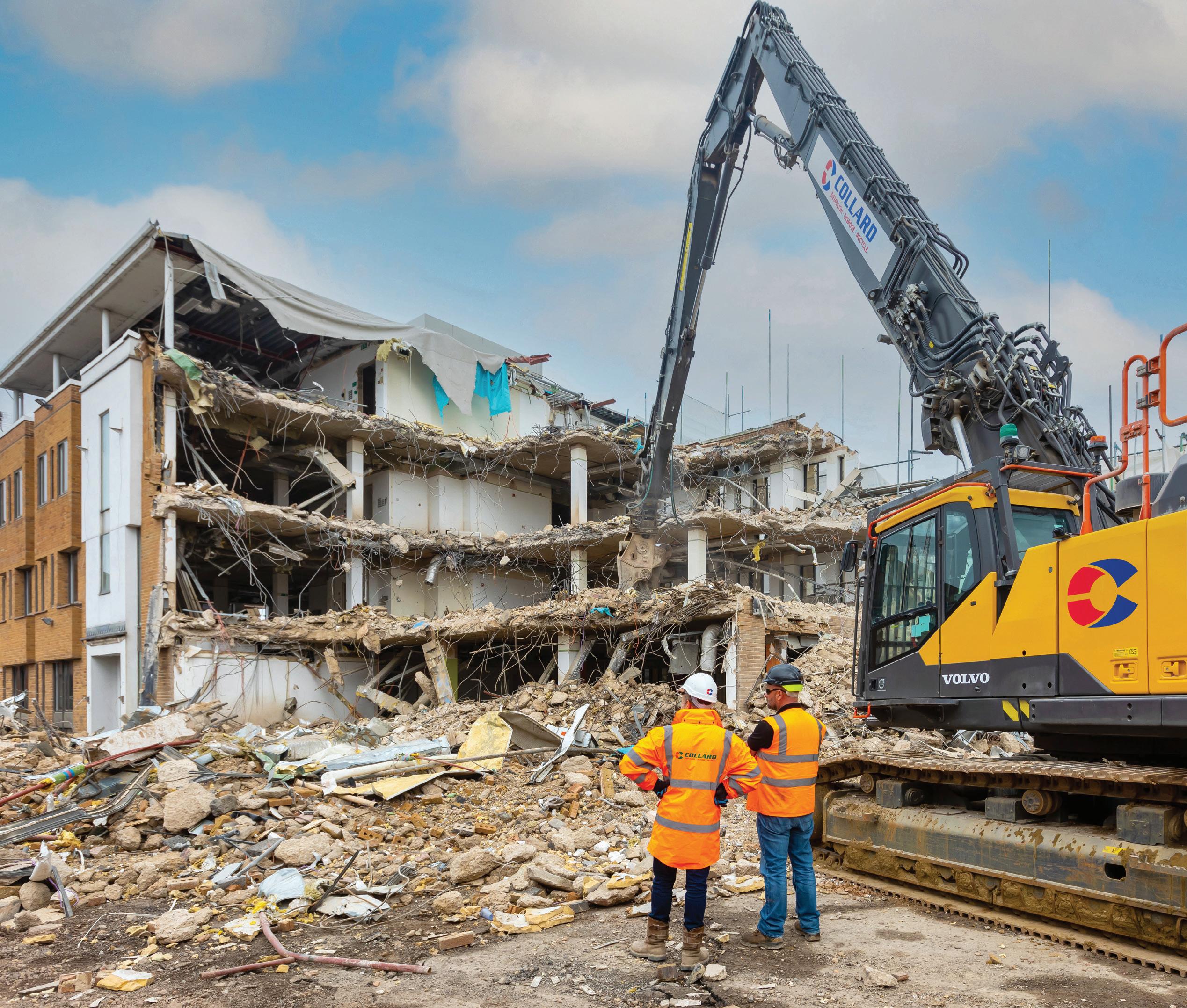
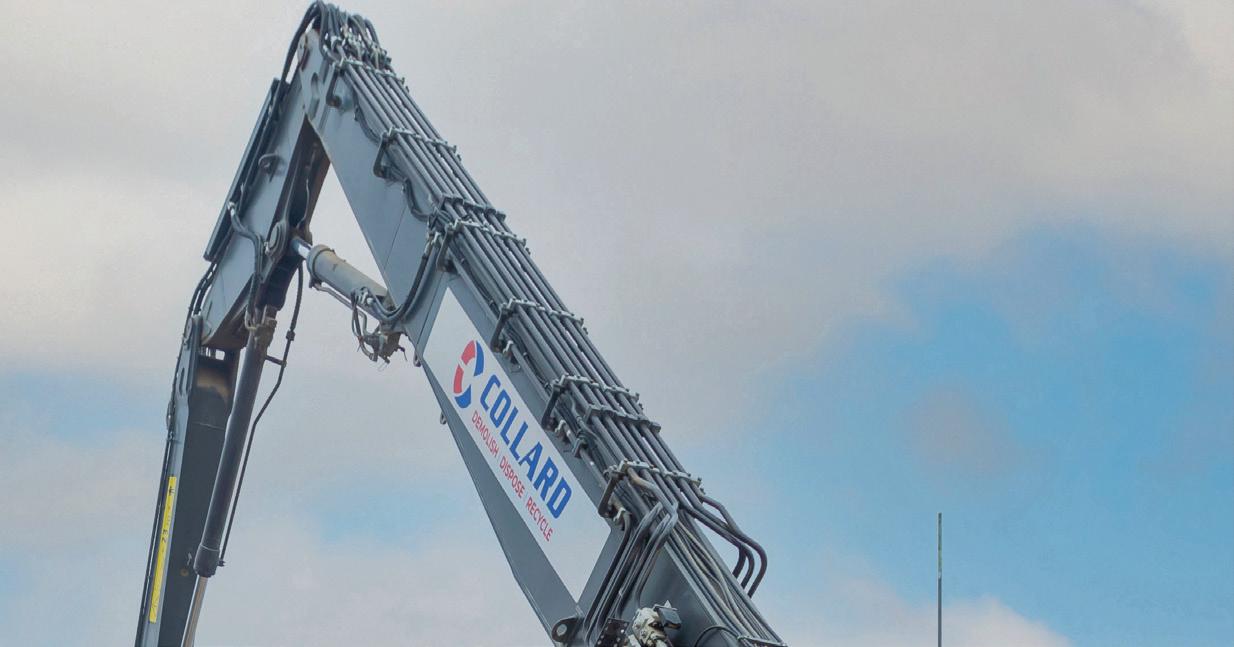
rcollard.com | info@rcollard.com | 01252 844688 @collardgroupltd
unique capability to repurpose virtually all construction and demolition waste from site helps our public sector, local authority, commercial and residential clients achieve zero-to-landfill targets. Expert solutions for complex projects, nationwide Demolition Land remediation Enabling works Consultancy services Asbestos removal Soft strip
Zero-to-landfill Our





















































































































































































































































 Morgan Sindall Group PLC Cosham Fire Station project.
Morgan Sindall Group PLC Cosham Fire Station project.













































































































































 Hydrogen fuel cell and solar station
Solar panel
Noise and dust monitor
Hydrogen fuel cell
Hydrogen fuel cell and solar station
Solar panel
Noise and dust monitor
Hydrogen fuel cell





 Before: The structure to be demolished
Before: The structure to be demolished


 Matt Taylor (left), Youth and Community Manager at YMCA Derbyshire enlisted Cawarden’s help to pave the way for a new eco-sustainability area
Giving back to the community: Aira, Julie and Emma from Cawarden’s head office in Ockbrook got green-fingered as part of The Big Help Out
Matt Taylor (left), Youth and Community Manager at YMCA Derbyshire enlisted Cawarden’s help to pave the way for a new eco-sustainability area
Giving back to the community: Aira, Julie and Emma from Cawarden’s head office in Ockbrook got green-fingered as part of The Big Help Out














 Wolfgang and Hans-Jürgen Büscher with the full electric plug-in R3e ZERO impact crusher
The R3e ZERO impact crusher with wind sifter operates with zero CO2 emissions
Wolfgang and Hans-Jürgen Büscher with the full electric plug-in R3e ZERO impact crusher
The R3e ZERO impact crusher with wind sifter operates with zero CO2 emissions






















 Chair, Federation of Piling Specialists (FPS) and Business Leader at Expanded Geotechnical
Chair, Federation of Piling Specialists (FPS) and Business Leader at Expanded Geotechnical















